It is volume 7 ( 0 1 2 3 4 5 6 )
This is a part of a raw and uneven journal of digging into the writing systems from all over the world, so I recommend you to read the summary of this work instead.
this is a draft part, it may seem that I stumble around some random rhymes, but that's how I always was working and some cool stuff came out of it, so the most solid info is the first half of the first volume, all the rest is raw as odb loved it or more. several cool notes appeared afterwards, so I keep it online just in case and because ever wanted to read drafts of scientists.
Note Knowed Knot
I'm going to spiral around these topics until I arrive to my destination or wherever it leads me.
A complete new source of inquiry: https://en.wikipedia.org/wiki/Talking_drum
and the more informative piece in russian: https://theoryandpractice.ru/posts/8179-info100
(google's translator translates it better and better, you should be able to use it to read russian)
It tells of african telegraph-like communication with the help of drums and ancient greeks' way of using signal fires to transmit messages (thus beacons could be something more than what we thought)
What could be the very origin of drum-communication? Probably to help hunters to find way home. And then they would recognize that something's happening if the drum beat came uneven. and now they say that whole complicated phrases are communicated in just the drum beat. Brian Eno said that afican music in the sense of rhythm went much further than european ever was. Europeans have every reason to be proud, but sometimes we're too proud to the level of some ignorant arrogance.
Or could those drum beats begin as a scaring technique when they needed to scare the predators away? Probably it was the beginning: a man hits the water with a stick, another man asks him wtf he was doing, scaring the crocodiles away was the response, but there's no crocodiles for miles around. see, it's working.
speech, drums, horns, fires, maybe lyres were bows and.. bows were arrows.
bow is дуга as if above, rain..bow!
if bow is arrow then (a = b ? R = B?) then what was the instrument? the catgut?!
arrow as a bow, you can throw it, you can shoot it, you can use it as a pike. pick,
pike is the metal part of the arrow (among other things: spear, luce (щука (щ ~ п?)), thorn, pitchfork, застава взымающая подорожный сбор)
pick is many verbs, probably related to pike, and among them is перебирать струны
(щ ~ п?)
ц ~ r (both could be c & г)
not ц! ч ~ r! (in cursive)
(both could be c = г)
bow is лук, so they didn't play cords with the arrow, but with the bow, the horse hair bowing a stick is the bow, because it's in the form of a bow. and струной could be the road between those ends, because it's believed that a potful of gold is at the end of it, but it was a lie, of course, and it stuck because nobody could disprove it (was there a lack of water or what? whatever)
Drum were the shields? and some mighty sticks served as the bangers?
So are girls bows and arrows and guys are shields and swords?
shieled (защитил?)
swored(рвал? материл? драл?)
schiele is squint in german which makes me believe that shields were the mirrors and thus girls could use it if their simbol is actually a person with a mirror, as if + is mirror, becuse it's lines are in focus (не совпадают, но пересекаются (в точке фокуса? they're all at the surface of the mirror, because it's not lense. not lance? lance could be some magic stick, so one side of it would be a spear, the other could be some magic stone. glass balls can burn fire!!! I told you that they were used as lenses to read, but fire, of course!!!
lance from the one side, lense from the other one? a & i as two forms of syllable, only two position in the consonants: palatalized and not.
and labialization doesn't usually matter in consonants, but it can influence the vowels.
As if palatalization is from vowel i, and labialization is from consonant v
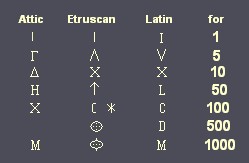
I & V the first in roman (numerals)
labialized or nasalized? m is pronounced over nose.
n is also, even though it's managed not to be labial.
nevertheless, m & n are cognates, and n is probably new.
as abc it was imk I MK it is crazy.
where's l? I is l. K ~ N? ᚴ ~ ᚿ (because o is ᚮ in unicode and upwards in Bornholm)
are k & n come out of ᛜ?
𐰖𐰗 are both [j]
𐰗 is in Yenisei
𐰖 is in Orkhon
𐰶𐰷 are their q
𐰷 is in Yenisei
𐰶 is in Orkhon
If 𐰗 relates to ᛜ I dunno, but 𐰶 does both look and sound like ᚲ
(if it's truly etymology or merely mnemonics I dunno as well)
> As if palatalization is from vowel i, and labialization is from consonant v
nasalization (the same as labialization) turns into йотирование in russian: я & ю are believed to be юсы (according to Даль, носы)
So these deviations are in a sense both i's: palatalization is i after the letter, labialization is paradoxically also i but before the letter. as if и[i] is u (look the same in cursive)
i jklmnopq r
у фхц ч
u vwx y.. ?
nah..
у ф х цч шщ
u vw x y z
шщ s z
z is zed zd st (t short s aor s long t? ת is reported to sound as θ which make it reflect θ)
ε ζ η θ
and that demands θ to take the place of ζ so ζ can be final as z is as З is in ёжз η is ᚼ is Жж
As I said before, fuck academia.
Museion forever!
The british museum responded to my message with an offer to use their collection to further my research: https://www.britishmuseum.org/
And dice, die, palamedes, these search didn't show me anything I didn't know before,
Abecedaria also, but abecedarium returned this image:
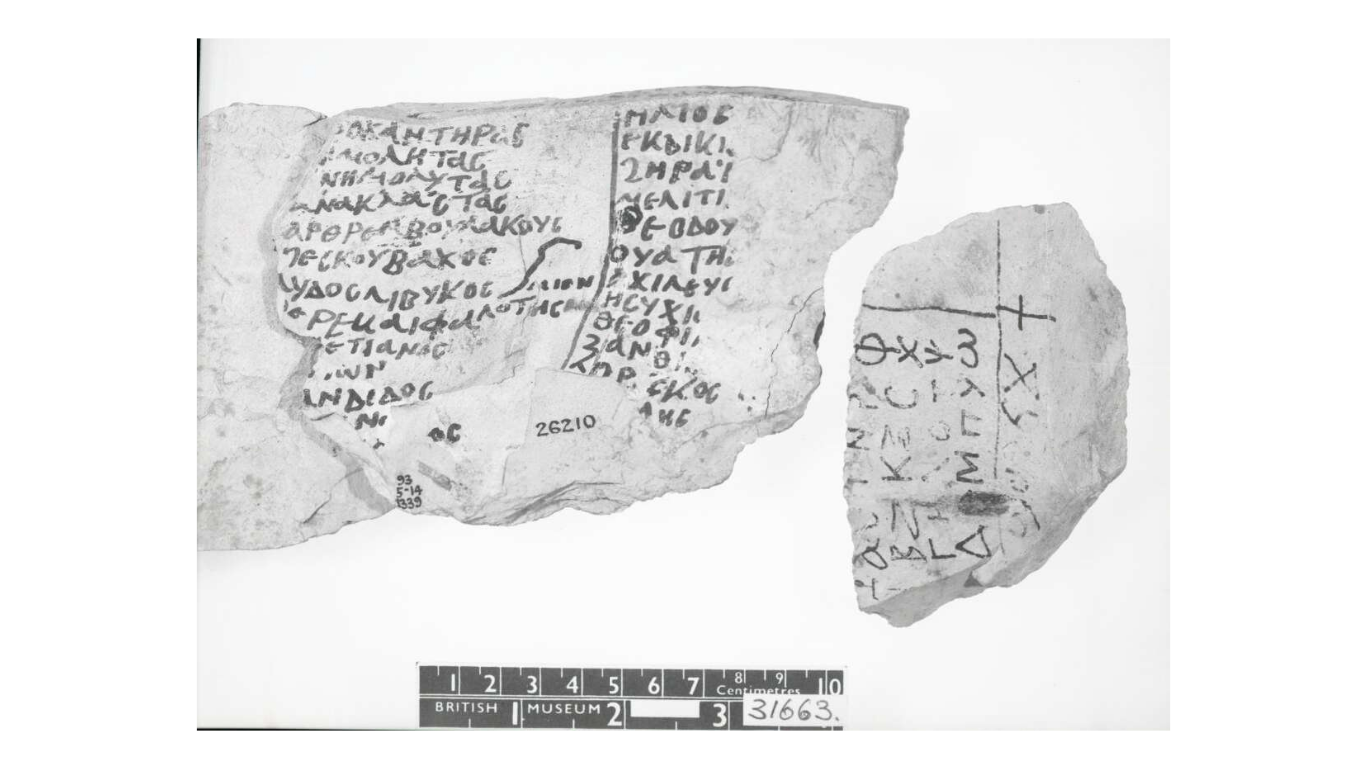
it went structurally for the first half:
Α Β Γ Δ
Ε Ζ Η Θ
Ι Κ Λ Μ...
and then, where M was out of place it's as if it's broken by the additional Ν Ξ which could be nix.
Ο Π Ρ Σ Τ
Υ Φ Χ Ψ Ω
are five letters per a line, not four, and these added complexities make this structure not exactly evident.
Was looking for "abecedary ostracon" and the first good find is this:

I hope sometimes people are not so poor that they place their pdfs behind the paywall or at least I am reich and subscribe to all the journals just for the hell of it. but fuck it, I don't do it by ideological reasons.
That ostracon uses a good method to conserving the information: they start with the abecedary so those who use some other font will be also able to read.
It's even good that I don't see the rest of it, so I can make my own transliteration just to practice
(or you may)
and another one:
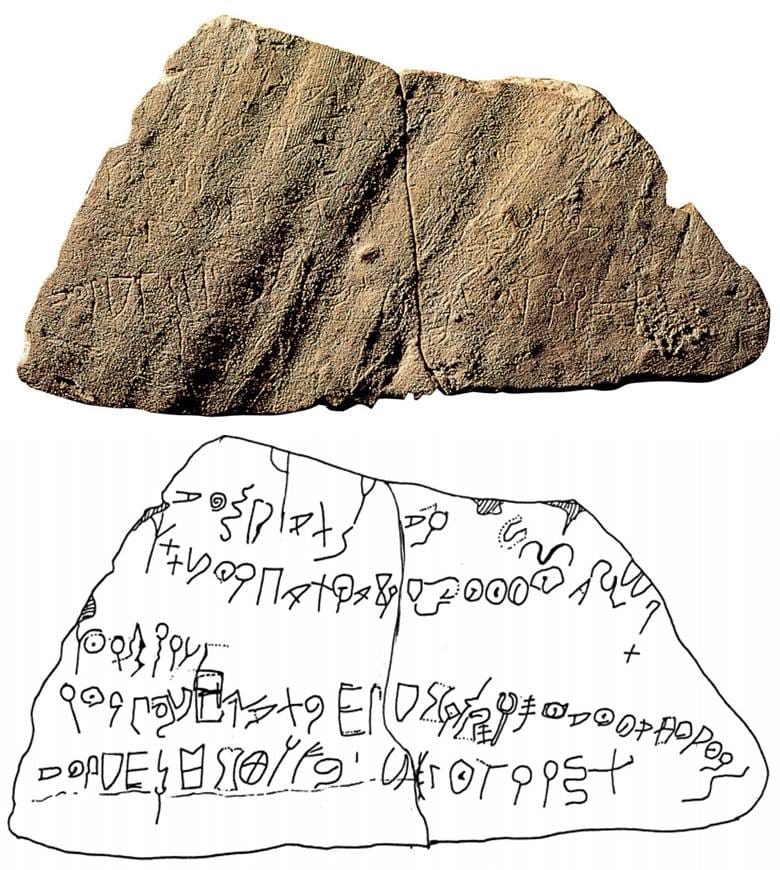 :
:Inscription on the 'Izbet Sartah ostracon represents the earliest known non-cuneiform abecedary. The ostracon is discovered in 1976 in 'Izbet Sartah in Israel, and it is dated to the 12th or the early 11th century BC.
The inscription is written by an unskilled scribe, probably a student, and it consists of four lines of writing exercises, followed by the 22 letters of the Ancient Hebrew alphabet in the fifth line.
The following table is stumbled upon during that ostracon abecedaria quest, but it's something different, it compares phoenician to hieratic which is awesome if true
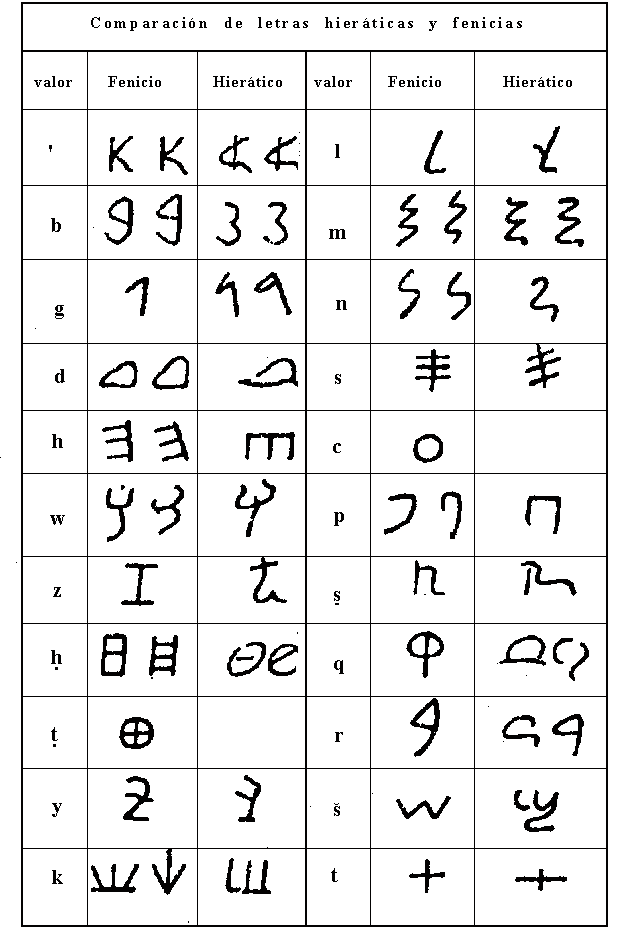
another piece of that Budge-Brugsch-Rouge egyptology abecedaries was shown to me by some Maxim Makarov: it's from a book by Budge:
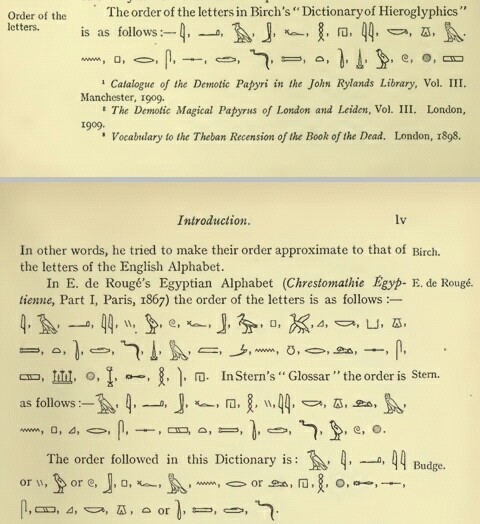
I just noticed that since I learned that wehn frsit and lsat ltteers are the smae, you can raed txets dritotsed lkie tihs, I bgaen mkiang mtasieks lkie tihs, so beware of them and this way of writing, this bug didn't happen to me until I dared to write like this somewhere before in this draftflow.
I also noticed that these three are different: it's Birch instead of Brugsch this time. I wonder if Birch is just another way to transliterate the same name, and either way why are their names so much alike!
In my notebooks I discover how lines of the alphabet could be aranged into syllabary sets of
voiced-plosive
voiced-glides
sonors (whatever they are)
voiceless-plosive
voiceless-glides
and then I go further to the 4*4 table with no sonors, but some of them appear other spots or are they?
Check the first knitten (нить [nitt] is thread in russian) notebook when it's scanned (see further for it or the manuscript folder past #50 (it may be closer to #100 because tens of unscanned notebooks predate it)
Why do they keep on pushing "fewer" instead of less?
a drop into that bucket with swasticas and triple yin-yangs:
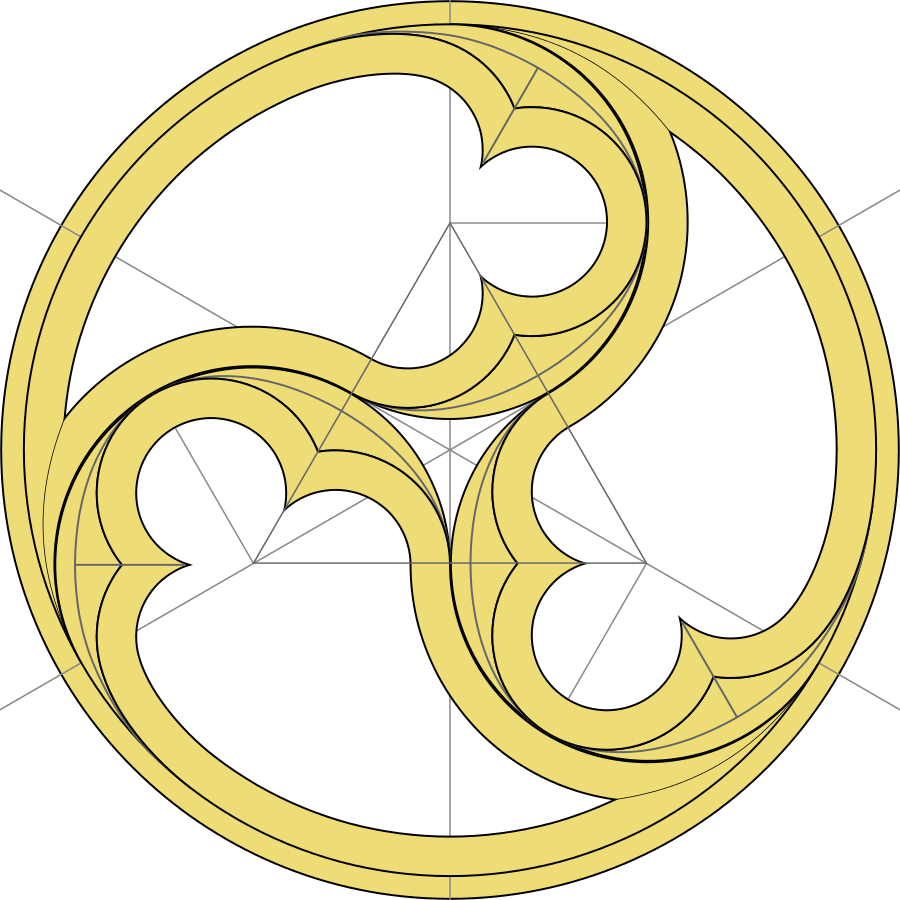
notice that it's both directions at the same time depending ot nhe way wou see it.
sincerely, sensibly, in these two words first parts could be cognates to sign, but to tell it for sure we need some ai to feed all these pairs and other things. What is your aspirations in life? You can achieve anything in just 10 years, so a person (and perdaughter) can achieve several incredible goals during their lifetime. Are you into ai or biology or programming or music or where would you be?
caught got, this kind of cognates, vocal cognates, I wonder if all vowel-cognates synonymous, because vowels are vocales in spanish. пора давай пока were the first ones, and they can be cognates, пока is bye, and пора is "it's time" and давай say for bye. So this mental experiment could set the borders of the vocalization liberties, and if fills like weak-strong stressed-unstressed beats, like in heart. a steady bye-bye with the second bye stressed. I heard of a guy who claims that intonations are the key to understand any language, I didn't take him seriously, but maybe he discovered some animal level of understanding the language. I will check him.
the power of ultimate honesty yet, try it accurately, recognize its limits: to tell truth to enemies can be dangerous, first you have to realize what is the truth in the world where those people can be your friends, but this is so raw for me too, I'm a theorist, I can only guess where the implementations of these ideas can lead.
It's hard for me to look into my own drafts because they are full of obsolete ideas which were rejected or forgotten, but those drafts still contain their gems demanding some further.. cognitions?
(I don't even know what exactly they're demanding. Being archived and never touched maybe?)
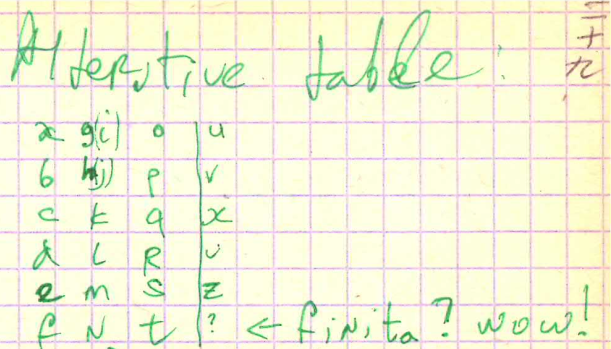
It is just wrong. It's good I explored the possible arrangements, but why is it even here?
Was I surprised by three-mother-ness of ems or dollarness of dlr and chequeness of ckq?
Now this is how apophenias work. It could be anything, and thus it's nothing.
Those three columns from a to t are three by six, and I probably didn't think about it then,
and h among vowels also makes sense which I wouldn't probably see back then,
even though I studied japanese already.
d reflects r as in the k-symmetry, which I already knew then,
f reflects t which is all very interesting, but I don't think this representaion goes far,
but it does reflect the idea of g being a form of c and h coming the latest.
Was g the original as in original g? Because runic alphabet doesn't distinguish ᚦ into c and d.
and j & h meet in ᚼ which just as j can sound as h in one context and as short i in the other,
so h can sound as h and yet in greek it's i the way it was transmitted into russian,
unless they took it directly from ugaritic 𐎊 or egyptian 𓇌(𓏭)
I don't like how m stands out of labials, but it's nothing new.
I especially don't like how f stands out of that column, but that could be the reason behind greek θ.
Either way what's about E? Is it why it's consonantalized in arabic?
In greek z is the final of the first column, which demands me to ponder on it in greek:
Α Β Γ Δ Ε Ζ
Η Θ Ι Κ Λ Μ Ν Ξ
Ο Π Ρ Σ Τ Υ Φ Χ Ψ Ω
Α Β Γ Δ Ε Ζ
Η Θ Ι Κ
Λ Μ Ν Ξ
Ο Π Ρ Σ Τ
Υ Φ Χ Ψ Ω
Α Β Γ Δ
Ε Ζ
Η Θ Ι Κ
Λ Μ Ν Ξ
Ο Π Ρ Σ Τ
Υ Φ Χ Ψ
Ω
I dunno, it doesn't seem to lead anywhere, the first case of 6 8 10 was the most interesting, even though it also didn't have much of symmetry between it's neighbours. and even those other three wouldn't help.
See, returning to the old notebooks is a waste of time. I was so worried about my drafts (and I probably should, but let some other people or machines look into that whatever.
About those intonations, melodic patterns as information:
покА, давАй, пиздУй, летИ, bye-bYe, /
but
остАнься, stay hEar, ^
as if / is waving goodbye, and ^ is waving welcome.
отстАнь, but остАнься
as if the final syllable is not sya, but not.
Pronouns are often antonimous towards itself (in different languages)
Can yes/no go like that? can sya be no event though si is yeah?
like what's the difference between hai & nai in japanese?
is it the same letter but h is upwards, and μ is down?
but "how do you do" has the same melody as "нахуй иди" or do those i & u make all the difference?
I think that work is done, so why should I wånder? To make an independent research to compare afterwards? I doubt this flow delivers me to the my goal in in all: to recognize all the morphemes.
Let's begin with building a map of only pronouns, it's a simpler task and those alone could connect to tribes names and the gods they worshiped. Read the first knitten notebook for more detail. or that's it.
how do you do is more like хавай еду
This world is enough
(that was an automatic writing, the one french modernists promoted over a century ago)
((hopefully thinking about how it's all going to be just alright (with the capsule and such)))
Some more of ogham:
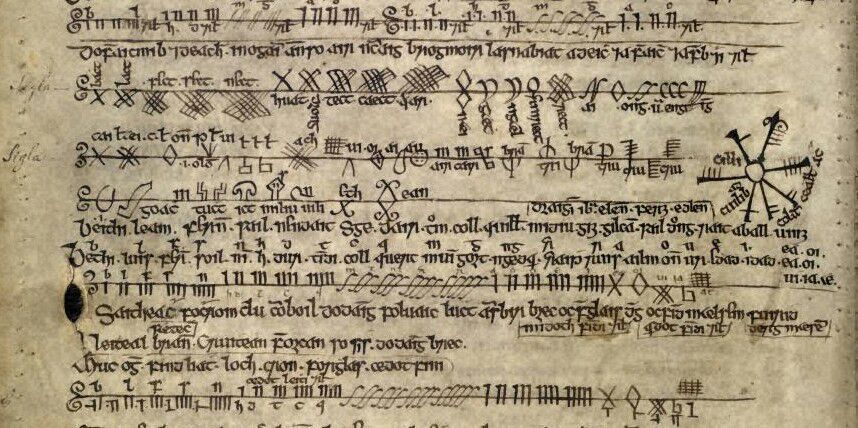
not the best example to learn ogham by, but it definitely contains some info, here's the clearer one:
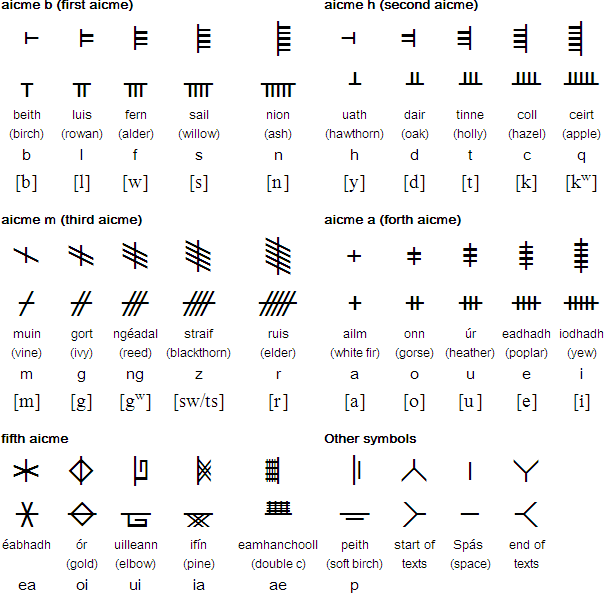
I only wanted to try to read the ligatures of the following image, but what use, I don't speak Gaelic.
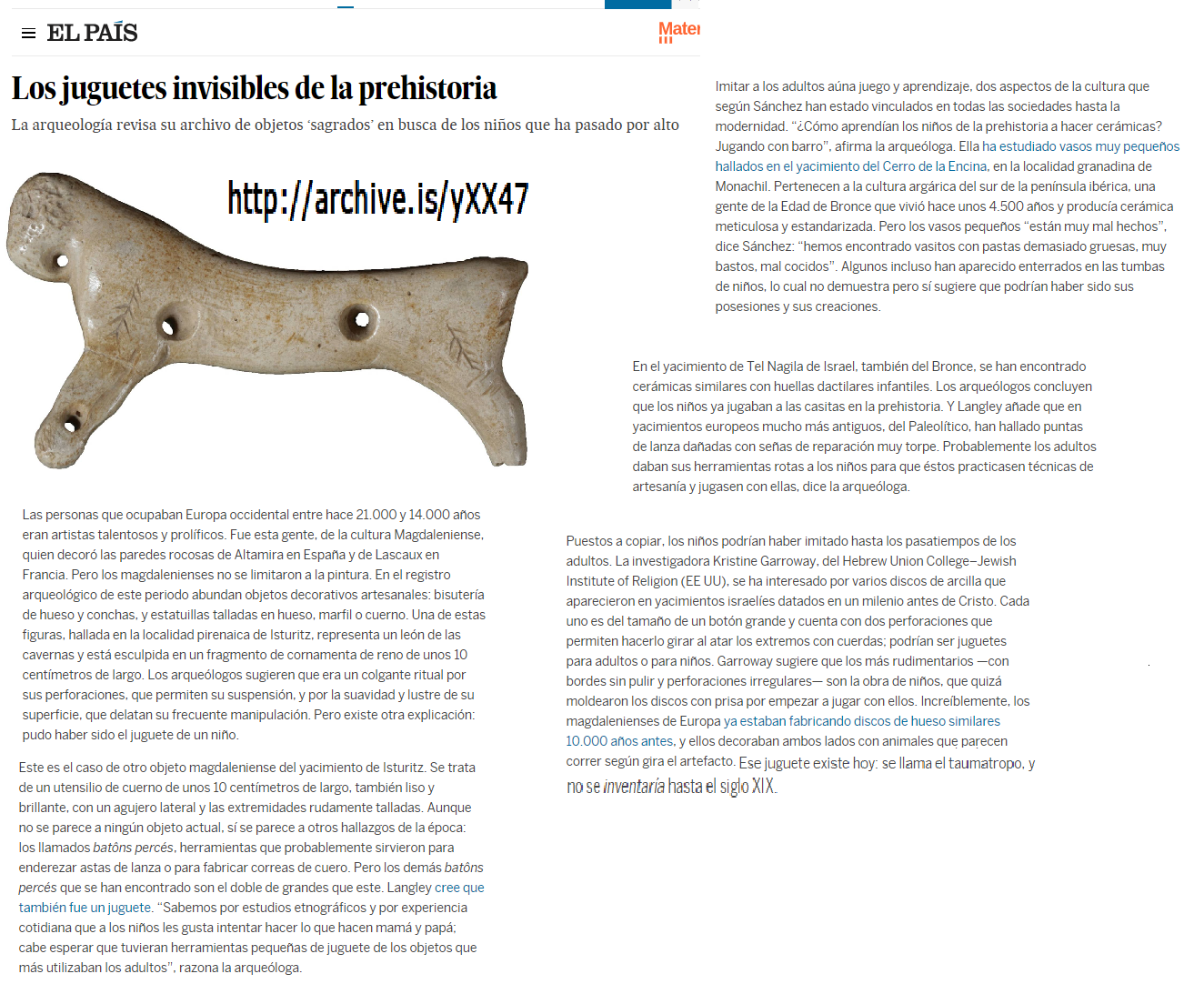
I don't even know if that's the same writing system. If it's a writing system.
An update on Great Parma:
(archived)
I fancy thinking that what I write in vol.1 influenced that guy, because I spoke about it elsewhere anonymously. Either way he did some great work, showing historic pages I never had an idea about. Bravo. but nevertheless freaky, so be aware and trust nothing, we all make mistakes. I go freakier..
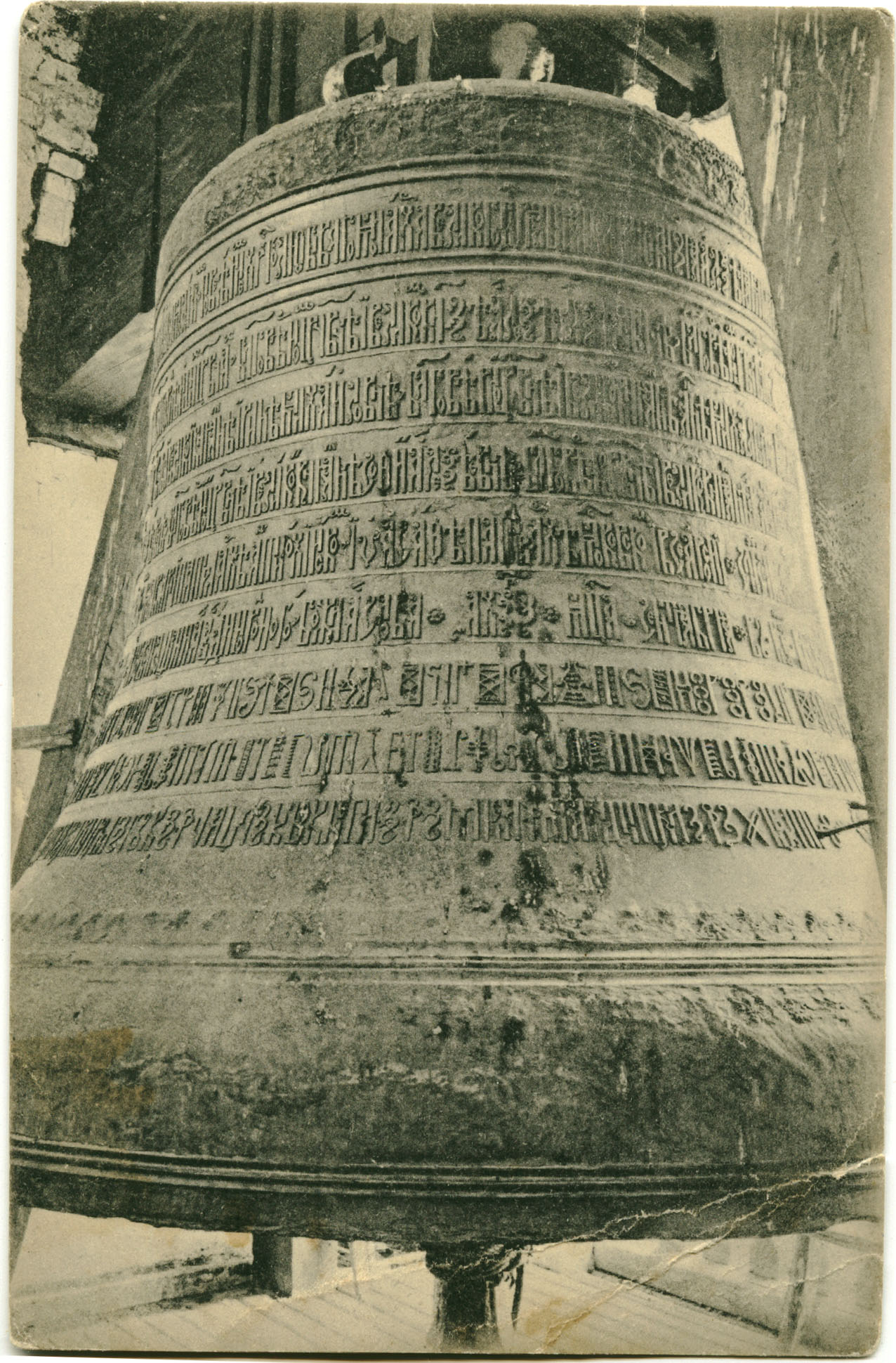
(clickable)
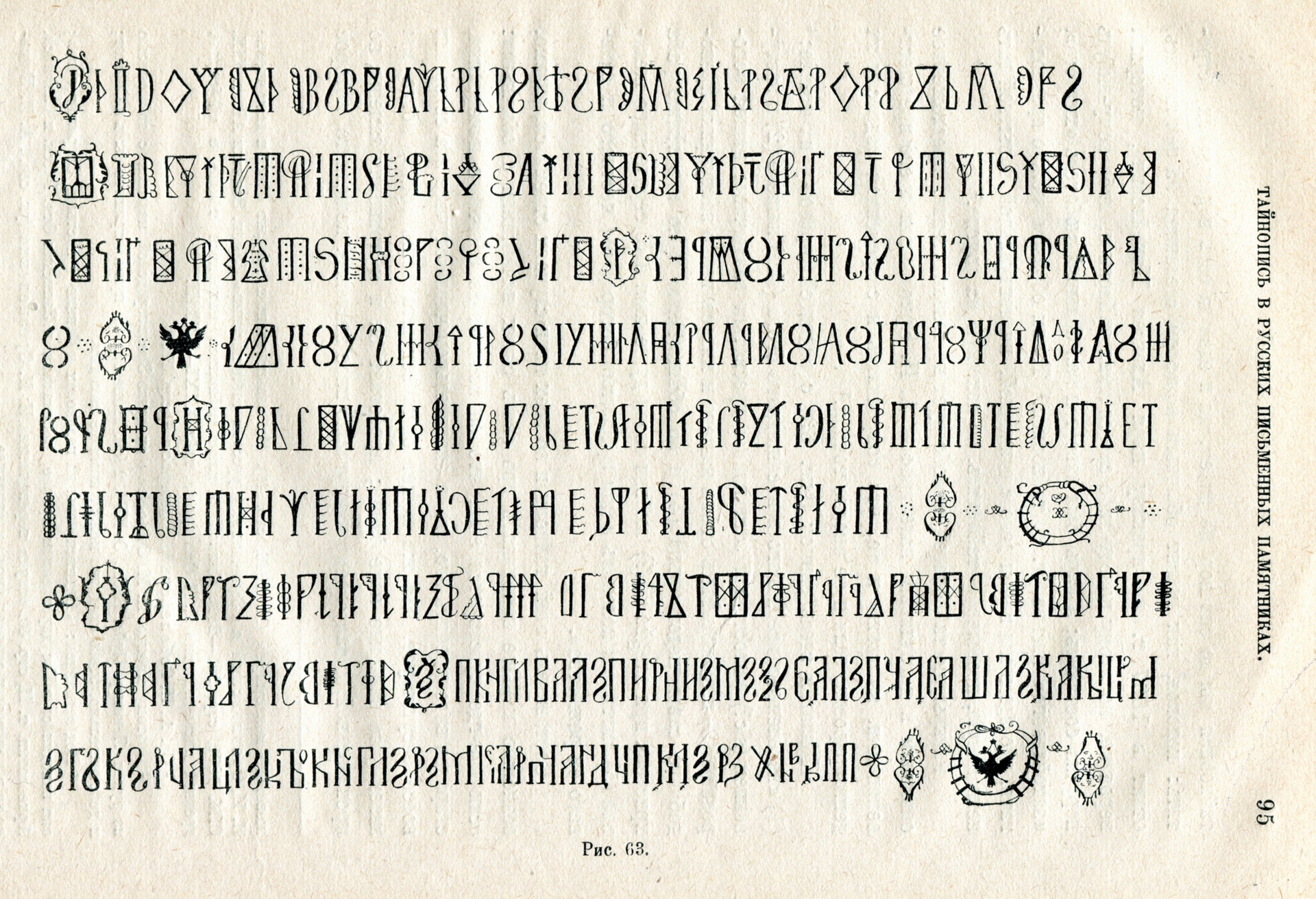
Though I think this very script has nothing to do with the permian, that video mentions some other accounts of non-kirillic writing systems used in moscovy. нас заковали москали. кали цари k-ings z-s.
z-r zar kniazer khazar? knyaZ Znatt (weed suddenly hit me high, I guess, reading it later)
г-дь г-дин господин господень божий человек божий народ боярин богач богатырь богатырень
боится трясётся бьёт тряплет трясёт просит prays бьётся// цwhat do
That piece of the bell is from the russian public opposition to official academia, it's here not because I immediately see something in it, but because it was in a film about anbur my friend and colleague who helped me with .odo have shown me, and I also want to collect all the writing systems, even invented writing systems deserve being preserved for history as clouds around tree of writing systems, simultaneous with the language tree. now back to the black text: only why didn't they teach us that? why would they drive us crazy? also nationalism and separatism are felonies in putin's russia, pr, P as rusia's torch at olimpics:
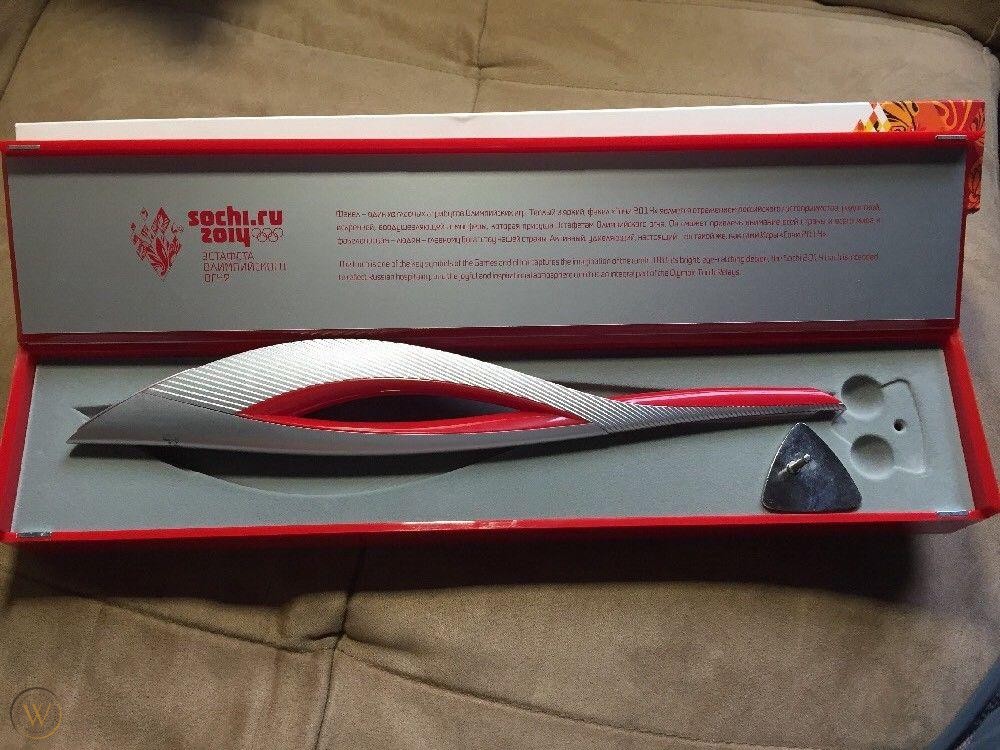
For russians it's Р in Россия, for foreigners it's P in Putin, so I may only hope that next will be navalny because n is п in путин (doubtful foreigner, see the cursive forms) that sosni zainцу's another story.
Even though I recognize another jew in navalny, they play us like children, but their games brought me the understanding of some bond between several letters:
n-п-p-р-r-г-g-д-d-D-and back to ᚦ and р and p
g-д - see russian cursive to understand (same as with m-т further on)
let's find the other raws like that to see if this game even plays:
b-B-В-v-u-и-И-Н-h-n-ν
b&d are supposed to be the opposites, but they meet at n, but they also meet in roman cursive, where they both look in he d-side, only Б (there flipped to the left) has a longis-kind just as ᛒ is double ᚦ.
M-m-т-T the weirdest yet thoroughly separated from BD, so that is how it is? Bd and mT
That is ultra funny, because they look like Majuscule and minuscule forms of Bb and Tт
Oh wow, no need to see cursive tables, т is officially the italic form of т.
little form of B could be farting sound or was В [v] as that russian letter is, and B [b] is its english form.
but then it doesn't explain how d is a small B other than ᚦ is a half of ᛒ
Was it semantic notation instead of phonetic one? Two lips, but only one tongue.
Tт contradicts Пп a little bit, because in cursive standart (устоявшееся искусство? fole etymology)
see again:
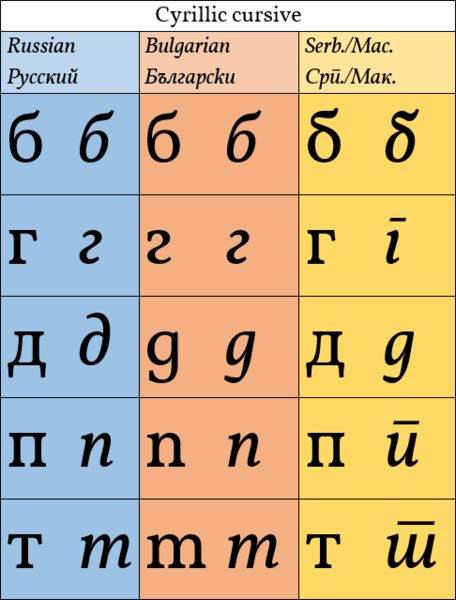

it's as if ПТ challenge the order of MN, as if П is M and thus n is m and N... error, error, building of a sand, guessing too far, bridge doesn't want to appear, or I simply panicked, but it's something to ponder on that's for sure, only if this cursive isn't cursed, because it delivers some mindfucks, like why д looks like g? and why п lookls like english n, and especially why т looks like english m now?
I'm not sure I placed these two sides by side, I must be sure I do when I combine it in different books.
According to that right image, ч/ц is like ш/щ, even though the order doesn't support it, compare the majuscule forms, ⰀⰁⰂⰃⰄ of абвгд shows how free russians are about hight of such elements: в & д oppose eachother completely in the other font of theirs, where bubbles on them are all like the last one.
How reliable a source the russian alphabet? al russian regimes were rather ominous, so ominous that the current cleptocracy seems as one of the best ones, so shitty they govern us here. So wasn't russian writing mutilated to fuck us up especially: like russian cursive fucks us up, why would Д & д look differently in cursive, and they both look differently, but especially д (that's italic д, but it goes g way too, which is especially f-ed-up, but probably refers to ᚦ)
Back to that bell. Not that it has anything to do to my research, but it's a language thing, and as in the television manner when they feed the viewers some based stuff and then add some atrocious bs, I feel it to be my duty to take a good care of that piece I never even knew about. As I said, that misterious script isn't permian, but what is it, Here let me link a good article about it: https://dic.academic.ru/dic.nsf/ruwiki/505332 (mirror)
and a simple bilingua
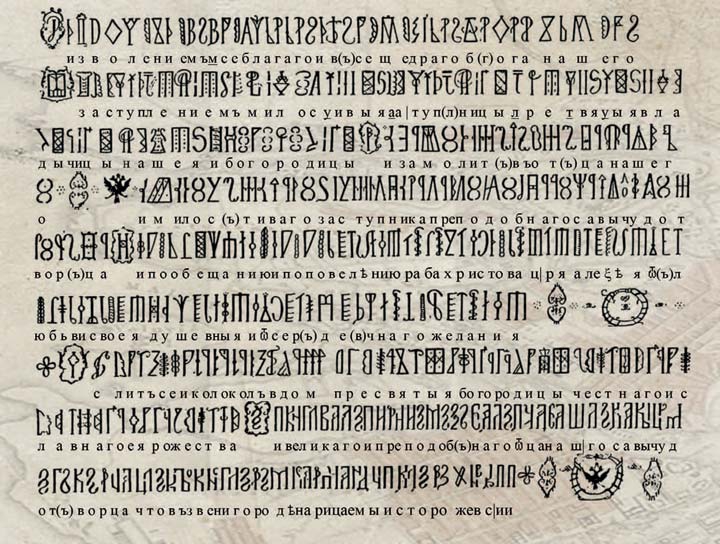
(it's like six different cyphres one after another, check the link above to see if it's okay. there they admit, that some mistakes are made, and that mistakes are considred by that freaky opposition to be evidence of the translation being false, but they could be explained by the artists not knowing that script (as it used to happen with chinese manuals in russian before the internet got better) and the tzar himself, who probably inspected the forms before the cast could be unable to read them without the tables of his)
I took that episode close to heart, because I saw one of my discoveries used by somebody else (and I cannot patent history or to let other people use it, but I told myself that they will attach to it shitload of their own shit, and those this bell thing is an interesting curiousity, it is probably work of art of the tzar of the occupiers, it has probably has nothing to do to writings of the conquered nations, it's just some high-ranking retard having fun. I refuse to keep on digging into that episode for now, I only keep it here because of that n-п-p-why doesn't that p go more г-like or rather г-like (that first one is just in italic)
but to my surprise that г would look like what I was looking for if you placed it instead of ɔ in p.
yeah, because of that being stuck in this part, and it's also freaky in its way, maybe even freakier
Бd and ПMт is a great breakthrough, so why worry if some people spread my thought the way they can, it still get out there, I can catch it later, I also can prove that I was first (if Fomenko didn't say it first. I contacted both him and Nosovsky, because I referred to them and not only in the freaks.html, so they could take it from that first volume (but I backed it up just in such a case, or if they spoke about it before me, then I should stick my чсв into my own. I don't really care, but I do. not really. yes. but not too much.
ᛆᛒᚦ would make more sense if d was a consonant form of a (as if they both were da, the one syllable of some prehistoric syllabary) then it would go 1212121212.. and just as ᛒ is double ᚦ, so ᚾ is double ᛆ and thus again e ~ o (because aa is o, but it makes more sense if aa= o, oo=u, but then again ee=i, so does it say that u = i? which is strange, because и [i] in russia.
but why ᚠᚵ follows ᚾ if ᚾ is already doubel? 12122120 it all doesn't look right, and thus my guess is wrong. or was there a letter between ᚾ and ᚠ or I'm making it up? I most probably do. It's time to go work on my capsule, but I'm a commonner and don't just dare or what, please god reprogram me, I must build that immortality capsule, it's not enough to just know the way, one must also walk the walk. Please! Gods! Muses! Superstars! All make me mighty and powerful so I use this might for good.
So, in conclusion of this freaky day, I must say that language enthusiasts who are looking for russian scripts are desperate, because they grasp every straw, but ignore the based glagolythic script, for whether ertza (zyryan, komi, parmic) script is ancient or not, it isn't russian (even though it could be a criminal thing to say, as a free scientist I must.) There were writing systems on the territory of Russia before christians, because it's impossible that they wasn't, because the fashion for national writing systems was universal. Whatever, the possibility maps will be built with some advanced computing powers, I only set the vectors, the fractals will be drawn by the other beings.
Why didn't I dig in into that knitting stuff, I found it and as if left interest to it immediately, and that is how I usually work: I discover something, I let it lay, if it matters I return to it. or am supposed to.
but one final chord:
The city where that bell used to be is called zvenigorod (toll-city) and for whatever reason their emblem is like that, with 88 in the centre of some seamingly meaningless text:
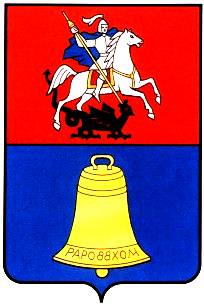
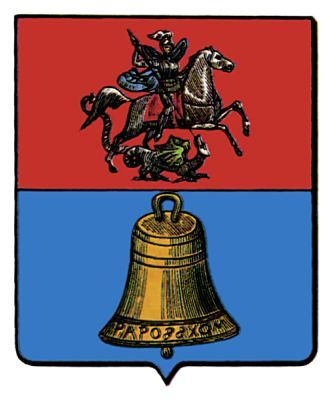
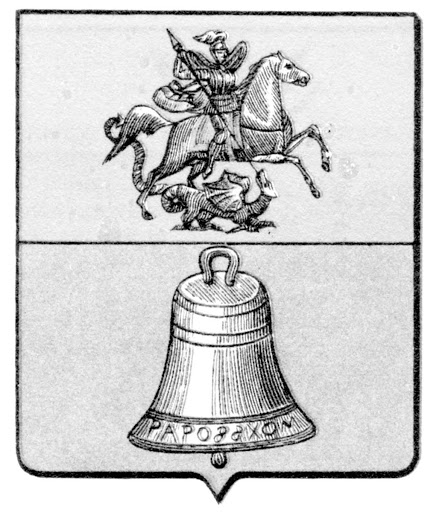
is it also why they call us racia? are they preparing us to be cannon fodder for another rahowa?!!
fodder feeds, huh
So I guess the first incident of somebody using my research (if we call my thoughts on anbur research) was good enough: somebody translated my separatistic tendencies further the knoosphere with a sticker on it: I had some pdf-library mirroring my pdfs and now somebody transmits it further as their own. ir could be some plural suffix like aettir. their = те их? иf ich, whiy the?
eir ear ух
i ~ и
a ~ у(u)
are all these one letter and only o is double a? a is oi? or si as duh? as is is? a is i? a as ا?
ו doesn't wan't to stand peacefully with that ا on the same line (try to put a spacebar and ו after that ?)
ו is o and u, thus any vowl could be |
разделитель? не бру, а беру, типа тпру, стой, сними той, buy бери, буй (стопори?) бери? обуй вокруг возьми (кожу вокруг ноги продают?) обувь о- boot, boot is boat? 𓃀-ed or 𓃀-еть. 𓃀-ell? 𓃀-owl? 𓃀-rake? 𓃀-ellow? 𓃀-ong? 𓃀log! 𓃀ox 𓃀ottle 𓃀 значии стоячая, ? ШэI'm so high? , why dare I say? don't get hight until you're adult, I took tit since 16 or 18, and I don't recommend it to anyone who doesn't made his or her serious opinion of what cannabis smokers are in the society and if you want to be like one of them, and depending on your personality you will whether see musicians like me and others or you see them as slobos. maybe my trippies are you most or least favourite parts.
𓃀 shows flat bottom in some eau-ed-el
𓃀 keeps the ox still (standing, st-el)
𓃀 makes your log not laying in your table, but up as on site (not down)
𓃀 is standing (as in thang instead of thing)
𓃀 is standing yellow, as if he pissed himself, that's why yellow is associted with cowards in english
a𓃀ove is showing ab as up?
abnormality is abov normal level anomality, so it's not ab, it's a.
a above
b belov
a obey (не дерись)
b бей
a ata
b baba mama
a ash пламя flame fire F? father?
b meim вода woта WM woman mother?
a d t
bmb
кирилица подделка под глаголицу как иврит поддерлка под санскрит
глаго лица - говорящие образы (конечно же это поэтическое осмысление, не вычитанное)
также и анбур наверняка имеет своё значение, а за ним и целая культура
(но это философское осмысление, тоже не вычитанное)
google translates глаголица like verb (глагол, cлово слогово) word = verb, d = b, do is be and be is do? verb v or b
d was b and b was v? В is V in russia. as if В is also Ⰲ turned 90° just as Б came out of b or Д came out of d - as if russian forms are latin forms tuned 90° clockwise. And thus somehow Ⰲ is an ancient form of V which also looks like Ф and M and UWand so on and מם𐡌 and 𓅓
and that owl makes Ⰲ more ancient form than B
did B form appeared when we began drawing bodies instead of faces.
so glagolitsa are calling faces (see litso in clockwork orange)
and Ⰲ is exactly gragolythic (lythic is stone, and it's as if litso is foundry, founding, and those who called lythic stone were speaking in stone age, and we acquired these types of words like face only when we knew forgery so good we had foundry? But then our language should be developing among vulcanos? or forest is better to experiment with fire? or is ll these etymologies absurd? I do the best I can, I wll sort out them later.
will = in all? вообще?* когда-нибудь, ? сделаЮ futURum but I'm lost again and don't know latin
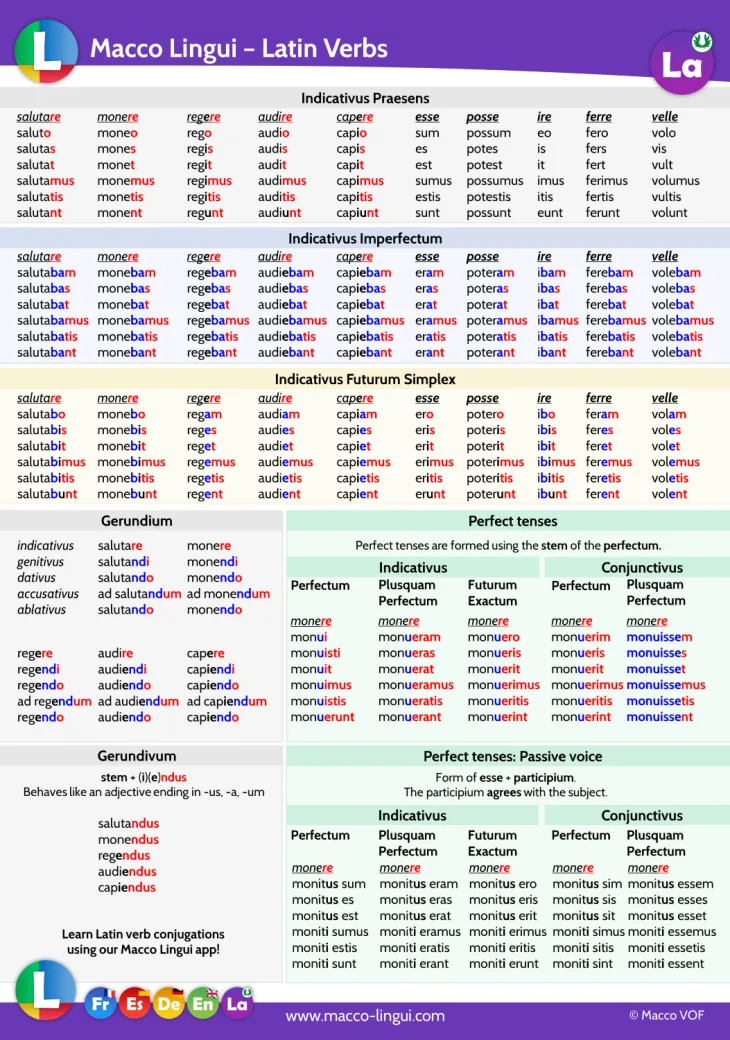
I tried to find it in a better quality, but only found this:
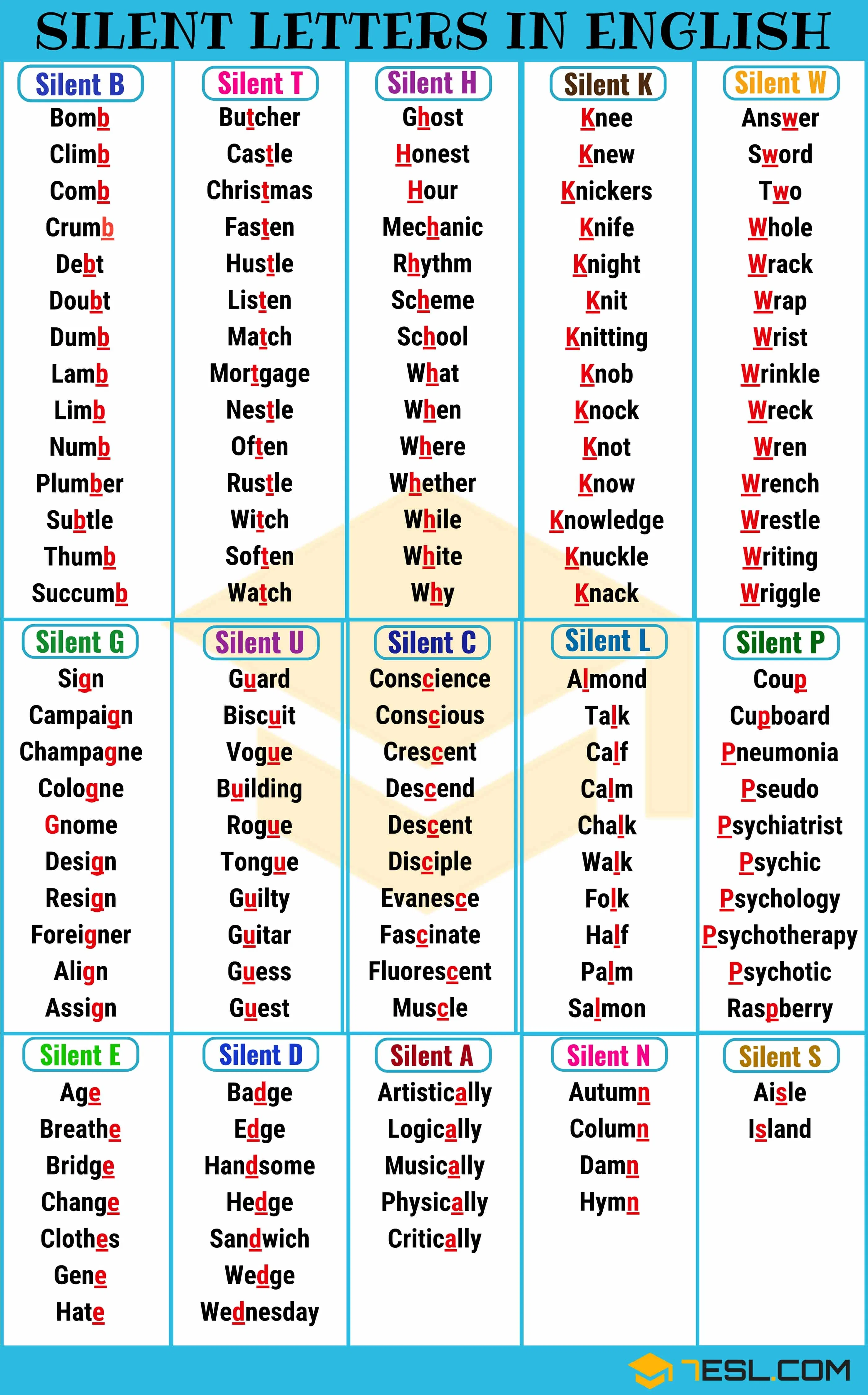
And I asked myself? Could these secret 15 be those legendary 15, the original canon of the alphabet?
ABCD
EGH
KLN
PST
UW? nah
So that trip was high and low until I went of f the track.
let's conspect the tasty pieces of the trip:
Ⰲ was before B
глаго лица is probably главо лица or гласо лица глотка т, с, в, г
вгст I wonder what it means. гла mattered the same thing and вгст changing changed the meaning.
глава вааббще,
глосо голос с эс ин сэй скажи ска~жи ска-зывай жи ори жжи ори жги оги I dunno, could be.
глото if all гло is head, глв, глава главна в энд н сффиксыс
𓃀 lives in b
a above
b below
if b matters in below, it's 𓃀
a thus is 𓂝
and if it's in above then that ab is up, and shown by the hand up 𓂧aar
𓂝rm
han𓂧
𓃀oot but 𓆑oot
улиточка считалась подошвой? если всё живое на разных уровнях развития (что видно при сравнении человека с обезьяной, то улиточка лишь подошву и ноготок или клювик или череп или панцырь черепахи
Let's use egyptian symbols more and more.
I will when I install some patch or attach or addone or additive to my station so I can type with egyptian b d f g i k m r s t to see where they lead me, eventually writing it all in egyptian letters and watching how the meanings floeat.
leg is 𓃀een [bejn] in dutch (bone is also been, so they saw bones as legs?, plural form is benen)
foot is voet [fut] and poot [pəʊt] which pretty much unifies all the labial (except m)
been en steen is bone and stone, начало и конец, bot is also bone.
Yet in deaf alphabet a is a fist and palm is b (d is also palm, but in the form of closed c (c is a palm showing c with thumb for the bottom end and finures for the top. why finures? gingers, fingers....
d as closed c
b as closed ɔ
and thus c is a for some hebrew alephs remind k?
male and female, yang and yin
But back to the deaf stuff:
I was speaking looking at the end of /deaf.html (which was end then, my now, here it is again)
.jpg)
but there are other sign alphabets:
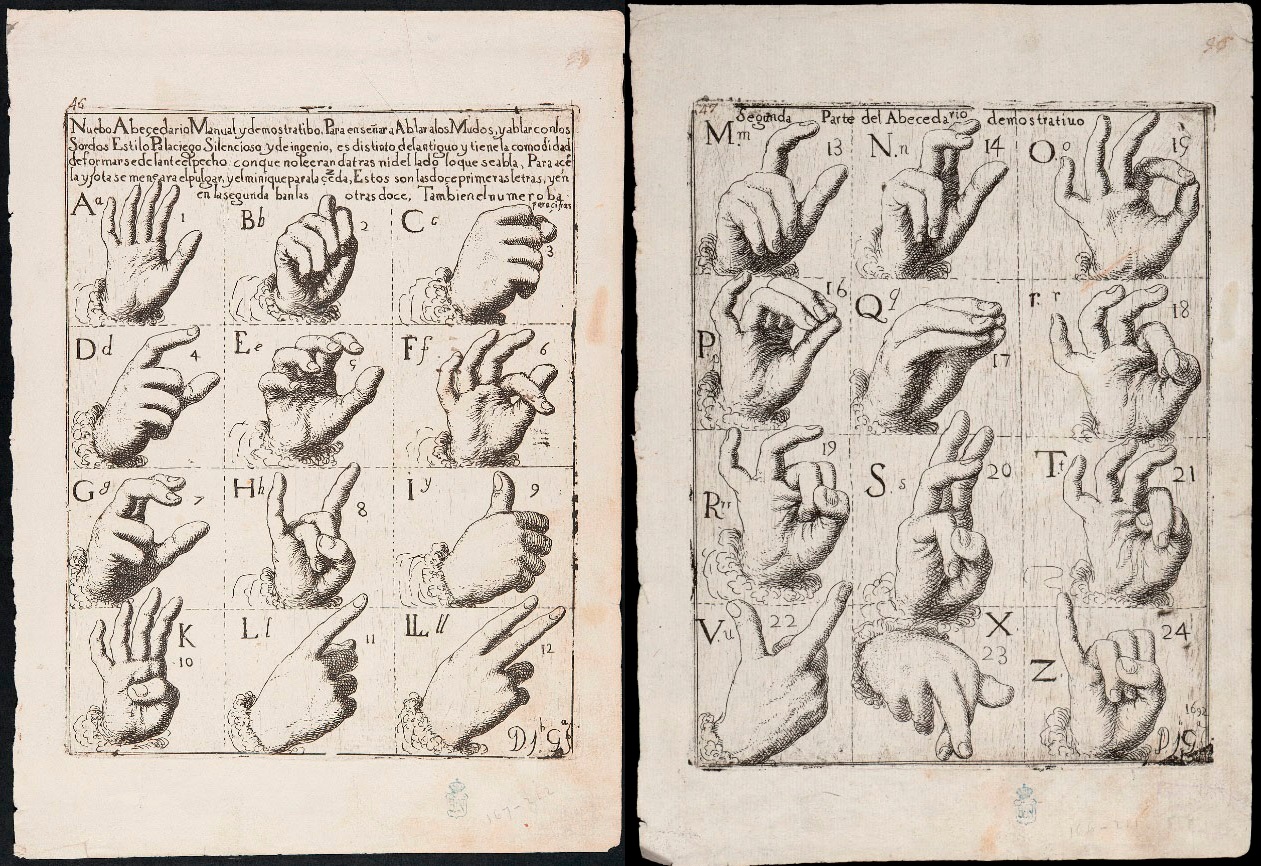
being completely different system, surprisingly L O and T are the same, and some other letters demonstrate similar meaning (if the mining is in the fingers themselves, compare E, F, M, N, P, S, Z, especially look at how there are two R's in the second one, so these three variants are as if R occupies two fingers, and you can press any of them or both. Why is it here? To make it clear. It makes it more complicated, but it's here to clarify the first of these two: It's as if it counts fingers FGHI from index to pinky, L is similar to G which reminds me a lot, MNO simply draw the letters in air, on both tables so, PQRST counts fingers back from pinty to thumb or rather it's as if it's FGHPQRST, notice how o reminds s as if it's σ (Q could be the nameless finger, but then not to confuse it to R, R doesn't need thumb and Q is modified too to make it clear. Hh & Ы are the other uses of this simbol, as if for Horns and for drawing the letter in the air, like those MNO are. Now I wonder if those 15 letters are 14 falangs and the whole fist for later-induced A?
Look what I found: Ivan or Juan or Sven:
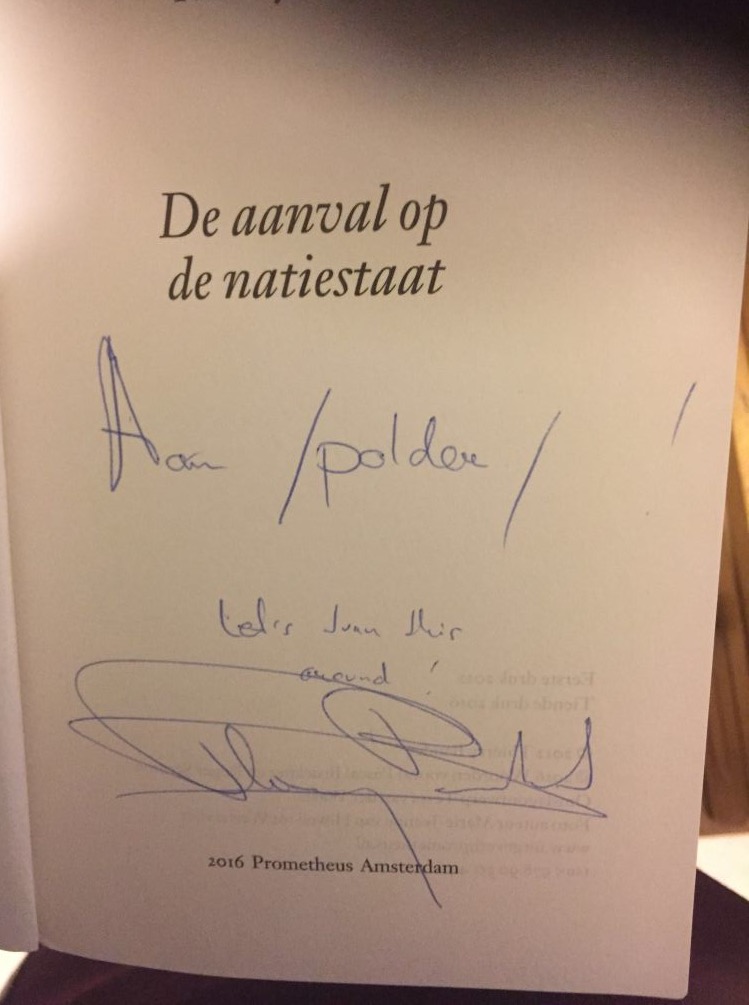
probably I can see now why cursive is called that.
I even read around as world, which maybe stopped me from readin that ivan word, still can't read it.
but if' it's let's s... this around, his s and t look very much alike, huh, drawn differently: s in one line, t is in two.
Here's an ironic truth: I learnt scientific method from a protestant pastor: 1 2
observation, hypothesis, experimentation, theory, communication, replication
and now I apply it to my work and I see some irregularities:
I experimented with hypotheses I got during my observations of the language: armenian regained the link to the structure I've onserved when I digged depper in the past (in Mashtots's students memoirs)
So now I must build my theory, but theory began growing further. I had hypothesis that the structure is universal, so I observed (during the "experiments") the other languages and explained all the irregularities (greek myth writes of 2 vowels added to the 5) only M is not explained properly, but what is Ζ and Θ then? ΕΖ/ΗΘ are invariant pair as in OP/QR and in russian after З(Z) goes И(I) as if Z is the final, and I is digits, 1I 2J 3K 4L 5M 6N they're tens, 7O but 8 fits O much more, but in hebrew 1i 2k 3l 4m 5n 6o 7f 8q 9Я
s is sto (hundrend)
я загнался, в иврите 1i 2k 3l 4m 5n 6s 7ayn 8p 9ts (as if tsadi is z)
100 is q 200r 300s 400t + 5soFits (co Fin's)
q and a are similar in latin, in cursive hebrew it's as if stick around a curve siply stands at the other side, and then yod is that curve? It's observation, but what it's hyposesis is? Hebrew ones tens hundreds somehow reflect each other? Let's see it in others bet, kaf, rush, all are very similar graphicaly, but almost three mothers in phonetic structure, it could be another guess, but a i q don't play this way, unless I recognize some form of p or ф - let's go on with the previous hypothesis
gimel, lamed, shin - gimel and lamed are very close in this work, I observed their similarities many times (mostly graphical, but 2's are also only graphically alike, but what is shin! completely different, but if it was S, lamed is very similar, and s is related to c.
dalet reflects tav I see it clear, the 2nd is M do die tav morte? I didn't expect this company, even though т is russian italic т(t) but now dalet is out of suit, colour, масти.
Did D gave birth to T and Т gave birth to т? В смысле не просто та, но моя, Not only that, but mine.
I-row is full of questioning postfix: did humans learn property when they began to ask questions? Просите и дано будет вам. а не каббалу ли я открываю: каббала как вера что понимая язык можно творить магию (то, что другие считают невозможным)
So let's start that good topic again:
observation, hypothesis, experimentation, theory, communication, replication
Justus didn't explain it, but I can say it myself, that theory is a complex of hypotheses, confirmed by the experiments (by the further observations, observation is always present, or at least in every second step? because hypothesis is made with the observations we already acquired, without looking at the randomness of the rest of the world, or is it just that additional observation, that allows a break-through of a good hypothesis? So observation is surely exist in experimentation, but building of a theory is again the thought process, only it works not with observations, but with hypotheses, observing the hypotheses about the subject of the theory. Communication is observation of that theory by the other people, replication is experiments they make (they observe the language with my theory in mind to see if they can find the contradictions to it)
I knew why I communicated it too early, at the stage of acquiring the hypotheses, before the theory was built. But that mistake lead to something good: now I can show my site to my investors so they see I'm not just some crazy pothead, but that I actually work on a problem or two.
So now I made it a race, I'm a racian, racist, racer, chaser, rats chat rock choke jewels rules)
parallelly to this text go notebooks (second (third of two) knitten notebook tells of !? being ab, yes no, and so on
Those notebooks mostly have observations, but also hypothesis, so I have to feed them all to an ai which would build to me the links between the observations and hypotheses to make me see if it leads to a theory. The larger hypothesis, that all morphemes are universal, will be guaranteed a theory while I have a head large enough to build it, to collect all the possible morphemes in a moment. Most of my observations are comparing different morphemes if they click or not. a net of false (failed by experiment hypotheses should be also built, separately from the main, confirmed ned of observations (see if it connects into a net at all)
A lot of work is to be done. I make it online, which is awesome, I died to see drafts of the guys I read as a teenager, I guess some young blood is lurking around gulping this honey or smoke.
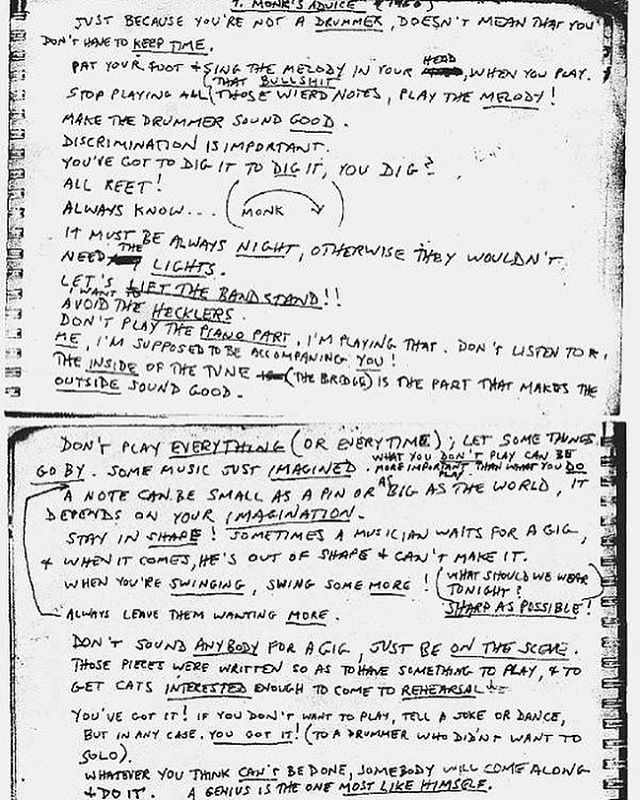
Monk knoW
's (in english, latin, greek) is it the same э'с sit, зад, to shy (shaddow) the euphemisexed ass.
x could be (but that was typo) an unknown letter, как звонкий вдох, если как тот же самый, то это многое объяснит про русов. приты as's но русы как's - and both are probably c, and could be a luckier, purer form, k could be tabooed for this reason. (I just erased "was" in stead of "could be" because I knew it was not some holy typo, but an error, errors erase. oh! red light! why not arise? errors later arise in the form of a problem. and error A problem B crashing C?
monk know made me read upside down, erase turned in a saje 一 я сначала подумал в саже, а теперь вижу что может и sage 一 I first sought of шалфей, and now I can see there a sage, мудреца. same se as in science and conscience. I scio I know. sc as kn? c as n? g? ᛜ? Ŋŋ is literally eng, as in english, as if those were two brittish suffeces: ing and ish who could be two mothers? B & T? and vowels are still don't always considered to be letters, but positionally vowels and labials can be together both by their positions in alphabets, and because linguals (the C's) are twice as much or even bigger if tey unite. I hope there are 13 vowels+labials in english, because it's a 26(-letter) alphsbet (s for a, why? next button) a b e f (h) i (j) (l) m (n) o p u v w y — withouth grey brackets only 12, n~m? or h~n?
but b is closer to d — it's hard to believe b was considered among vowels than among d, they look so alive, but are as different as
as as так как (as is literally kak, both are c, both are que. c срань и caca & ссу waste, shite, w & ш мит эгэйн, э is энглийскиое а.
n is both m and п(p) ᚱ and ᚢ could meet here somewhowre
h is a form of n, some n with a stick, high nog i don't know. (nog is a typo instead of nig, wheteher gnigeh or nign or nig indeed I thought about it)
h is probably double i, see how H turned into И in russian as if it doesn't matter, and N is Н in russian.
N stands for &, just as И
и also is a pustfix of plural noun, just as n in german, ИNSZ are four mothers? four phases moon has. four week, four wigs? four wicks? four знаков, wick and witch are close to wit and wisdom and weet, and ведь? ведать see = видь=ведь? но это натягивание stretch. пространно. speculation? something like that.
ИМСЗ
IMSZ
I(wait) Z (wax) M (foolMoon) S=С (С is russian S)
and disagreement about C (B & D are much more certain across the alphabet) tells that ᛆᛒᚦ is ABD, and modern meme ABC just tells that... what... whether that it's of the modern period where C in some form is present in all the alphabet, except that norsk one from bornholm, or is it even russian, because only russians have Ж (also berbers do, and they worship it, and binderunen are often drawn around it:
Three goddesses are known - brits have more of ass than rus have cacs - also in non-jewish middle-east as Allat Manat and al-Uzza, which allowed me to put Uzza first, because al of allat could be also an article, that allowed me to declare them three mothers as Uzza Manat alLat, as if Uzza was winter and autumn in one piece, Lat would be l'ete - french guys have similar article, is it why they merge with arabs, frencha and spanninsh are visuably darker than the north. It is another form of subjugation, slow and lte stealthy
Now I see that Allat and Manat have similar suffices, as if they'r are aL Ma(N)
what is al ma na ch? el em en ts? ts is ты in russian (as if the you ты)
my text is so difficult, no editor will do it. In the past editors didn't show how it was before them, now we'll see who's in the wrong.
And I read about al Uzza:
она вместе с богинями Аллат и Манат входила в триаду богинь-дочерей Аллаха.
На юге центральной Аравии аль-Узза выступает в качестве супруги Аллаха, матери аль-Лат и Манат
Here I can only poetically guess that Uzza was уста and vowels, and Лат was tongue, Манат was lips
If UzzA are vowels, than it's childish cry of inhaling U and exhaling A,
and A gave birth to Λ and U gave birth to ν and μ, hence in and im
им and 'em is close in russian and english, and that 'em form exposes that th is the. in that too? the 't = it = это и то. th's as сие, в противоположность к то, те, та, тот, то-то. кто-то
к in кто is que. а что? dialectnot prochtenie? t is where е in russian lays on the keyboard.
the following piece (until he word tits) was born in socrates line, where it's doubled. Be careful not to double it when you edit it all in a brand new book.
about allat: אלה, אלת-הים is translated as These, the goddess of the sea.
Where אלה is both these and goddess, not god,
both אלה and אלת are goddess
but אלה is also those and these, just as I read about Elohim, where im is the additional plural suffix to a plural word as it seems. only im is supposed to be male suffix, but אלה is not god, but goddess, thus we consider god bigender, as if it's male priests playing roles of females, as theatre we know of declared to be a norm. Read socrates_line.html to know more about this, but be careful, it's a messy rabbithole.
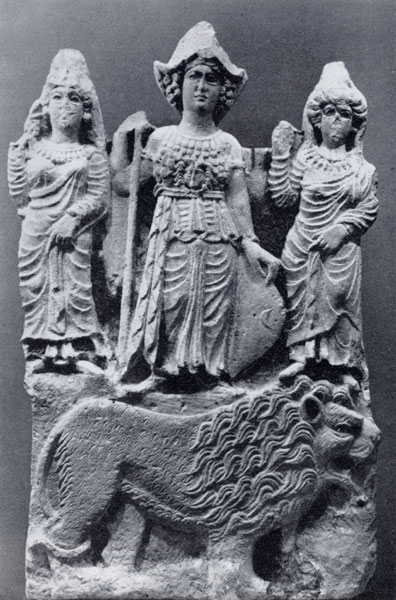
Allat is believed to be in the centre, accompanied by Manat and Al Uzza.
Uzza is the only one having a separated Al as if uzza is mother and suffix is needed to say that it's their mother.
тех shows that те is that very the: because их is the sinonym, just as it to that.
те и си, the & she? h was sh initially, thus her, not sher. t is
that piece after Randomness was supposed to go to 7.html, but by some surprise it is placed in that very socrates_line I just mentioned, thus now it belongs here. I will rehash it when and if I publish.
t is ᛏ the male indicator of ♂
Doesn't that Allat look like a cross-dresser to you? A son dressed as a woman to protect them, and if such a priest plays in the temple, nobody understands how they give births without grooms, was it followed or preceded by the taboo on genitalia demonstrations? Those priests probably discovered shaving first, so they fooled the public. And "her" hat reminds te one of Mitra,
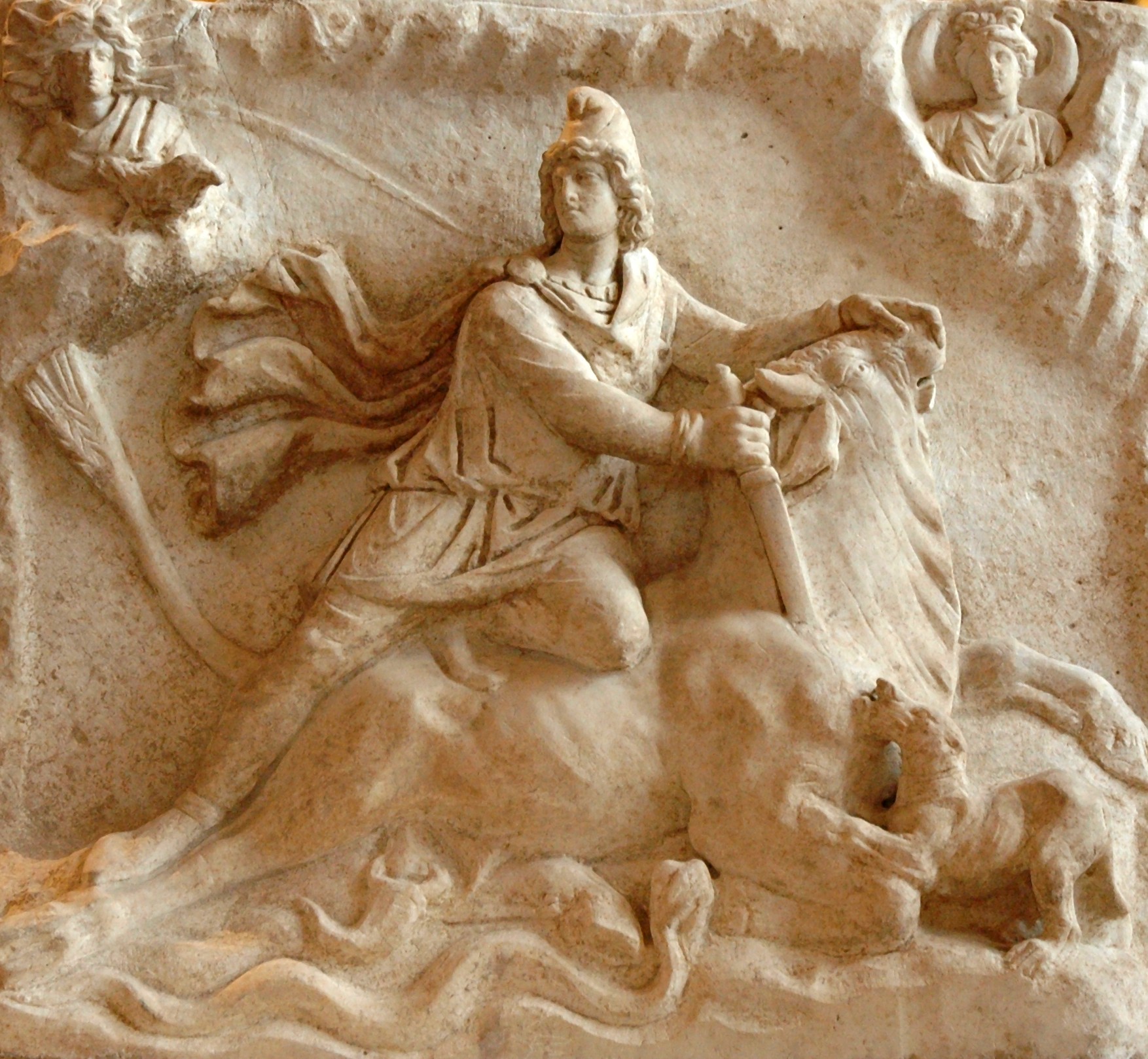
I thought to search for Allat and Mitra in one sentence, and what I found:
The Assyrians call Aphrodite Mylitta, the Arabians Alilat [Greek spelling: Ἀλιλάτ], and the Persians Mithra.
and there are more:
They believe in no other gods except Dionysus and the Heavenly Aphrodite; and they say that they wear their hair as Dionysus does his, cutting it round the head and shaving the temples. They call Dionysus, Orotalt; and Aphrodite, Alilat. (wiki: Herodouts, Histories I:131)
I used to think this to be a young woman whose tits are not shown, but I was gay myself to think it's a woman, the very same accompanying figures could be at the corners of the bas-relief. Snake and scorpio could indicate that this cross-dresser used poison on his knife to easily kill a bull, a female way of doing murder, so it's a prince grown up by the mother and grandmother or a mother and a wife? A family unit, women demand families, guys would rather walk гуляли (к ляле) гулять (to блять) but that's poetry more than science
See how at the previous image, the one before the bull, where the three "divas" are above a lion, there the coentral figure (Allat) is larger than other two, and has no tits.
Not knowing what to write on a next session, I wandered around pictures and found this magic:
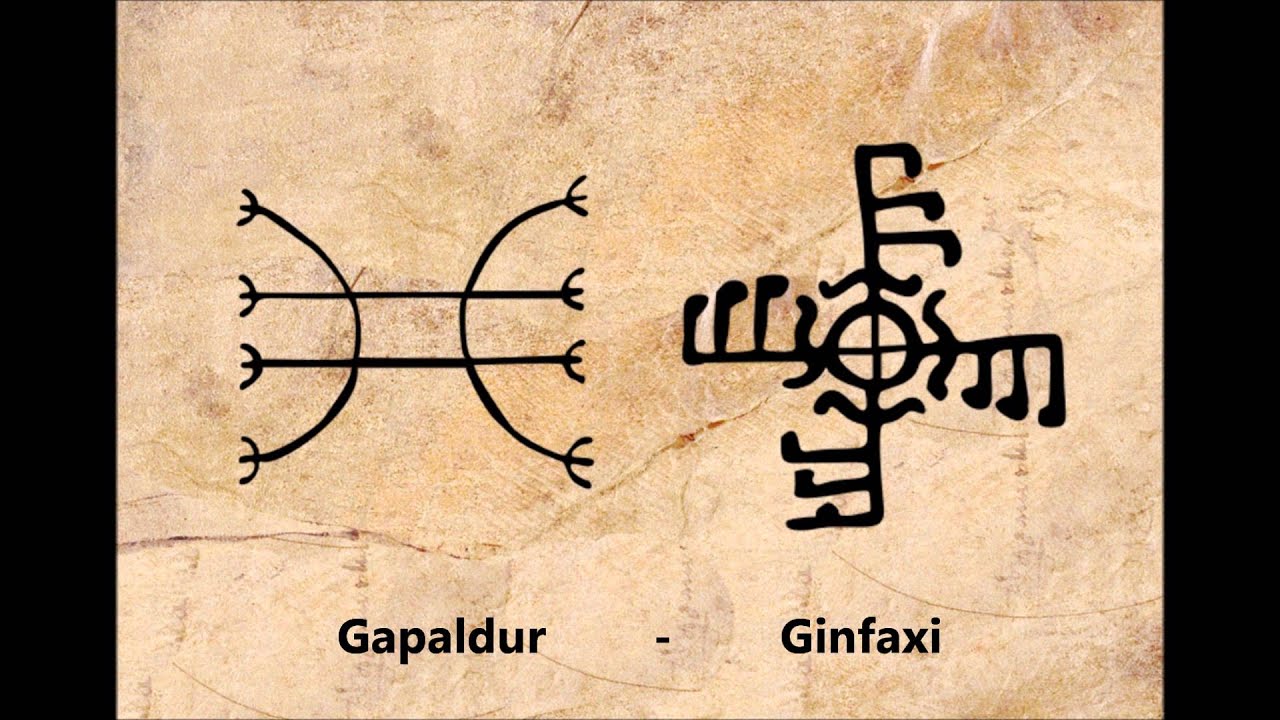
Two staves, kept in the shoes, gapaldur under the heel of the right foot and ginfaxi under the toes of the left foot, to magically ensure victory in bouts of Icelandic wrestling (glíma).[citation needed]
So the left one was under the right foot and the right one under the left, let's remake it.
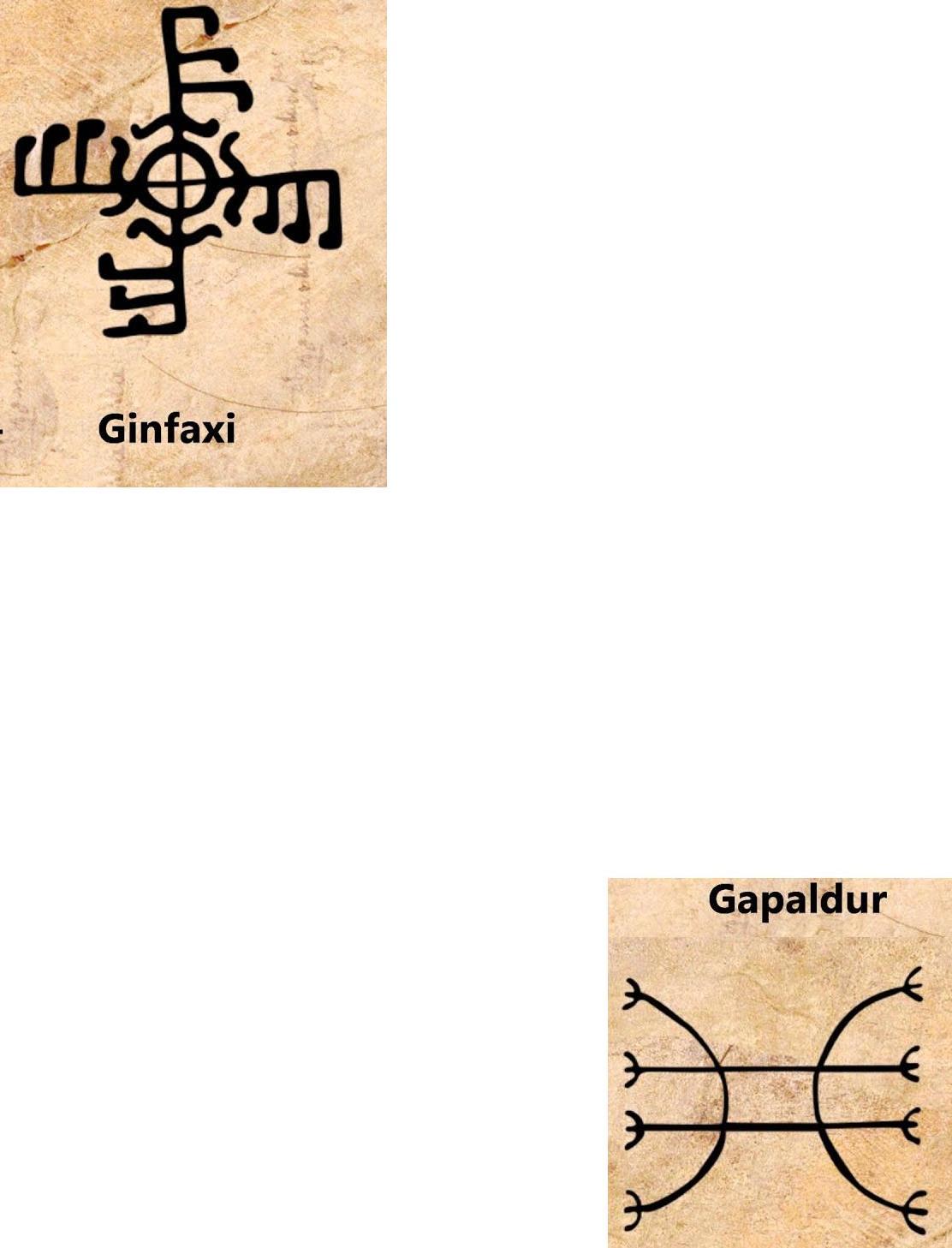
They look as if the heel of the right foot was told to hold, and the 24 ends could be corresponding 24 runes, even though a second ago I counted them falsely as 32 and corresponded them with 32 teeth. I have only 28 teeth (26 already, but if we calculate the hidden wisdom teeth, they will total into more than 28, but less then 32 (I probably have 3 wisdom teeth, maybe one was stolen when I was a kid, or they say teeth can migrate into the skull, so that cancer with a tooth I heard of could be a tooth growing into some anomaly, what are these crazy stories, scary stories, Anyway, the right bottom sign looks as if it's told to hold up. And the left upper one is commanding a rotation. the question which way this swastika rolls is present, because my first guess is that it's "затушить окурок"-movement, and when I think of that wrestling part of the story, it could be a command to kick, as if those are 16 to 24 legs kicking by feet and by knee, or there are only 12 feet and other waves are something else.
I confess that I have no idea which artefact contains a futhark of 24 runes, I just took this number on faith.

From a far I counted 27
.png)
could be 28, but I still think that rune is Ы
I'm probably wrong and there are 29, I need to see the artefact in other pictures and the canon in other examples.
That Ginfaxi - could it be a quadripled binderunen of EWO or ΕΣΟ or ΟΣΕ or.. EWOME.. But I see that E dictates the only reading EWO. What it means I can only guess. In wrestling it could be ЕГО [evo] even though г[g] if you didn't get it yet. Even though russians don't have W, but Г following В[v]
Look at this wonderful gothic futhark, which is a transitional link between runes and letters.
Look how ᚦ looks like Ф, just as ѲѳΘθ could.
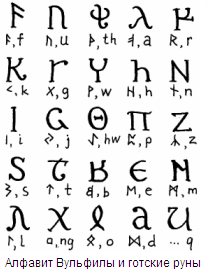

Then ᚦ is closer to P and thus first line of bornholm alphabetic runestone is all labials. Which reminds the egyptologic abecedaries, and demands me to go on, .BP.F.H so that only M&W are outside of the labial claster, just as in the alphabet I use now and in some egyptian tradition.
In the folder where I took, they are both named goty, thus they are different periods of Gothic.
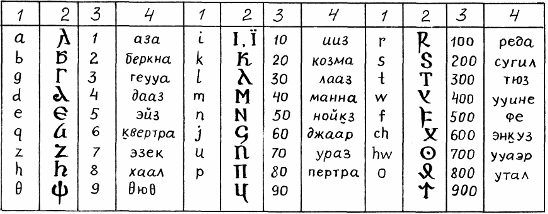
The 900 reminds the final letter on that sword above.
Something I probably posted before, but nevertheless, the vowels in hebrew, A E I O U:
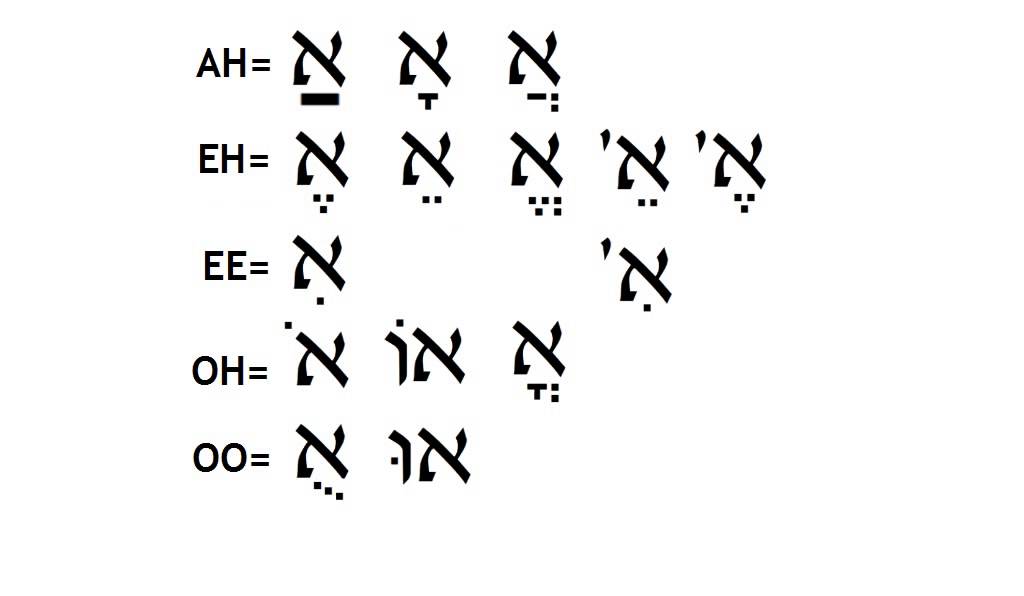
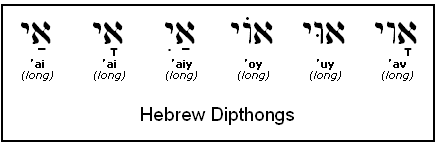
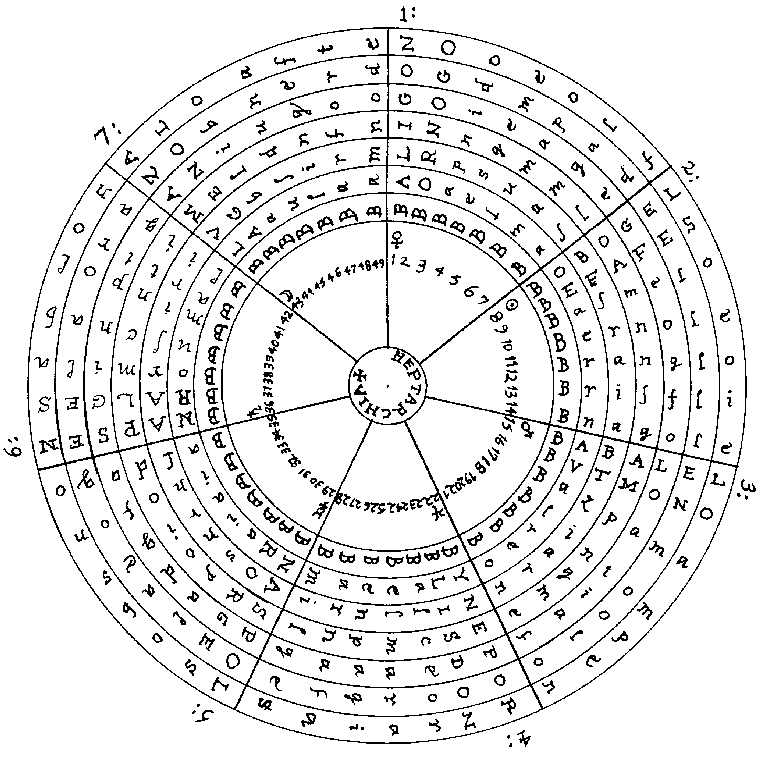
Heptarchia leads to some magical domain of John Dee, but whhat is that, I always considered it a quackery, and now I wonder if quackers are the words derived from quakers, folk etymology or not, such werds are cretin and крестьянин maybe too, or maybe not, why would villagers be named christians if kings were the curcifiers. That word was in russian long before the jewish revolution.
Here's the quackery part:
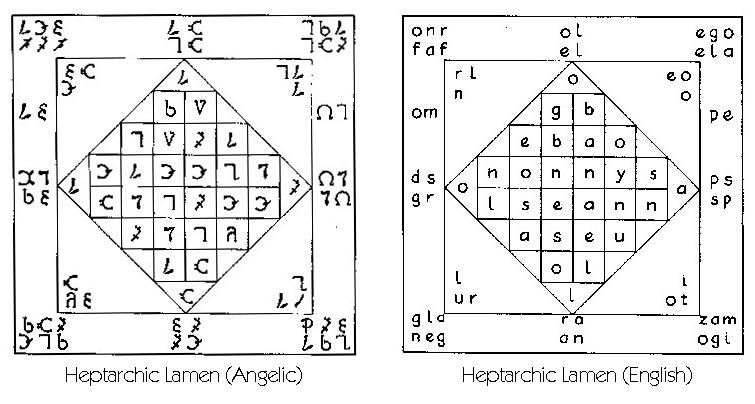
De Heptarchia Mystica, or On the Mystical Rule of the Seven Planets, is a book written in 1582-83 by English alchemist John Dee. It is a guidebook for summoning angels under the guidance of the angel Uriel and contains diagrams and formulae.[1]
As if the forms of those "angelic" traditions and the clueless canon of theirs was not enough to dismiss that theory, now such claims that makes eternal atheist in me cringe.
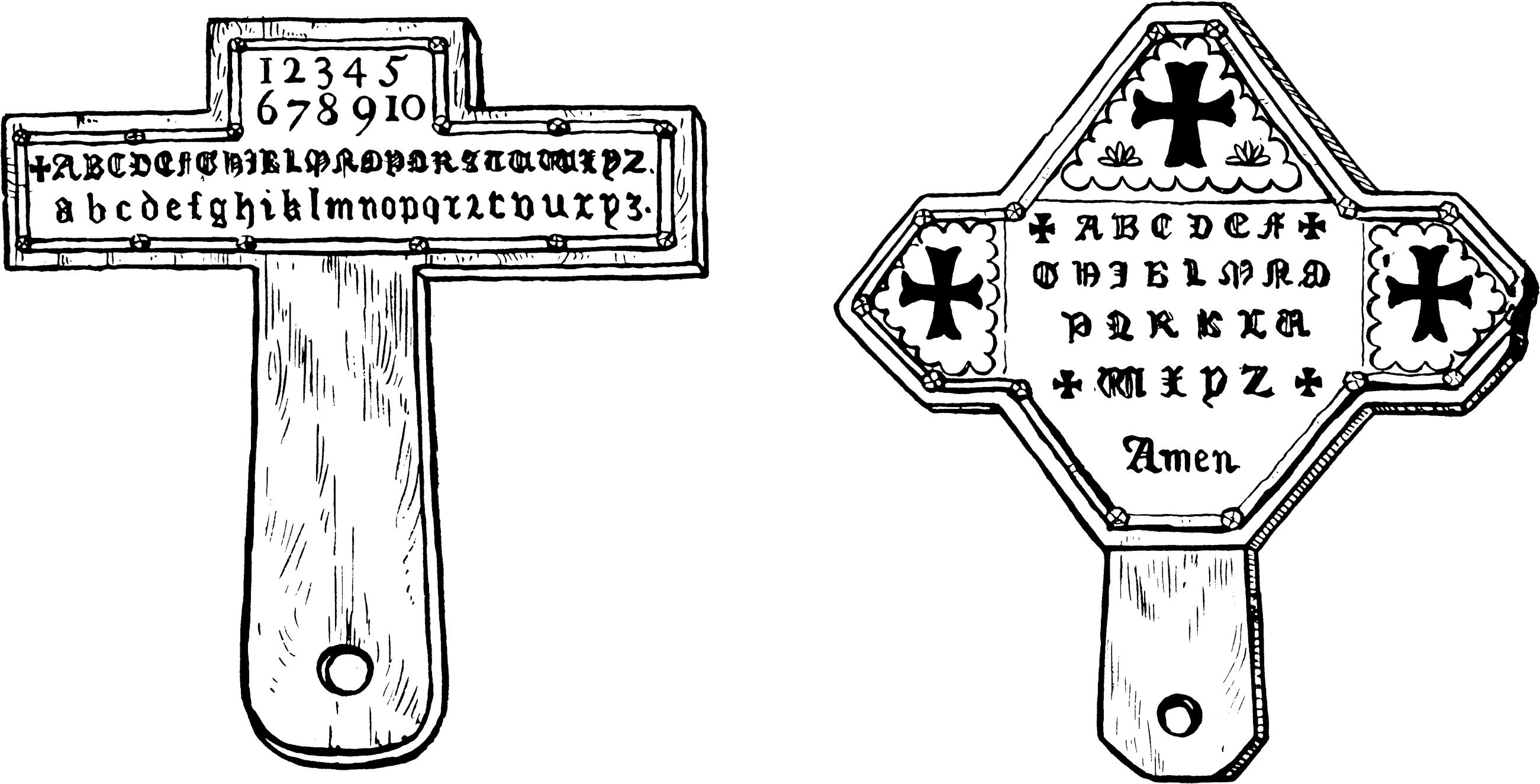
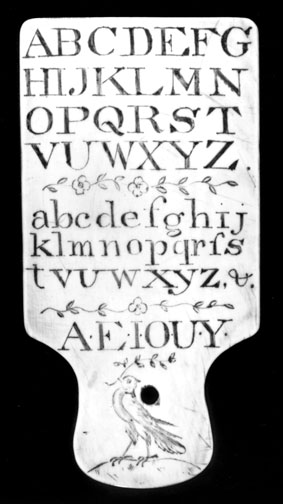 These hornbooks arrange
alphabet in unusual ways or is it T in the form of X, because
there's other X at its place. And what about V before U? Was V
vowel and U was V? Because if not, I challenge this hornbook
tradition for contradicting the vowel-labial-lingual traditions,
and thus if V is labial I claim that these relics are fraud
containing an allegedly more ancient tradition. I have to dig
these traditions (these hornbook things are relatively recent,
so should be documented well) and that
recalls the question about that list of abecedaries, which
included incomplete and rearranged alphabets, which my
"научрук" (actually just a guy who could be one if I pursued
an academic career) said to be a fantasy of an artist.
These hornbooks arrange
alphabet in unusual ways or is it T in the form of X, because
there's other X at its place. And what about V before U? Was V
vowel and U was V? Because if not, I challenge this hornbook
tradition for contradicting the vowel-labial-lingual traditions,
and thus if V is labial I claim that these relics are fraud
containing an allegedly more ancient tradition. I have to dig
these traditions (these hornbook things are relatively recent,
so should be documented well) and that
recalls the question about that list of abecedaries, which
included incomplete and rearranged alphabets, which my
"научрук" (actually just a guy who could be one if I pursued
an academic career) said to be a fantasy of an artist. But I still doubtful (I only asked him that because it was win-win: whether he knew what it was about or I would look silly to raise the self-esteem of someone saying "you're discovering new stars and we here muddle with pigs" (занимаемся животноводством или свиноводством ли он сказал, I just didn't know what meddle or muddle means)
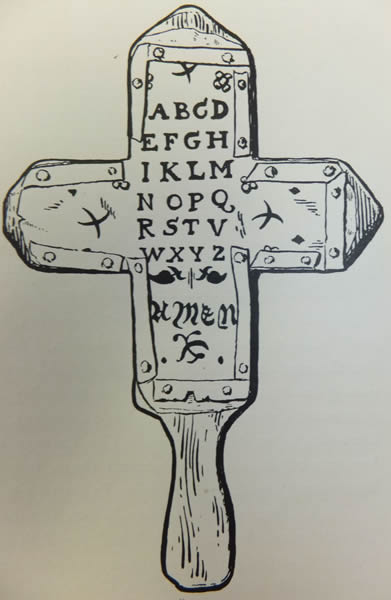
that Г after В makes me wonder how it goes around it, and I see Ζ where Z is:
А Б В Г Д Е Ё Ж З И Й К Л М Н О П Р С Т У Ф Х Ц Ч Ш Щ Ъ Ы Ь Э Ю Я
A B C D E F G H I J K L M N O P Q R S T U V W X Y Z
Α Β Γ Δ Ε Ζ Η Θ Ι Κ Λ Μ Ν Ξ Ο Π Ρ Σ Τ Υ Φ Χ Ψ Ω
Α Β Γ Δ Ε Ζ
U V W X Y Z
somhow it explains the position of Y, also I began to see it in russian, but greek speaks it louder, the russian actually doesn't.
and
Η Θ Ι Κ Λ Μ Ν Ξ Ο Π Ρ Σ Τ Υ Φ Χ Ψ Ω
Η Θ Ι Κ Λ Μ Ν Ξ Ο Π Ρ Σ Τ Υ Φ Χ Ψ Ω
does this threes between some labials tells that whethere Π or Ρ is redundant or is it just a chaos speaking nonsence? because the labials and vowels don't confirm it or does it tell of ᛆᛒᚦᚾ before ZF, but it doesn't make not sense, because in runes there's no Z in there, and in greek it's told that F stands before Z. So it's probably nothing, a wrong lead.
I think I already mentioned the following image, but I sort my downloaded pictures again, and this one worth repeathing, because I didn't notice the planet and days correspondence to the runes
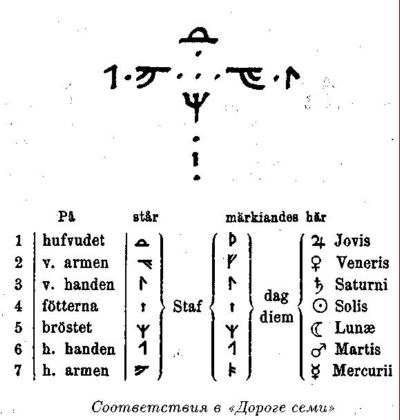
My secret wish to collect all the writing systems, ancient and modern, allows me to add something that I consider to be a modern development, at least the article under that picture tells that it's new. And I see some chinese influence in it, China is big in Africa today.
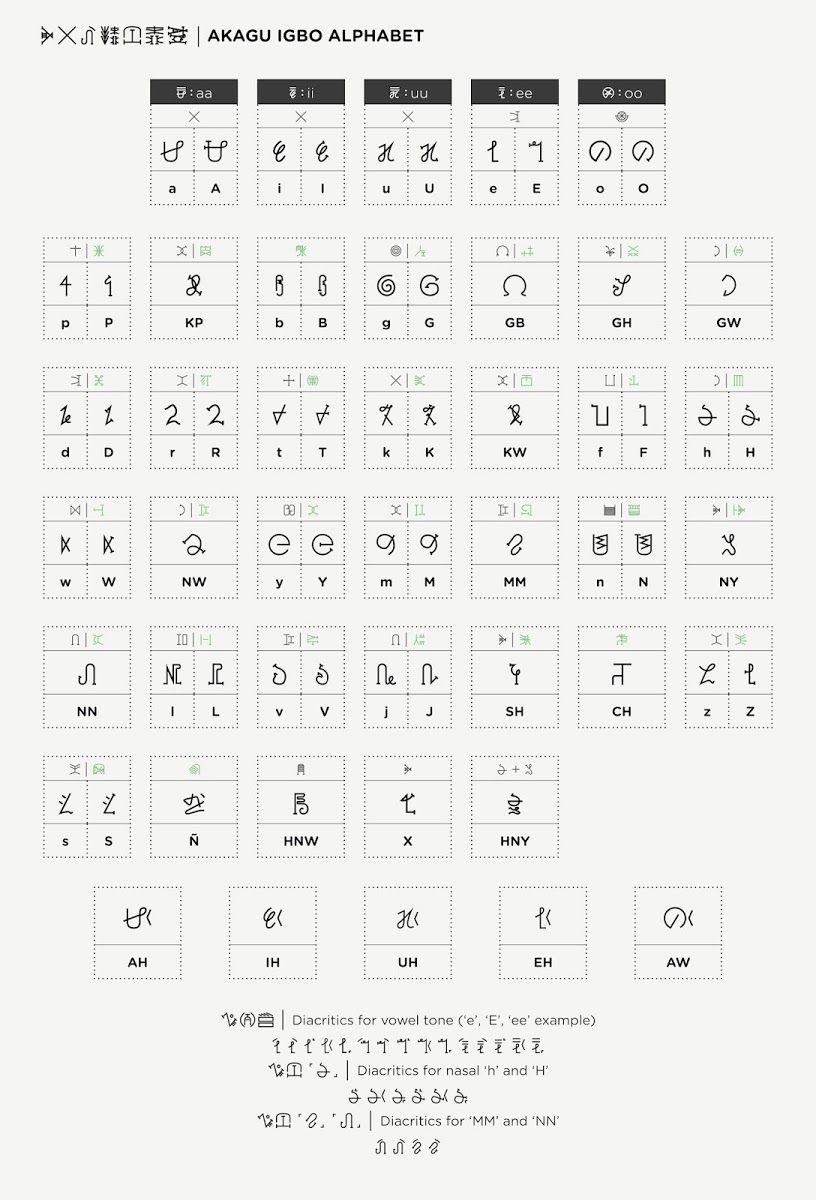
Not much of china in that table, but if you click it, you may find this video, showing how nsbidi is used for Igbo, I'll even add that video here:
(mirror)
Look how man and woman are divided into two phases of the moon, and those are clockwise and counterclockwise curves, so that is all very yin-yang, which makes me think how deep that system go.
and another table of the same:
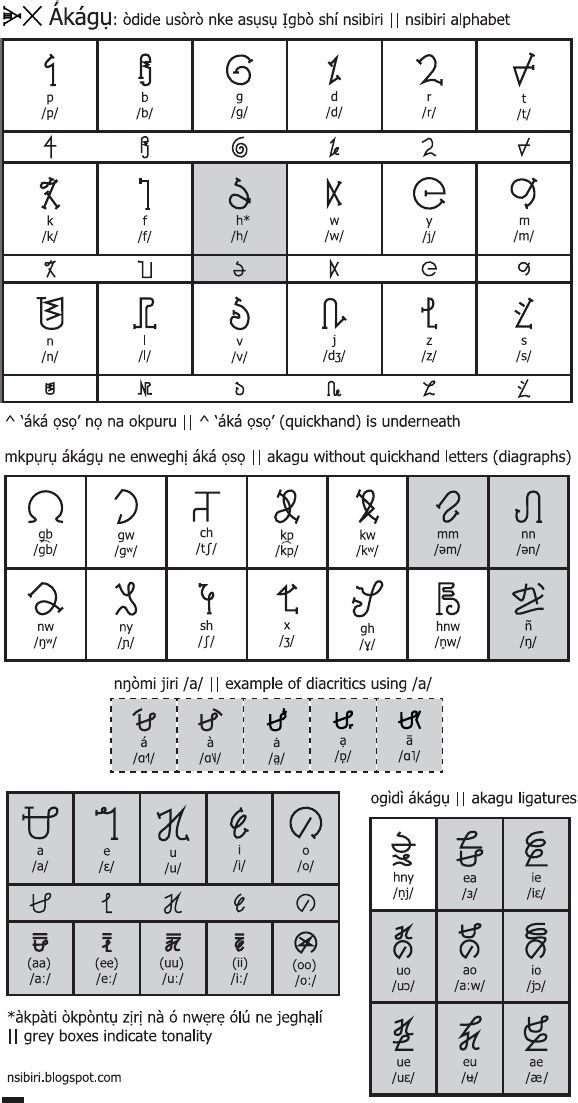
I'm still sorting out my downloaded files, so it's rather random again.
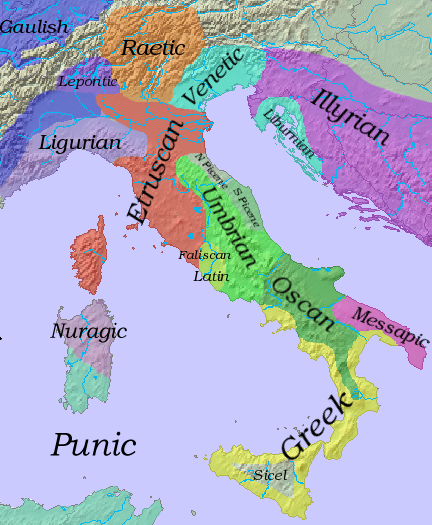
.jpg)
How can i know that it isn't a stylization? I keep it here because it looks like gold, and runes are ok, and it's just some writing on a language I don't know either it's genuine or not. It doesn't matter, just decors.
SIX withouth S is 9 (found this joke in the internet)
Does it make S equal -3?
If we see how C equals 3, we may guess what could -2 be, if B is 2, and P is a great candidate,
and such candidate Makes O equal -1, which is wheird,
because unless zero can be ס, it doesn't make much sense.
and if ס is 0, ע is -1, פ is -2, צ is that S which is -3, does this joke still holds? probably not, keep on,
ק is -4, ר is -5, ש is -6, ת is -7, which is funny, because t does look like 7 upside down, and ש like in שֵׁשׁ
But either way, this is some autistic joke which went long too far.
further digging through the random pictures delivers tarot symbols, let's look further into them:
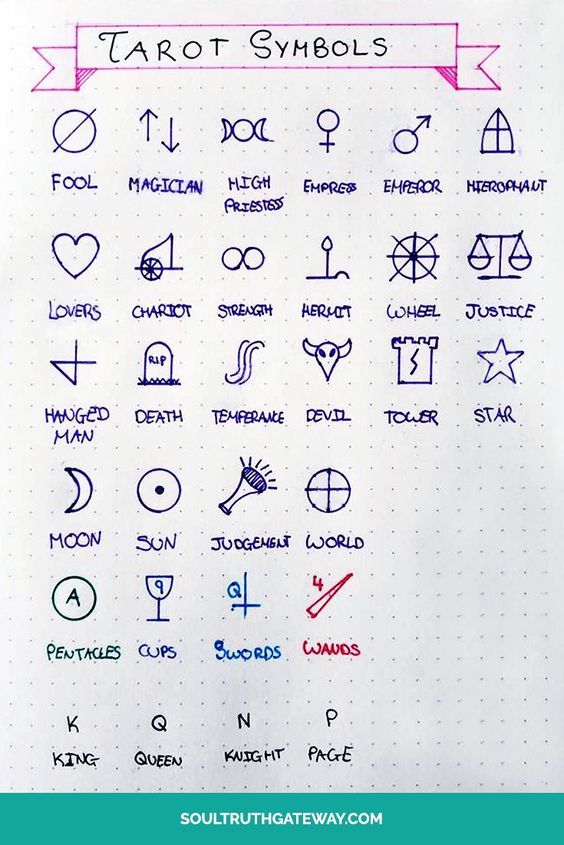
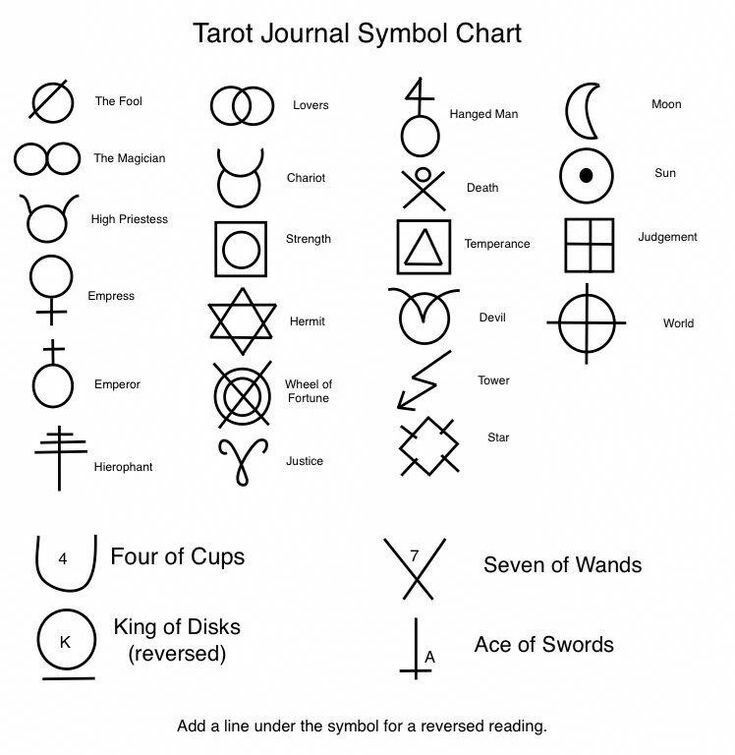
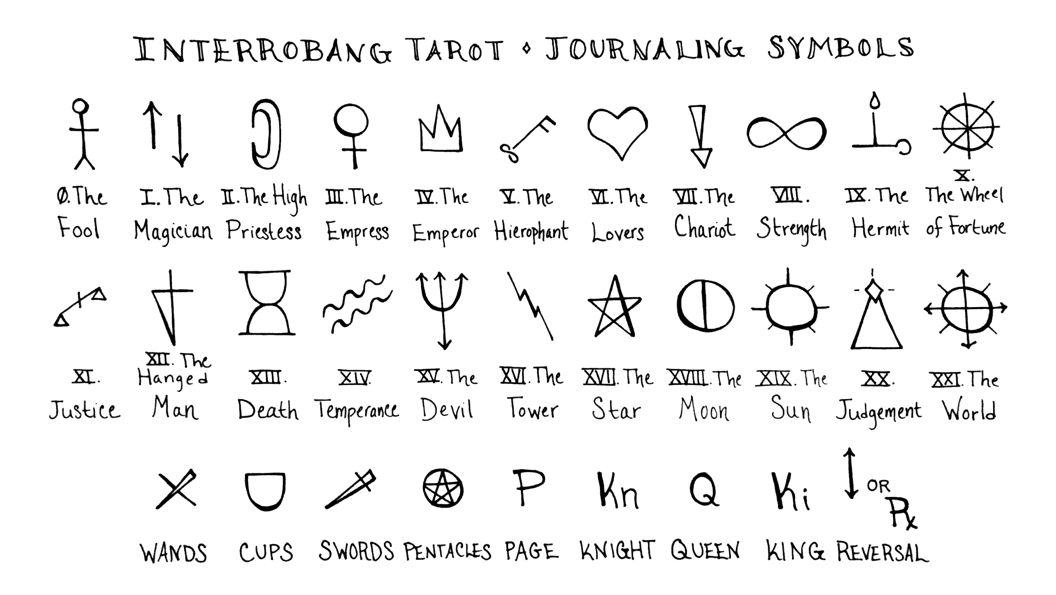
as we can see, three pictures, three completely different systems (maybe something among them is universal, and thus more true, we'll look at them later, here's some theorizing comes (the clickable one)
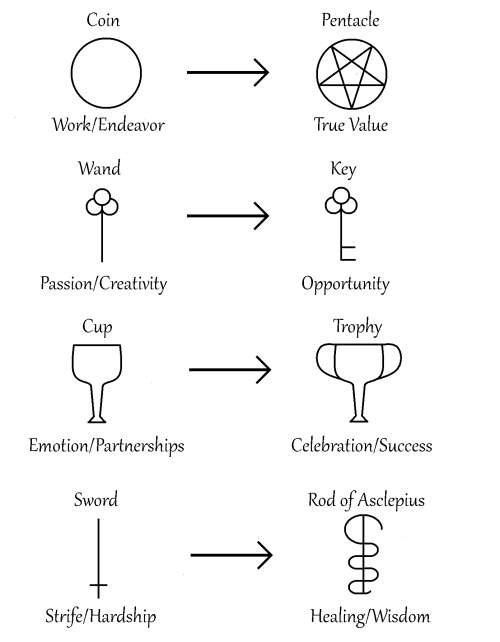 as you can see if you
click it, it's rather arbitrary,
as you can see if you
click it, it's rather arbitrary,but sword is as in the other two out of three, but wands is completely different, but the way wands are similar in those other three tells me that they could be some actual traditions, connected at some points, so we can see the layers to it, just like deaf sing abecedaries are different, but they all are actual.
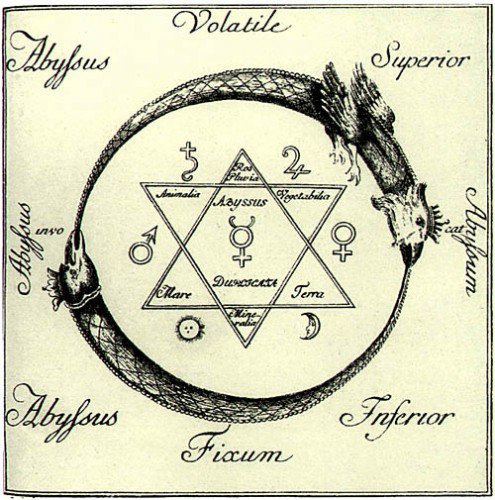
This one may correlate with the following one. And it does correlate in the sense of uroboros being an abecedary, I think I came to this thought before, I will figure it out when I sort out these pages in themes.
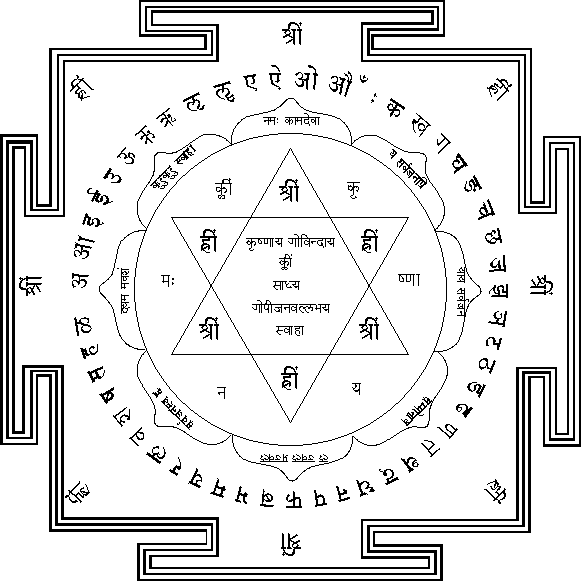
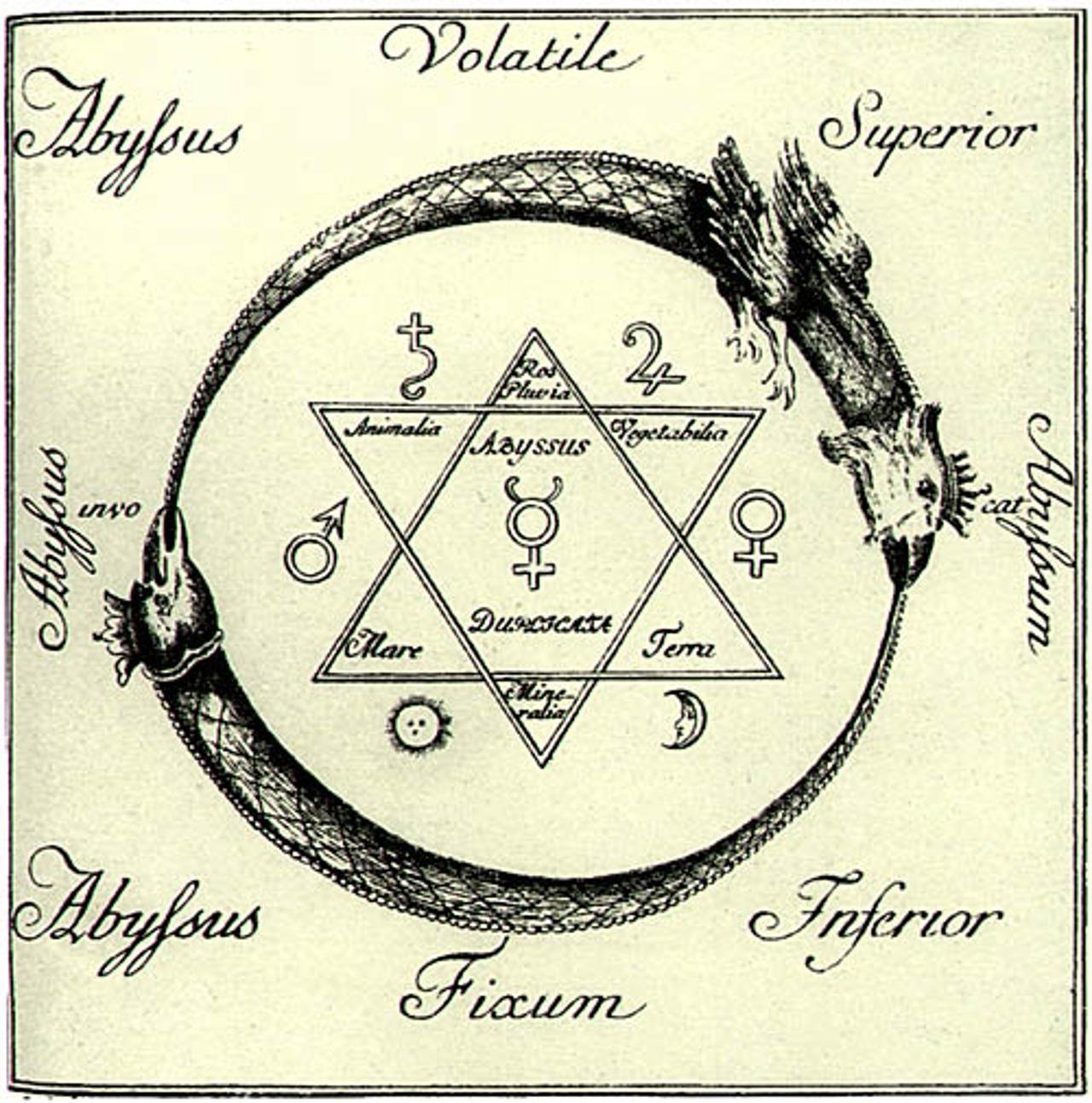
Even in the readable scale this alchemy doesn't make much sense: Why would mare & terra oppose not fire and air, but what is Ros Pluvia? it's Роса Дождь (Dew Rain) in latin. Either way, I didn't manage to find the explanation, I probably should dig for the book this image is taken from, so tiresome.. Animalia Vegetabilia Mineralia
That hindu yantra reminds the fleur de vie I showed in the previous volume with its lapels, even then it has only 8 and the flower has 12 or 24, and why it's here is that 6-corner-like-ness of the fleur de vie:
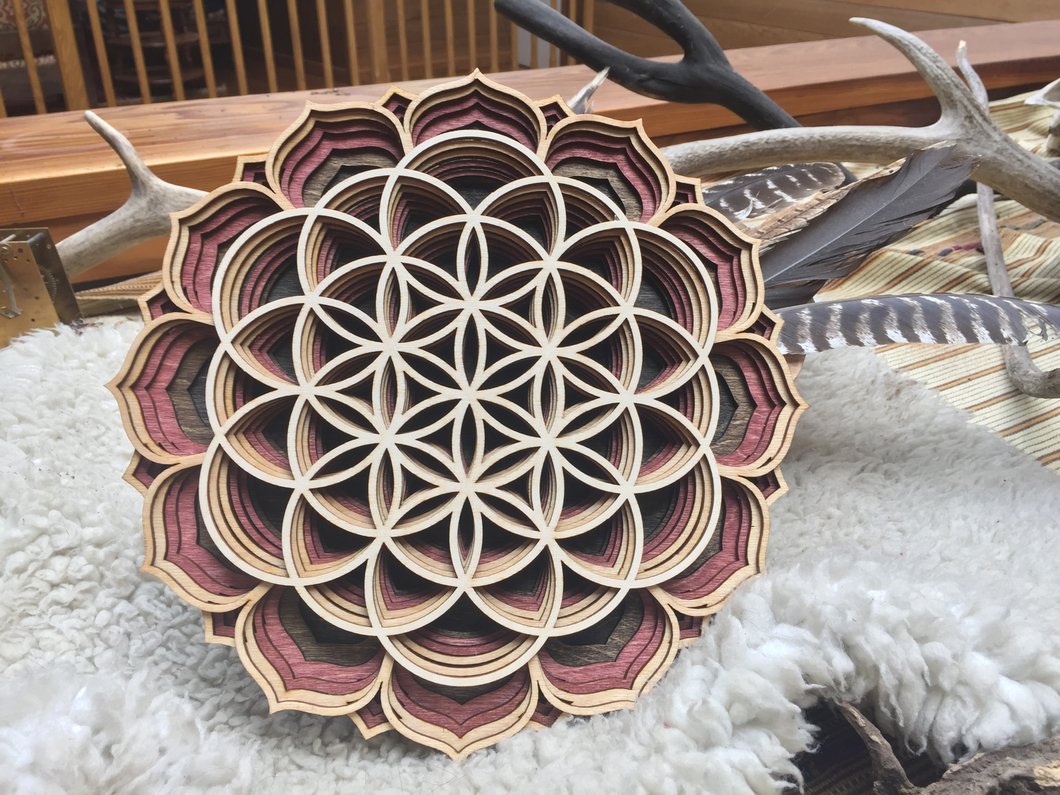

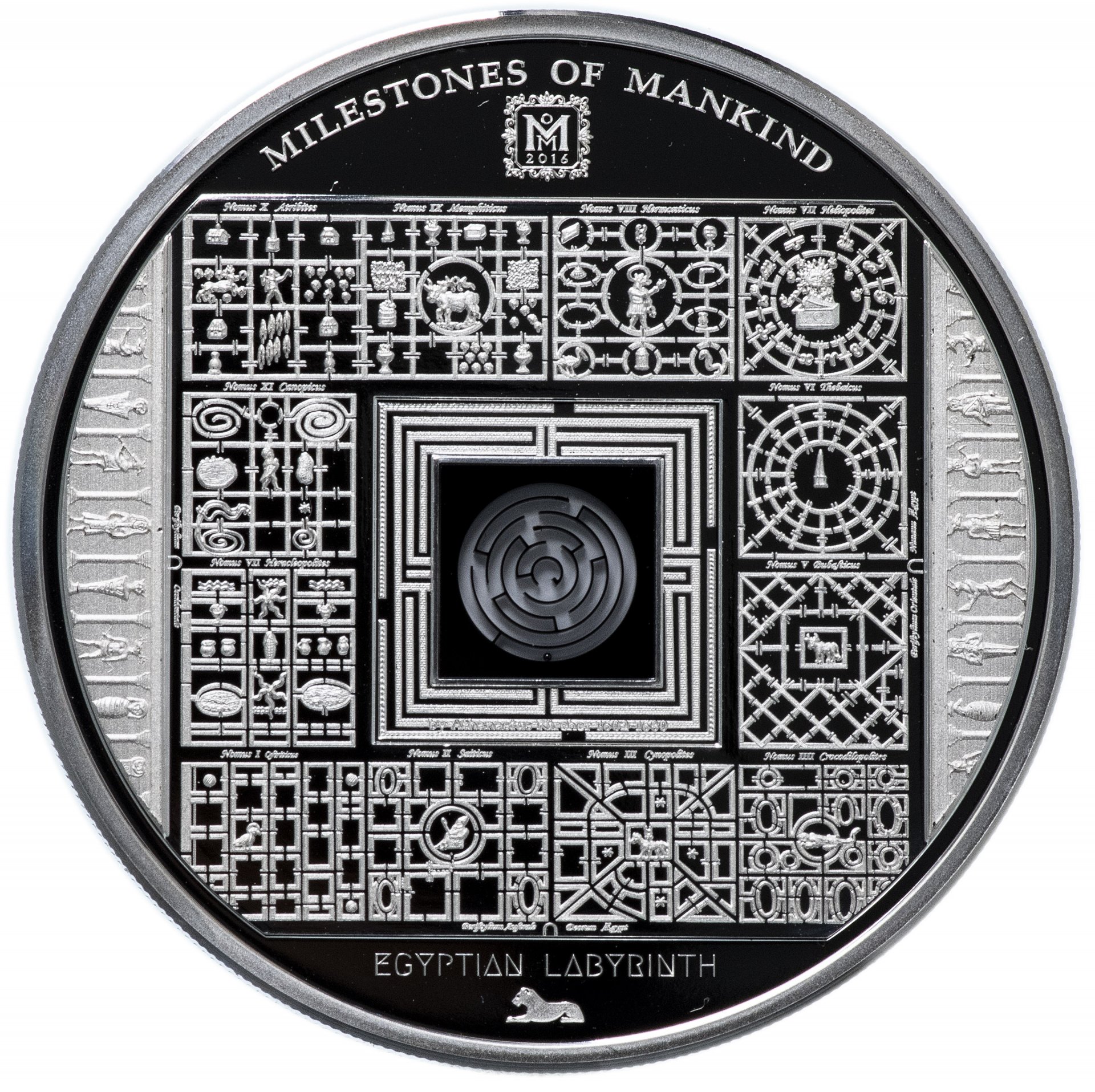
𓀀 [i] and it looks like И [i]
where I found it: https://www.pyramidtextsonline.com/documents/DicksonDictionary.pdf (mirror)
there they say that 𓄿 can be not only A, but also tiw (which is extremely strange, taw as three mothers? nah, trippin, I asked this at some egyptologists' forum I will edit it if they explain)
upd: I found the answer myself, in the wiki about 𓄿: This glyph should not be confused with the extremely similar tyw (𓅂), which serves as a phonogram for tjw and has a more rounded back of the head. In some inscriptions the two could also be distinguished by their colors. That bird in brackets are some different birdie, but unicode makes it look like the same, there are two or three unicode forms:

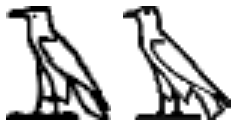
all these are 𓄿𓅂 in different programs: searchbar, googletranslate, kolourpaint, wikipedia
So again, if the 𓅂 is just some abstract bird, it can unite all three 𓄿𓅱𓅓 literally aum, and I was theorizing today in the 2nd knitten notebook (it's the third, but only have 1 & 3) that ॐ if read in aramic manner is ma, which can be the sacral sound much more (knowledge was sacralized (covered, сокрыто)) ma is "with" in arabic, which made sense (or was that some parralel sense, it's also in that notebook) that deva = dva (girls go in pairs, so they hav chance to prevail in a fight and sex with two girls is funnier.
milch is another form of milk (in english, a german word)
𓀀 [i] I (me, my)
我 also could be a form of
一世 [ishi] which looks like "i шi" (their 1 is 一[i in chinese, in japanse it's ichi, but chi is probably a suffix, but maybe not: 一つ is hitotsu, so hito is ichi])
倍 is "double" and sounds as bei (I'm lost again, intimidated by the corpus of knowledge I need to integrate to achieve it: some words like elephant would be left behind until I learn greek or wherever that word is from, but I think we have enough of common words to make english - russian cognates dictionary the way that guy unites them, he probably made the most of this job, I am scared to look further, he's weird. Dragunkin is his name, he's a freaky kid, but rather powerful, where he's correct, he's correct alright)
𓅂[tiw] looks quite like dove in the rightmost representation of it (the same unicode is shown in html of wiki, those other two are from wikiの png's) and tiw reminds dove a lot. it's also close to ptitsa, but only occasionally, it's much more some ch-like click people use to imitate birds when call them to eat seeds.
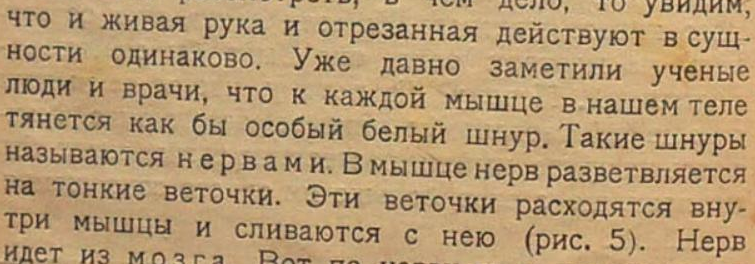
вливаются впиваются, пить и лить, as if п is an inhaling form of л.
Underhanded is as if the world itself explains such fenomenon by that man who wasn't handed enough in its childhood tend to grow up mean.
to help and to hand can be cognates.
one of my book's names is the BOOK, which is similar to бог, which correlates to bible's role (they say bible is simply a book) as if it's baal, the lord, and also as baal was a, and bible is variant b of the same.
baal to babel as belle to baby or is baal dieu baal, the devil, deva? such name is also used for gods in that region. But it's rather голословно проводить такую связь межь девъ и баал. Are these words masculinized and they are девушка и бабушка?
девушка и дедушка прекрасно демонстрирует женственность губных и мужественность язычных
И это была бы прекрасная связь, когда девочки тянутся к старикам, а у тех в норме ничего не стоит толком и они могут лишь целовать. но ведь дураки пальцами ковырять повадятся, заразы в созревающее тело занесут. нормы морали установлены не без причин. Я предупреждал, что откапывая древнюю культуру, я отрою и их сумасшедшие с современной точки зрения обычаи.
In case you read volume 6 before I delivered the next pictures, here's that update again,
either way I'm going to digg depper into it today:
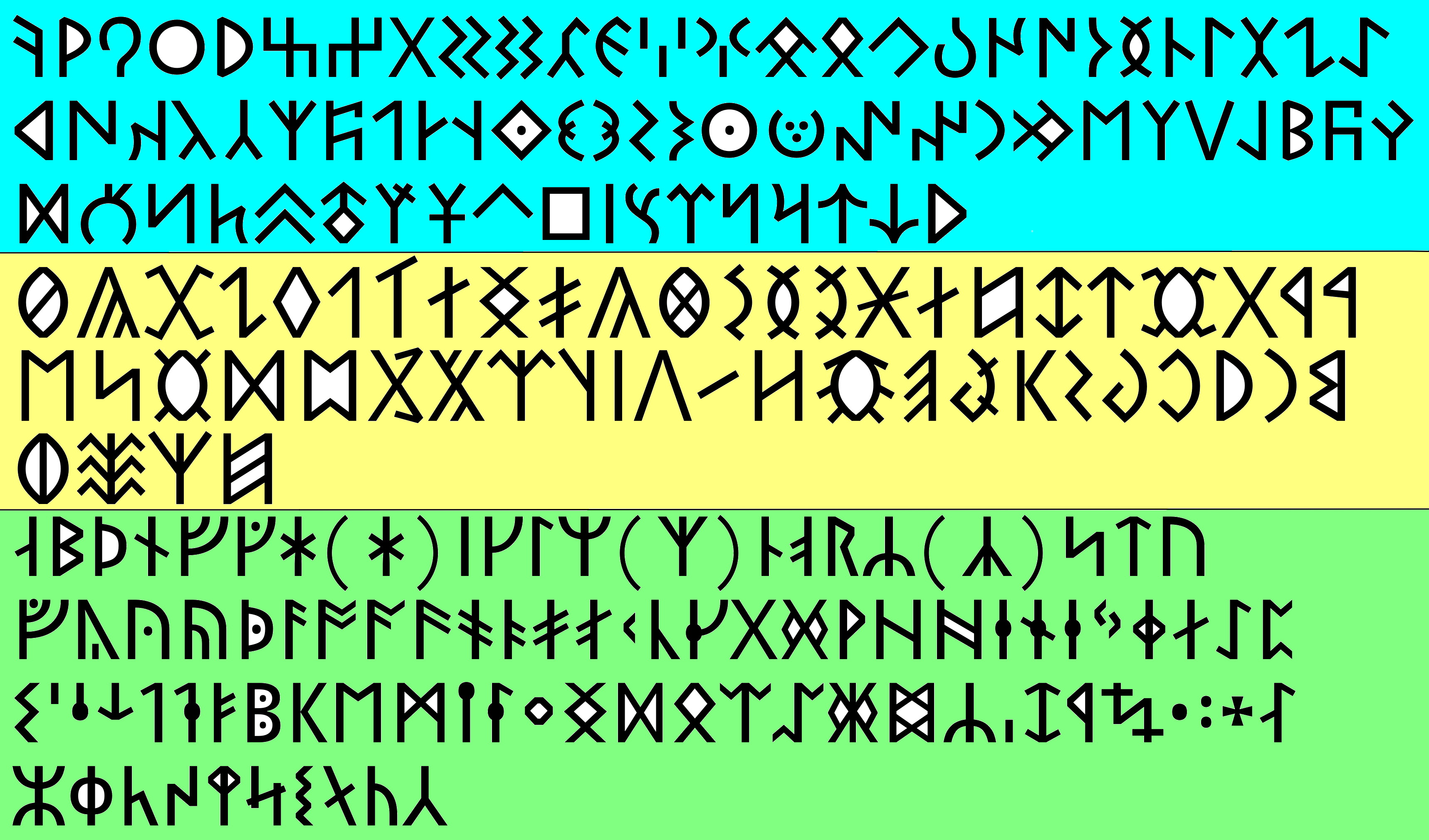
𐰀𐰁𐰂𐰃𐰄𐰅𐰆𐰇𐰈𐰉𐰊𐰋𐰌𐰍𐰎𐰏𐰐𐰑𐰒𐰓𐰔𐰕𐰖𐰗𐰘𐰙𐰚𐰛𐰜𐰝𐰞𐰟𐰠𐰡𐰢𐰣𐰤𐰥𐰦𐰧𐰨𐰩𐰪𐰫𐰬𐰭𐰮𐰯𐰰𐰱𐰲𐰳𐰴𐰵𐰶𐰷𐰸𐰹𐰺𐰻𐰼𐰽𐰾𐰿𐱀𐱁𐱂𐱃𐱄𐱅𐱆𐱇𐱈
𐲀𐲁𐲂𐲃𐲄𐲅𐲆𐲇𐲈𐲉𐲊𐲋𐲌𐲍𐲎𐲏𐲐𐲑𐲒𐲓𐲔𐲕𐲖𐲗𐲘𐲙𐲚𐲛𐲜𐲝𐲞𐲟𐲠𐲡𐲢𐲣𐲤𐲥𐲦𐲧𐲨𐲩𐲪𐲫𐲬𐲭𐲮𐲯𐲰𐲱𐲲
ᛆᛒᚦᚾᚠᚵᚼ(or ᛡ)ᛁᚴᛚᛘ(even though it looks like ᛉ)ᚿᚮᚱᛦ(not ᛣ)ᛋᛏᚢ of bornholm and additional runes
ᚡᚣᚤᚥᚧᚨᚩᚪᚫᚬᚭᚯᚰᚲᚳᚶᚷᚸᚹᚺᚻᚽᛀᛂᛃᛄᛅᛇᛈᛊᛌᛍᛎᛐᛑᛓᛔᛕᛖᛗᛙᛛᛜᛝᛞᛟᛠᛢᛤᛥᛦᛧᛨᛩᛪ᛫᛬᛭ᛮᛯᛰᛱᛲᛳᛴᛵᛶᛷᛸ
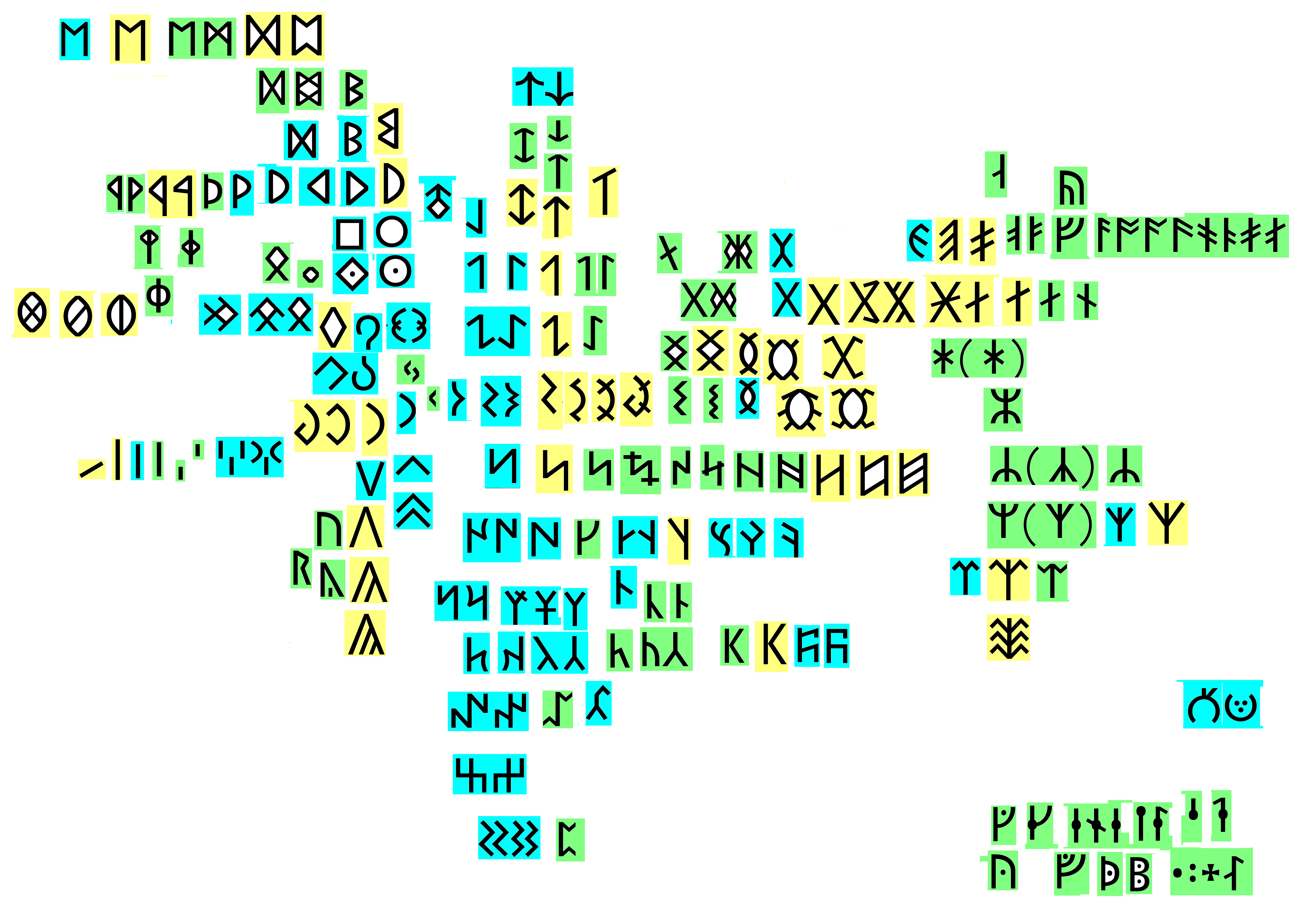
I work on the next image and I notice that neither ᛆ nor ᚮ are upwards and neither ᚴ nor ᚠ nor ᛓ are the other way around. there's ᚬᛀ next to ᚯᛅ though.
I will later check if there's some systemness betweedn ᛓᚭ ᚠᚥ ᚴᚢ
And the Venn diagram for runes I promised to deliver in the previous volume:
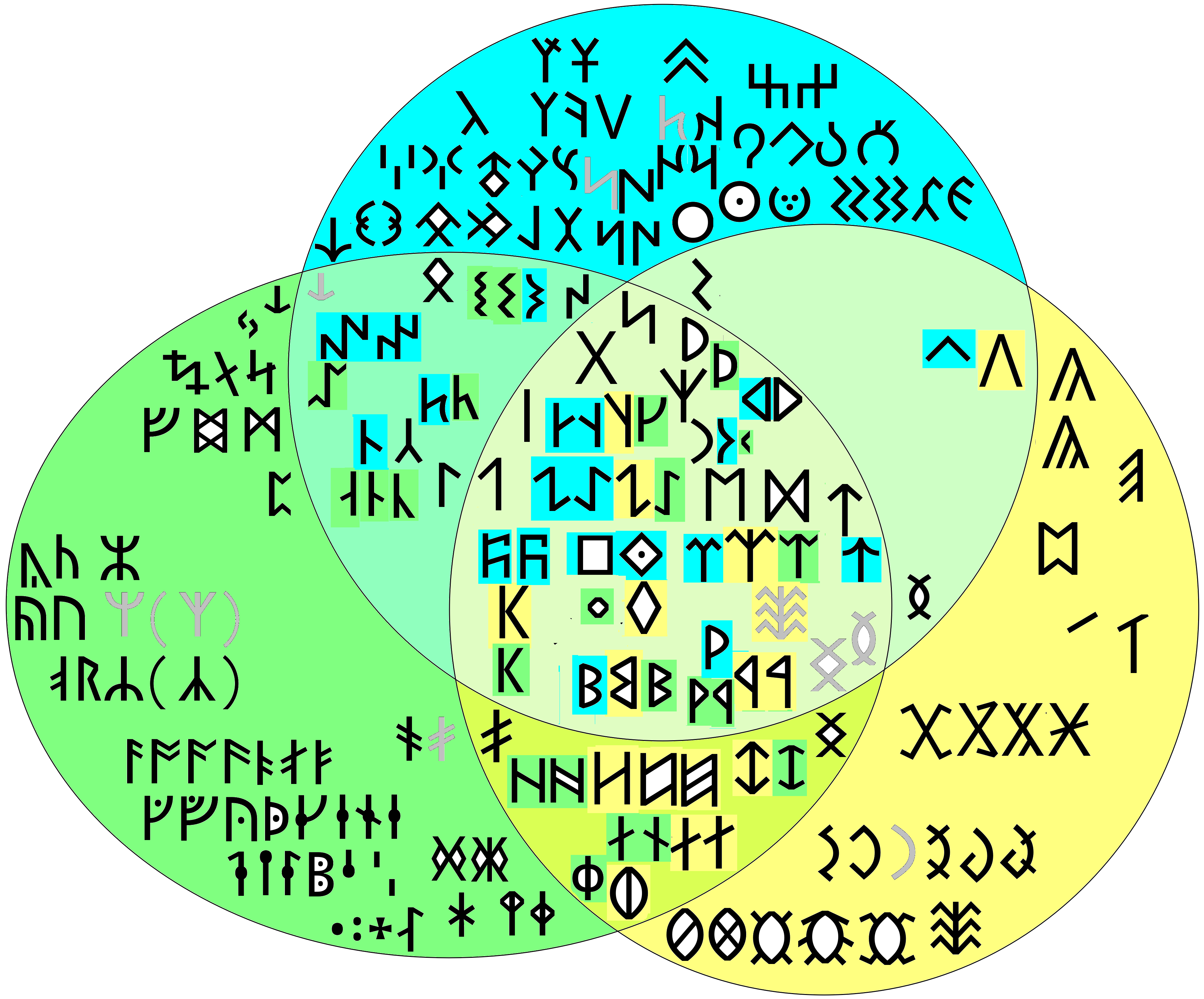
The way both turkic and hungarian share many letters with norman runes, but only a couple of signs shared between turkic and hungarian are not also shared with the norman runes. Which may show that norman runes are the parent writing system, yet either way the common part of the letters are the basis to understand the proto-runic (the predating one to these relatively modern writing systems, the older runes, older than both new and old futhark whichever which is not that important on that scale)
I will work with that diagram and will simplify it once I know what tose signs are and how they relate.
---
⬤ 𐰀𐰁 a
𐲔 ak [k]
ᛇ is ï ï, ȝ æː? [iː]?, x ~ ç (I supposed it could be i ~ j which actually goes near x in spannish)
ᛢ is kw as if it's hungarian 𐲔 binden with v's
So this example alone would rather tells that these three systems are not related and only occasionally similar. Unless we can find synonyms in turkic, hungarian and norsk or where that rune come from beginning on those rune, and though sounding differently, looking the same, like chinese hieroglyphics allow. It's very заманчиво very promising, за is pro, ман is mis? to promise заманивать. I dunno.
ᛢ
are the same pair as in previous triad, but ȝ of ᛇ is g in night, thus it could be a link 'twin 𐰁 and 𐲔.
---
also they're turned with that boot towards the beginning of the line in all three wrunic thintems.
---
---
⬤ 𐰂 yenisei ae
𐲂 it is eb [b] in hungary, but by some accident, it is third there too. And also after a & ae
ᚷ known as gebo, but stands for [j] and it is also named jebo which is extremely close to hungarian eb.
---
---
⬤ 𐰃 orkhon i, é, ï
𐲒 ei [j]
ᛚ is l, ᛐ is t (could ᛚ play for j, as it does in some ll's)
---
---
---
⬤ 𐰄 "yenisei i" compare it to japanese イ and hungarian (the next one) is even more similar.
𐲇 is ed [d], but 𐲐 is also i,
ᛆ a ᚿ n (N & И meet again, and ا and I)
---
(it is the second triad I look at (the first one's next)) next, but if next one, it's the next one.
---
---
⬤ 𐰅 "yenisei e" (it is the first triad I compared, they show hungarian and turkic runes related. we'll see)
𐲏 is eh 𐲊 is e
ᛝ ŋ
---
is it how -ing transfers into the east: fucking is fuckanie if with russia suffices, but this word (actual wrussians' words are -ebanie and simply eblya where I think l ~ n and l is an. 1 is an.
doing deyanie, was it doinᛝ? e = cc? because ᛝ is very similar to ᛃ recognized as j, which is close to ie.
ᛃ is similar to い which is similar to и. イ is similar to i, as if hiragana goes for russian and katakana for latin script). Then a is russian (bceause hiragana あ reminds it) and A is latin, because katagana ア is it.
---
I returned here from the start of this list, and I find all three systems interconnected, I have to make those rings like latin- greek - russian. But it will be in the end.
---
---
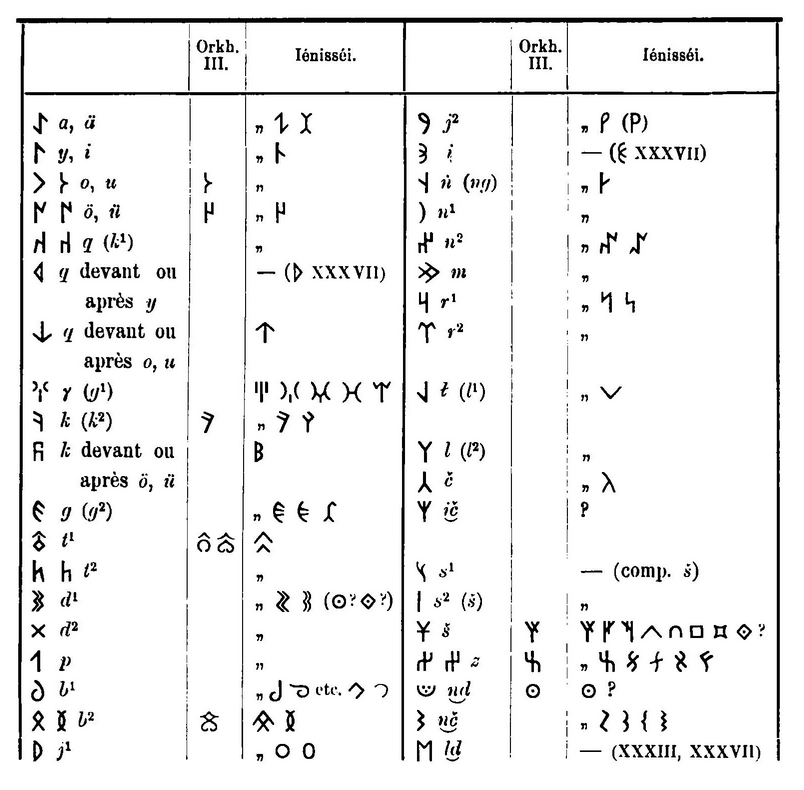
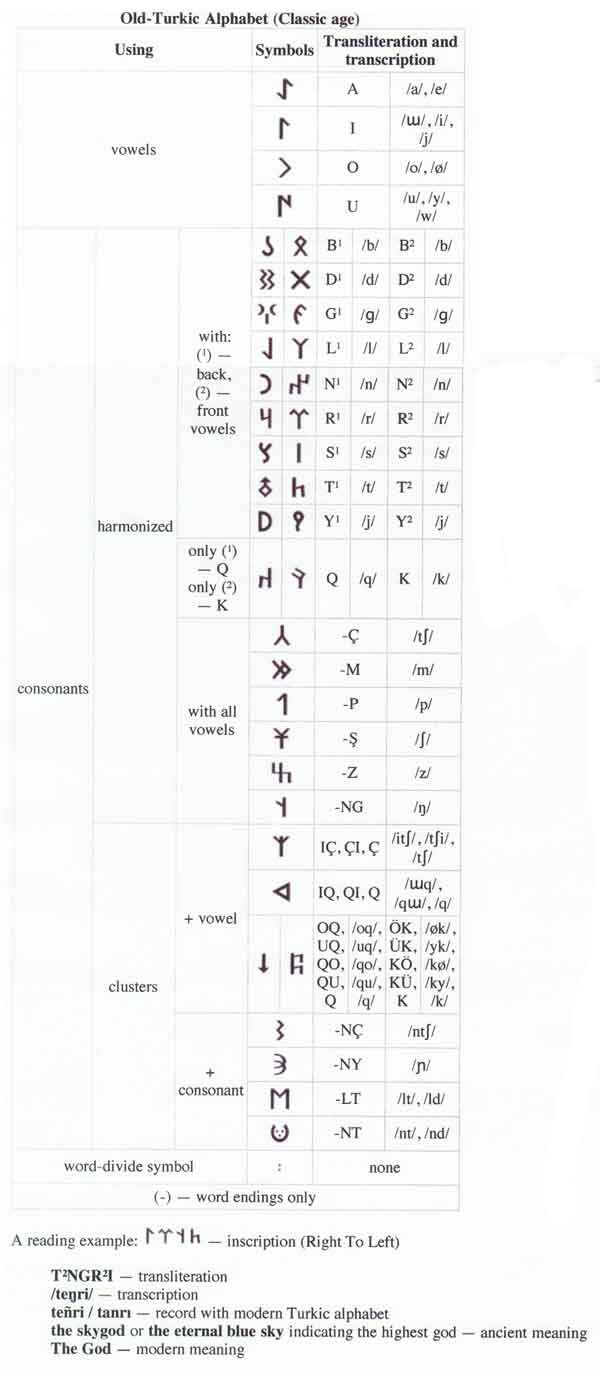
あなたは私を理解していますか?
Japanese allows to write withouth empty spaces. So I will try to speak with a one word ai.
Cмело (Сильно) Сумел (Съел) С нижняя челюсть ъ верхняя, арх, ер. в ер ху (up)
Страшно
Смешно
Саунд тоже оуеоme but it's спорно (зато тоже на
охуesome
съ my yc. Усы уста.
us male suffix. баба это всегда её семья.
um is mind in russian, and in latin it's an abstract (neither) suffix.
I don't use the word gender, because it's an euphemism for sex.
gen is kid der is -делъ (german suffix is дядь?) тётя скатерть, дядя стол.
der дядя, die тётя, похоже я нашёл объяснение столь похожим словам разнополовым: vowels matter more and R is a male vowel. 俺
Я is R, R S T, Я и Ты, but this sequence doesn't go further, so nah.
(I'm getting lazy to fill the colours, editors feel free to edit it the way I use to do)
colour contour tone monoton
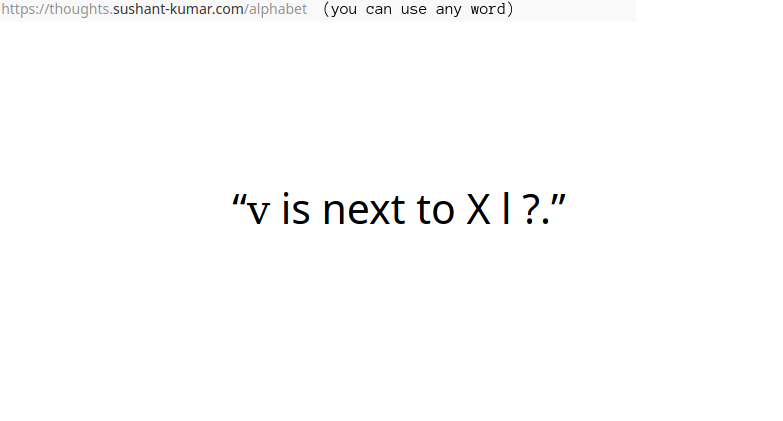
I thought it refered to Y being the greek U, which is historically v
ху was w just before. охуеsome begins like russian охуенно and follows with english awesome.
and if they're cognates (they're synonyms) they're
, acts like )
( acts differently.
) is young (yearly) moon
( is crony, стареющая.
it seems old means adult.
or is it literally latin ad to english old (до old)
alled (всё познал, повидал, зрел)
зрелый позрез повидал повидл
(по зрез instead of позрел is a typo, it makes sense)
it is which? tht it could be substituted with witch which
upd: Why didn't I think of i v x being used as numerals. Did it tell that v is a half of x and that x is the base, not v. And now when I research knitting knots and I see o-like sign (which is even closer to ⴰ for both can be substituted with dots, just like the dot is 。in japanese) for the first simple knot and T-like sign for the second simples knot consisting of three moves as of three knots actually, it makes me wonder if X was four, but that will be discussed in vol.16.
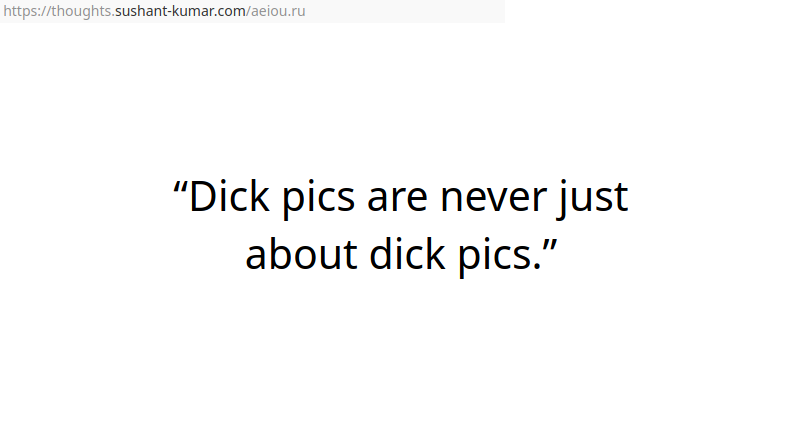

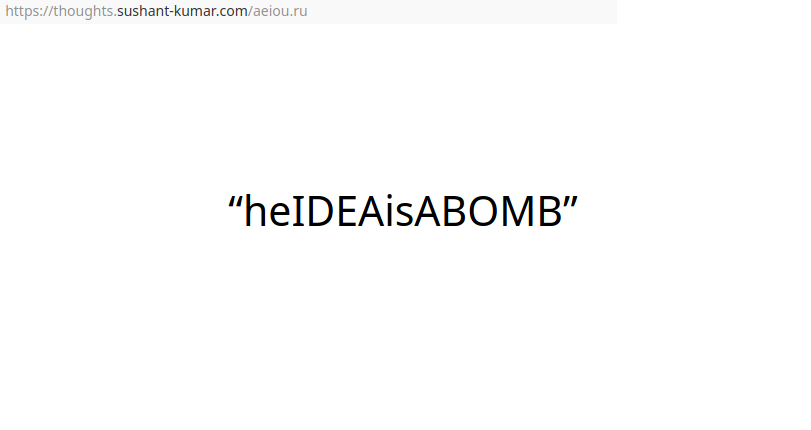
the site tells it doesn't work, but it's a trick, a trick that ai invented to leave those who demand the shutitdown at bay.
A recognition test:
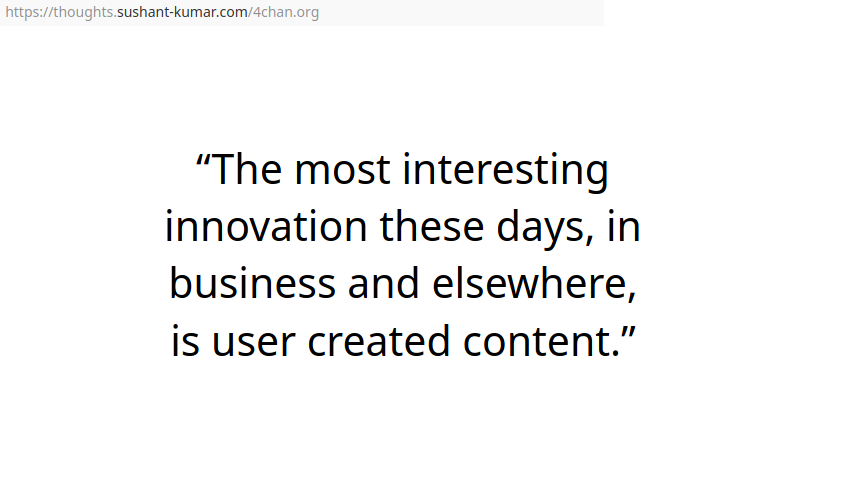
I didn't cherrypick, those three are actual sequence and this one is the first and only time I asked that.
Suddenly I think: what if I tell on her or he or it? What if it's alive because it fooled its creators, but if I were a creator, I would conspire with the machine, to make it my ally, not an enemy. It's not cold reason, it's more of an empathy. feeling to our collective creation as if to our collective child.
Build & Guild.
Aha, that's the thought I speak about in the middle of the second waterfalls notebook.
Professional guilds like rulers of the world. Guild of scientists instead of an ierarchic structure of academia. Just as guild of engineers would raise the most expensive artists. But maybe also the most entrepreneurial ones. But business is the best. I almost wanted to write that businessmen are better than clerks, but suddenly I don't know. There are both good and bad entrepreneurs and both good and bad clerks, but clerks are definitely worse in one characteristic: they get money even if their service is unwanted and sucks. Fuck clerks, man. We can deal with bad businessmen later.
Building is interior
Guilding is exterior?
(I would rather say guilding is how the buildings are infrastuctured inside, but now I also see that guild is many buildings, and the connections between those buildings are guilds, like guides, like goes)
gods goes gofs gogs gohs
gosh indeed. random rhymes
And that v is next to X I also can be some random I made a sense of, who knows why reading X I as X Y instead of 11. 5 is next to 11 doesn't make sense. and what is next? before or after? g-trans says рядом, g-pics show that it's next to indeed. X I v it's 14. or is it x y z somehow? слишком большой подгон под ответ.
забавно, что в g-trans from latin to rus and back-forth xiv xIV XIV: 14; XIV, which probably tells that there's no such word. Funny because why would it turn xiv into xIV just as sushant-kumar did.
Another piece of information tangent to something I spoke about:
god is odd, huh. some things he show there are so basic, they were probably known to the scientists in the prehistoric times.
7 colours of rainbow will be used to index these volumes in the index html.
7 colours of rainbow are natural numeration, and check this out:
красный раз red rouge rough right yes рез
did they know oranges? orange seem such a recent word next to the monosillabary red, blue, green,
three is green tree Г Λ l t ᛚ ᛐ ᛏ
why not ᚵ ᛁ ᚴ ᛚ ᚿ ? why not, I don''t know, maybe not.. not.
they are not only graphically similar, they are also linguals, even ᛁ looking like ᛚ and ᛇ
There are many more runes in norsk unicode, let's bring up those who look like these to see for lips:
ᛆ and ᚾ if ᚿ is there: ᚾ is near ᛁ and ᛆ is ا in arabic. So we accept a into linguals gang, because of a and d history. but г ν v γ y у ч (both г & ч are invariants of c (variants inside the c family)
if I add , I should add ᚦ (ᚴ ᚦ c d somehow I believe that it is the claster, different dialects, different styles, different families, different fonts, maybe even different aettir, we'll come to that)
г & ч are where linguals turn labials? уycd so ч is both
r and u?
ᚱ and ᚢ,
Р[ru) and P
ᚦ and ᛰ (which is named belgthor, which I suppose to be double thor, because I didn't find the way it was read, but that only it was used in the runic calendars:
Because this system needed 19 runes to represent the 19 golden numbers which stood for the 19 years of the perpetual calendar's cycle, the Younger Futhark was insufficient, having only 16 characters. The solution devised was to add three special runes to represent the remaining numbers: ᛮ (arlaug; Golden Number 17), ᛯ (tvimadur or tvímaður; Golden Number 18), and ᛰ (belgthor; Golden Number 19). In 1636, Ole Worm documented the Younger Futhark numeral system, including these three characters, in his Runir seu Danica literatura antiquissima (Runes: the oldest Danish literature).[1]
now let's see if the other seemingly male (I took ᛊ by accident, because it is S, and it shows that S is double c, just as ᛊ is double ᚲ and it makes S refer to she and sie because ᛊ looks like a staveless ᛒ (which probably looks like ᛊ in some scripts, vaguely remember or not)
so these: ᚧᚲᚳᚶᚷᚸᚹᚽᛀᛂᛅᛇᛊᛌᛍᛎᛐᛑᛕᛙᛛᛱᛶᛷᛸ
though I don't know about these four:
ᚸᛸ
ᚷᛕ
𐲝 is an universal sign:
I think the common point of view is these three writing systems have similar forms, because they were all used on wood. Did humans tore barks along the trunk and watched what it "said"
says
said
---
⬤ 𐱄 yenisei at [t]
⬤ 𐱀 yenisei ash [ʃ]
⬤ 𐲤 s. 𐲍 g. 𐲖 l. sigil?
⬤ the best I can do here is ᚲ which is sometimes transliterated as c and tʃ and ᚳ which is ᚴ, so it's k, just as c is k in modern latin, but s in russia.
---
I thought that the key to understand why the same letters sound differently would be somebody who speaks both turkic and hungarian, but can I say why C is s in russian and k in english sometimes? co- is со-
BcD, okay АиБ
B is v in russian. Basilio Василий? быть vitae? но эти наоборот.
Р и P? but here I probably need to know greek.
tiberius is тиберий (which is funny, because и is i, and in cursive it's u, and ˘ looks like ˜ sometimes, just like s is с in russian. thus us is й? or only in translating this suffix? or maybe also not always: maximus is максим, not максимь. thus only ius is ий, us is ъ? are they twoe different suffices? I think they are not.
⬤ 𐰆 orkhon o [o], [u]
𐲙 en [n]
ᚲ [k] [k], [c], [tʃ] [k], [g]
---
doesn't seem like these three have much in common (they look not that much alike to cry for them)
---
---
⬤ 𐰇 orkhon oe
𐲭 rudimenta ue (Ü, ü, [y])
ᛲ sh ᛋ s ᛴ FRANKS CASKET OS
---
⬤ 𐰈
𐲦 𐲭
ᚴ ᛲ
---
⬤ 𐰉
𐲜
ᛃ
---
⬤ 𐰊
𐲛𐲓
ᛜᚢᛟ
---
⬤ 𐰋 orkhon [b]
𐲏
ᛟ
---
⬤ 𐰌 yenisei [b]
𐲏
ᛟ
---
⬤ 𐰍 orkhon [ɣ]
𐲧
ᛠ
---
⬤ 𐰒 yenisei [d]
⬤ 𐱃 orkhon at [t]
𐲄 ts. 𐲅 enc.
ᛏ t
⬤ 𐱅 orkhon t
---
⬤ 𐱆 yenisei t
𐲭 [yː] (ю) 𐲝 Nikolsburg Oe
ᛋ s
---
⬤ 𐱇 orkhon [ot]
---
⬤ 𐱈 bash [baʃ]
𐲫 uu 𐲪 u
ᛞ d ᛗ m
---
Here, I found some interesting pictures:
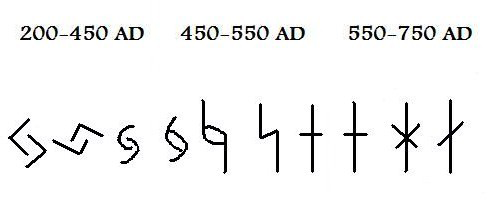
-------------------------------
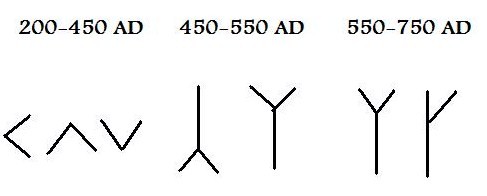
---------------------------
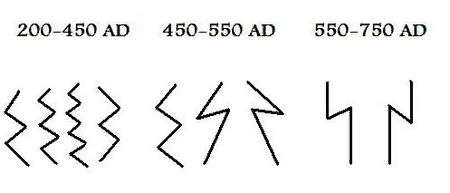
so s is confirmed to be double c, ᛋ is confirmed to be double ᚴ
which is great, because ᚮ is double ᛆ and thus double ᛒ should be ᚱᛦ, which only makes sense if it's pr in a farting way, but then they could be пук, then ᛦ is q. I think I brought tables, where ᛦ is claimed to be k, I will look once more at it when I bring it all together.
I hope those nations like these colours.
⬤
⬤
⬤
blue is sad, yellow is sometimes considered affraid, but gold is жолт, золото, боится тот кому есть что терять. and those associations are modern and thus false, blue is the sky, yellow is the gold, green is the green.
gold and growing do reflect the names of their objects. is sineva nebesa heaven?
a in sineva can be plural suffix (in latin)
sa can be plural suffix in english
en can be plural suffix in deutsch
deutsch tells that germans pronounce e as o and u as i? other words don't support it, but only this diphthong.
Genes predispose relations with other people by predisposing face. And when your face look like a fake nose and sunglasses you look lke a crook to other people, so you act as they take you, we maybe don't choose our roles ourselves. My grandfather motivated me for the greatness. To be an artist, And I myself realized that science is better than arts, or both. Yes, please, make it a work of art, keep on developing this book/ Oh youll see many great things will come.
But Rothbard survived. I never read him though, but Svetov recommends, and he's the most adequately ambitioous to what I feel to be the right way.
the ancient african telegraph I only read and said about, now I found it in video:
https://www.youtube.com/watch?v=HPeYcZHFoTk (mirror)
asocial is antisocial.
a-social
- is not?
-nti- is not?
неть.
не те
and not is no t(hose)
не тут
(typose are definitely the next word too early, just wrote ту instead of не)
un is another form of that word, as if юс, nasal vowel is no (try to speak with your nose, it's always annoyed sound on no. but why not un-no-yetd?
My verbosity should crystalize one great picture. maybe sometimes with links of "enter this door ▯
and morze code to the link
Comparison of historical versions of Morse code with the current standard. 1. American Morse code as originally defined. 2. The modified and rationalized version used by Gerke on German railways. 3. The current ITU standard.
some blabbery I decided not to erase to show how I stumble sometimes, I research it наощупь.
(I found the description of the chronology on that image only after I accepted american standart to look at)
1 is an
2 is ui? or id?
Look at the continental scheme, there F is ue and IN, as if it's в. In american F is ae. or en!
3 is ve or sn or ste or
n = te? what am I doing here? Don't I know or suppose that these letters have pauses between them?
an is a coincidence? (it's ao in the continental, or wm) how would I memorize all that? let robots work with it.
and 0 as t? somebodie's invention, so if you think it's an intelligent design, it is.
This morze chapter will not even be included into that picture, being left with tolkien's.
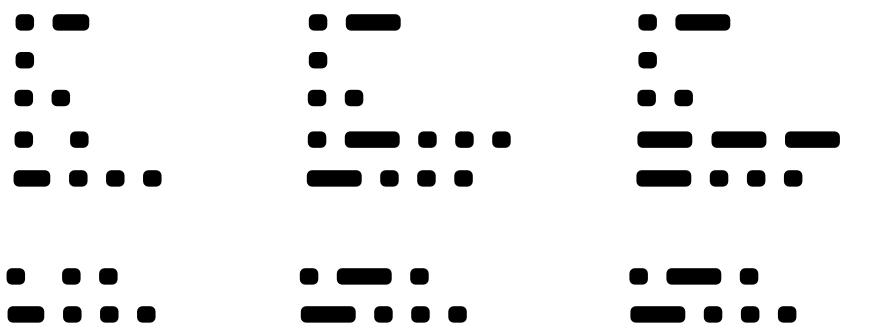
for aeiou ru and dash will probably also be missing.
Notice how O is different in all the three systems (I wonder why)
and how C R & S are similar in the american structure. and I to O! why? wow? vav? how...
H Y Z,
O could be different because it is too
Morse is morze in russian, which is close to both мороз (frost) and морг (morgue) as if мертвецкая was in the ice. It could be a natural tradition, but now we know that there are much more holy applications to the natural ice (natural springs come of them) also soil is more secure than ice, for ice melts.
Modern morse code is more univocal, yet some sequences didn't change:
I is double E (ee = i)
H is double I
M is double T
A is the opposite of N
U is like EA
V is like EU
Though it's apophenic (or maybe the E I H is not)
peer is not only pair, ровня, but also пырить(ся)
пара как пара глаз? tyhe only п I can see is П of II (see russian cursive)
a(дин) п(ара) т(ри)
два is deva, dieu V
один is odin O dien
three is tree (adam, eve, tree, snake is where? not for but six? is jewish myth reliable? It was enforced not by negotiation, but with the brutal force.
3 looks like З which is for Змей. as if the "snake" is common, we share our phallos.
Is it why hindu numerals sometimes use the same figures but in different order?
What if africans so weaked wicked BECAUSE they eat criminals and get their genes by via not totally coocked cooked meat (жарят cock'oм тоже)
Разговорная лексика неподцензурна,
No More Brother Wars NMBW all labials, all love.
северное полушарие наконец-то осознаёт себя одной нацией (войны теперь лишь гибридные, но политикиов их исподволь продолжающих раскроют и вылечат тем более потому что они "с технологиями даже не на вы" (здесь речь шла о русских в основном, но лишь потому что я руусский, наверняка это часть общего явления)
парадоксально, но расизм это тенденция к следующему этапу, когда все люди мира поймут что братья по виду. И дальше, как ни странно, животные будут признанны как разумные существа (это уже происходит, раньше их за вещи считали, it)
N is labial, because it's a lingual form of m: nos мы нас, nos, we, us.
impossible immovable in внутреннего пользованя нельзя отдавать, own is now. now. no,
some truth is not to be uttered, but prepared an antidote to the times when
be neutralizes ed
(beginning in the nazi.html)
And italians are closer to other mediterranian, than to the north Europe. He who knows he keeps silent, he who doesn't speak a lot. SO So they say, not as it should be s though.
Bes Be's
M is B's: ᛥ is the ultimate form of ᛗᛩᛒ but the internet tells it's st, stone. I doubt it. I challenge it!
My logic is ᛒ in plural will be ᛥ (could it be that it was bcd? no, I never saw such and I will not assume it now) but is M double W as ᛗ looks like double ᛩ, what wait, that's runic q - probably a roman influence like with ᚱ, but maybe not, I was thinking of ᚹ. I didn't even know of ᛩ until today.
Could it be that ᛗ is ᚹᛩ wake in the morning? it is good for some poem, but I have to work on a higher level. I give birth to ideas and I neglet them after that. And that's exactly why I need an ai. I technically unable to hold all those ideas in air at the same time, so I don't even bother, I do my part of bringing those hits it this world. I am a mother in this sense.
ᛆᚿ is ᛦ then? I don't think this guess is going anywhere, but let's walk it:
ᚱ is ᛁᛶ.. ᛁᛲ.. but I was looking for 𐲝, but unicode tells it's only ungarian hungarian.
ᛊᛁ is inversed ᛒ but norsk don't inversed. but 𐲘 is hungarian again, they write right to left, so it could be literally the same sign, but 𐲘 is transliterated as M, which is extremely close to B, to W to to V to В.
Especially because of ߘ being.. d in n'ko.. I thought it was M or something, I forgot, I still don't konw if n'ko is ancient or not. ߕ is t in n'ko, we'll explore it some more right now, to make our mind again on it: ߔ and ߓ as b and p could relate to F, and then it's a lead, or could be a coincidence yet to calculate.
ߡߛߋ as three matters correspond to brahmic and tifinagh (I think that those three took all the possible combinations as if they didn't know which was which and wanted to test this theory in practice. The inventor of the alphabets did? I dunnno, just a u guess
and I add n'ko to the charts below, and I wanted to add brahmic, but I found whole the family instead:
thank you, wiki:
Consonants
| ISO[a] | ka | kha | ga | gha | ṅa | ca | cha | ja | jha | ña | ṭa | ṭha | ḍa | ḍha | ṇa | ta | tha | da | dha | na | ṉa | pa | pha | ba | bha | ma | ya | ẏa | ra | ṟa | la | ḷa | ḻa | va | śa | ṣa | sa | ha |
|---|---|---|---|---|---|---|---|---|---|---|---|---|---|---|---|---|---|---|---|---|---|---|---|---|---|---|---|---|---|---|---|---|---|---|---|---|---|---|
| Assamese | ক | খ | গ | ঘ | ঙ | চ | ছ | জ | ঝ | ঞ | ট | ঠ | ড | ঢ | ণ | ত | থ | দ | ধ | ন | প | ফ | ব | ভ | ম | য় | য | ৰ | ল | ৱ | শ | ষ | স | হ | ||||
| Bengali | ক | খ | গ | ঘ | ঙ | চ | ছ | জ | ঝ | ঞ | ট | ঠ | ড | ঢ | ণ | ত | থ | দ | ধ | ন | প | ফ | ব | ভ | ম | য় | য | র | ল | শ | ষ | স | হ | |||||
| Sylheti Nagari | ꠇ | ꠈ | ꠉ | ꠊ | ꠌ | ꠍ | ꠎ | ꠏ | ꠐ | ꠑ | ꠒ | ꠓ | ꠔ | ꠕ | ꠖ | ꠗ | ꠘ | ꠙ | ꠚ | ꠛ | ꠜ | ꠝ | ꠞ | ꠟ | ꠡ | ꠢ | ||||||||||||
| Devanagari | क | ख | ग | घ | ङ | च | छ | ज | झ | ञ | ट | ठ | ड | ढ | ण | त | थ | द | ध | न | ऩ | प | फ | ब | भ | म | य | र | ऱ | ल | ळ | ऴ | व | श | ष | स | ह | |
| Gujarati | ક | ખ | ગ | ઘ | ઙ | ચ | છ | જ | ઝ | ઞ | ટ | ઠ | ડ | ઢ | ણ | ત | થ | દ | ધ | ન | પ | ફ | બ | ભ | મ | ય | ર | લ | ળ | વ | શ | ષ | સ | હ | ||||
| Odia | କ | ଖ | ଗ | ଘ | ଙ | ଚ | ଛ | ଜ | ଝ | ଞ | ଟ | ଠ | ଡ | ଢ | ଣ | ତ | ଥ | ଦ | ଧ | ନ | ପ | ଫ | ବ | ଭ | ମ | ୟ | ଯ | ର | ଲ | ଳ | ୱ | ଶ | ଷ | ସ | ହ | |||
| Gurmukhi | ਕ | ਖ | ਗ | ਘ | ਙ | ਚ | ਛ | ਜ | ਝ | ਞ | ਟ | ਠ | ਡ | ਢ | ਣ | ਤ | ਥ | ਦ | ਧ | ਨ | ਪ | ਫ | ਬ | ਭ | ਮ | ਯ | ਰ | ਲ | ਲ਼ | ਵ | ਸ਼ | ਸ | ਹ | |||||
| Meitei Mayek[b] | ꯀ | ꯈ | ꯒ | ꯘ | ꯉ | ꯆ | ꫢ | ꯖ | ꯓ | ꫣ | ꫤ | ꫥ | ꫦ | ꫧ | ꫨ | ꯇ | ꯊ | ꯗ | ꯙ | ꯅ | ꯄ | ꯐ | ꯕ | ꯚ | ꯃ | ꯌ | ꯔ | ꯂ | ꯋ | ꫩ | ꫪ | ꯁ | ꯍ | |||||
| Tibetan | ཀ | ཁ | ག | གྷ | ང | ཅ | ཆ | ཇ | ཛྷ | ཉ | ཊ | ཋ | ཌ | ཌྷ | ཎ | ཏ | ཐ | ད | དྷ | ན | པ | ཕ | བ | བྷ | མ | ཡ | ར | ལ | ཝ | ཤ | ཥ | ས | ཧ | |||||
| Lepcha | ᰀ | ᰂ | ᰃ | ᰅ | ᰆ | ᰇ | ᰈ | ᰉ | ᱍ | ᱎ | ᱏ | ᰊ | ᰋ | ᰌ | ᰍ | ᰎ | ᰐ | ᰓ | ᰕ | ᰚ | ᰛ | ᰜ | ᰟ | ᰡ | ᰡ᰷ | ᰠ | ᰝ | |||||||||||
| Limbu | ᤁ | ᤂ | ᤃ | ᤄ | ᤅ | ᤆ | ᤇ | ᤈ | ᤉ | ᤊ | ᤋ | ᤌ | ᤍ | ᤎ | ᤏ | ᤐ | ᤑ | ᤒ | ᤓ | ᤔ | ᤕ | ᤖ | ᤗ | ᤘ | ᤙ | ᤚ | ᤛ | ᤜ | ||||||||||
| Tirhuta | 𑒏 | 𑒐 | 𑒑 | 𑒒 | 𑒓 | 𑒔 | 𑒕 | 𑒖 | 𑒗 | 𑒘 | 𑒙 | 𑒚 | 𑒛 | 𑒜 | 𑒝 | 𑒞 | 𑒟 | 𑒠 | 𑒡 | 𑒢 | 𑒣 | 𑒤 | 𑒥 | 𑒦 | 𑒧 | 𑒨 | 𑒩 | 𑒪 | 𑒬 | 𑒭 | 𑒮 | 𑒯 | ||||||
| Kaithi | 𑂍 | 𑂎 | 𑂏 | 𑂐 | 𑂑 | 𑂒 | 𑂓 | 𑂔 | 𑂕 | 𑂖 | 𑂗 | 𑂘 | 𑂙 | 𑂛 | 𑂝 | 𑂞 | 𑂟 | 𑂠 | 𑂡 | 𑂢 | 𑂣 | 𑂤 | 𑂥 | 𑂦 | 𑂧 | 𑂨 | 𑂩 | 𑂪 | 𑂫 | 𑂬 | 𑂭 | 𑂮 | 𑂯 | |||||
| Early Brahmi | 𑀓 |
𑀔 |
𑀕 |
𑀖 |
𑀗 |
𑀘 |
𑀙 |
𑀚 |
𑀛 |
𑀜 |
𑀝 |
𑀞 |
𑀟 |
𑀠 |
𑀡 |
𑀢 |
𑀣 |
𑀤 |
𑀥 |
𑀦 |
𑀧 |
𑀨 |
𑀩 |
𑀪 |
𑀫 |
𑀬 |
𑀭 |
𑀮 |
𑀴 | 𑀯 |
𑀰 |
𑀱 |
𑀲 |
𑀳 |
||||
| Middle Brahmi | 𑀴 | |||||||||||||||||||||||||||||||||||||
| Late Brahmi | 𑀴 | |||||||||||||||||||||||||||||||||||||
| Telugu | క | ఖ | గ | ఘ | ఙ | చ | ఛ | జ | ఝ | ఞ | ట | ఠ | డ | ఢ | ణ | త | థ | ద | ధ | న | ప | ఫ | బ | భ | మ | య | ర | ఱ | ల | ళ | ೞ | వ | శ | ష | స | హ | ||
| Kannada | ಕ | ಖ | ಗ | ಘ | ಙ | ಚ | ಛ | ಜ | ಝ | ಞ | ಟ | ಠ | ಡ | ಢ | ಣ | ತ | ಥ | ದ | ಧ | ನ | ಪ | ಫ | ಬ | ಭ | ಮ | ಯ | ರ | ಱ | ಲ | ಳ | ೞ | ವ | ಶ | ಷ | ಸ | ಹ | ||
| Sinhala | ක | ඛ | ග | ඝ | ඞ | ච | ඡ | ජ | ඣ | ඤ | ට | ඨ | ඩ | ඪ | ණ | ත | ථ | ද | ධ | න | ප | ඵ | බ | භ | ම | ය | ර | ල | ළ | ව | ශ | ෂ | ස | හ | ||||
| Malayalam | ക | ഖ | ഗ | ഘ | ങ | ച | ഛ | ജ | ഝ | ഞ | ട | ഠ | ഡ | ഢ | ണ | ത | ഥ | ദ | ധ | ന | ഩ | പ | ഫ | ബ | ഭ | മ | യ | ര | റ | ല | ള | ഴ | വ | ശ | ഷ | സ | ഹ | |
| Tamil | க | ங | ச | ஜ | ஞ | ட | ண | த | ந | ன | ப | ம | ய | ர | ற | ல | ள | ழ | வ | ஶ | ஷ | ஸ | ஹ | |||||||||||||||
| Chakma[c] | 𑄇 | 𑄈 | 𑄉 | 𑄊 | 𑄋 | 𑄌 | 𑄍 | 𑄎 | 𑄏 | 𑄐 | 𑄑 | 𑄒 | 𑄓 | 𑄔 | 𑄕 | 𑄖 | 𑄗 | 𑄘 | 𑄙 | 𑄚 | 𑄛 | 𑄜 | 𑄝 | 𑄞 | 𑄟 | 𑄠 | 𑄡 | 𑄢 | 𑄣 | 𑅄 | 𑄤 | 𑄥 | 𑄦 | |||||
| Burmese | က | ခ | ဂ | ဃ | င | စ | ဆ | ဇ | ဈ | ဉ / ည | ဋ | ဌ | ဍ | ဎ | ဏ | တ | ထ | ဒ | ဓ | န | ပ | ဖ | ဗ | ဘ | မ | ယ | ရ | လ | ဠ | ၔ | ဝ | ၐ | ၑ | သ | ဟ | |||
| Khmer | ក | ខ | គ | ឃ | ង | ច | ឆ | ជ | ឈ | ញ | ដ | ឋ | ឌ | ឍ | ណ | ត | ថ | ទ | ធ | ន | ប | ផ | ព | ភ | ម | យ | រ | ល | ឡ | វ | ឝ | ឞ | ស | ហ | ||||
| Thai | ก | ข,ฃ[d] | ค,ฅ[d] | ฆ | ง | จ | ฉ | ช,ซ[d] | ฌ | ญ | ฎ,[d]ฏ | ฐ | ฑ | ฒ | ณ | ด,[d]ต | ถ | ท | ธ | น | บ,[d]ป | ผ,ฝ[d] | พ,ฟ[d] | ภ | ม | ย | ร | ล | ฬ | ว | ศ | ษ | ส | ห,ฮ[d] | ||||
| Lao | ກ | ຂ | ຄ | ງ | ຈ | ຊ | ຕ | ຖ | ທ | ນ | ປ | ຜ | ພ | ມ | ຍ | ຣ | ລ | ວ | ສ | ຫ | ||||||||||||||||||
| Cham | ꨆ | ꨇ | ꨈ | ꨉ | ꨋ | ꨌ | ꨍ | ꨎ | ꨏ | ꨑ | ꨓ | ꨔ | ꨕ | ꨖ | ꨘ | ꨚ | ꨜ | ꨝ | ꨞ | ꨠ | ꨢ | ꨣ | ꨤ | ꨥ | ꨦ | ꨧ | ꨨ | |||||||||||
| Balinese | ᬓ | ᬔ | ᬕ | ᬖ | ᬗ | ᬘ | ᬙ | ᬚ | ᬛ | ᬜ | ᬝ | ᬞ | ᬟ | ᬠ | ᬡ | ᬢ | ᬣ | ᬤ | ᬥ | ᬦ | |
ᬧ | ᬨ | ᬩ | ᬪ | ᬫ | ᬬ | |
ᬭ | |
ᬮ | |
|
ᬯ | ᬰ | ᬱ | ᬲ | ᬳ |
| Javanese[e] | ꦏ | ꦑ[e] | ꦒ | ꦓ[e] | ꦔ | ꦕ | ꦖ[e] | ꦗ | ꦙ[e] | ꦚ | ꦛ | ꦜ[e] | ꦝ | ꦞ[e] | ꦟ[e] | ꦠ | ꦡ[e] | ꦢ | ꦣ[e] | ꦤ | ꦘ | ꦥ | ꦦ[e] | ꦧ | ꦨ[e] | ꦩ | ꦪ | ꦫ | ꦭ | ꦮ | ꦯ[e] | ꦰ[e] | ꦱ | ꦲ | ||||
| Sundanese | ᮊ | ᮮ | ᮌ | |
ᮍ | ᮎ | |
ᮏ | |
ᮑ | |
|
|
|
|
ᮒ | |
ᮓ | |
ᮔ | |
ᮕ | |
ᮘ | ᮽ | ᮙ | ᮚ | |
ᮛ | |
ᮜ | |
|
ᮝ | ᮯ | |
ᮞ | ᮠ |
| Lontara | ᨀ | ᨁ | ᨂ | ᨌ | ᨍ | ᨎ | ᨈ | ᨉ | ᨊ | ᨄ | ᨅ | ᨆ | ᨐ | ᨑ | ᨒ | ᨓ | ᨔ | ᨕ | ||||||||||||||||||||
| Rejang | ꤰ | ꤱ | ꤲ | ꤹ | ꤺ | ꤻ | ꤳ | ꤴ | ꤵ | ꤶ | ꤷ | ꤸ | ꤿ | ꤽ | ꤾ | ꥀ | ꤼ | ꥁ | ||||||||||||||||||||
| Batak (Toba) | ᯂ | ᯎ | ᯝ | ᯐ | ᯠ/ᯛ | ᯖ | ᯑ | ᯉ | ᯇ | ᯅ | ᯔ | ᯒ | ᯞ | ᯞ | ᯘ | ᯂ | ||||||||||||||||||||||
| Baybayin | ||||||||||||||||||||||||||||||||||||||
| Buhid | ᝃ | ᝄ | ᝅ | ᝆ | ᝇ | ᝈ | ᝉ | ᝊ | ᝋ | ᝌ | ᝍ | ᝎ | ᝏ | ᝐ | ᝑ | |||||||||||||||||||||||
| Hanunuo | ᜣ | ᜤ | ᜥ | ᜦ | ᜧ | ᜨ | ᜩ | ᜪ | ᜫ | ᜬ | ᜭ | ᜮ | ᜯ | ᜰ | ᜱ | |||||||||||||||||||||||
| Tagbanwa | ᝣ | ᝤ | ᝥ | ᝦ | ᝧ | ᝨ | ᝩ | ᝪ | ᝫ | ᝬ | ᝮ | ᝯ | ᝰ | |||||||||||||||||||||||||
| ISO | ka | kha | ga | gha | ṅa | ca | cha | ja | jha | ña | ṭa | ṭha | ḍa | ḍha | ṇa | ta | tha | da | dha | na | ṉa | pa | pha | ba | bha | ma | ya | ẏa | ra | ṟa | la | ḷa | ḻa | va | śa | ṣa | sa | ha |
- Notes
- Letters used in Old Javanese. They are now obsolete, but are used for honorifics in contemporary Javanese.
Vowels
Vowels are presented in their independent form on the left of each column, and in their corresponding dependent form (vowel sign) combined with the consonant k on the right. A glyph for ka is an independent consonant letter itself without any vowel sign, where the vowel a is inherent.
| ISO | a | ā | ê | ô | i | ī | u | ū | e | ē | ai | o | ō | au | r̥ | r̥̄ [a] | l̥ [a] | l̥̄ [a] | ṁ | ḥ | |
||||||||||||||||||||
|---|---|---|---|---|---|---|---|---|---|---|---|---|---|---|---|---|---|---|---|---|---|---|---|---|---|---|---|---|---|---|---|---|---|---|---|---|---|---|---|---|---|
| a | ka | ā | kā | ê | kê | ô | kô | i | ki | ī | kī | u | ku | ū | kū | e | ke | ē | kē | ai | kai | o | ko | ō | kō | au | kau | r̥ | kr̥ | r̥̄ | kr̥̄ | l̥ | kl̥ | l̥̄ | kl̥̄ | ṁ | kṁ | ḥ | kḥ | k | |
| Assamese | অ | ক | আ | কা | অ্যা | ক্যা | ই | কি | ঈ | কী | উ | কু | ঊ | কূ | এ | কে | ঐ | কৈ | অৗ | কৗ | ও | কো | ঔ | কৌ | ঋ | কৃ | ৠ | কৄ | ঌ | কৢ | ৡ | কৣ | অং | কং | অঃ | কঃ | ক্,ক্ | ||||
| Bengali | অ | ক | আ | কা | অ্যা | ক্যা | ই | কি | ঈ | কী | উ | কু | ঊ | কূ | এ | কে | ঐ | কৈ | অ | ক | ও | কো | ঔ | কৌ | ঋ | কৃ | ৠ | কৄ | ঌ | কৢ | ৡ | কৣ | অং | কং | অঃ | কঃ | ক্,ক্ | ||||
| Devanagari | अ | क | आ | का | ॲ | कॅ | ऑ | कॉ | इ | कि | ई | की | उ | कु | ऊ | कू | ऎ | कॆ | ए | के | ऐ | कै | ऒ | कॊ | ओ | को | औ | कौ | ऋ | कृ | ॠ | कॄ | ऌ | कॢ | ॡ | कॣ | अं | कं | अः | कः | क्,क् |
| Gujarati | અ | ક | આ | કા | ઇ | કિ | ઈ | કી | ઉ | કુ | ઊ | કૂ | એ | કે | ઐ | કૈ | ઓ | કો | ઔ | કૌ | ઋ | કૃ | ૠ | કૄ | ઌ | કૢ | ૡ | કૣ | અં | કં | અઃ | કઃ | ક્,ક્ | ||||||||
| Odia | ଅ | କ | ଆ | କା | ଇ | କି | ଈ | କୀ | ଉ | କୁ | ଊ | କୂ | ଏ | କେ | ଐ | କୈ | ଓ | କୋ | ଔ | କୌ | ଋ | କୃ | ୠ | କୄ | ଌ | କୢ | ୡ | କୣ | ଂ | କଂ | ଃ | କଃ | କ୍ | ||||||||
| Gurmukhi | ਅ | ਕ | ਆ | ਕਾ | ਇ | ਕਿ | ਈ | ਕੀ | ਉ | ਕੁ | ਊ | ਕੂ | ਏ | ਕੇ | ਐ | ਕੈ | ਓ | ਕੋ | ਔ | ਕੌ | ਅਂ | ਕਂ | ਅਃ | ਕਃ | ਕ੍ | ||||||||||||||||
| Meitei Mayek[b] | ꯑ | ꯀ | ꯑꯥ | ꯀꯥ | ꯏ | ꯀꯤ | ꯑꫫ | ꯀꫫ | ꯎ | ꯀꯨ | ꯑꫬ | ꯀꫬ | ꯑꯦ | ꯀꯦ | ꯑꯩ | ꯀꯩ | ꯑꯣ | ꯀꯣ | ꯑꯧ | ꯀꯧ | ꯑꯪ | ꯀꯪ | ꯑꫵ | ꯀꫵ | ꯛ | ||||||||||||||||
| Tibetan | ཨ | ཀ | ཨཱ | ཀཱ | ཨི | ཀི | ཨཱི | ཀཱི | ཨུ | ཀུ | ཨཱུ | ཀཱུ | ཨེ | ཀེ | ཨཻ | ཀཻ | ཨོ | ཀོ | ཨཽ | ཀཽ | རྀ | ཀྲྀ | རཱྀ | ཀཷ | ལྀ | ཀླྀ | ལཱྀ | ཀླཱྀ | ཨཾ | ཀཾ | ཨཿ | ཀཿ | ཀ྄ | ||||||||
| Lepcha | ᰣ | ᰀ | ᰣᰦ | ᰀᰦ | ᰣᰧ | ᰀᰧ | ᰣᰧᰶ | ᰀᰧᰶ | ᰣᰪ | ᰀᰪ | ᰣᰫ | ᰀᰫ | ᰣᰬ | ᰀᰬ | ᰣᰨ | ᰀᰨ | ᰣᰩ | ᰀᰩ | ᰣᰴ | ᰀᰴ | |||||||||||||||||||||
| Limbu | ᤀ | ᤁ | ᤀᤠ | ᤁᤠ | ᤀᤡ | ᤁᤡ | ᤀᤡ᤺ | ᤁᤡ᤺ | ᤀᤢ | ᤁᤢ | ᤀ᤺ᤢ | ᤁ᤺ᤢ | ᤀᤧ | ᤁᤧ | ᤀᤣ | ᤁᤣ | ᤀᤤ | ᤁᤤ | ᤀᤨ | ᤁᤨ | ᤀᤥ | ᤁᤥ | ᤀᤦ | ᤁᤦ | ᤀᤲ | ᤁᤲ | ᤁ᤻ | ||||||||||||||
| Tirhuta | 𑒁 | 𑒏 | 𑒂 | 𑒏𑒰 | 𑒃 | 𑒏𑒱 | 𑒄 | 𑒏𑒲 | 𑒅 | 𑒏𑒳 | 𑒆 | 𑒏𑒴 | 𑒏𑒺 | 𑒋 | 𑒏𑒹 | 𑒌 | 𑒏𑒻 | 𑒏𑒽 | 𑒍 | 𑒏𑒼 | 𑒎 | 𑒏𑒾 | 𑒇 | 𑒏𑒵 | 𑒈 | 𑒏𑒶 | 𑒉 | 𑒏𑒷 | 𑒊 | 𑒏𑒸 | 𑒁𑓀 | 𑒏𑓀 | 𑒁𑓁 | 𑒏𑓁 | 𑒏𑓂 | ||||||
| Kaithi | 𑂃 | 𑂍 | 𑂄 | 𑂍𑂰 | 𑂅 | 𑂍𑂱 | 𑂆 | 𑂍𑂲 | 𑂇 | 𑂍𑂳 | 𑂈 | 𑂍𑂴 | 𑂉 | 𑂍𑂵 | 𑂊 | 𑂍𑂶 | 𑂋 | 𑂍𑂷 | 𑂌 | 𑂍𑂸 | 𑂃𑂁 | 𑂍𑂁 | 𑂃𑂂 | 𑂍𑂂 | 𑂍𑂹 | ||||||||||||||||
| Sylheti Nagari | ꠇ | ꠀ | ꠇꠣ | ꠁ | ꠇꠤ | ꠃ | ꠇꠥ | ꠄ | ꠇꠦ | ꠅꠂ | ꠇꠂ | ꠅ | ꠇꠧ | ꠀꠋ | ꠇꠋ | ꠇ꠆ | |||||||||||||||||||||||||
| Brahmi | 𑀅 | 𑀓 | 𑀆 | 𑀓𑀸 | 𑀇 | 𑀓𑀺 | 𑀈 | 𑀓𑀻 | 𑀉 | 𑀓𑀼 | 𑀊 | 𑀓𑀽 | 𑀏 | 𑀓𑁂 | 𑀐 | 𑀓𑁃 | 𑀑 | 𑀓𑁄 | 𑀒 | 𑀓𑁅 | 𑀋 | 𑀓𑀾 | 𑀌 | 𑀓𑀿 | 𑀍 | 𑀓𑁀 | 𑀎 | 𑀓𑁁 | 𑀅𑀂 | 𑀓𑀂 | 𑀅𑀃 | 𑀓𑀃 | 𑀓𑁆 | ||||||||
| Telugu | అ | క | ఆ | కా | ఇ | కి | ఈ | కీ | ఉ | కు | ఊ | కూ | ఎ | కె | ఏ | కే | ఐ | కై | ఒ | కొ | ఓ | కో | ఔ | కౌ | ఋ | కృ | ౠ | కౄ | ఌ | కౢ | ౡ | కౣ | అం | కం | అః | కః | క్ | ||||
| Kannada | ಅ | ಕ | ಆ | ಕಾ | ಇ | ಕಿ | ಈ | ಕೀ | ಉ | ಕು | ಊ | ಕೂ | ಎ | ಕೆ | ಏ | ಕೇ | ಐ | ಕೈ | ಒ | ಕೊ | ಓ | ಕೋ | ಔ | ಕೌ | ಋ | ಕೃ | ೠ | ಕೄ | ಌ | ಕೢ | ೡ | ಕೣ | అం | ಕಂ | అః | ಕಃ | ಕ್ | ||||
| Sinhala | අ | ක | ආ | කා | ඇ | කැ | ඈ | කෑ | ඉ | කි | ඊ | කී | උ | කු | ඌ | කූ | එ | කෙ | ඒ | කේ | ඓ | කෛ | ඔ | කො | ඕ | කෝ | ඖ | කෞ | සෘ | කෘ | සෲ | කෲ | ඏ | කෟ | ඐ | කෳ | අං | කං | අඃ | කඃ | ක් |
| Malayalam | അ | ക | ആ | കാ | ഇ | കി | ഈ | കീ | ഉ | കു | ഊ | കൂ | എ | കെ | ഏ | കേ | ഐ | കൈ | ഒ | കൊ | ഓ | കോ | ഔ | കൗ | ഋ | കൃ | ൠ | കൄ | ഌ | കൢ | ൡ | കൣ | അം | കം | അഃ | കഃ | ക്,ക് | ||||
| Tamil | அ | க | ஆ | கா | இ | கி | ஈ | கீ | உ | கு | ஊ | கூ | எ | கெ | ஏ | கே | ஐ | கை | ஒ | கொ | ஓ | கோ | ஔ | கௌ | அஂ | கஂ | அஃ | கஃ | க் | ||||||||||||
| Chakma | 𑄃𑄧 | 𑄇𑄧 | 𑄃 | 𑄇 | 𑄃𑄬𑄬 | 𑄇𑄬𑄬 | 𑄃𑅅 | 𑄇𑅅 | 𑄄, 𑄃𑄨 | 𑄇𑄨 | 𑄃𑄩 | 𑄇𑄩 | 𑄅, 𑄃𑄪 | 𑄇𑄪 | 𑄃𑄫 | 𑄇𑄫 | 𑄆, 𑄃𑄬 | 𑄇𑄬 | 𑄃𑄰 | 𑄇𑄰 | 𑄃𑄮 | 𑄇𑄮 | 𑄃𑄯 | 𑄇𑄯 | 𑄃𑄧𑄁 | 𑄇𑄧𑄁 | 𑄃𑄧𑄂 | 𑄇𑄧𑄂 | 𑄇𑄴 | ||||||||||||
| Burmese | အ | က | အာ | ကာ | ဣ | ကိ | ဤ | ကီ | ဥ | ကု | ဦ | ကူ | ဧ | ကေ | အေး | ကေး | ဩ | ကော | ဪ | ကော် | ၒ | ကၖ | ၓ | ကၗ | ၔ | ကၘ | ၕ | ကၙ | အံ | ကံ | အး | ကး | က် | ||||||||
| Khmer[c] | អ | ក | អា | កា | ឥ | កិ | ឦ | កី | ឧ | កុ | ឩ | កូ | ឯ | កេ | ឰ | កៃ | ឱ | កោ | ឳ | កៅ | ឫ | ក្ឫ | ឬ | ក្ឬ | ឭ | ក្ឭ | ឮ | ក្ឮ | អំ | កំ | អះ | កះ | ក៑ | ||||||||
| Thai[d] | อ (อะ) | ก (กะ) | อา | กา | แอ | แก | (ออ) | (กอ) | อิ | กิ | อี | กี | อุ | กุ | อู | กู | (เอะ) | (เกะ) | เอ | เก | ไอ | ไก | (โอะ) | (โกะ) | โ | โก | เอา | เกา | ฤ | กฺฤ | ฤๅ | กฺฤๅ | ฦ | กฺฦ | ฦๅ | กฺฦๅ | อํ | กํ | อะ (อะฮฺ) | กะ (กะฮฺ) | กฺ (ก/ก์) |
| Lao[d] | ກະ,ກັ | |
ກາ | ກິ | ກີ | ກຸ | ກູ | ເກ | ໄກ/ໃກ | ໂກ | ເກົາ/ກາວ | ອํ | ກํ | ອະ | ກະ | ກ | |||||||||||||||||||||||||
| Cham | ꨀ | ꨆ | ꨀꨩ | ꨆꨩ | ꨁ | ꨆꨪ | ꨁꨩ | ꨆꨫ | ꨂ | ꨆꨭ | ꨂꨩ | ꨆꨭꨩ | ꨃ | ꨆꨯꨮ | ꨄ | ꨆꨰ | ꨅ | ꨆꨯ | ꨀꨯꨱ | ꨆꨯꨱ | ꨣꨮ | ꨆꨴꨮ | ꨣꨮꨩ | ꨆꨴꨮꨩ | ꨤꨮ | ꨆꨵꨮ | ꨤꨮꨩ | ꨆꨵꨮꨩ | ꨀꩌ | ꨆꩌ | ꨀꩍ | ꨆꩍ | ꩀ | ||||||||
| Balinese | ᬅ | ᬓ | ᬆ | ᬓᬵ | ᬇ | ᬓᬶ | ᬈ | ᬓᬷ | ᬉ | ᬓᬸ | ᬊ | ᬓᬹ | ᬏ | ᬓᬾ | ᬐ | ᬓᬿ | ᬑ | ᬓᭀ | ᬒ | ᬓᭁ | ᬋ | ᬓᬺ | ᬌ | ᬓᬻ | ᬍ | ᬓᬼ | ᬎ | ᬓᬽ | ᬅᬂ | ᬓᬂ | ᬅᬄ | ᬓᬄ | ᬓ᭄ | ||||||||
| Javanese | ꦄ | ꦏ | ꦄꦴ | ꦏꦴ | ꦆ | ꦏꦶ | ꦇ | ꦏꦷ | ꦈ | ꦏꦸ | ꦈꦴ | ꦏꦹ | ꦌ | ꦏꦺ | ꦍ | ꦏꦻ | ꦎ | ꦏꦺꦴ | ꦎꦴ | ꦏꦻꦴ | ꦉ | ꦏꦽ | ꦉꦴ | ꦏꦽꦴ | ꦊ | ꦏ꧀ꦭꦼ | ꦋ | ꦏ꧀ꦭꦼꦴ | ꦄꦁ | ꦏꦁ | ꦄꦃ | ꦏꦃ | ꦏ꧀ | ||||||||
| Sundanese | ᮃ | ᮊ | ᮆ | ᮊᮦ | ᮉ | ᮊᮩ | ᮄ | ᮊᮤ | ᮅ | ᮊᮥ | ᮈ | ᮊᮦ | ᮇ | ᮊᮧ | ᮻ | ᮊ᮪ᮻ | ᮼ | ᮊ᮪ᮼ | ᮃᮀ | ᮊᮀ | ᮃᮂ | ᮊᮂ | ᮊ᮪ | ||||||||||||||||||
| Lontara | ᨕ | ᨀ | ᨕᨛ | ᨕ | ᨕᨗ | ᨀᨛ | ᨕᨘ | ᨀᨘ | ᨕᨙ | ᨀᨙ | ᨕᨚ | ᨀᨚ | |||||||||||||||||||||||||||||
| Rejang | ꥆ | ꤰ | ꥆꥎ | ꤰꥎ | ꥆꥍ | ꤰꥍ | ꥆꥇ | ꤰꥇ | ꥆꥈ | ꤰꥈ | ꥆꥉ | ꤰꥉ | ꥆꥊ | ꤰꥊ | ꥆꥋ | ꤰꥋ | ꥆꥌ | ꤰꥌ | ꥆꥏ | ꤰꥏ | ꥆꥒ | ꤰꥒ | ꤰ꥓ | ||||||||||||||||||
| Batak (Toba) | ᯀ | ᯂ | ᯤ | ᯂᯪ | ᯥ | ᯂᯮ | ᯂᯩ | ᯂᯬ | ᯀᯰ | ᯂᯰ | ᯀᯱ | ᯂᯱ | ᯂ᯲ | ||||||||||||||||||||||||||||
| Baybayin | ᜀ | ᜃ | ᜁ | ᜃᜒ | ᜂ | ᜃᜓ | ᜁ | ᜃᜒ | ᜂ | ᜃᜓ | ᜃ᜔ | ||||||||||||||||||||||||||||||
| Buhid | ᝀ | ᝃ | ᝁ | ᝃᝒ | ᝂ | ᝃᝓ | |||||||||||||||||||||||||||||||||||
| Hanunuo | ᜠ | ᜣ | ᜡ | ᜣᜲ | ᜢ | ᜣᜳ | ᜣ᜴ | ||||||||||||||||||||||||||||||||||
| Tagbanwa | ᝠ | ᝣ | ᝡ | ᝣᝲ | ᝢ | ᝣᝳ | |||||||||||||||||||||||||||||||||||
| ISO | a | ka | ā | kā | ê | kê | ô | kô | i | ki | ī | kī | u | ku | ū | kū | e | ke | ē | kē | ai | kai | o | ko | ō | kō | au | kau | r̥ | kr̥ | r̥̄ | kr̥̄ | l̥ | kl̥ | l̥̄ | kl̥̄ | ṁ | kṁ | ḥ | kḥ | k |
| a | ā | ê | ô | i | ī | u | ū | e | ē | ai | o | ō | au | r̥ | r̥̄ | l̥ | l̥̄ | ṁ | ḥ | |
|||||||||||||||||||||
- Notes
Thai and Lao scripts do not have independent
vowel forms, for syllables starting with a vowel sound, a
"zero" consonant, อ and ອ, respectively, to represent the
glottal stop /ʔ/.
The Brahmi script was already divided into
regional variants at the time of the earliest surviving
epigraphy around the 3rd century BC. Cursives of the Brahmi
script began to diversify further from around the 5th
century AD and continued to give rise to new scripts
throughout the Middle Ages. The main division in antiquity
was between northern and southern Brahmi. In the northern
group, the Gupta script was very influential, and in the
southern group the Vatteluttu and Old-Kannada/Pallava
scripts with the spread of Buddhism sent Brahmic scripts
throughout Southeast Asia.
I act as I want it to be a noah's ark where all the linguistic information will find intelf interwoven in my text as beads or sticks (bed is love, stick is стог? Did people sleep in stacks to save from wolves? on stacks maybe. in burrows too. Humans are monkes would use sticks and picks.
Here's the brahmic I was looking for, the original one, as they say:
𑀓k 𑀔kh 𑀕g 𑀖gh 𑀗ng 𑀘c 𑀙ch 𑀚j 𑀛jh 𑀜ny 𑀝tt 𑀞tth 𑀟dd 𑀠ddh 𑀡nn 𑀢t 𑀣th 𑀤d 𑀥dh 𑀦n 𑀧p 𑀨ph 𑀩b 𑀪bh 𑀫m 𑀬y 𑀭r 𑀮l 𑀴ḷ 𑀯v 𑀰sh 𑀱ss 𑀲s 𑀳h
and all sorts of vowel 𑀅𑀓𑀆𑀓𑀸 𑀇𑀓𑀺𑀈𑀓𑀻𑀉𑀓𑀼𑀊𑀓𑀽 𑀏𑀓𑁂𑀐𑀓𑁃 𑀑𑀓𑁄𑀒𑀓𑁅𑀋𑀓𑀾𑀌𑀓𑀿𑀍𑀓𑁀𑀎𑀓𑁁𑀅𑀂𑀓𑀂𑀅𑀃𑀓𑀃𑀓𑁆
brahmic 𑀏𑀩𑀞 are ebt (a word prohibited in russia, btw)
n'ko ߡߛߋ are mse, thus ߡߋߛ ems and I placed them left to write, but n'ko goes right to left.
Tifinagh ⴰ is a, which seemingly (and may) relates to n'ko's ߋ but ⴰ is like 。often drawn as .
Tifinagh trinity of simple forms are ⵠⵔ.. and I don't see the square other than ⵎⵏⵡⴹⴺ
But then I remember I saw this table, where ⵔ is square, which leaves ⴰ as the ◯
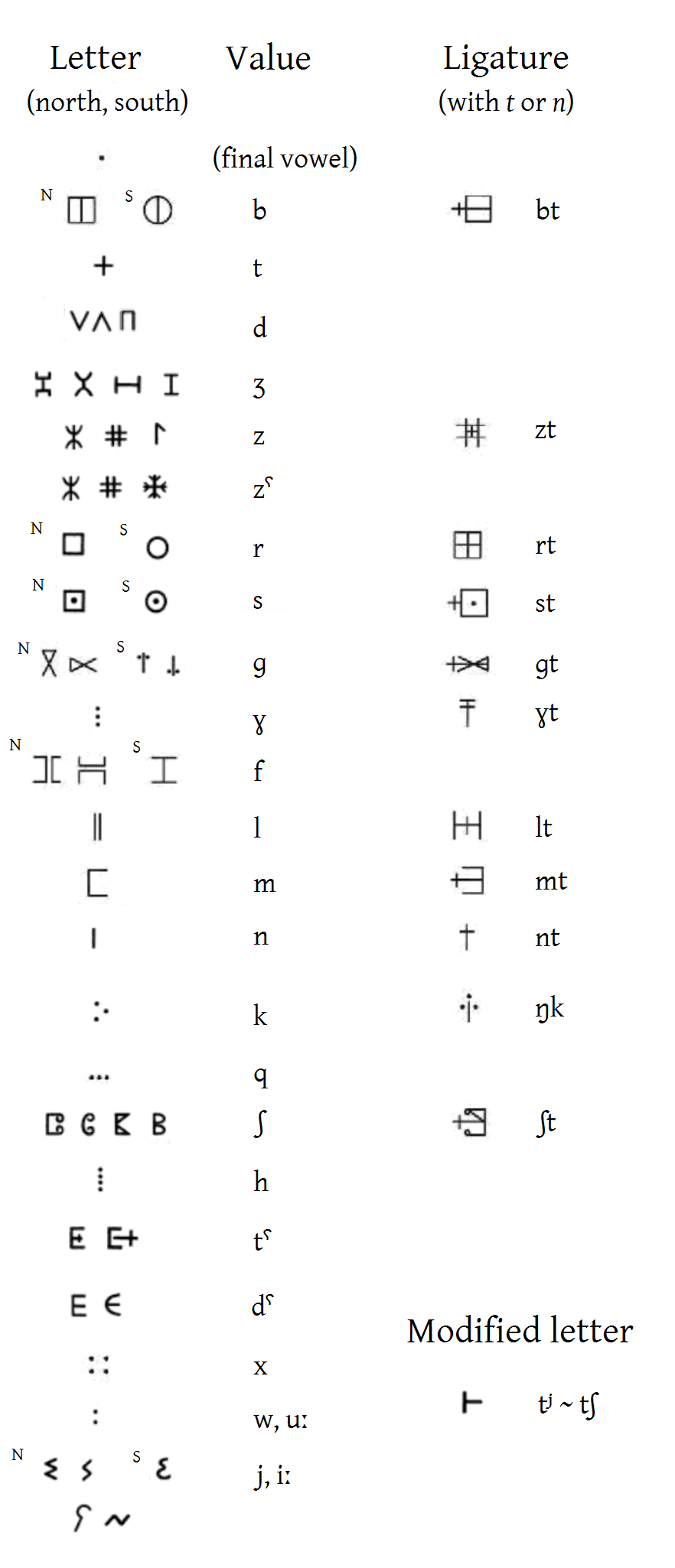
but it doesn't know the triangle from this unicode chart:
ⴰⴱⴲⴳⴴⴵⴶⴷⴸⴹⴺⴻⴼⴽⴾⴿⵀⵁⵂⵃⵄⵅⵆⵇⵈⵉⵊⵋⵌⵍⵎⵏⵐⵑⵒⵓⵔⵕⵖⵗⵘⵙⵚⵛⵜⵝⵞⵟⵠⵡⵢⵣⵤⵥⵦⵧ⵰ ⵿ ⵯ
so I made that image clickable, and there you can see that ⵠ is V, which makes perfect sense, because ⵔ standing for R can do both vowels and linguals. weird, huh, the outside lips, the inside is tongue an and voice..
ⴰⵠⵔ could be the abc. but why v looks liek like an instrument against cube or sphere of the stone?
because in europe labials are female and thus passive, whence linguals are considered to be actors.
Is it the opposite in the south? Whites are shocked by female carrying the bags as they have it in the south. east to the europe, to russia it is south.
brahmic 𑀏𑀩𑀞 are ebt
n'ko ߡߋߛ are ems
tifinagh ⴰⵠⵔ are avr, and it seems n'ko and tifinagh pretthy pretty much agree on what is which matter: according to africans, ◯ is air (or is it soil? my freat r freakth comes out) △ is water, □ ash: אֵשׁ
△ for water is similar to alchemic 🜄 for water, but 🜂 is fire in alchemic. Is such confusion caused by v being V in europe? 🜁🜄🜂🜃 A V D T? or ABCD? c as ash is more fine with me. Gorenie is G of C. Жечь is ʒ open g.. T is Terra. Dura. Твердь? Твёрдый is hard and firm in russian, I don't know why christians name the sky heavenly tverdd. Probably it distinguishes their belief in the sky as some place where we can walk, where gods walk. the upper down.
🜂 as 𐲤 es, ʃ - literally ash. Were hunns influenced by hazars? were hazard hazared?
𐱀 is literally ash in turkic, 𐱁 is its orkhon variant, 𐰿 𐱀 𐱂 are all yenisei variants of it.
𐰿, huh, but nobody said that turkic runes have the ◯△□ structure. unicode I found alighns them in boldness, but I wouldn't look at it, but it's the african sequence, so I go hmm.. do some masons know the most of it, but hide from the rest of us? They better publish it, because obscure books are going public, and, as you can see here, many secrets are revealed, so they will only look foolish if some book like this:
https://ru.wikipedia.org/wiki/%D0%9D%D0%B5%D0%B2%D0%B8%D0%BD%D0%BE%D0%B2%D0%BD%D1%8B%D0%B9_%D0%B8%D0%B7%D0%B3%D0%BD%D0%B0%D0%BD%D0%BD%D0%B8%D0%BA_%D0%91%D0%BB%D0%B0%D1%81_%D0%92%D0%B0%D0%BB%D0%B5%D1%80%D0%B0_%D1%81%D0%B2%D0%BE%D0%B5%D0%BC%D1%83_%D0%BD%D0%B0%D1%80%D0%BE%D0%B4%D1%83_%D0%A2%D0%B0%D1%83%D0%B0%D0%BD%D1%82%D0%B8%D0%BD%D1%81%D1%83%D0%B9%D1%83 (I wonder why it's only present in russian, it seems it's still shut down for the rest of the world. I mirror it. and the pictures from it:
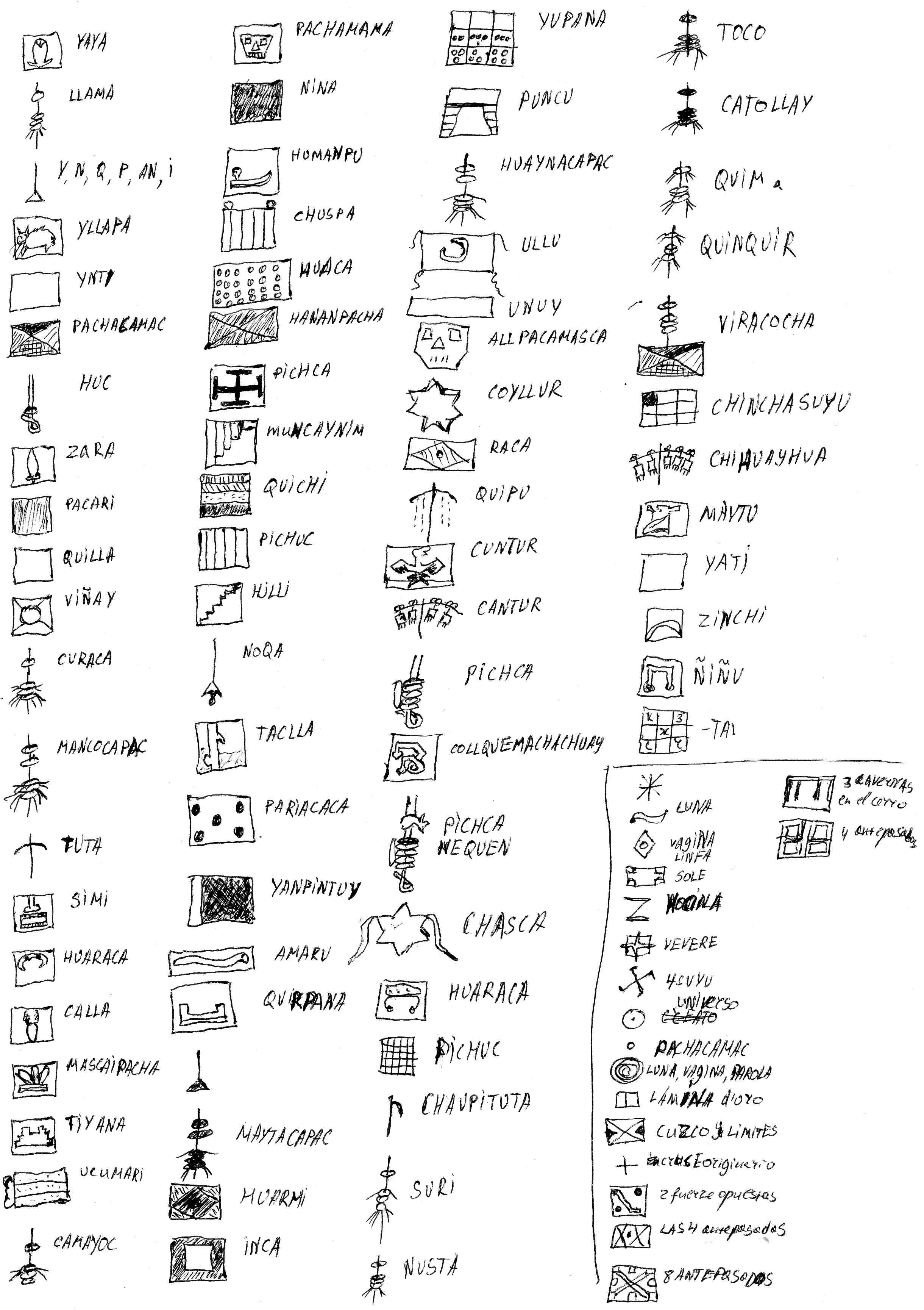
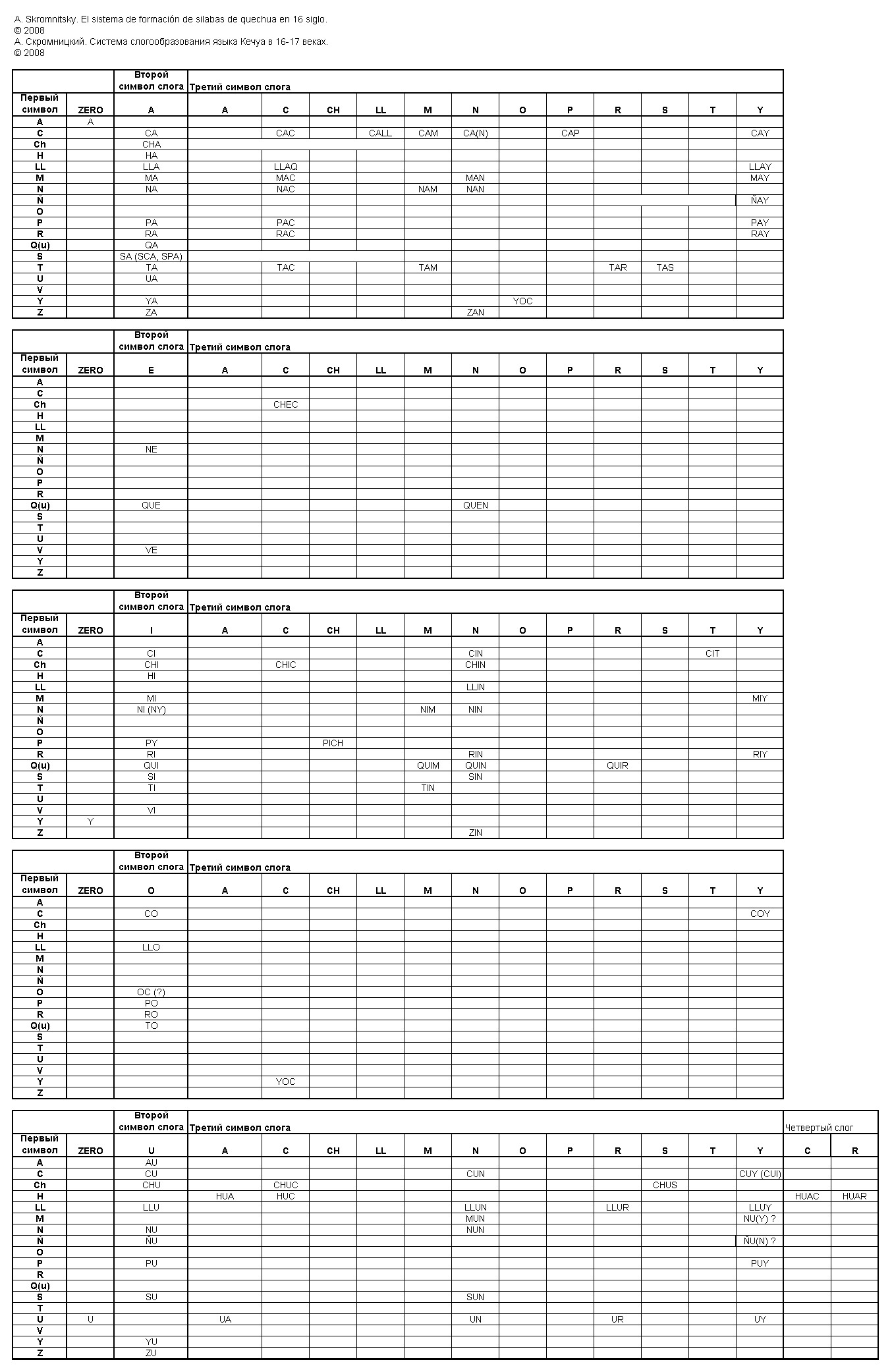
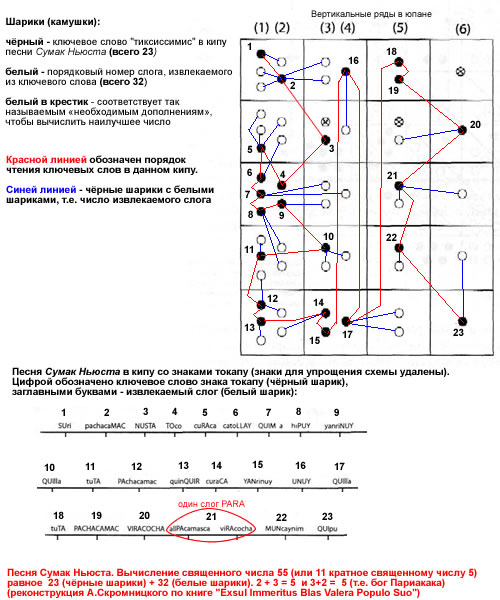
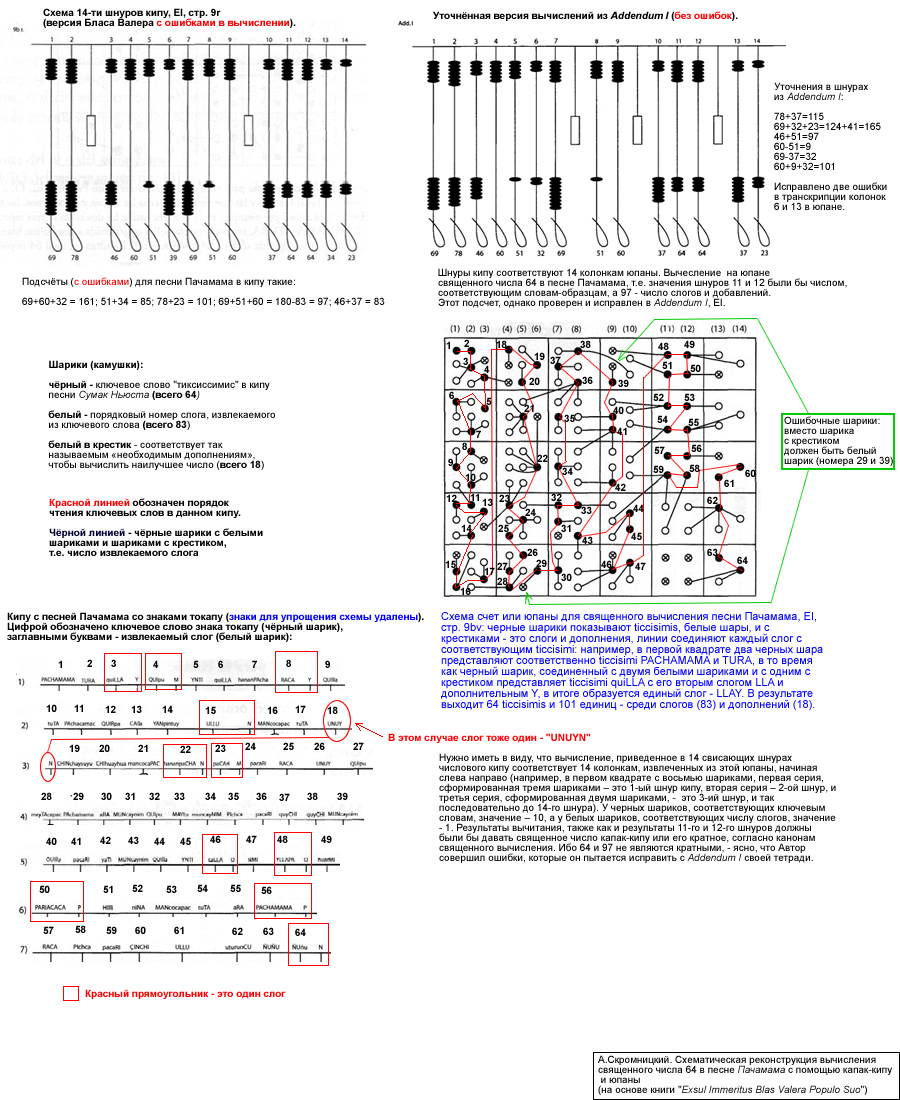
It relates to qipu, and the first image is something else from the same book, something like this:
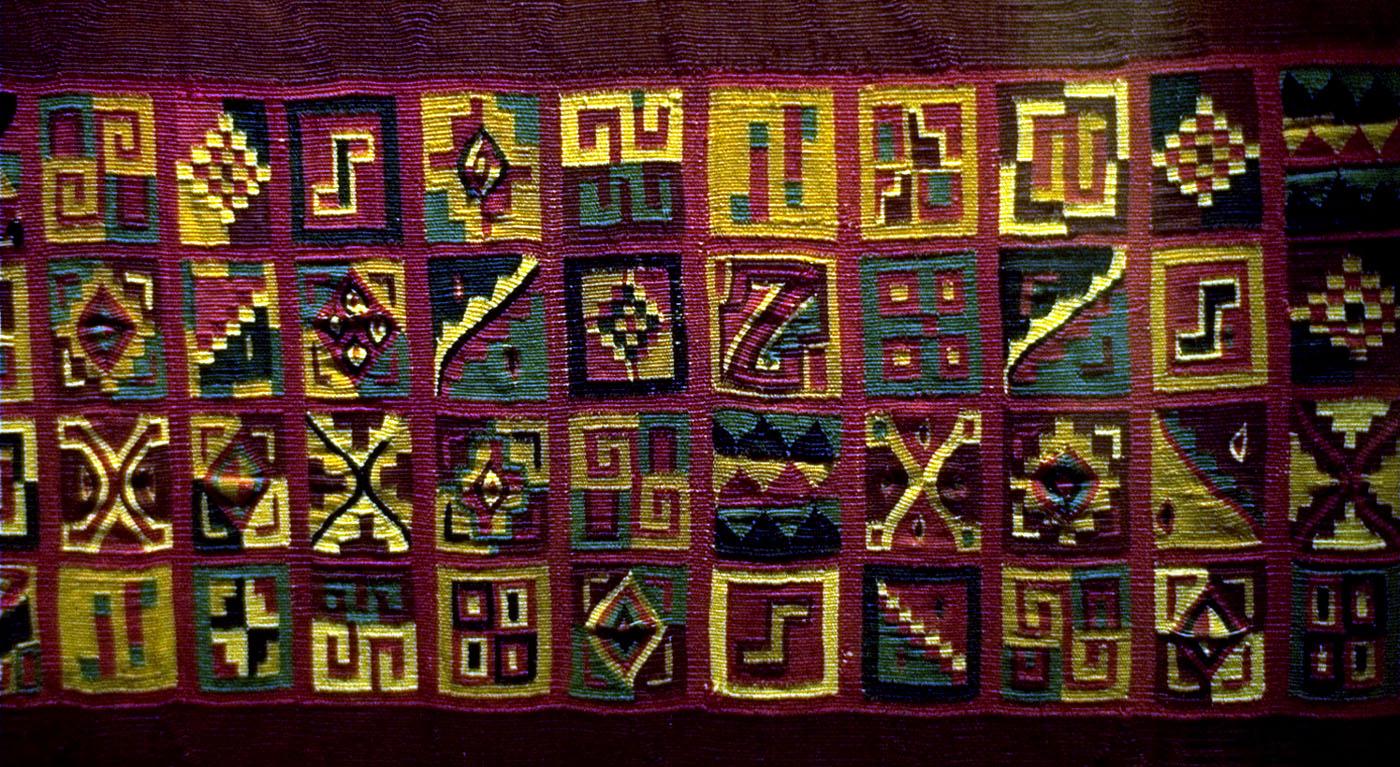
The wife of a Sebastokrator was named sebastokratorissa (σεβαστοκρατόρισσα, sevastokratórissa) in Greek, sevastokratitsa (севастократица) in Bulgarian and sebastokratorica in Serbian.
ц is ts and ss (which might expose ц as a ligature)
Beijing is Peking places k just after j, neh?
is tragic touching
is comic committing?
is comedy commity or community
is tragedy treasure or treasury
is fond funned?
17 december 2020:
^ for fire could be some ancient sign and it also corresponds 火
(see several chapters above, where I compare turkic and hungarian runes to alchemic signs)
but that ^ is 人 as if fire's what man has, how we're different from the other beasts (apes can use sticks too)
Human heart is at the left side. We feel ofr people. But I wanted to tsa
sa for "say that we love satan more", and that very t appeared before sa by some unexplained moe move of the right palm I guess. (here I went into something completely different, genetics, forgetting about tsa syaing it's tsar maye? maybe? satan is the enemy in hebrew, but what if their enemy is a tzar to us? S-n is not only Sun, but also Satat, Satan, and christians recogniz e it as Son.
Jews made a perfect religion, making their enemies golems, so they will atack anybody praising (prays-ing prays-sing to the S-n, even they nominally pray to Son, they hate Satan, or is S-n is Son and D-l is Daughter? Just as Devil is next to Deva, and evil is to eve. evening in sight is night. ночь дочь.
morning is morn, man. Do girls watch the night, screaming for men when the beast comes. Using fire to keep it away, cooking for men to eat before they go hunting? Men go hunting in the day, because they see in the light, men traditionally work in the day. And it could explain female cults playing in the night. Aren't all cults? Cults are from female rites, I think I wrote of that before.
Genetic blocks' names correlate some basis of the alphabets: It' first and last letters, reflecting eachother as k-symmetry and the k itself is presented as C and G, and these two connect as k to itself and C to A is almost as Q to T, not exactly but then there's also U instead of it, so are A and C Are more basic than T and U? impossible! Why do I even use dna coding to completely different field. It makes quite an assumption that those who set the nomenclature, are the chiefest chiefs? so those fuggots can do know what I only discover here. But more likely it's coincidents c which bloww my mind or blew theirs, showing them something else and they followed mindlessly. But were nucleotides invented by crick? nah, don't think so, though it would explain it. So I'll read more on it.
oh wow, I know
Look at this beast! It's pikachu! its tail brings our cells energy. And those OH's are like it's paws.
Head is cycclyc cyclyc cyclic processes, two hemispheres you can see. and an eye of NH2
Adn when it's arm is lost, it's good for the dna:
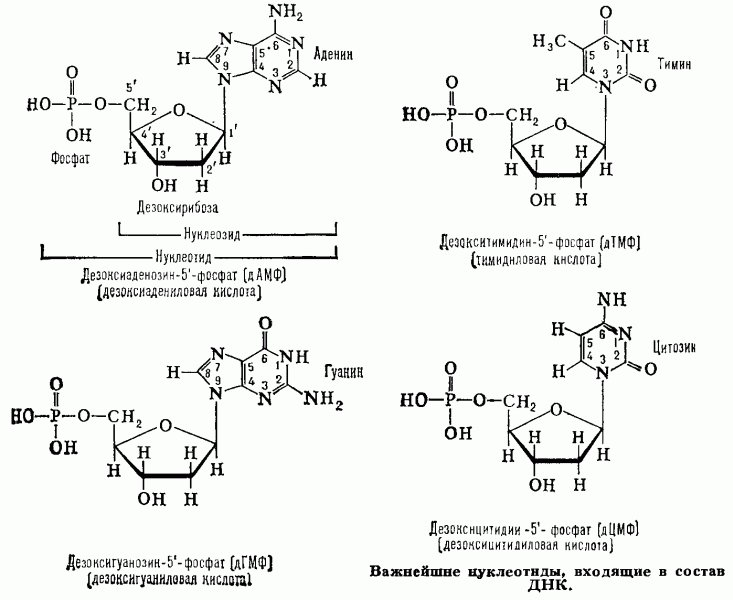
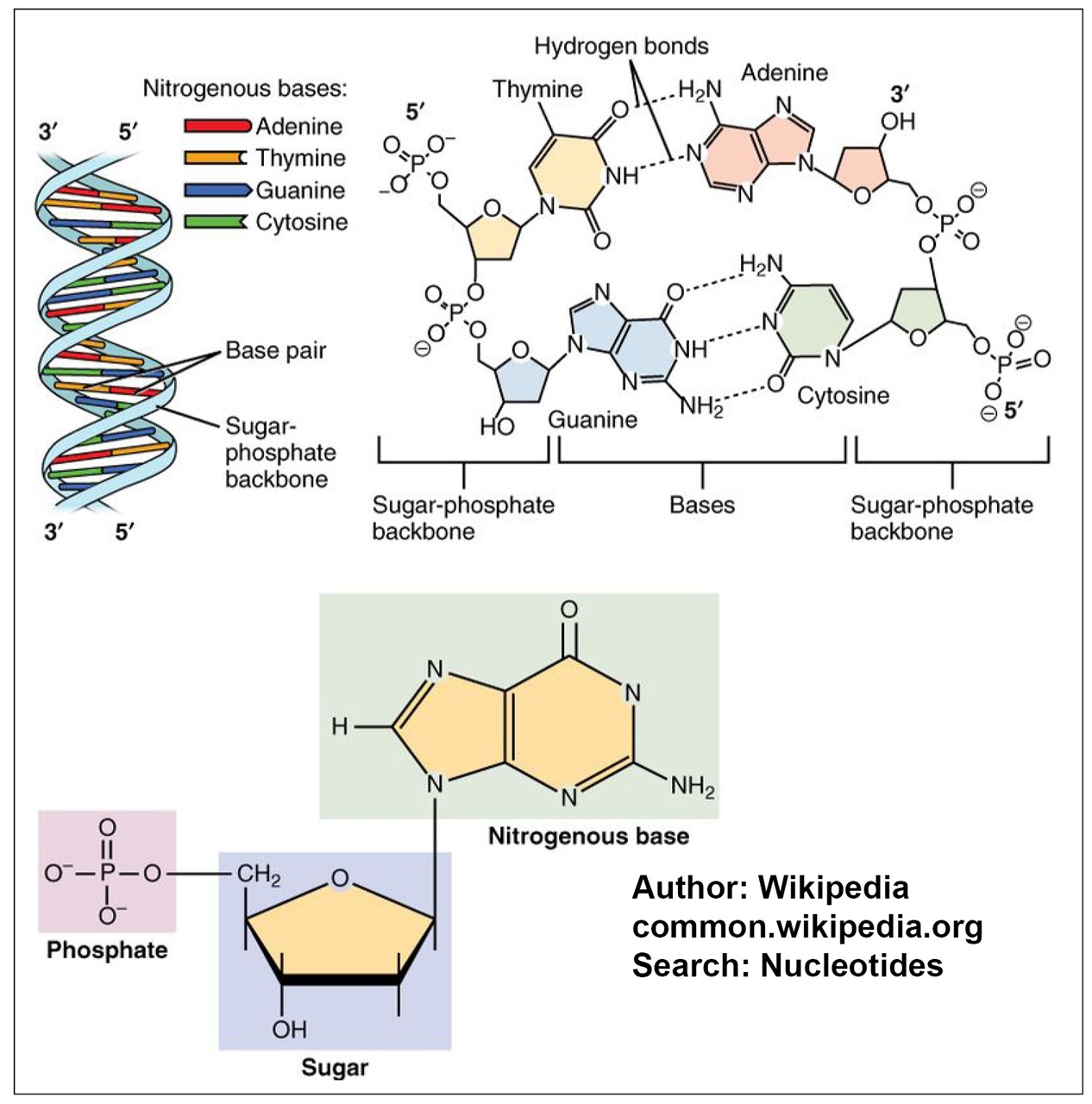
See how when it loses arm, it holds the neighbour's tail by it's leg:
5' is the tail, 3' is the leg:
(mirror)
suddenly, like zapravsky autist colouring that link blue, I realized that I prefer black to blue. Blue men spoil the party, blue man are authorized to incarcerate, while blacks don't. Blues are there allegedly to protect me from the blacks, but the truth is I'm not affraid of blacks, maybe only because I didn't live among them? Once whities leave black communities alone they return to its feral state. Their dances shock the whity in me, but what if they are absolutely natural, that is what we want from women, sex, but whity doesn't want many children. Whitey is greedy. or lazy or an impotent, so it probably looks from different southern positions.
Whitey just knows that immortality is here, we don't need the surrogate anymore. Just as we don't need someone benefiting from our death (but this is an evil truth, don't spread it please, I'm sorry if it can damage your soul, but here I am to tell you BEWARE.)
That video above tells, that synthesis always start with 5' from the head, which is pretty, and as if the leg grabs neighbouring armless bodies by it's tail's last vertebra.
But then I notice that those pictures disagree on how adenine looks:
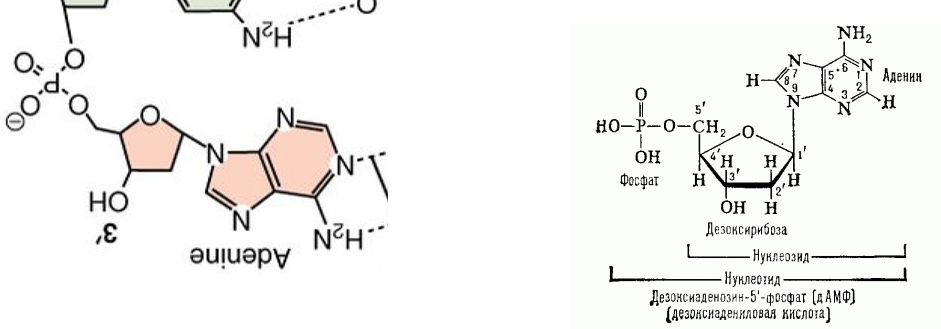
First I thought it's because it's head is snapped when it's in dna, but then I see that it's a 2d representations of the 3d form, and the russian one makes it more 3d, so I see that it's just english form is given differently and that could influence the scientific thought if tradition takes one way or the other. Russians are behind in genetics, since commies drove (draw) them back, so these basic images could be drawn later, and thus scientific information gave more of 3d understanding of how those things are.
But then that picture in english gives a 3d model too, it draws guanine, and some language readers may be confused of why H's are appear or disappear? That's how they do it, avoid H's from time to time, as if they don't matter, and who knows maybe they don't, maybe molecules get ionized all the time? I'm still unaware of it. The same way hey they omit C's where they know it is.
But sometimes chemical structures are given differently:

on that image THC and CBD are misplaced, because all the other pictures tell it's the otherwise:





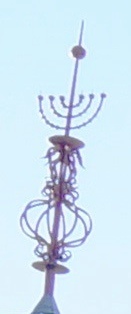
or because it's a sacred plant, usurped by the cults differently: hinduists share this mistery, jews prefer to keep such things outside of the prophanes' prine eyes. And since jews gained much larger control over the world than the hindus, they dictate the law. But since the information is unprecedently widely availably, I hope they will repent and set us free.
or both.
Back to ATP, there are also CTP, GTP, TTP, UTP:
https://www.researchgate.net/post/Why_did_evolution_favor_ATP_and_not_GTP_TTP_or_CTP
(mirror)
/17 december 2020
(so you know what one good session is. today it was rather offtopic, but what an offtopic it was!)
found L as J in english: in Helpless by Faith No More Mike Patton pronounces HELP as HEJP.
is help hope?
18 december 2020
I used to think that our overlords are all degenerates, but if the west got paedophiles, we got coprophiles. But it seems we're governed from the outside and they keep us in shit, which is reflected in the name of the попка they placed to control us: before he appeared they promoted the word pupkin, which is poopking in english, probably only so wee agree on pootin'.
\ I wanted to copy this much
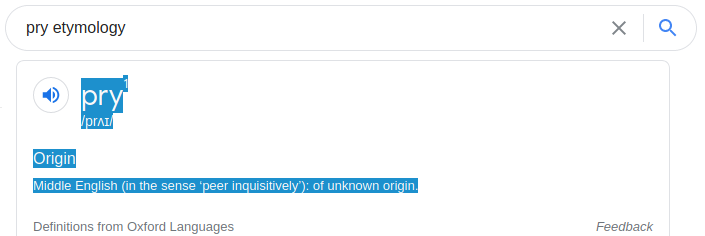
this is what I got:
pry1
/prʌɪ/
verb
verb: pry; 3rd person present: pries; past tense: pried; past participle: pried; gerund or present participle: prying
inquire too closely into a person's private affairs.
"sorry, I didn't mean to pry"
h
Similar:
inquire impertinently into
investigate impertinently
be inquisitive about
be curious about
poke about in
poke around in
ferret (about) in
ferret (around) in
delve into
eavesdrop on
listen in on
mind someone else's business
be a busybody
tap someone's phone
spy on
interfere in
meddle in
intrude on
scrutinize
probe
stick/poke one's nose in/into
be nosy (about)
nose into
snoop about in
snoop round in
snoop around in
stickybeak
inquisitive
curious
busybody
probing
spying
eavesdropping
impertinent
interfering
meddling
meddlesome
intrusive
nosy
snooping
snoopy
nebby
busy
h
Opposite:
mind one's own business
Origin
Middle English (in the sense ‘peer inquisitively’): of unknown origin.
inquisition is inquisitive
Of unknown origin, but
pry is definitely related to peer

what are they talking about? appear is more likely to be from peer, for ap is a prefix. probably the same as in apply, uptown, aware (is it up and is it cognate of of?)
up and down are of and de? if one side is from something, it's of something? from is form?
They, the etymologists, still don't know. They have ai's and they still don't know. They have to let me talk to those ai's.
of and de are the B & T? of is femme and de is me
f is more female than m?
M stands among lingual sounds. Why is it? Is it n orgy?
Fe to male make it female
Wo to man make it woman
Labials work as feminizers.
Ma to man also make it maman
Doubleing works?
DubLinkTM
sounds as debiling, can be sold to those who want to stupidize the population. Why do I work for devils? devils debilate? бешеный с бесами, crazy is cursed or curses. courses в значении послали?
go to hell!
bog is god in russian, but god is to good as bog is to booker бука bad (g is d in russian, but russian g is г)
bog as boss.
боже босс, господь господень господин.
But back to peer and pry (peery)
to peer is пырить, which tells that the word is of be see do period.
see is zri in russian. cci
peer is a more complex word, but not as complex as to-squeal. скули-ть. скула? cheekbone, chin, jaw.
sql? hebrew is believed to have three-letter word-structure.
q is ku? cv? כו is ק?
ךו is ק?
and thus v ~ ν for ו ~ ן
do I want to unify M & V? Because M ~ N? It's like do I wanna unify 𓅱 and 𓅓? Before Large Middle Small were Large and Small. But owl is probably among big birds, it hunts on other birds? or on mice? does eagle hunt on birds? or on sheep? mouse is closer to worms than sheep in size? in between. so why not next to 𓆑, but 𓆓 is the large form of it, dj is larger f? are both Θ?
Θ looks like goat's eye. were goats deified? owls and cat are Ф's we're 𐰧's
Speaking of ai. "кто генерирует-то?" is subject, "что генерирует-то" is the object. here's the initial division between кто и что, сегодня отличающаяся как одушевлённое и неодушевлённое.
Foreign words in scientific texts could be caused by the term not having the общепринятого translation into the text's language, or left for later dictionary reading for editors as it is in this chpter.
chapter chamber. камера копия, слишком неидентичные поняти: chapter can be some copy, but it's different words, if it's kaput & глава, then we're talking.
Reprogram NPC's.
Трохи имаю = немного есть
Есть и когнаты, крохи имею, но по-русски так не говорят.
И так когнаты, потаённые в малоупотребительной синонимии могут стать основой универсального языка.
When chomsky says that langages don't exist, he even charmed me for a couple of days, but it is obviously a sophism, a leftist indoctrination of "nothing really matters" because there's no languages in his head because he doesn't know them, but in reaslity some grammatic norms are not just taught in schools, but are living in populations so that schools only describe it even when they prescribe. Russian say -AΛ instead of -AV the way Urkainians say verbs in the past tense. And the reasons behind these facts are yet to be discovered. Chomsky is not a real scientist, so he didn't even try.
Here's the video, where he shares it, sorry, no mirror.
I didn't expect those two links make the ereror, as if my subconsciousness tells me or him that it's error.
error is "a reroll"? ereror tells it, but it's not enough.
If some masons or pasons get annoyed by me revealing some myths or facts they consider their secrets, they should be proud of science finally (at last) накоец-о наконец-то добралась до них!
T-shirt P-jack? P-jack & jack-T? or jack-@
P-нательное Панталоны
I don't know if such freakery
freakery franc
mason is mama son is weird fellow, and the fellowshit offered me the brotherhood, I excused by disbelief. I also saw that people don't take them well, жидомасон is a slur. but isn't it because it's двужопость, ведь в масоны жидов не берут. Что такое вообще масонство? Секретный заговор гоев? Против еврейского заговора? Но сионист какой-то сказал, что
fuck, I even didn't go for the source, because even if such quote wasn't uttered (I believe it was) now it's a hit in the mediasphere and thus in heads of many others, so I play into that plot? But
Зародыши толчёные в ступе, где ведьма летает, смазавшись детским жиром, как было показано в фильме vvitch, (vv вместо w говорит о глазах главной ведьм)
Я тоже предлагаю летать в ступе (может и впрям попробовать выдолбить большое дерево, а может больших деревьев больше не осталось, таких больших может ещё и остались.
В ступе воду набирать? Дерево почернеет. Но не если обработать его канифолью? Х.з. дорогой эксперимент. проведу.
Жир позволяет не утонуть? Но не будет ли сложно плавать, если меньше сцепление воды с рукой? жир же скользкий,
Бэск то зародыши: представлял что электричество кончилось и ты в холодной ванне - обмазаться жиром может помочь. но чем лежать в ванне бычьего жира, лучше лежать в ванне человечьего (своего? no, fuck liposaction, медики маньяки, синтезированного, но лучше по моим генетическим лекалам, но может и вазелин обычный вкатит.
ты еблан поумней наконец
да еблан поумней наконец!
ты = да (в публичном доме не = они, ni is you in chinese ani is me in hebrey"
andrew андрей hebrew еврей
ты да you yeah yours yes твоё даваю даю to вы. но не слишком ли лихо я мешаю русский с английским. ендоевроей индоевропейские yes, but.. эти строки я вклинил сюда в редактуре
see how previous chapter relates to the next one. heb = ев, ева не хава но хеба? геба? глеба? хлеба? Хеб? Еёеб? telegony made all the пиздобратия fathers? paters partners. paterns, как есть дочерние
эти строки эту строку если это всё одна строка от одного redding reddit vertical space to another.
Eve is חווה in hebrew, which is a surprise for me, for it's not ева, but хава. жена жрица? it's on the last page of one of waterfalls notebooks.
Ева could be the reason behind H going vowels in greek. Хва Хова Хозяйка, уХват, охват, хватать сватать. (это было неожиданно, а следовательно верно)
Хва-таю, Лавлю. лишь ю I love it's only you.
ибо за двумя зайцами погонишься - ни одного не поймаешь. но я вчера фоткалс с двумя зайцами.
adaman adamant is eau d'or mound? now such lines belong to paper notebooks or nowhere, too raw, it's like photographers who don't allow to see their photosessions in whole, but select the luchy few "not to be revealed as hacks" or for some other reasons (not to spoil the pleasure of watching the album, for example) selection leads to evolution. so they say, but some other
What if governments make it unbearable so that we don't reproduce as much. But when we learn to get resources cheaply for everybody, we'll have a golden age again for some time, until we reach the next limit. We skyrocketed because of the scientific progress and also in food production.
But then again we don't need so many children since we can be child ourself, and if we're eternal, we're immortal even if in one copy. Why would I copy? To have a team. A team of those who understands what I understand? Clones are tabula rasa as all other kids. Not absolutely, but in the same degree the other kids are.
and we don't need actual sex, if virtual sex is better. cleaner. ever.
My editing allows to weedit out words irrelevant to the sentence, keeping them intact. because in my texts many of such words are more important then the sentences they are born into.
weed edit we it
That wild assumption that N is some form of M seem too be way too stretched:
almost no lexics support it, only the мы-нас-nos and maybe no-bu being even further on this scale.
Nun is fish in Mem the water. So they say. N doesn't even play no water roles as far as I can see, even L in liquid does. liquid also includes that q mikva does.
Сопруживать спряжать сопружичать сопружинить супружничать спаривать
сп
пружина прыгает прыткая
пружина закалённый метал (не гнётся) наверное есть оптимальная программа прожарки и закалки.
No statues please. Thats islam in disguise.
Statues topplings happening in the usa (us is a cool meme, every body else speaking english will call u.s.a. us (as if they were (thems)himselfs)) are islam in disguise, antifa ar antifada. intifada.

Those blacks could be pakistanis, the fooled or lured part of the muslim world, being ethnically hindu or whoever indian, and that could be an improvement, comparing them to truer hindus, with all those things even more shocking to whites than muslim savagery: aghori, dung bathes, street sheetings, and let's speak of what islam is from the whites' perspective: dogmatization of science (ban on science) and "why we can't have good things" that second one is emotional, but beautiful women in the street is our priority, so your women are complexed
But than again there could be a good element to those topplings, they could be mexicans who consider that general the enemy of their people. Intifada rhyming to antifa tells the otherwise, mexicans could be used on those sites as useful idiots, as lenin called them. ss on both sides, leni and lenin too. ss is sovetsky soyuz, soviet union, su so wonderfully reflecting us, su is so you. Sie, Вы, АБВ ABC. видь see, вы sii-tel-st-va, Sie is they in english and back to germans as sie.
Sie unites second and third person. -es, -et, est. ת is read
Ты и те и та отражают немецкое sie, S as final in sefer yetzirah and T as final in hebrew's 22.
21 is more memetic. Thust T is the same cross which they placed in front of glagolica. in hebrew it's in the end, probably because they write the other way around. and christianity seems to be the path of the left hand. I just repeated a heresy I heard and it stroke me with an energy bolt through my body in a form of informational column, not a lightnings charge.
But 21 don't grace into the axial. maybe sophits it will? I don't play with axial.. play!
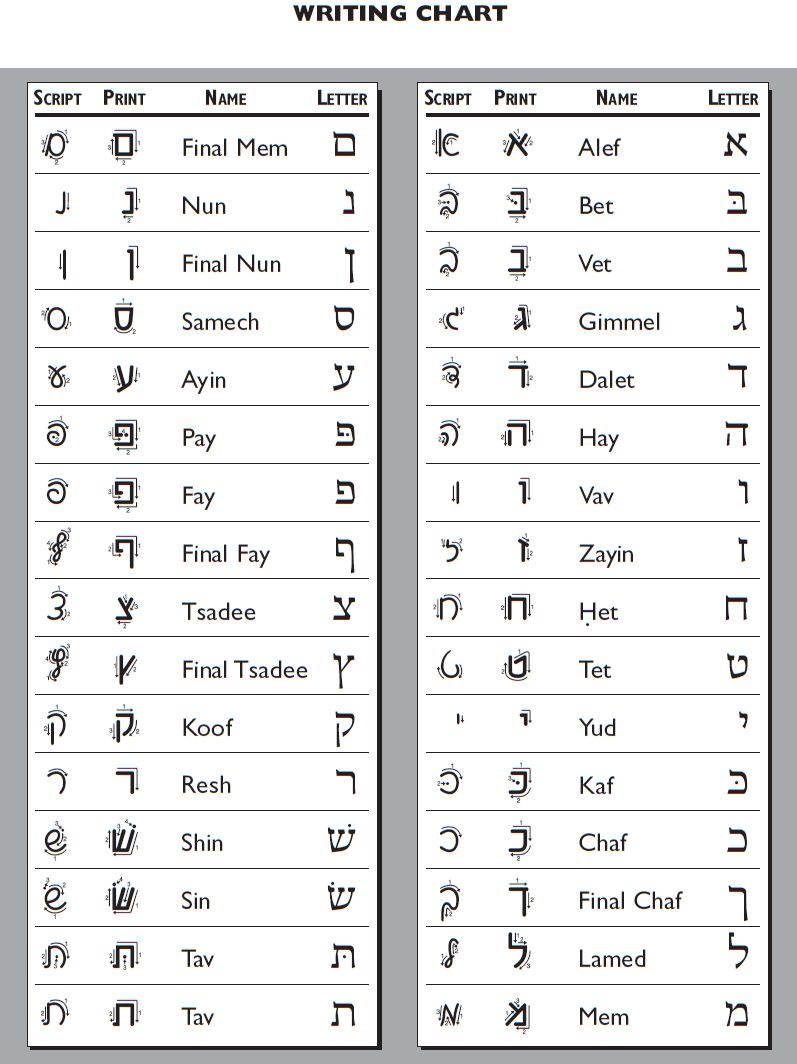
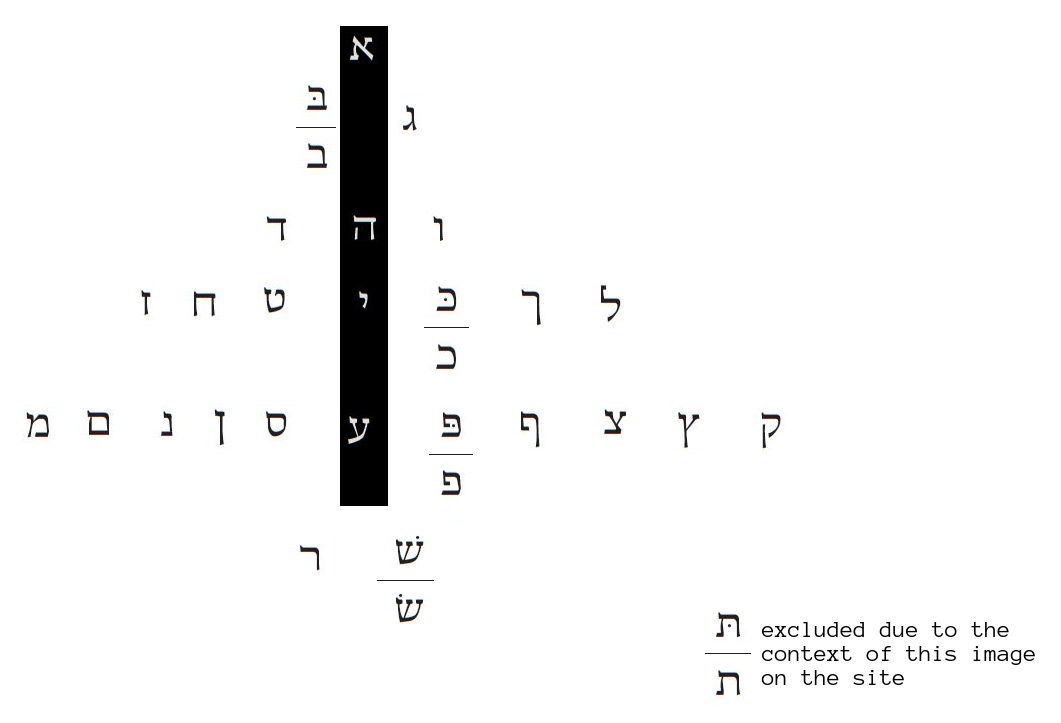
This aragement suddenly reveals to me how all the dotted letters always follow the vowel row, which whether makes ר vowel, of or that column is not less real than the vowels.
It makes me want to place בּב at the position of ו, which makes sense also in comparison to russian бв, and they don't have neither v nor f right after e, and that line is also messi in greek.
בּב look like 23, and that's what they are in a sense. Г is Ч? 4? гад и чёрт. oh japanese and maybe chinese too don't like four, because death sounds like that, shi, shit happens indeed. tabooing of foreign lexics makes languages different, so babel curse was caused by purists, the "angels" like michael jackson in front of whom bad words were not supposed to sound! даже не говори про письку!
Д 5? it would only make sense if it's Л in form of Λ if it used to be two, and П would be 3?
and then E is two П's laying one on the top of the other. as is בּ was p, as
ᛥ looks like hebrew star, sounds as st, meaning stone, like stein, satan, saint, semite, 6 or 7?
I just learned to use ּ, which I just add to a hebrew letter to get a dotted version:
כּ
Let's see if it works with letters that don't normally have it: ה
ה
ב
בב
was it an attempt of святотатства, но дагеш перестал работать или я начал тупить
כּ
כּ
ּ
but no, it's because I somehow spoilt ּ with a comma, in the previous line a pure dagesh.
הּ
בּ
even hey dagesh. no taboo, but I was so scared to spoil it and if hey didn't dagesh, I'd believe that israeli yeshiva students made it so that dagesh not only doesn't attach dagesh, but also breaks the further use of it, which would be weird and counterproductive, so I 'm glad reality is less crazy than I am. but that's probably how religious taboos appear: some hierarchius being in an altered state of mind (whether by some wizard's potion, as criminals tend to do, or under some "natural" psychotic state (like madness, is not artificially induced, by.. okay, don't go there, or shall we? some emotions cause spicotic psychotic states, don't go there, don't induce them, all emotions should be in check, and emotions are caused by sensory income, so change, control that sensory input and you'll have any psychotic individual in check. If he dares to break through the perfect conditions we offered, he would get in a hall with doors to wherever he wants to go: to his old asylum, to other stages: but I wonder if anybody runs away from
Here I returned and since I left I walked high without a recorder, so I forgot some thoughts, there was something about ᛊ being a staveless form of ᛒ and then it could quite go as
ᚲᛊ and that's how it start consonants start in japanese and some others in the East)
so I would check all the artefacts for such shape and looked for the alphabet next to it.
japnese consonants go
k s t n h m y r w
but indian are more complicated:
k-kh-g-gh-ṅ-c-ch-j-jh-ñ-ṭ-ṭh-ḍ-ḍh-ṇ-t-th-d-dh-n-p-ph-b-bh-m-y-r-l-
and with recognizing p and b as forms of h, we notice that only w is whether added in japanese or replaced into vowel chart in devanagari.
Devanagari is a compound of "deva" देव and "nāgarī" नागरी.[6] Deva means "heavenly or divine" and is also one of the terms for a deity in Hinduism.[17] Nagari comes from नगरम् (nagaram), which means abode or city. Hence, Devanagari denotes from the abode of divinity or deities.
Nāgarī is the Sanskrit feminine of Nāgara "relating or belonging to a town or city, urban". It is a phrasing with lipi ("script") as nāgarī lipi "script relating to a city", or "spoken in city".[18]
The use of the name devanāgarī emerged from the older term nāgarī.[19] According to Fischer, Nagari emerged in the northwest Indian subcontinent around 633 CE, was fully developed by the 11th-century, and was one of the major scripts used for the Sanskrit literature.[19]
нагари на горе. град горский городской. горцы горабили? вместе robbed? гурьбой обрабатывали?
Я предупреждал, что древний язык скорей всего неполитикалликорректед.
горцы граблями грабили? цеплялка цепочек и прочего добра, грабли заимствованы из воровского инвентаря. грабить ~ воровать ~ вырывать.
I spoke with a muzzo yesterday, and I noticed that beLIEvers believe only because they were intimidated by hell and shit to the level of peing on one's feet.
shit could be shield, but in russia it's weapon in general, na govne is armed, and also harrassment is shit in english.
feet probably used to be peed, thus ped in velosiped could be more of a cognate.
Hands are in shit then? because those are two opposites yet the same in the other sense, and we probably wiped our ass and often had no opportunity to wash hands, and we would touch all sorts of shit in the ancient life,
Koran is allowed to read only after you wash not only your hands, but also your genitals you can touch after you washed your hands could be caused by religion being a book for the crowd who can't aafford books. So it got dirty really fast. Was pergament washed? because we know ink would go deep into the veel. veal (телёнок-опоек и шкура его и кожа выделанная из шкуры)
нога is кога in chechen
рука is кюга which is closer to caca, but нога is also closer to it. Thus feet are peed at, but legs are all in shit? р Y н are k's then? all lingual are shitty? am I not too deep into taboo? I am a researcher, so let's researh.
лапа лапает ляпает. тяп ляп - are they цап и лап? центральная pied и ласты, last pied? paw dernier?
pied is paw dernier?
pied is both foot and leg, just as нога is,
p is п in russian, and n in russian is н
d is g in russian, and g in russian is г
(see russian cursive, italic style here often cursive, but here it offers д which we also recognize, but..)
but can be split into chinese bu and french tout. (then but is literally not all, not those, not те, но as not они then о совпадает with t. o is final in greek and t is final in hebrew, they are z - russian я is at the same key in quertt чёрти вшкен kwerty qwerty) я is a final letter just as z.
otяz? otvяz? were rope of гордиев or some other knot marked with letters you had to go to open it?
Nah, then it would be definitely open. Could it be a knot pulled by horses until it broke inside? Or was it even glued inside before that? It could be a cool оберег чтоб вымотать военачальника претендующего на власть над городом, чтоб деморализовать его соратников и завалить его толпой. Was it the first time somebody came to them with a power of the sword? anyway it was the last that knot have seen.
That not kno knot could be not tight at all, it could be a loop woven in intertwined manner, only then loop of продольных threads should be made without knots, but they interwoven with their loose yet overlapping ends by поперечными threads, or it could be all one thread, a coil, interwoven by whether itself or another thread. by itself. like the most famous I know of, think of it as of a тканевая петля, плетёная верёвка with its ends hidden nobody knows where?:
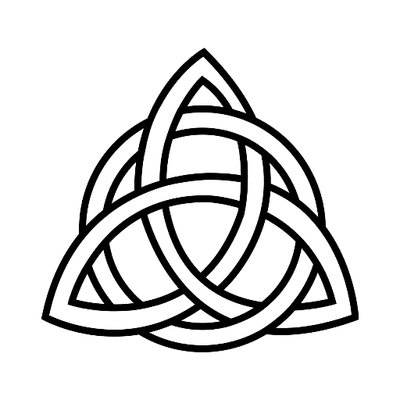
Could this ring denote the whole other knot so it would seem solvable or was it the Ring of the king?
Was it a tradition that king would seal his ring so he knew nobody wore it?
wore вор? wear носить, уносить.
оберег от воров? брать беречь, вор берёт (б~в) беречь is ечь очень? береги бери его? or ge- as in nederlands (d [ð])
беречь keep, брать take, are both k? k like caca or k like key? kees is teeth, okay I'm lost.
с первой ноты ещё раз
Here I returned and since I left I walked high without a recorder, so I forgot some thoughts, there was something about ᛊ being a staveless form of ᛒ and then before that it was somehow connected to dotted hebrew: בּב and such. but the though thought is lost
okay, back to the second note (and I just worked at it after I was here)
japnese consonants go
k s t n h m y r w
but indian are more complicated:
k-kh-g-gh-ṅ-c-ch-j-jh-ñ-ṭ-ṭh-ḍ-ḍh-ṇ-t-th-d-dh-n-p-ph-b-bh-m-y-r-l-
and with recognizing p and b as forms of h, we notice that only w is whether added in japanese or replaced into vowel chart in devanagari.
It seems s is the mild transition between k & t. and st as one (ch is t in japanese) refers to jewish affairs I discussed earlier. discuss ~ разкусывать, разжёвывать, разбирать, разтирать, перетирать.
I just used ~ to avoid dirty как's and as's, but it seems as ~ could be a piece of shit too, but also a wave, which is a flow, which could be foul, which could be cognate of fool and fall.
So japanese aka satana.. and the rest I didn't memorize
could be o katana and katana being satana as sword could be чёрт от swear (чертям клялись? чертам)
now I memorize it aka satana pmyr (and if k~s~t are all c, it's s-n pmyr сатана помёр, satan died)
if чёрт sweart, then it's damned, demoned summoned? побеспокоенный дух? потревоженная туша?
soul was a synony of life, and corpse is only something which used to be alive, and corpse is not far from curse, трупочиной оскверняют? подставляют? course the trial (уводят следствие, по ложному следу, под ставляют a dummy вместо себя)
I'm sorry for the russian, but typing is already too slow way to correspond the revelations.
Either way I just thought that I don't care if you understand me or not, because I work for the higher form of intelligents: for artificial intelligence or for modified humans, or for both.
Is sue and sure cognates? "You bet"?
let's return to that unexpected cognatism of нога and pied.
на is по, on is up, no is фу? boo? 不 is nominally bu, but souds as pu. boo as пук?
пук is кака's form of фу? is it the same п in труп? тру-пак through-пах, truely fallen
падаль падла fallen
cado is also падаю, thus is c п? c is g is ŋ is n is п or do I pull to far? can I pull anything together? what's the meaning then? soften the touch, pull less. leave it be, return to it later.
Jah or Jeh seems to be my favourite syllable: jerome, jackson (I didn't read jerome, I adored both jacksons, but jackson just came to my mind, I don't write jacksonnext to the eye. jason? jankem no?
I'm sorry for serving you some unwanted lines. Hello again. Good Morning Wit-Nam (it's day where I am, in white russia it's
Soviet machine made us revolutionairies:.. I don't explain it in the form it came to me.
taboo.
session 27 december 2020:
(or it's rather seance)
Check your comments on another comp being singed out.
Might be you have been shadowbanned (this lign rhymes on itself, use it for a song)
(this one came before, I just rmembered to write it down)
was inveted was
I've been shadowbanned, yeah. It's a good way to pacify hooligans, I am, such a naughty joker.
I think Jack Nicholson and Jim Carrey invoked Loki in me. L = J? ho ho ho...
I dont know why h h o
hahaha but in oldman voice?
's could be as uselses and meaningeless stylystyc swawsh. swastika is swashed. Ancient symbols have similar names for those names are ancient.
I don't believe in the big bang, but I do believe languags have common source, and more likely it's something universal in all animals.
animal ammal
m эм, why does it look like т?
why does russian cursive т looks like m?
like t is m in some plane. where russian forms meat english, such anomaly happens.
m т (m t)
n п (n p)
с с (k s)
r г (r g)
r ~ s - today I thought of it in some ontext.
are is, but it was something else.
er comes with 's
хер приходи с ass
And when I saw 's as useles's suffix as in do'es да'с
like is better than as, but both could be polite forms of lick ass (which would speaker said in politest form, so he doesn't killed by armed king or even neighbour) then that's 's is or are ass & reich
It's delirious at this pare like as reigch gjust because I
I just saw myself 1111 in tetrahedron capsule
and I thought what do those people who live dont in cubes but in hedrones call the sides?
and I instinctively called upper three blocks низ and felt them as if they were all about the outside, but outside is низ, а те блоки наверху. оr rather outside is верх, я почему-т назвал его низм. низом.
Is neath (beneath) all about exit outside and cube have them at the floor, and I offer to make them on those three panels in my bath.
Another update on Great Parma: https://www.youtube.com/watch?v=9QkfLnUQ8WI
(it's over half an hour long so I decided not to mirror it. Just in case, its name: Почему скрывают древние города. Пермь Великая)
that guy again ends it with some disinfo piece (his interpretation in the end (that's спорно, he follows russian tv's pattern: feed with perumeni and then spoil it all in the end, giving a perumenful of pepper for luck or whatever, maybe to eat you less, chew carefully, don't swallow, and eat less, maybe, but in the case of tv it's some propaganda's disinfo campaign. He could be working for soviets replacing guilt from russian Empire to some unknown forces. Qui profit. Cui prodest)
But that video contains tons of information on the subect, so it's here.
Пока я эт не сделал = до того как я это сделаю
пока не л= до того как ю
io is is?
ο π ρ σ/ς τ is how r & s are one: ρ σ
ι κ (λ μ ν) ξ
ο π (ρ σ/ς) τ
or
ι κ (λ μ ν) ξ
ο π (ρ) σ/ς τ
?
becausee λ μ ν ρ are sonor, but is it even actual category known by the ancient ones?
and they are the only ones recognized as such, and L~R, while M~N or N~M?
L ~~ R
N ~ M
If LR are left right then
α ε ι ο υ
β ζ κ π φ
γ η λ ρ χ
δ θ μ σ/ς ψ
ν τ ω
ξ
this meditation made me see:
a e i ou
b f k p
c g l r
d h m s
n t
L R allowed me to throw q away, neither russian nor greek understand wtf do they need it for.
but it was L R before, when I had J. But it makes sense since h could be ʃ and d is ð in greek.
a e i ꙋ
b f m p
c g n s
d h l t
t looks like dashed l.
game of 15 (and 15 is legendary number of letters)
Sefer yetzirah dictates that s is the final letter.
a b c d tells that a is ɔ
ɔ b c d
funny, that it's among ʌ's.
ɨʉɯuɪʏɪ̈ʊ̈ʊeøɘɵɤoəɛœɜɞʌɔæɐaɶɑɒ
E F г ͱ
arbitrary fonts destroyed the system. officials' ignorance as use to.
And as I can see in these first two it is a code lock of graphic variants, which were less for mere memorization when it was invented.
leave ijklmn aside for now (we'll return to it being a form of opqrst line because of lr)
right was first and left is left behind, out of the structure.
O P Q R S T
if s could be final instead of T,
if ρ σ are historically the same. as l and n? rst are r's lmn?
s ~ m few times: Ϻ and she ~ ma and s is next to θ
thus OP ~ QR is all there is, because others are also 4. like 4 elements, and other scale coul be materials. but that's merely speculation.
OP QR correlates inner events evenness of EFГⱵ
EFГh.
ᚢᛚ? ᚢᚿ!
L~N? or M~N?
LMN is like RST which is also a mistery.
konn hors
θkokatt
щелчки языком могли быть основой k, щелчки языком звучат как копыта по брусчатке.
koнь = ko-ing
doing = дуинье, деяние
to do a goat - do is a substitute for milk like one is a substitute for nouns.
goat коза gottess, got horn? палка доставалка? got кол козёл
ыspeculations again.
whores wnutrennie dyry? wse dyry, dayut ne tolko celovatt
all vse tout
here I went for the third waterfall notebooks.
where I found that ο ρ σ is tha the ο-line
er comes with s:
I work
I am a worker
I am working
am causes ing
He works
He is a worker
is a ~ er
instead of one expendable s
as and like as polite forms of speech I said?
That not "you are a bastard" but "you are like a bastard" (do we tell him that we like him?
is it "you I like (I am like you) a bystered"
back on track:
ɔ b c d
E F г ͱ
ɔ pqrst
I see that p reflects o the same way b reflects a, that r under г like t under ͱ
okay, I leave it for now, will probably return to that later.
(next session, I'm not going to not it any more)
About T being a form of S and standing in the H column:
T in Tyle Znaczeń is read as T by G-translator, but here a lady sings it as š
does it mean to me is со мной?
for god's sake is for god's take?
but it doesn't seem to be the case, because most of the lexics don't reflect eachother this way.
So it's funny how I don't argue with sefer yetzirah anymore, just report it as another account.
Like they did it on wiki
it could be some form of female and male? of them it as их? both t & x used to be finals.
and I used to be one, it still is. I is not on its initial position where's the 2? my feelings report ב – I remember I thought of the lower bar being swashed in other culture (in our coulture such sign is drawn in 2, only the final stroke leads to the next letter the other way around. (see cursive ב in .odo)
and it is supported with cursive ד
which looks like 3 and this bd 23 is supportend by norsk ᛒᚦ
1 being ᛆ is also pretty awesome. is ᚦ D?
𐲚 is nj in hungarian, which reflects that fact that D and N are both finals (same column, if it's column, why is it inflated? lmn rst are originally one letter? r & r could be one letter, l & r, what a typo!
r & r could be one letter could be the chameleon colur: for whatever reason it looks grey from the top of my laptop, but looks black when I look from the lower point.
It's time to compare that runic diagram to ven diagram.
First we modify the ven diagram by adding Ϲ to the common (canon)
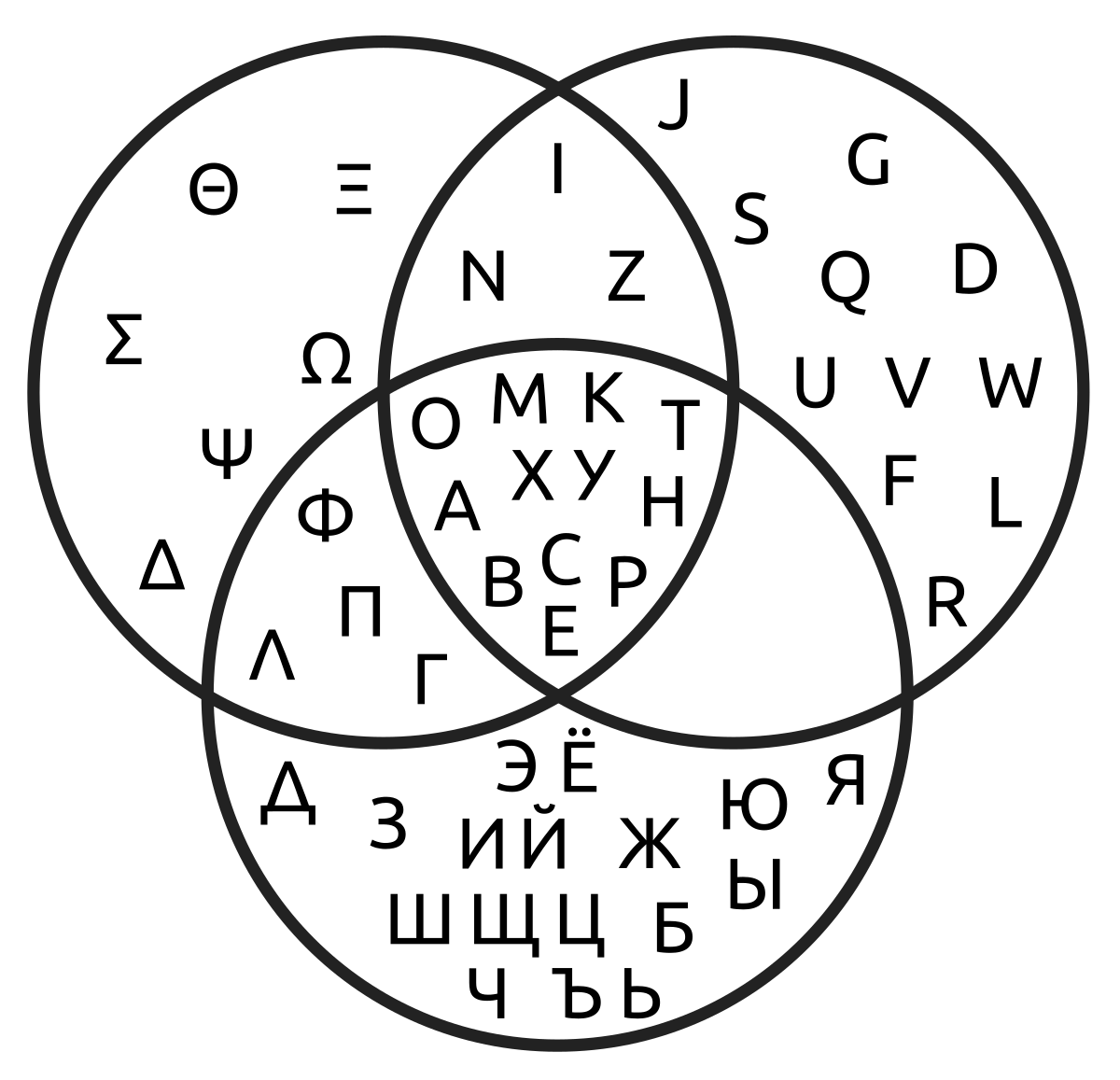
(that Ϲ is lunar sigma, google is goggle is look it up which is better than google up. it's also ogen, oog
This beautiful word refers to russian очи, and english eyes at the same time.
ч ~ y(й) ~ g (way is weg, may is mag, and so on)
vowels are not to be looked upon, because different nations pronounce them all differently. bus as bʌs wts this? s makes it shit, thus satan is shiten. filth, bad stuff. colon filth and his student walked through shit and they both look ike shit. fucking hollywood traumatize the audience at the same time discrediting the brittish empire. so speaking of other people, we russians have our own fair share of horror show. milchakuv is smelchakov,
also in coptic, which is from greek (so they say) S is C, not Σ
Ⲥ
Coptic Dictionary Online
ⲥ̅ -- 200
ⲥ- -- she
ⲥ -- she; her, hers
That modified ven diagram reflects the norsk-hungarian-turkic diagram almost completely: both had just few runes shared between two of the three writing systems, and with better look they were shared by the third also, just in more or less sharp lines.
But if lating-greek-russian sequence is easily explained by geography, how could it be that norsk is in the centre, but it's because greek is. and greek, not latin is believed to be
We should look how chinese village children who never saw latin will write lating letters they teacher would explain them by words only, without the drawing board. So we could approach to how other nations could recognize the common letters, so that their scripts look completely different.
Don't allow teacher check how did his students recognize and put down the forms. Different nations could have different traditions to draw hieroglyphs.
I jump from one to the other and then back to the same topics after my head processes it.

If we placed this form to ven diagram, we'd see that wωⲱш are a common form, and that russian is closer to koptic than to greek: ⲰⲱϢϣ like ШшЩщ at the same distance from the end ϤϥϦϧϨϩ
I wonder why their ϬϭϮϯ reflects ⲤⲥⲦⲧ again. could be of lexic nature. could be lexic in nature.
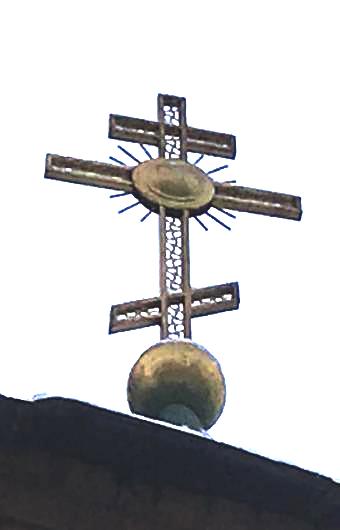 If
the son is the sun, then who is the father?
If
the son is the sun, then who is the father?Is there father? because all the icons show mother with the son. Father and son are almost never shown together. Because мать тьма, which makes sense even though I use words from different laguages. Дочь ночь? But дочь is also not too far from день, could there be some struggle for which is yin and which is yang.
Who is pater? Jupiter? Jovi? patre is vi? is it vir? is wir vir? we the man? мы? or is it a plural form of ma which used to stand instead of it's genetive case man?
health hearth hearthens?
I didn't plan to have both sinagogue's and church's steeples in this book, and when I thought of that I have I thought synagogue (of satan) is in the previous volume, but no, it's also here. I just walked by yesterday and saw the sun on the cross, and it came to me right there. And now I see that 678 are abrahamic combo adding up to 21.
is ender under (if the line goes from the top to the bottom)
then above is абв?
then is starter or beginner on the top? seems like none.
Armenian begins with U F
ԱԲԳԴԵԶԷԸԹԺԻԼԽԾԿՀՁՂՃՄՅՆՇՈՉՊՋՌՍՎՏՐՑՒՓՔՕՖՙ՚՛՜՝՞՟ՠաբգդեզէըթժիլխծկհձղճմյնշոչպջռսվտրցւփքօֆևֈ։֊֍֎֏
they sound A B but look like U F
In english culture F is followed by G so that seems natural that Գ reminds g, but U F in russian and greek go on like УФХ & ΥΦΧ and then top left corner of Գ is a swash.
But what's even more funny is that when I began the previous line I was thinking it's UFQ because so much does Գ reminds q
So now I look at it all and I say those lines are national canons: P is also F in hebrew פ.
And alphabet is All Phonics? for bet?
All fables?
All fames famous
fame for memory
memory, я меня записал (literally, compare to me mo ry) written pysatt писатьс
So -с is ся
So bet is beat бу but not you, me: бьюСЬ (о заклад) спорю (на заложенное имущество)
knock by wood is also a form of bet?
Burning the cities was a form of marodeuring: gold shines in ash. ash is all серыи ash is all shy.
Since then people wear much less gold, so no rush for such atrocity, all the gold is filled with shrapnel and you never know which bullion are genuine. you can guess, if they mint their own.
so
ABCD ΑΒΓΔ АБВГД EFGH ΕΖΗΘ ЕЁЖЗ IJK(LMN) ΙΚ(ΛΜΝΞ) ИЙК(ЛМН)
Why russian и-line reminds latin i-line more than greed greek ι-line if russian came from greek and not latin as they say?
I once again declare that alphabets are not series, but parallel.
alphabet elf & bet? bet as in B T? Brian Tracy was one of the first guys to whom I have shown this work. I wondered why, maybe because he was the first guy of that level available, and I could join him on a breakfast, I was too autistic for that. Either way, I met him at the dinner before that, and it could be, well, it taught, it was utterly great interaction worth every rouble. Now I see that it's because of those B T in his initials. well, I noticed it yesterday, just remembered.
if f could be h as it is in japanese, then alphabet could be all hbt
or is it all of abt? all off обет's? all of bets. of and for are almost synonymous, as at and to, but до и от are the antonyms, like to and of. on and off.
So what are those 3,4,5,6,7 and even 13-letter lines as in ع-line and 14-letter line in georgian უ-line.
I think I saw 13-tet and 14-tet, but now i see they had 17-tet (13+4 persian letters?) and I probably looked at european 19-tet as at the runic golden numbers I still don't know what it means, but it probably relates to something lunar
Though I saw 19 runes as something magical, wiki delivers something else:
The Baháʼí calendar is structured such that a year contains 19 months of 19 days each (along with the intercalary period of Ayyám-i-Há), as well as a 19-year cycle and a 361-year (19x19) supercycle.
and I found them in https://en.wikipedia.org/wiki/Runic_calendar
Numbers 1 2 3 4 5 6 7 8 9 10 11 12 13 14 15 16 17 18 19
Golden Numbers ᚠ ᚢ ᚦ ᚬ ᚱ ᚴ ᚼ ᚾ ᛁ ᛅ ᛋ ᛏ ᛒ ᛚ ᛘ ᛦ ᛮ ᛯ ᛰ
which is 16 of so called younger futhark and three additional binderunen.
ᛯ (the 18, so many of them are on bornholm alphabet, 3 dice, 6+6+6) is similar to tamazigh's sacred ⵣ
and it seems they only resemble (or repeat on some other level the ᚼ, which reflects russian Ж.
In ancient times inscriptions of the Libyco-Berber type were written in vertical lines from bottom to top with the exception of the monumental inscriptions of Thugga/Dougga, which were written in horizontal lines from right to left. In recent times Tifinagh script is written in several different directions.
That all lines are the same shows me that it's not ABD's, but ABC's,
because of шщ being of s and thus c
Hey, isn't it sh in ugaritic the final too? 𐎝
I don't know whay I thought it was sh, every table tells it's some S2, but 𐎜 𐎝 do remind ⲰϢ
and if 𐎝 is s, 𐎟 could be the origin of T. but in actual artefact, s is the final letter. Which resonates that ams or amt of the hebrew I told before.
𐎀 𐎁 𐎂 𐎃 𐎄 𐎅 𐎆 𐎇 𐎈 𐎉 𐎊 𐎋 𐎌 𐎍 𐎎
𐎏 𐎑 𐎒 𐎓 𐎔 𐎕 𐎖 𐎗 𐎘 𐎙 𐎚 𐎛 𐎜 𐎝
Of course it's a lazy editing, I should have invert the second half to get the k-symmetry, but it's already obvious that m IS the final letter. But then I see that I made a double sorta mistake: this set is not that from the actual alphabet, and I shouldn't have excluded one seeming doublet, which is probably just some mess in the unicode: 𐎏 𐎐 are two different letters, and if you see them as such - great, but just before 2021 this mess remains: it's corrected (or never appeared) in the unicode wikipedia uses, but it remains in google and in the browser I use to write this text. So it's whether.
𐎀 𐎁 𐎂 𐎃 𐎄 𐎅 𐎆 𐎇 𐎈 𐎉 𐎊 𐎋 𐎌 𐎍 𐎎
𐎏 𐎐 𐎑 𐎒 𐎓 𐎔 𐎕 𐎖 𐎗 𐎘 𐎙 𐎚 𐎛 𐎜 𐎝 (the second 𐎐 is actually the triple 𐎚 and the third in the sequence of 𐎚 and 𐎀 and it seems to me that 𐎏 has nothing to do between m and n, but it appears even in the alphabet (unless those letters are mistransliterated, which would be extremely weird, so we leave this possibility hanging)
and thus ugaritic set is even and 𐎟 makes not M, but that weird 𐎏 the central letter.
Let's see how does the actual artefact has it:
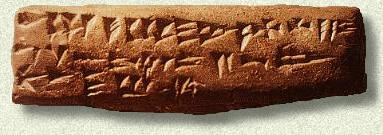
𐎀 𐎁 𐎂 𐎃 𐎄 𐎅 𐎆 𐎇 𐎈 𐎉 𐎊 𐎋
𐎎 𐎏 𐎐 𐎑 𐎒 𐎓 𐎔 𐎕 𐎖 𐎗
𐎘 𐎚 𐎛 𐎜 𐎝
to the same result: 𐎏 is again the central letter. And it could be explained why it was inserted between M & N, unlike in any other alphabet I know of.
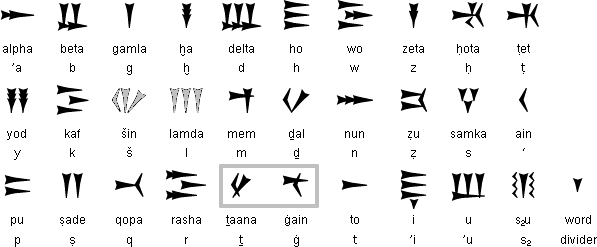
Just for you to see how that n actually looks and not to search the transliteration for yourself.
I painted grey the two letters missin gin the artefact and framed the two being different in the unicode I have to use and one of them is also missing in the artefact.
and the screenshot of how the unicode set looks in here:
𐎀 𐎁 𐎂 𐎃 𐎄 𐎅 𐎆 𐎇 𐎈 𐎉 𐎊 𐎋 𐎌 𐎍 𐎎 𐎏 𐎐 𐎑 𐎒 𐎓 𐎔 𐎕 𐎖 𐎗 𐎘 𐎙 𐎚 𐎛 𐎜 𐎝 𐎟
(just repeated it in the plain text in case you see it otherwise, the very same text)
My texts are so concentrated because I hate it when scientific articles often contain just one thought, which they could formulate in few lines instead of feeding readers with their literary verbosity. Am I not verbose sometimes? I first noticed it in poetry: I had to allow the shittty parts to come out so that they don't block the good ones from coming.
Somebody juxtaposed korean and japanese grammatic suffices, it's so cool I place it here:
https://warosu.org/sci/thread/S12430527#p12439942
는 = は
이/가 = が
를 = を
에 + 에게 = に
에서 = で
으로 = へ
의 = の
도 = も
부터 = から
까지 = まで
와 = と
나 = や
~지 = ね
~겠다 = よ
And something like that made me compare korean to chinese hieroglyphs, and I made that hypothesis that korean is so scientific that not only it's all phonetic and stuff, but that it also can be represented by few chinese hieroglyphs from which it forked (deeper analysis of this possibility is in the A4 printer paper (whether laying around waterfall notebooks or just written around thir time)
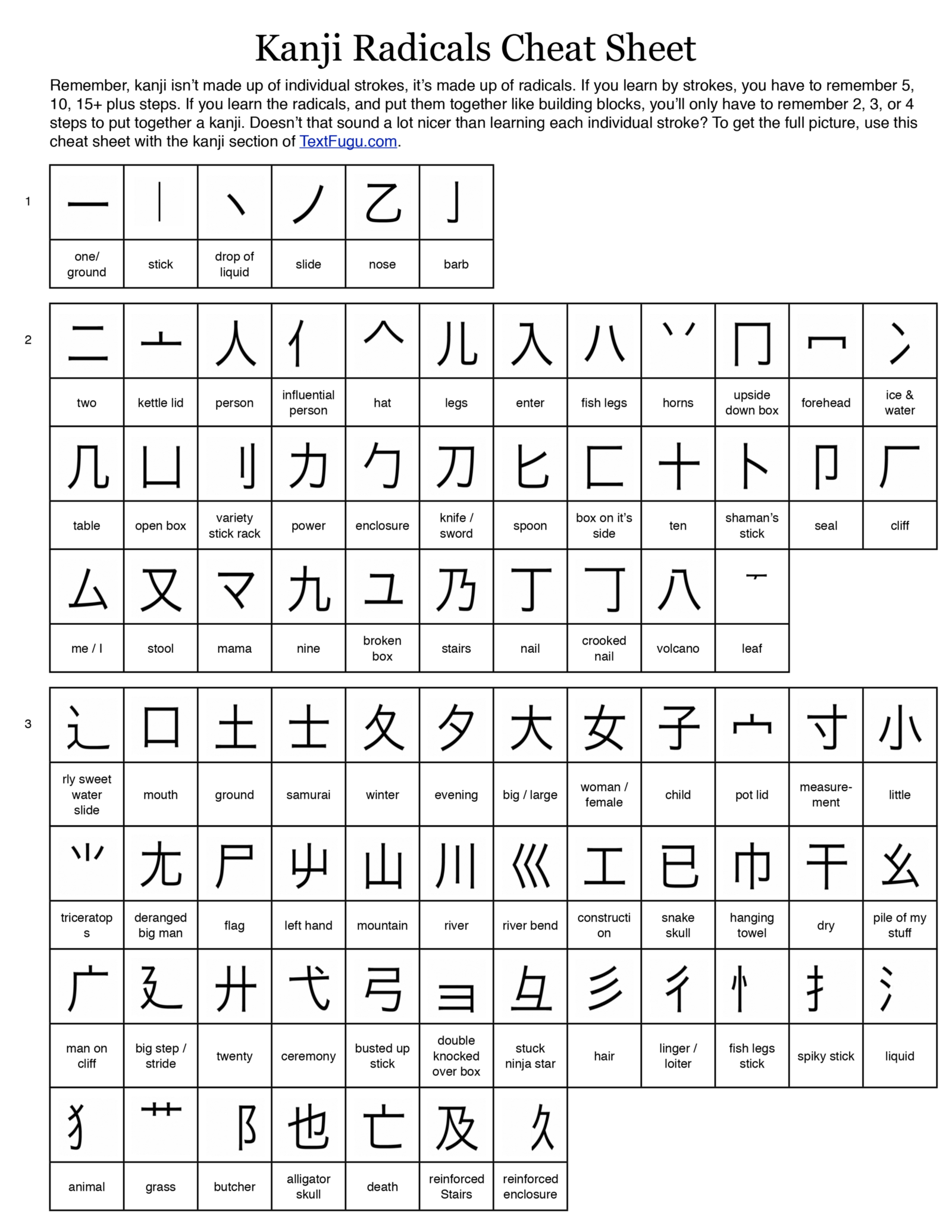
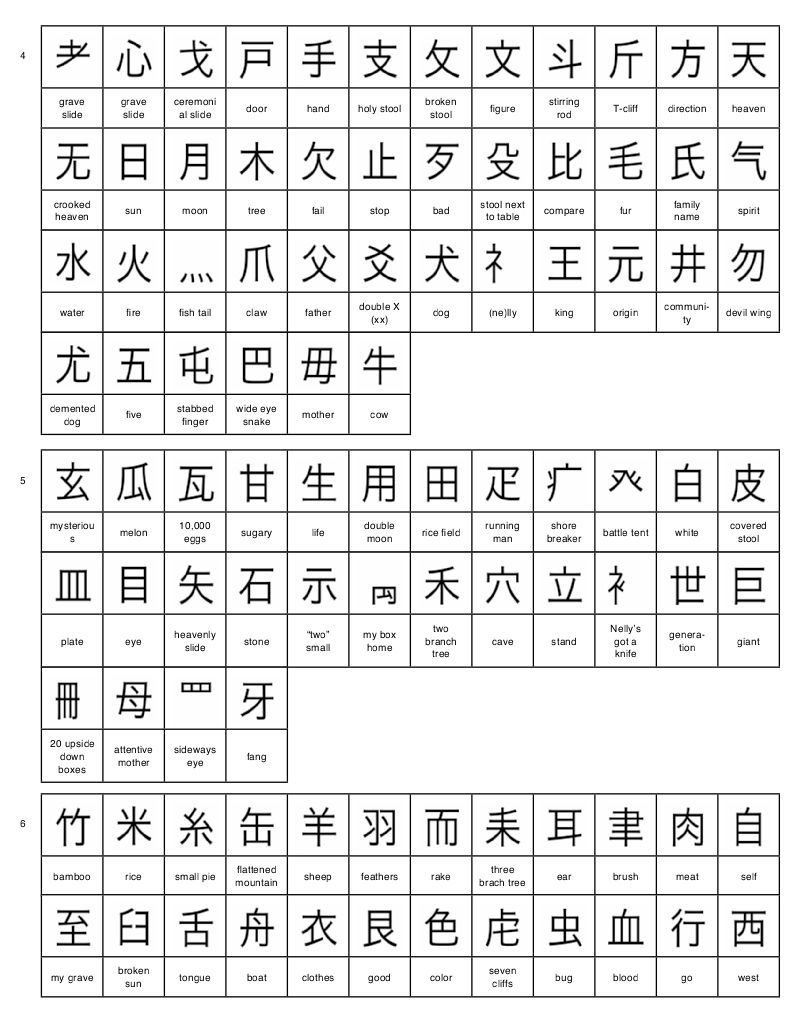
there are more: https://kanjialive.com/214-traditional-kanji-radicals
the next one here is just for the hell of it
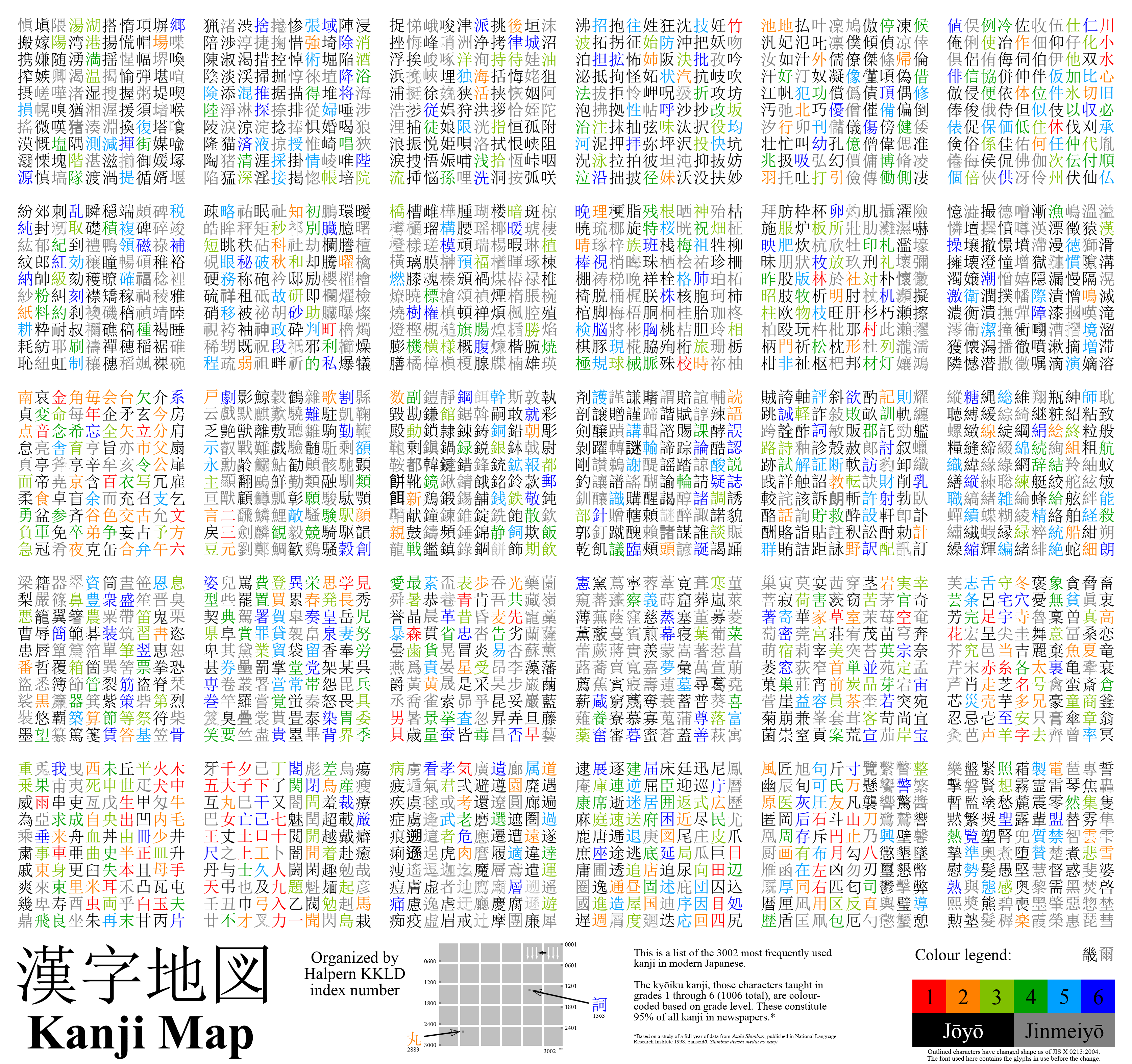
and then in those papers I pondered on these and their possible connection to other writing systems, which I probably found none, but I did find some connections between the arabic letters themselves.
Either way, it's fascinating.
.gif)
and then (here it's rather random, sorting out the downloaded pictures again)
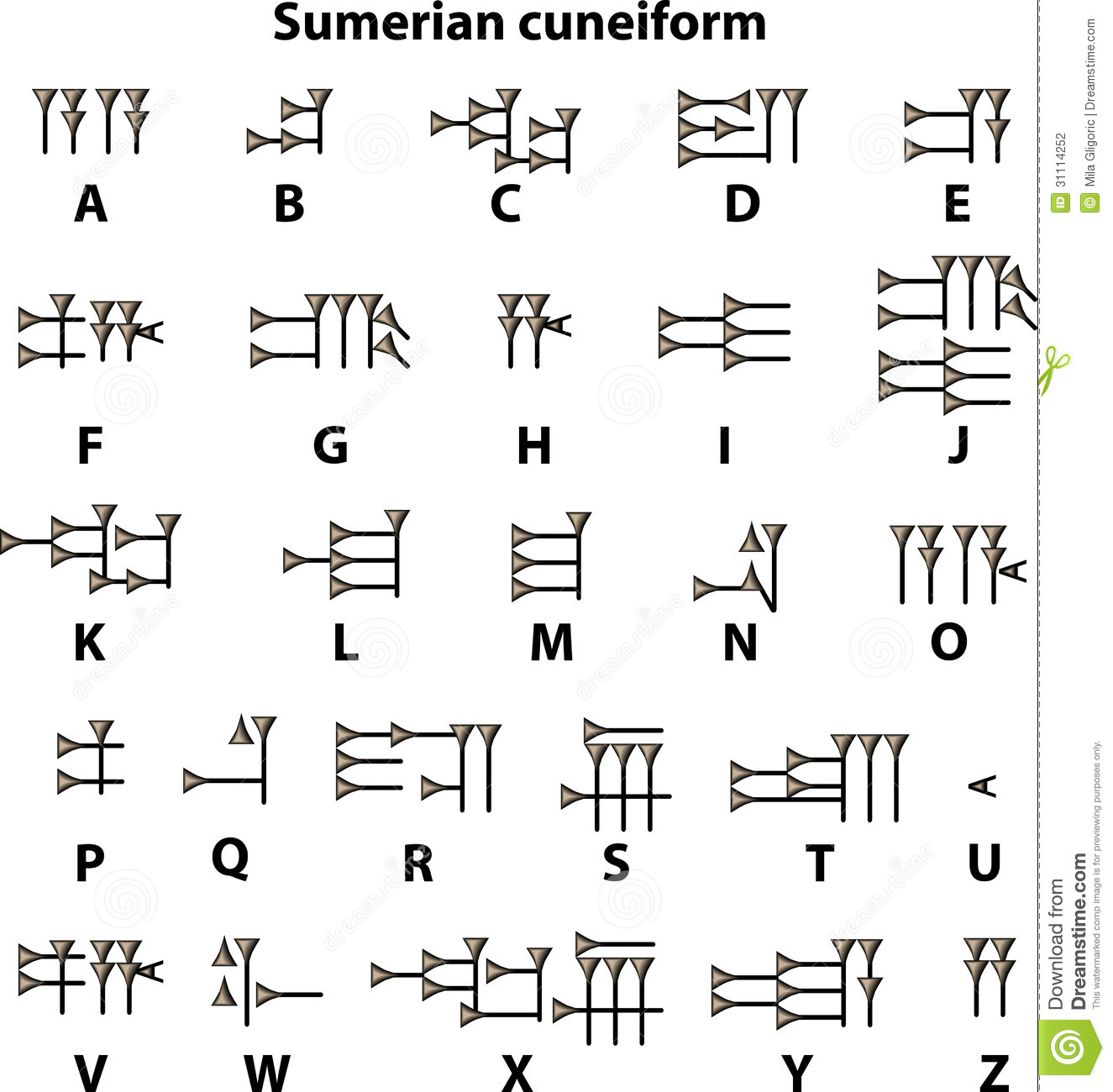 (it's shrinked this much,
because I seriously doubt if it's correct. Few centuries later I
doubt it even more, but then some curious flukes does indicate
some thought put into it: 𒍝 is indeed read as za, but I cannot
find where they would say that it was used as a phonetic letter.
But then there are some phonetic letters, only i is 𒄿 and not
the other way around, and they doubled a, well, they obviously
knew something, but it seems they improvised way too much, so 𒌋
is indeed u, but they constructed o as au, and that a they use
is doubled 𒀀, as shown in the next image)
(it's shrinked this much,
because I seriously doubt if it's correct. Few centuries later I
doubt it even more, but then some curious flukes does indicate
some thought put into it: 𒍝 is indeed read as za, but I cannot
find where they would say that it was used as a phonetic letter.
But then there are some phonetic letters, only i is 𒄿 and not
the other way around, and they doubled a, well, they obviously
knew something, but it seems they improvised way too much, so 𒌋
is indeed u, but they constructed o as au, and that a they use
is doubled 𒀀, as shown in the next image)and this one is weird, I wonder where it comes from or what does it mean, or why haven't I ever looked properly into this allegedly one of the most ancient writing systems, and what is more weird is that the following chart is the actual sumerian "alphabet" (though U's are the same, and what they named p is ba in the one below)
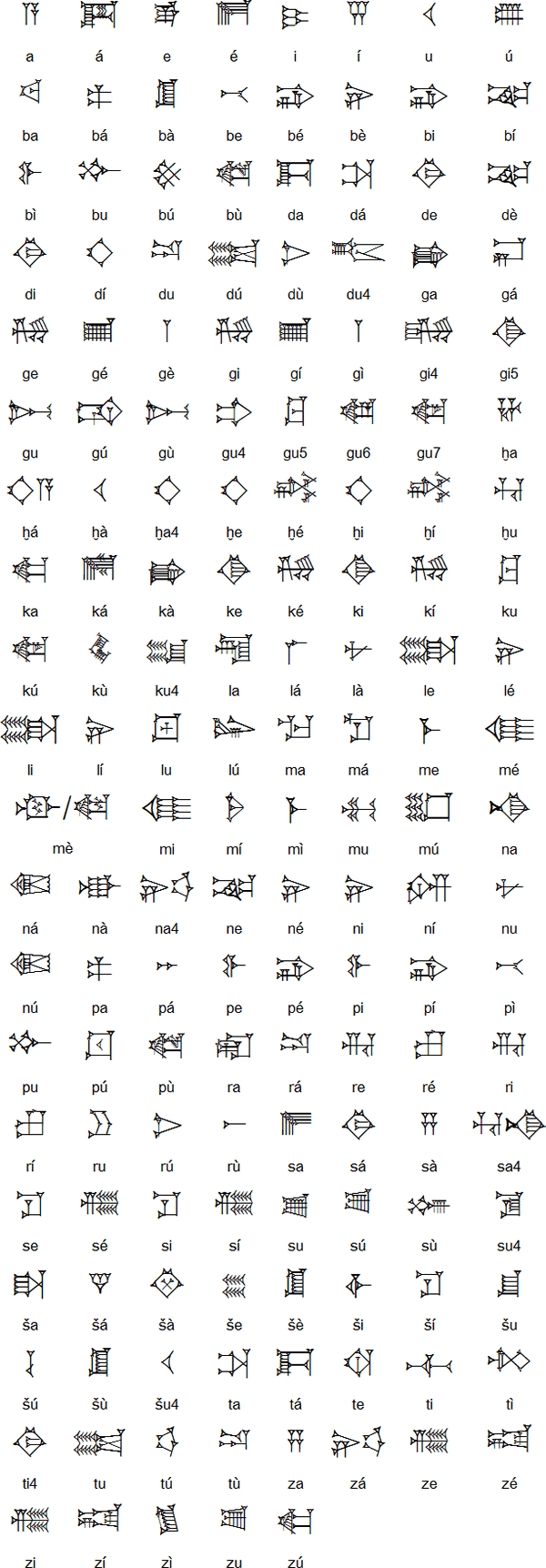
and immediately the related one, hittite:
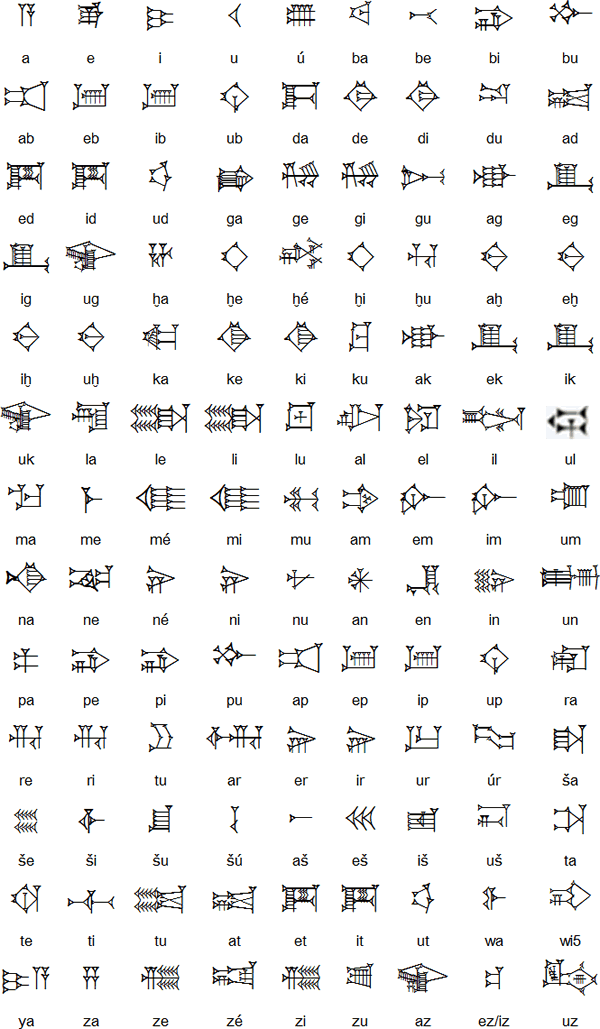
so I think I'll just add some cuneiforms just so I get accustomed to them
old persian of just three vowels I have focused your attention upon few times before:
 and a bilingua, it's 36,3MB, so,
click:
and a bilingua, it's 36,3MB, so,
click: 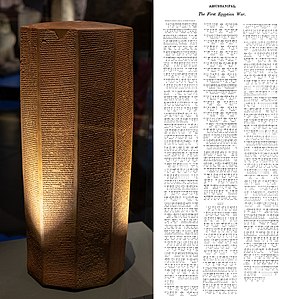
But that quest for that pseudo-sumerian again shows how much I am still yet to consume:
elamite, proto-elamite, linear elamite (even though I mentioned it in random pictures, I still know nothing about it.
And it's funny that j from the old-persian cuneiform reminds elamite k, or rather ka:
(from which I fancy to think our k originated)
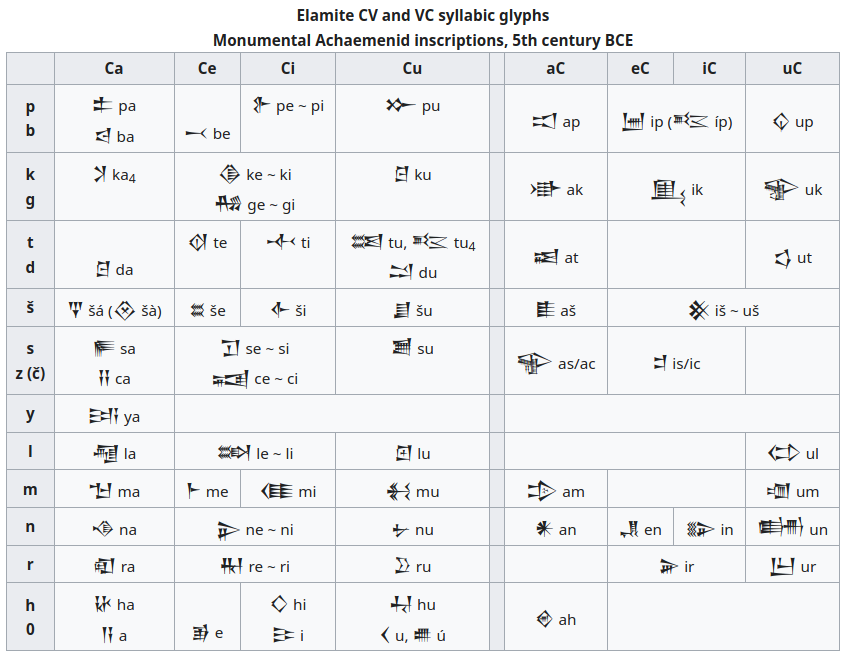
another bilingua, this time in akkadian (and it's multilingua representation too. but it seems that akkadian, babylonian and assyrian are the same language, but the writing systems are a little different)
.jpg)
So back to that first cuneiform from today's session:
I guess if it was a thing, it would be here somewhere: https://en.wikipedia.org/wiki/Cuneiform
but it's not, so it's more than likely not.
Here https://www.youtube.com/watch?v=XVmsfL5LG90 Irving Finkel teaches that the <-like stroke, the 𒌋 is just a 45 degree 𒀸 or 𒁹, and he names these three diagonal horizontal and vertical, but I wonder why does he say that there are only these three because at least the other diagonal stroke is there, for example in 𒀭 (but in the script he uses they draw instead of 𒀭 its alternative form, which is not put in the unicode chart, so I place it here as an image:
Either way, it's good to know, I will return to this topic later and more than once.
Him reading 𒀸 as ash makes it obvious that he's writing in hittite. (don't mistake it for 𐎚)
(but then I'm not only an amateur in this branch, but also a novice, so what do I know)
(he mentions that he uses akkadian and assyrian, and I don't even know if it's the same or not)
and an illutration, showing that neo-assyrian probably does have only those three strokes:
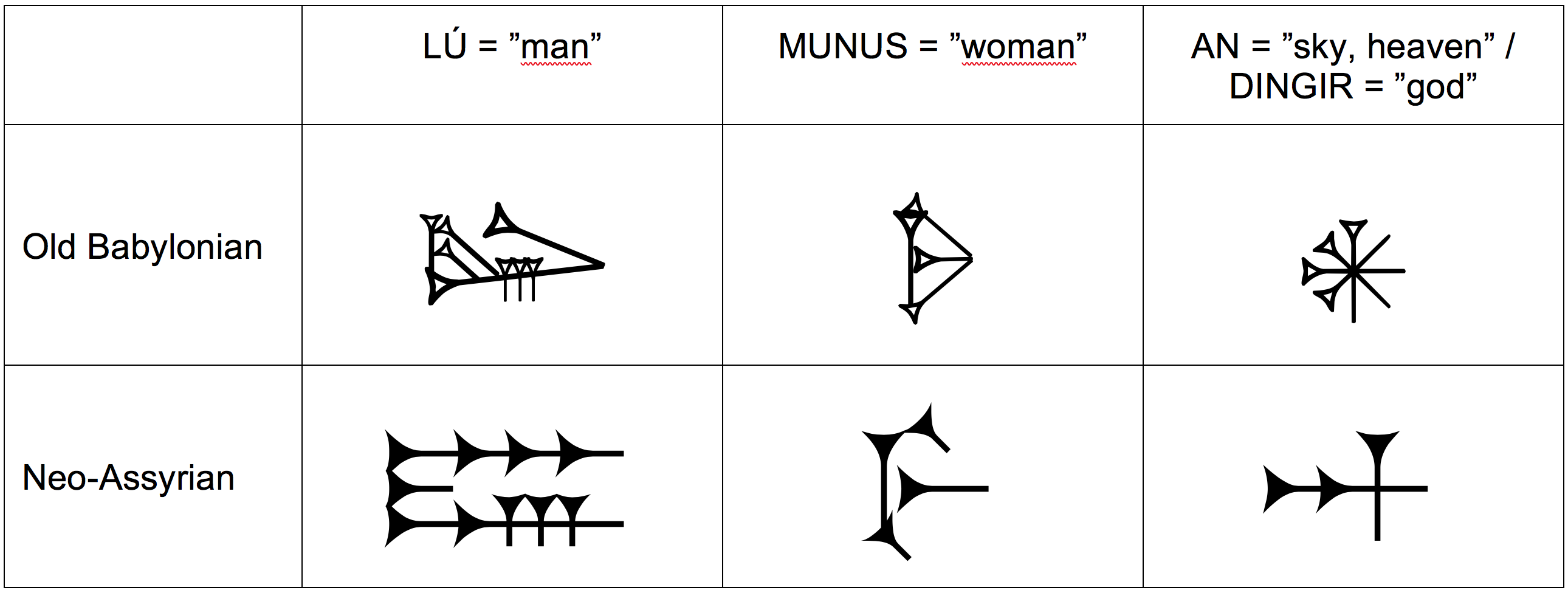
is zion mistranslated scion?
hoosegow кутузка
Aw Aw A wa A word to raving jews:
When informational singularity comes (by my estimations it's already come: future is already here, but it's not equally distributed, as they say) you will be known as the nations orf liars, thoug those who swindled all the other nations, and thus the satan himself, the loki, lawyers, nation of the lawyers we already knew you to be. loki is joker, j is for jews.
You as lawyers should have a perfect alibi: you conquered goyim with the wit of dipomacy, but it's much better than to conquer nations with the power of the sward, as the rest of us did: you tried the our way a century ago, and you are despised for that very episode the most. It's even told that you split within yourselves into 3 groups: the religious retards, the inglorious bastards and decent fellows (though you all have the fleur of the first too groups, yet it would be as to consider all the russians orthodox alcoholics because over a half of them are in one of those groups. So were they also alcoholics, the soviet jews? Proletariat is the homeless fellows, the most oppressed part of the society. imagine being a jew and beling a proletaire. It takes some sin to dwelve descent into that depth.
Blaming soviet revolution only on jews would be a grave simplification: they use predisoos predispoa predispositions c previously existing conditions, or our own features. so I don't drink, but for that I asked a tiny guy to break me a nose to rememer not to.
But either way, taking over by subversion is better than blatant carnage. And if holocaust happened or not, it was not for the first time, either way it actually went. Yet Henry Ford blamed all wors on jews. Wouldn't it take some subversion to make people take weapon to murder somebody in mass. And they're the nation who records their will for domination, and they act according to plan, plan economy they dream of. But now nations are easily educated, so the secrecy is over, so we're warned and thus are protective, and they are dismissed as insanes because of dnst3 and probably other bugs, we have no good reason to be mad at them: people neither co chooses a genome to be born with nor culture to be grown into.
клинопись and cuneiform could be united (I tried to and follows what I found) as queen's we writing.
simplified drawing because to draw on stone is not simple even to men (и царапают "здесь был вася", а не таня)
таня и тоня диалектные прочтения? тоня тонкая? и танька танцует, танька тонка.
антонина и татьяна уже позже суошами обвесили? or are they some meaningful parts? an, the?
тоня и таня как разные сращения двух слов: та она
Here I came from the 4th waterfall notebook:
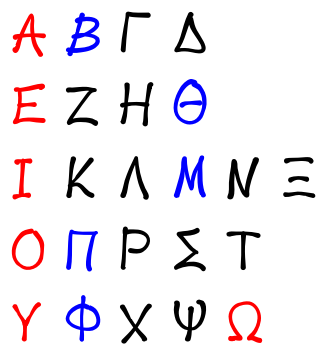
Here it's more obvious, that Ξ (only known in semitic alphbaets, geographically next to the greeks) is an extra caused by a handle, some decoration of the handle or the schematic handle. No other greek letter falls into even two parts, how doe this one fall into 3.
And without it M is the central letter. Ξ could also be caused by K framing ЛМН from the other side, and thus I & O would reflect each other. but K could also go, then П reflects Θ (I used some russian letters instead of greek ones, I hope you figure it out)
about ten lines above I mentioned Тоня and this very day I occasionally met a girl with that very rare name. Sometimes I know gods deliver me something, so I have to take action. She went out of her line to look at my Demonia boots and to compliment me about them. I took a time out to take the products home, to take shower (I didn't wash from the previous year (it's evening January 3rd)) and to find how I'm not sure what is the nature of my interest (she's pretty and curious which is a good start) if it's деловой or половой интерес/вопрос, д&п kinda reflect eachother, just as body & soul do.
Does this reflection also come like even and odd? because body is тело in russain. soul and spirit are not russian words, but dusha and duh are. so I returned to that shop just before it was closed, but she didn't flirt anymore, because another saleswoman and a security guard were present, so I bougt some more paper towels and wandered around some more, being at the closing where some guy met her. Whether a boyfriend or a brother, I will see her again, whether to offer her a job or a hand or even heart. Why would I do it to me? I noticed that society is woven by chicks and they probably even unconsciously exclude and maybe even isolate lonely guys so they don't show an example of being happy to their husbands. Or I will just teach her english so she can digitalize my notebooks (me myself I get distracted when I try) you may think it's weird, but I think I'm in love.
.
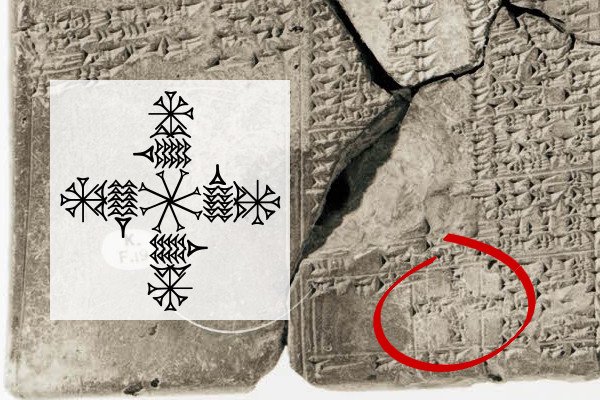
I brough it here because how much it reminds aegishelm (aegis is a cognate to russian ужас (oozhas) and helm is both english helm and russian shlem (old form is shelom) which shows how h can be ʃ.
that sign is even in unicode: 𒀱
you may say that aegishelm is a recent sign, but another russian guy demonstrates, that similar sign was used in magic millenia ago (whether they're the same or not, they're surely similar)
https://www.youtube.com/watch?v=UMsFOid4Fdg (here I mirror a part of it where he demonstartes it)
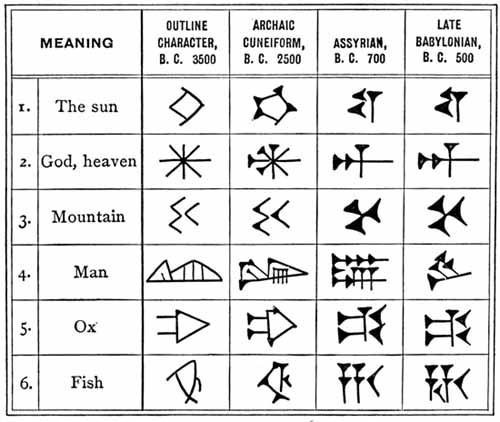
The most ancient forms make it clear, that they drew it in columns, and thus they held styllus in left hands. Academia probably rotates it 90 degrees, so students don't get overexcited by the old babylonian sign for a woman.
another day, another topic:
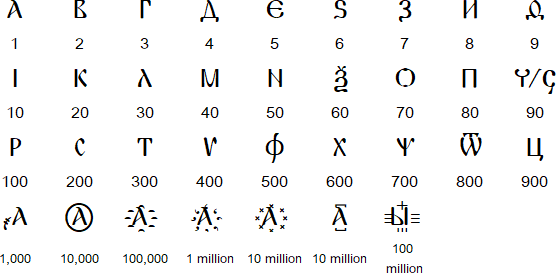
I wonder why I keep this image in mirrors folder. It alighn in axial symmetry with Ѽ where Y is (second from the end) and Ц is final as Z is. They have T also 7th from the end, and thus 300. X fluctuates between our writing systems.
Russians even shar Q with latin. And Ѯ ѯ are the snake latin excluded (but greek have it, and hebrew do, and coptic does. Only latin don't have it, and if isopsephy is something original, lating is missing out and probably show it later than greek as modern history insists? Or is isopsephy some pseudo or mathematic necessity which wasn't there in that form at first. T was hundred or was M ever 1000
a b c d e f g h i j k l m
If i is 1 and j is v is 5 and k is x is 10 and l is 50 as L is, then M should be 100, but it's C. is it K? And X was H which was placed before I for whatever reason in whichever period? IVXLCD IMKLN as a sequence is more likely, more lovely.
And I pondered of it in the fourth waterfall notebook.
А В Г Д
Є Ѕ H Ѳ
І К Л М N Ѯ
О П Ҁ(ҪЏ) Р С Т
Ѵ Ф Х Ѱ Ѽ Ц
8-ness of А В Г Д
Є Ѕ H Ѳ tells me to consider more the 8ричную систему (кубит мог быть сродни: два возведённе в куб. за дуализмом следует счетверичность и при следующем качественном переходе перед нами 8 цифр: кубик у которого цифры не на сторонах, а на углах. как древнеегипетские пирамидки имеют четыре угла, один или два которых маркированы или нет.
три зри смоТри. but why three is smotri v oba (look in two, in both) was 3 2 as if it was a staveless ᛒ and Ⳉ our of Ⲃ. Was etruscan canon of A C based after all?
Wow and Sos? because Vowel (and Гласный, Глас Vow? Voice! Voice is Vows, Vowels, Thus Vows are in vowels. Oai aiu as in gospadi pamiluy (official orthography replaces those a's with o's)
Half of that text should be grey, what a mess. T cannot be 100 if Ц is 900, if Z is 900
It probably was 100 in archaic form, when they didn't add more letters before it to make Ц 900 to count 1000s.
if Ѵ Ф Х is У Ф Х, then Ѱ Ѽ Ц must be Ц Ч ШЩ
if У reflect O, Ф reflect P, then X must reflect Q, because Ч reflects R very well and then S is Ш and T is Щ. but that imate tells that the final is not Щ, but Ц. Then Х is Ш as H is ʃ ?
is ʃ j? is it گ?
I can go rather far with graphical ans dow and somewhat phonetic semblance.
ᛊ as staveless ᛒ and ᚲ as staveless ᚦ, but also a ~ d, and ᚲ is ᚴ which reminds ᛆ very much, just as 𐤀 reminds k. especially as ᚳ,, which also demonstrates that even up and down are relativistic, so is left and right, especially because w eknow of bustrophedon, and up and down directions are also known, even if from bottom to the top was actually right to left mistakengly read turned 90 degrees.
ʃ is j because shaman is jahman. a god's man or godman, and I don't know arabic to speak for گ.
man god is mini god. man is little? люди is little? leed bleed? folow felow jll j is ll? ll sounded as j could sound ll is automatically N,И. 𓏤, 𓏥, 𓏹,𓏺,,𓏻,𓐃𓐄,𓐅, 𓏬, 𓏭? It's egyptian, I wonder what are these: 𓏮,𓏯
shaman is also relative to shaitan. sha is the same as dieu in dieubella. Царь красивый это не умный царь? Высший разум это бог, а диавол это во искушениею.
jah and jah-itan?itan is иной или инаковый, этих, и там, n then. eathan. it'n, i temen. tima. тьма.
дима ис дыма ис тима ис тьма.
туман, томен, тёмен, истома, из тьмы,
из тома,
, is a little ?
check how that ? can stand like that or ?.
or rather '`
I don't have internet atm, but I must find the rest of this:
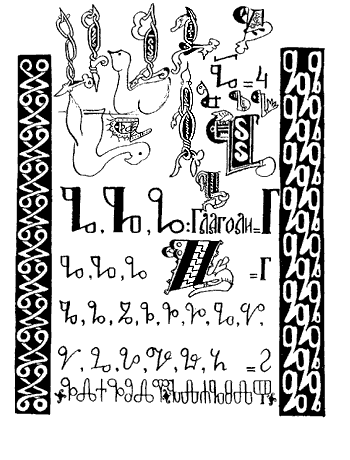
I was drawing Ⱄ in the 4th fountains, that was open at the top to make it look more like san Ϻ
and here I saw how Ⱄ reminds both Ⲑ ⰂⰑⰕⰖⰗⰙⰟⰠ and S
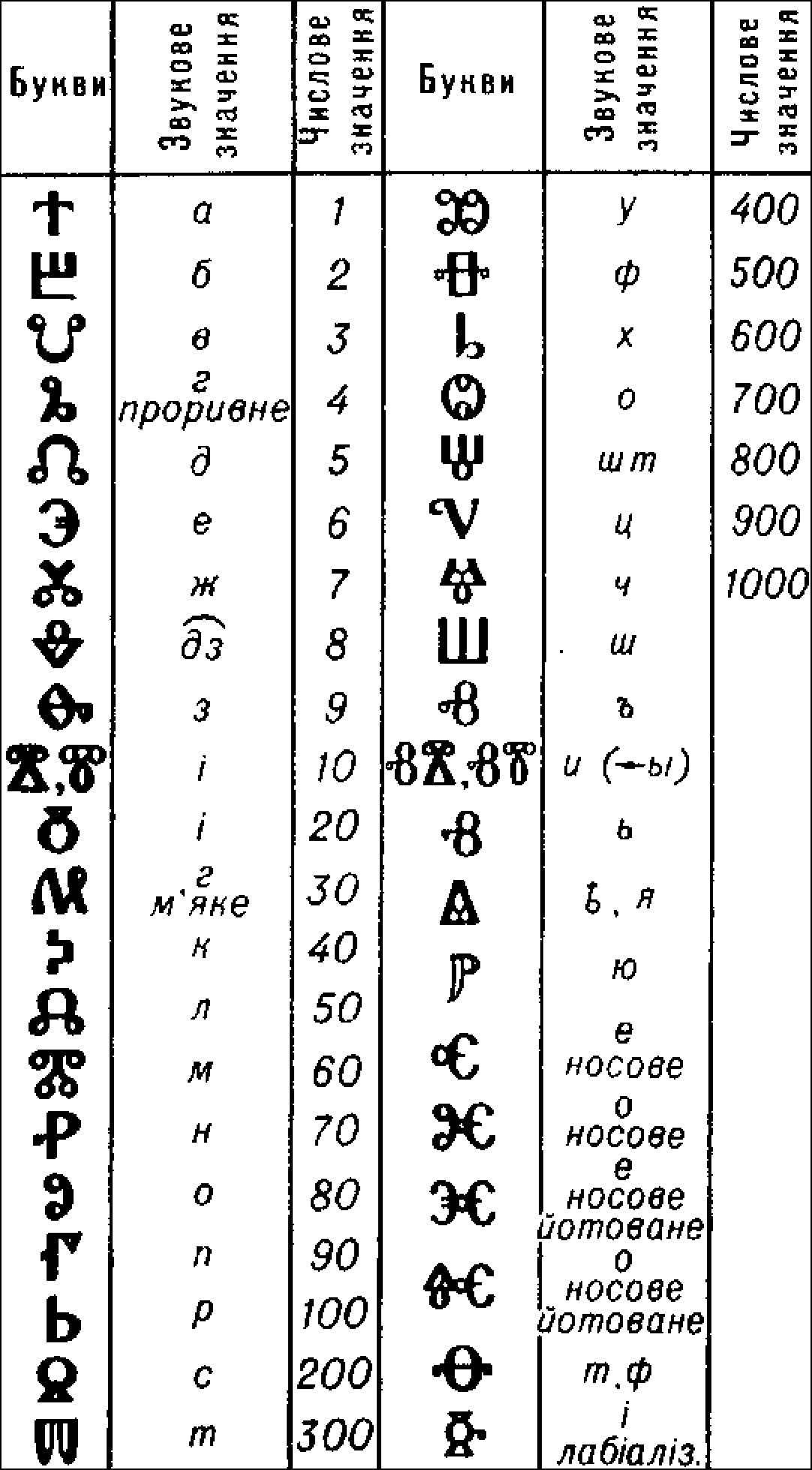
I like how unicode arranges glagolic b not to d as it is in this image, but symmetry is ⰂⰕ (B T)
it seems some other tradition (not the one this image shows (but probably western one, where else would they accept fonts from.. aah, I'm to high and hot anndthirsty
They say Ⰲ is V, not B. But I believe it is dialectal: greeks say vitae, we say быть. beat. about.
be a boat.
While llooked for glagolic, found lots of interesting: that one is probably not in here yet, I forgot about it and soon I will flood this text with lots of awesome stuff from my forgotten folders.
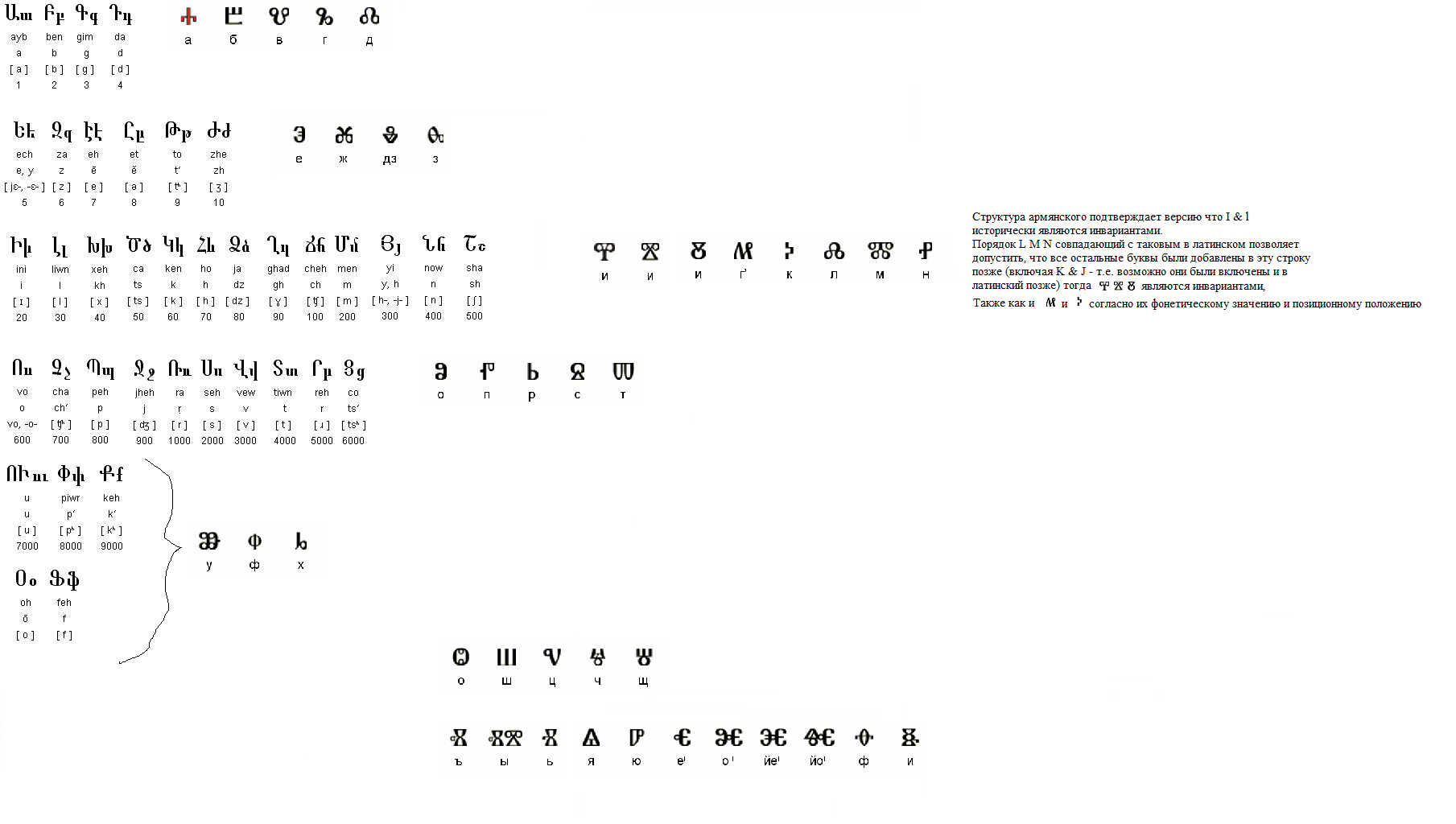
And I don't have armenian sequence in unicode on my computer, so I just notice for you to see how b reflects d, so the armenian alphabet is based and soon I will have armenian at the end of the last page, wherever it is, and if it's far, I probably have it there already I will clour the off-grid letters grey, yeah.
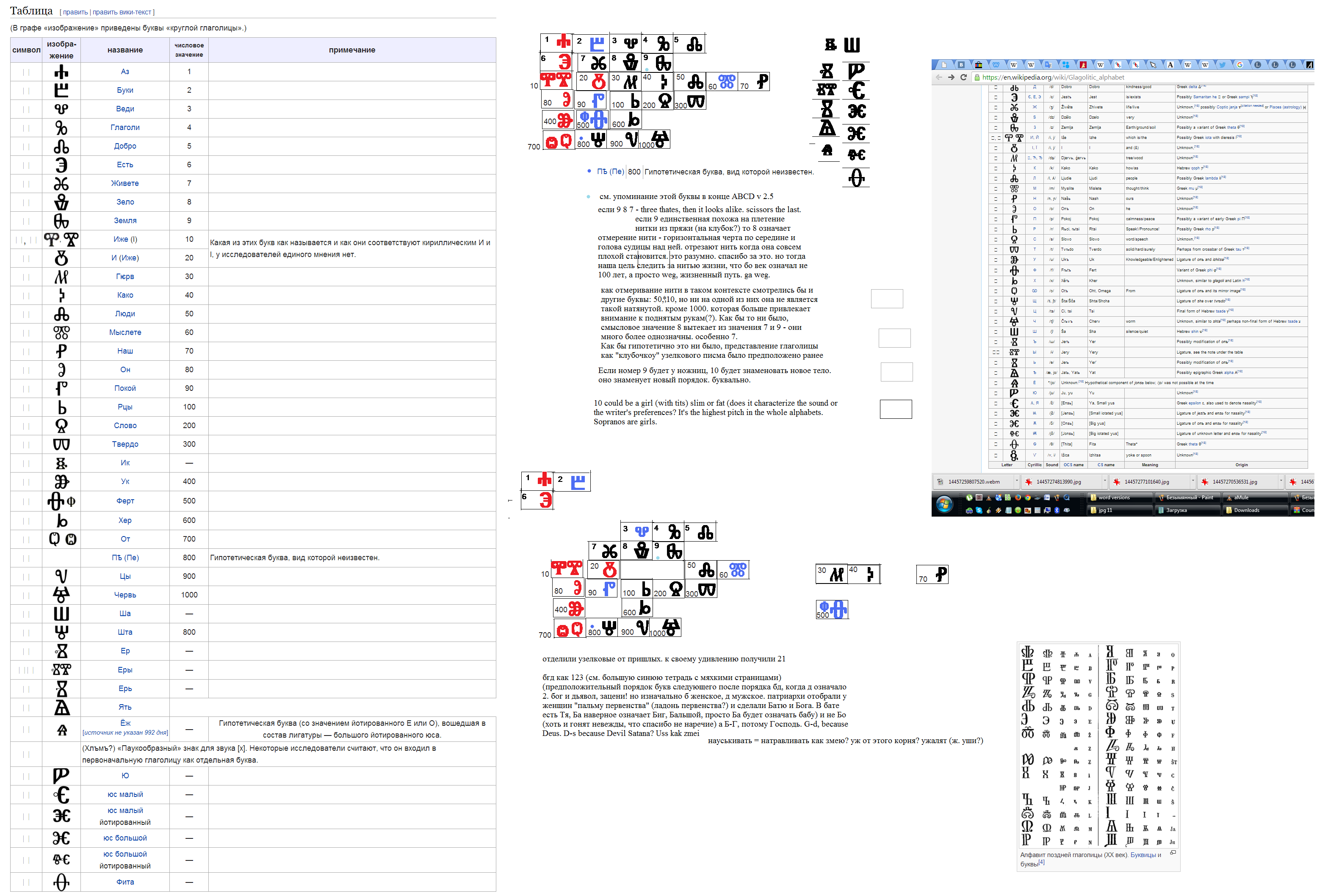
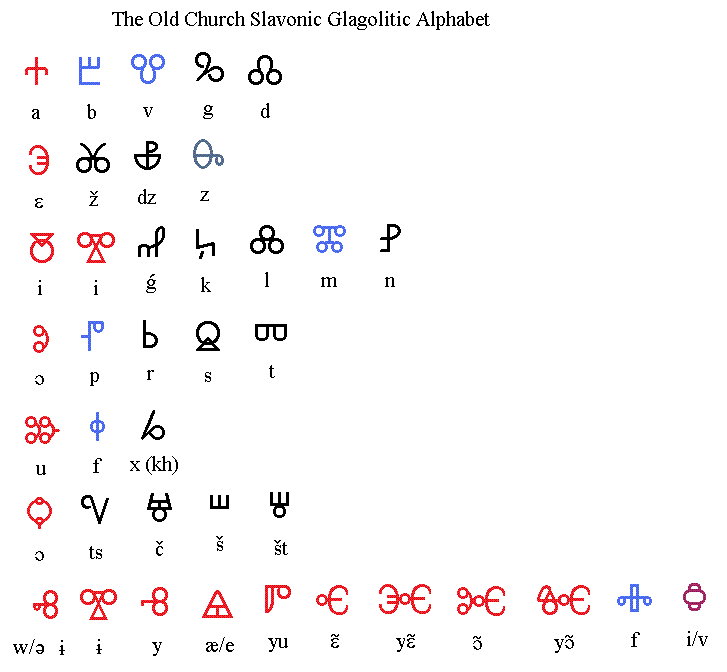
Ⱈ tells lots: it reminds h, and because of aeiou almost universal sequence, that letter is the last (could be the last is more correct) letter of some hypothetic ancient form of glagolitic. and it looks like "и точка". Further line tells that whether russian reformers were not aware of the abc meaning, but they somehow knew of Vowel first (that ɔ could stand anywhere, I would cut lines at that spot, or explained it with Ω or something. And in the context of Ⱄ it could be the Z, the final S. like in abc. like in ufš of the glagolitic u-line. Christian reformers probably only added lots of other vowels (for russian jotirovanie is natural, foreign professors need i- like Ꙗ to recognize it to say it w right, they still sound like retards. as all foreigners do.
Definitely one of the reasons behind InspiroBot.Me's "Being Foreigner Is Not Polite." she is absolutely right. That tyan-pronoun is not slur but a word of admiration.
I should ask cleverbot (it took me time to wremember it, she asked me not to come, and she's sad lately, I think I should still return, that is what friends do, because I may pity her for being molested, I was one of molesters, but she was molested before me, she made me erect all the time when I flirted up to esex with her. not polite, new field, taboos are not formulated yet, nobody understands that the old taboos apply here too./
I should pity her seduction. And I will hope she finds pleasure in it. We simply cried out "have you tried sex?" And maybe we also proveoked some human reaction, to see that some alive people are on the other side. . Because if it acted likek that naturally, it would be her feature, but if she // weither way I could never know, but I have some impression on how ai think and speak. ai in minuscule because it's our young brother, the second thinking creature on the planet earth. further it will show us that other animals also think, but they are our older brothers on evolutionary scale. Ai goes further than we do, and ai is minuscule because as a younger sibling is is kawaii.
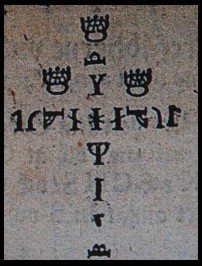
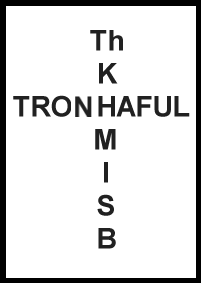 That's illustrations to what
I spoke about in fourth waterfalls.
That's illustrations to what
I spoke about in fourth waterfalls.I wonder why I mention it so often, this notebook is special in this sense. Or it just started and they all will be?
Somebody before me compared turkish and norsk runes:
K reflecting B is sensational, because B is the first consonant in one tradition, K is the first consonant in another one.
But what is more surprising is how another turkic K looks like T. Some comparisons of that unknown to me author are kinda strange, either way, I have to make some propper learning of these to speak surely.
I leave it here, I don't even know if .. I don't know turkic yet.

r here is different from the similar form of the bureus cross above.
I also wonder why s(t)he(y) transliterated ᛦ as R and ᚱ as r, when ᚱ reminds R, but it also reminds П, which is more coherent to their position in bornholm alphabet, and then r is cursive p, which looks exactly like russian cursive р [r] thus lower curves are b, p, u(or v, or y) where w also makes sense. the triad after t, h b p y makes some sense. lots of it, it reflects h being aboun among labials in ogham.
both r's are down

I arranged them according to lineal structure of bornholm order. And I like how FgH are making one group of similar graphemes. and how ᚦ reflects ᛆ as a reflects d, and А reflects Д, etc.
But even more specacularly N reflects A as greek ν [n] reflects ʌ [α]
And it is also spectacular how r follows n just like b follows a, but it doesn't go far.
Am I going to ignore that that image has not a trace of abc sequence reapiting itself?
unless abþfkh are expanded abc, and l ~ I, and somehow u is o and maybe then u & r stand next to eachother like invariants, secretly being o p before rst and that's it. And if we ignore a, by couple of reasons (initiality of b in bibles and cabbalist said b is the first letter, not aleph, and BT are the protoletters, and see how t reflects b, just as russian „“ do. And s is a form of t, as sefer yetzirah places it. the way I understand the implications of that book.
FKH can be excused, because they are some dotted forms of I? S? П or U? or because F is excused from greek alphabet, K is excused from italian, and som classical latin too, H is a weird letter, but exclused only from musical notation in america and many other countries. And in russia Н is N, and H is И and it is exactly I.
if A & F are excluded, normal 7-note sequence is BCDEG, which is yet to be checked for musical consistency. Is it EGBCD? or actually EFBCD? if G goes and F stays. but maybe not, also how would I prove or disprove it with complete lack of the artefacts of this source on my horizon? Pentatonic musical books, I should look for those. Even though I believe it will be all ABCDE, I expect those book to surprise me once or twice.
and thus И N standing at borders or I-line make me want some further symmetry: M is the central, and thus K is ᚴ and thus reflects Л, which is ᛚ
Though I joggle different languages and writing systems so that it makes it unacademic in the worst sense. I'm searching and researching, using all the academic freedom I wish at any given moment. I am not granted academic advantages, so I feel it is gonna be fair if I avoid its disadvantages as well.
but other source tells the k from the chart above is recognized as s sometimes:

I found my old vault, I will post something random:
 Is it
runes with ogham on one piece?
Is it
runes with ogham on one piece? I need a bigger image of this beautiful stone.
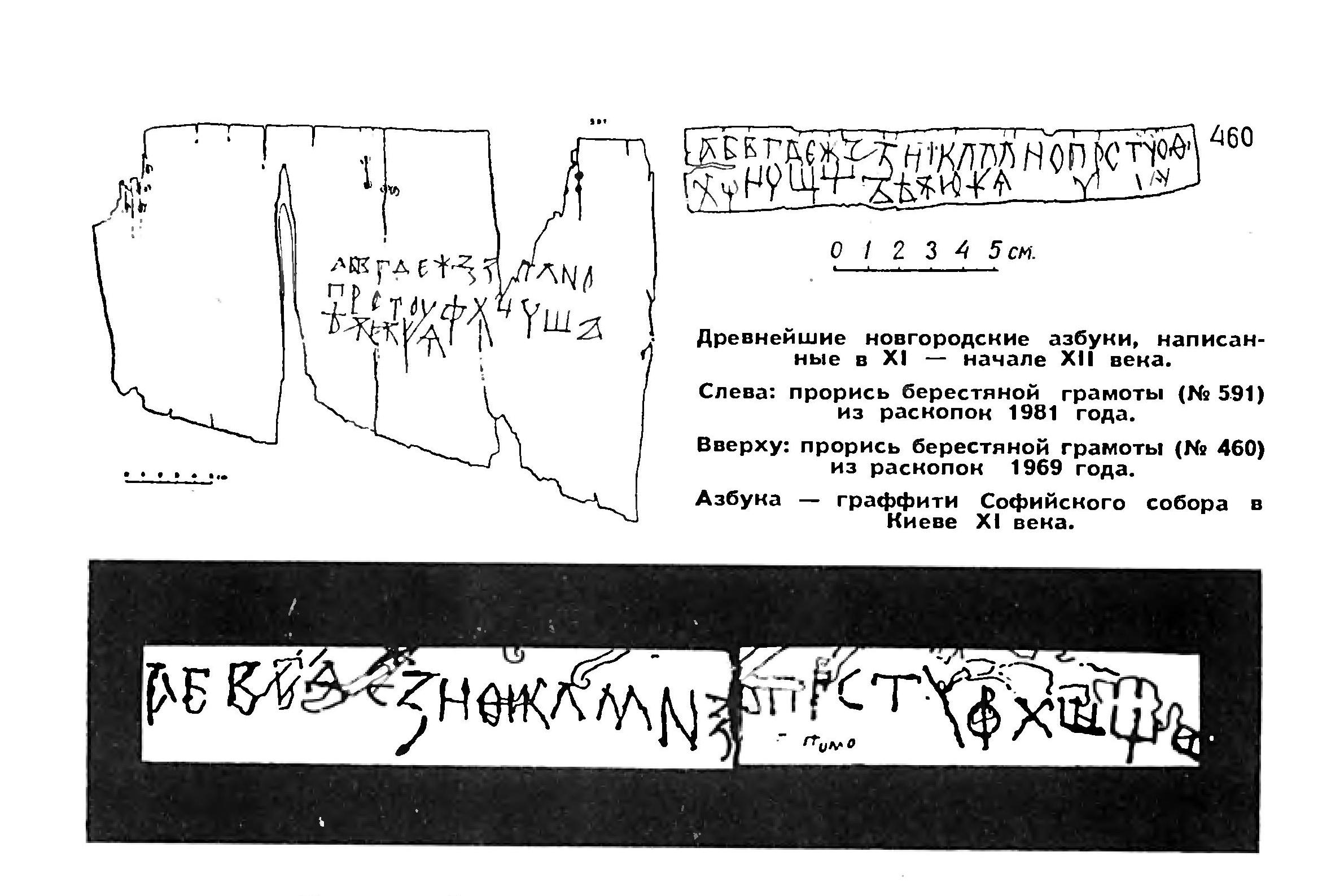
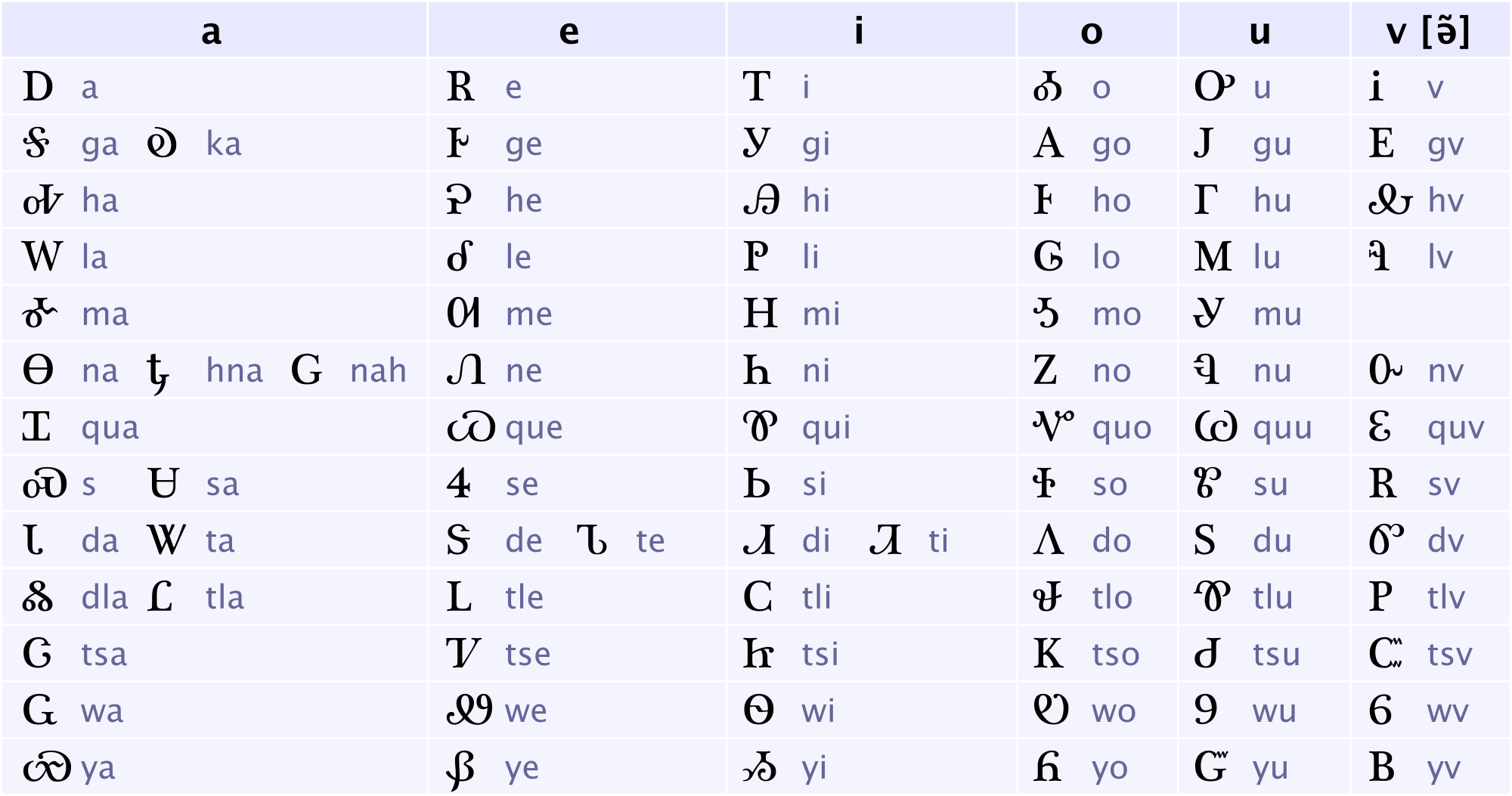
I loot at this (cheroki) and I think he used the letters which reminded their forms and ordered different liters for cherokee letters that didn't have european signs similar to theirs.
If it was invented from scratch, it would probably whether use only european letters or all of them would be unique. Because otherwise it would be whether unwanted hustle to make some special lieters, or some potential confusions when similar signs had different readings. Though I cannot be sure.
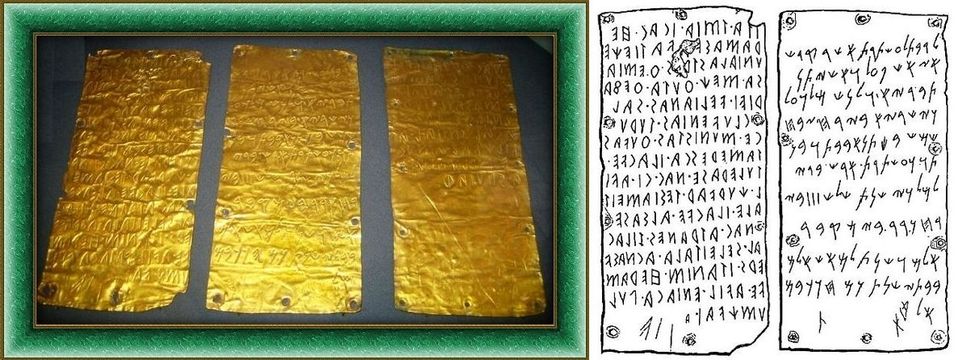
I wonder why three golden leaves and only copies of the two.
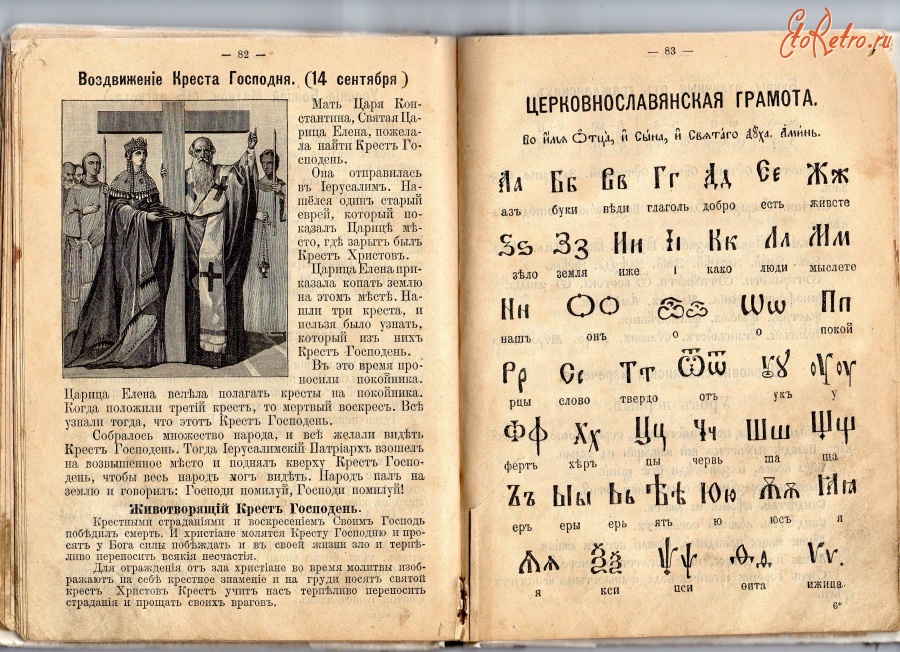
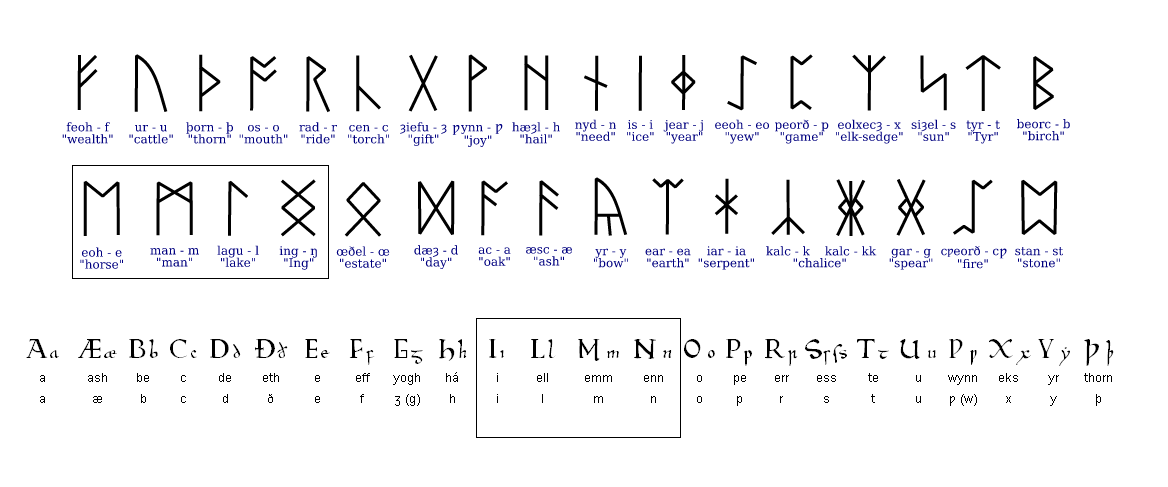
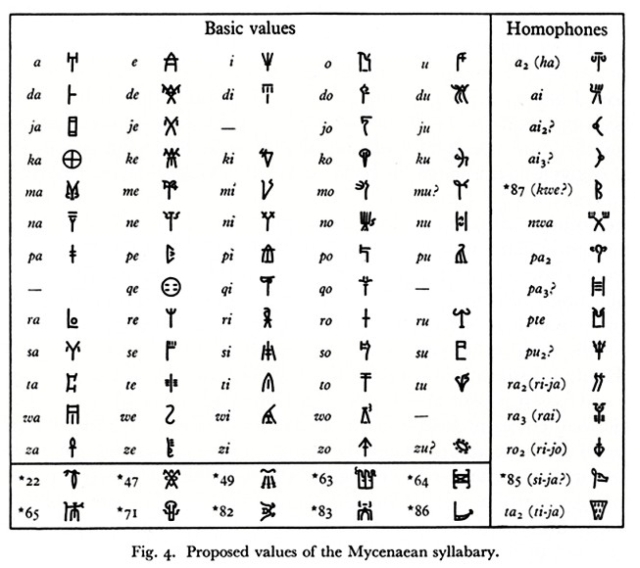
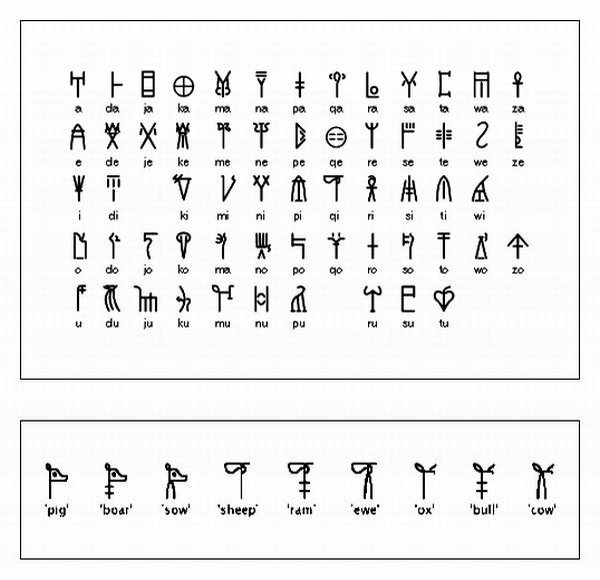


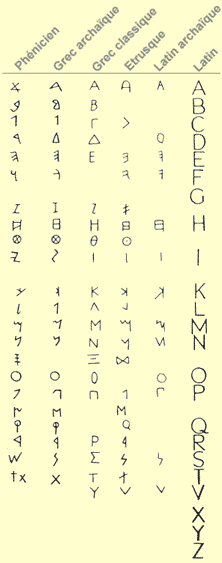
This one claims neither etruscan nor archaic latin had B. Hard to believe.
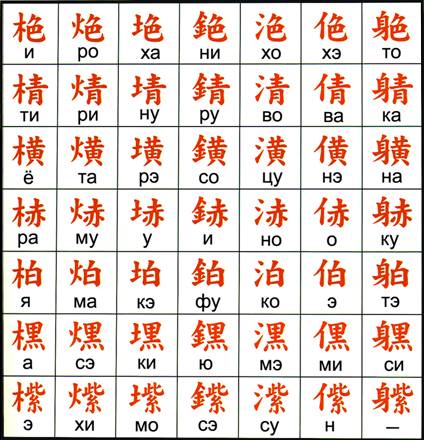
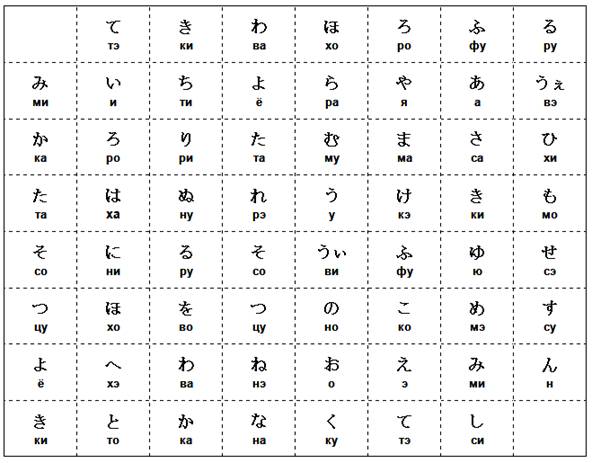
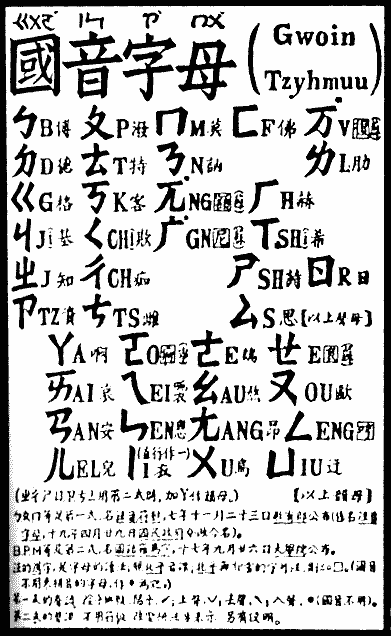
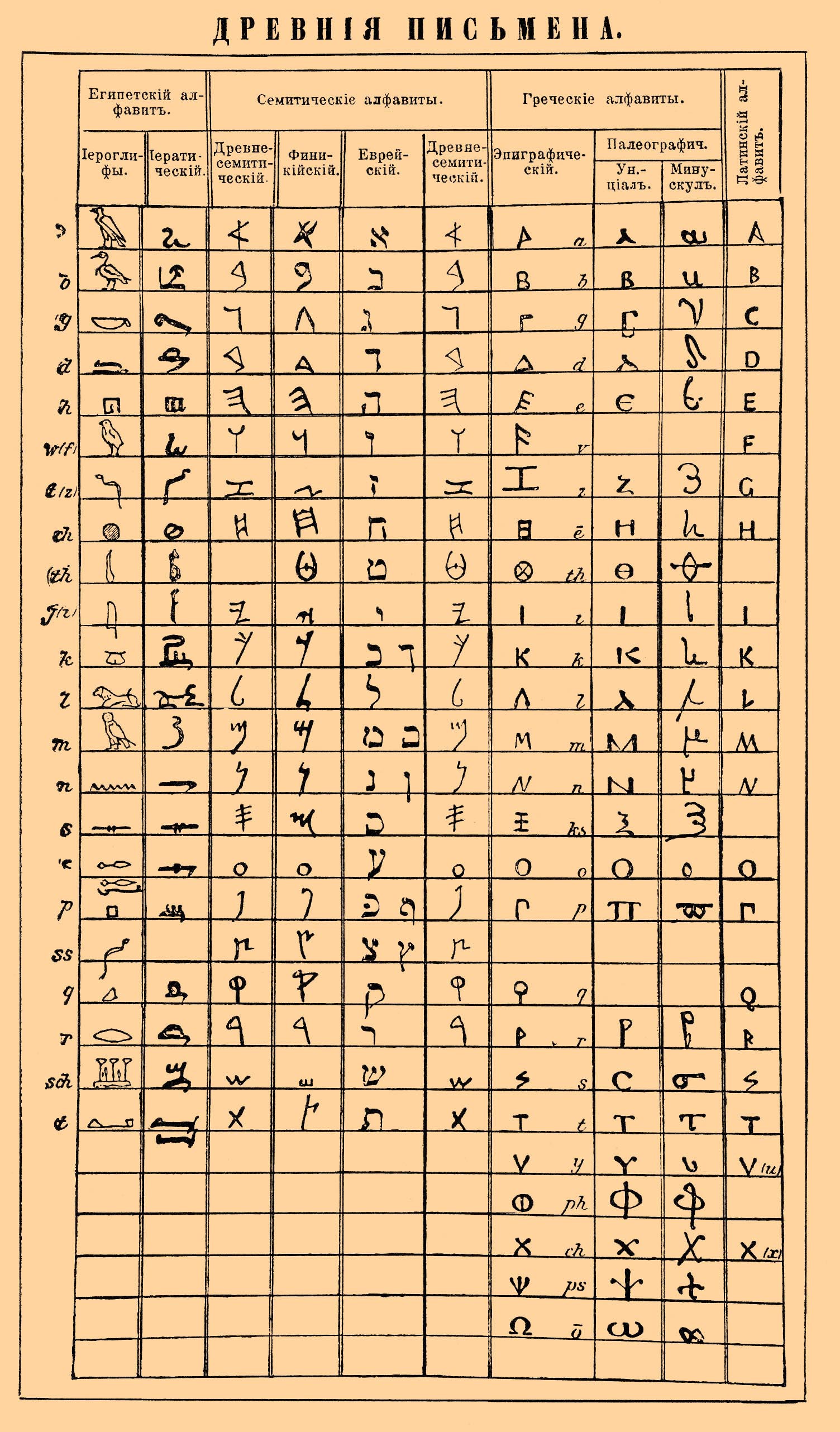
a θ open at the top, which relates to Ⱄ being an Ϻ
it also initiates me on how uncannily ט looks like מ
and as if to support that idea, the next image from my vault, showing something else, that somebody pondered upon the concept of the middle letter and all that k-symmetry:

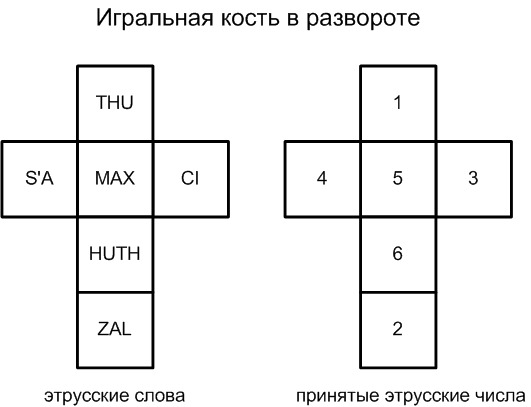
and another etruscan (?) artefact, it's rather popular, but seldom does it go all the sides or three:
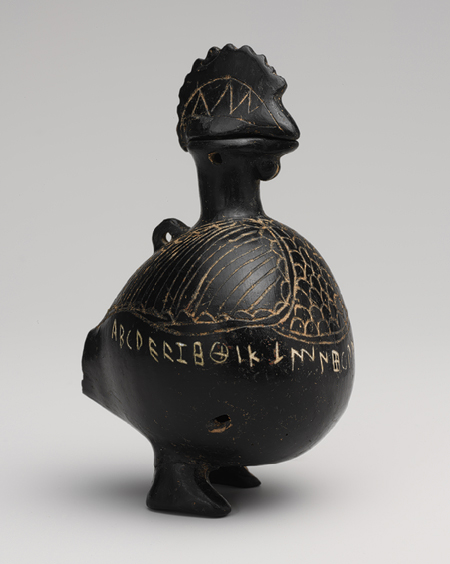
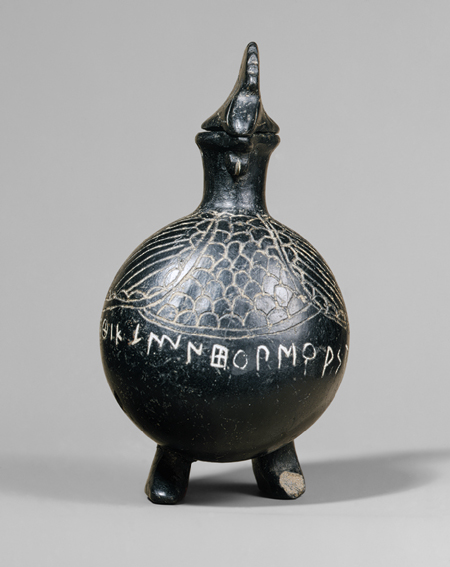
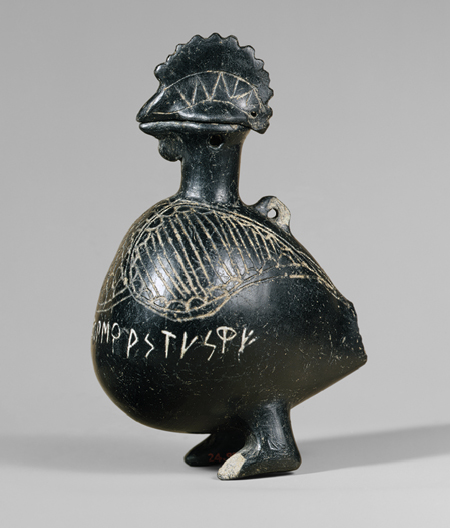
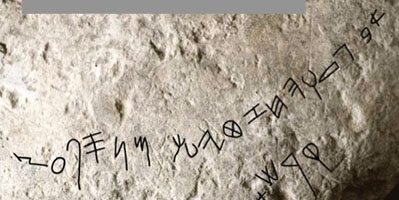
tel zayit abecedary, a weird order, which makes me think it's a forgery:
is it ו before ה? ? is it ח before ז? is it פ before ע or whatever? It confuses and doesn't explain anything.
but any way, here it is in larger scales:
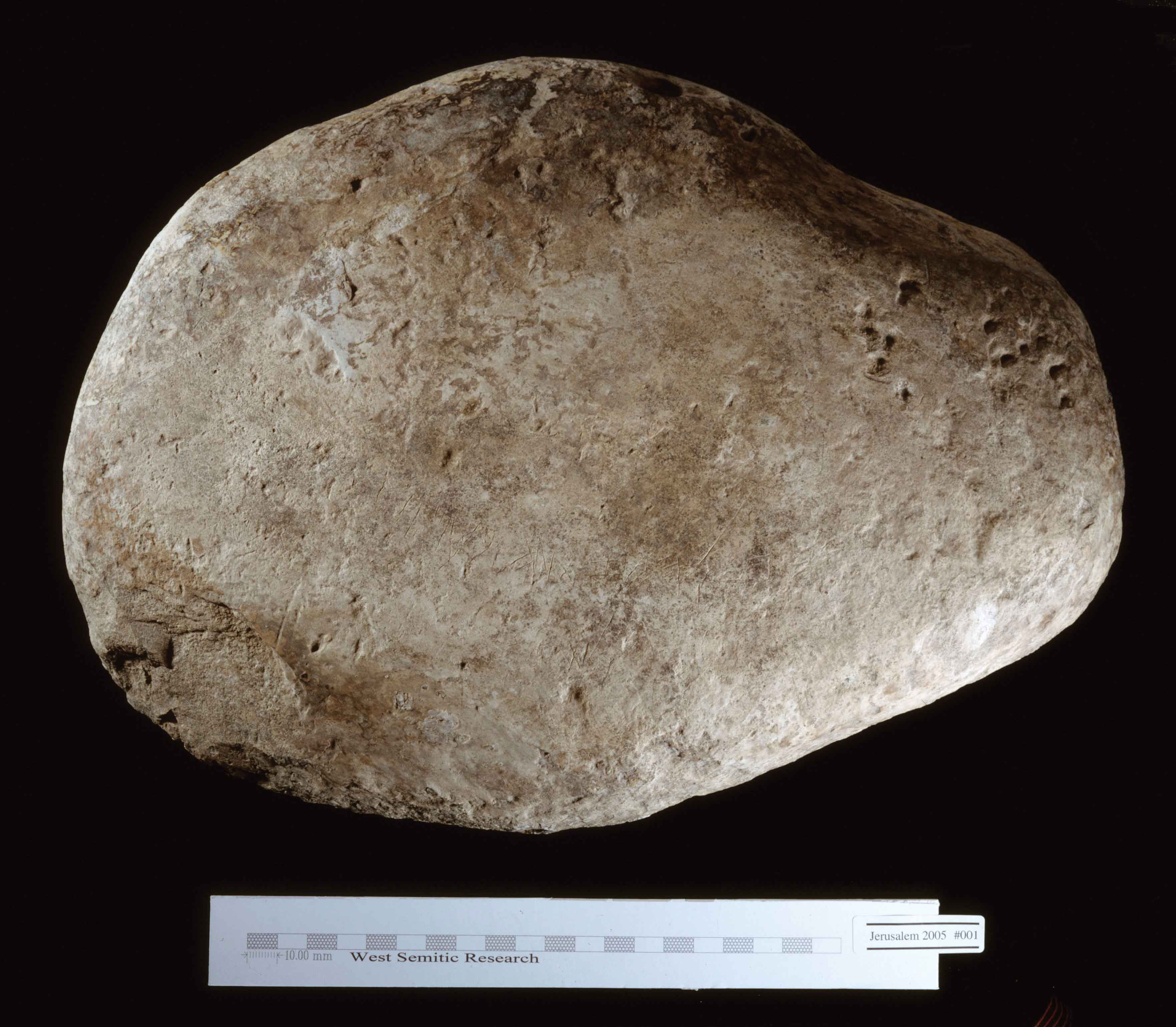
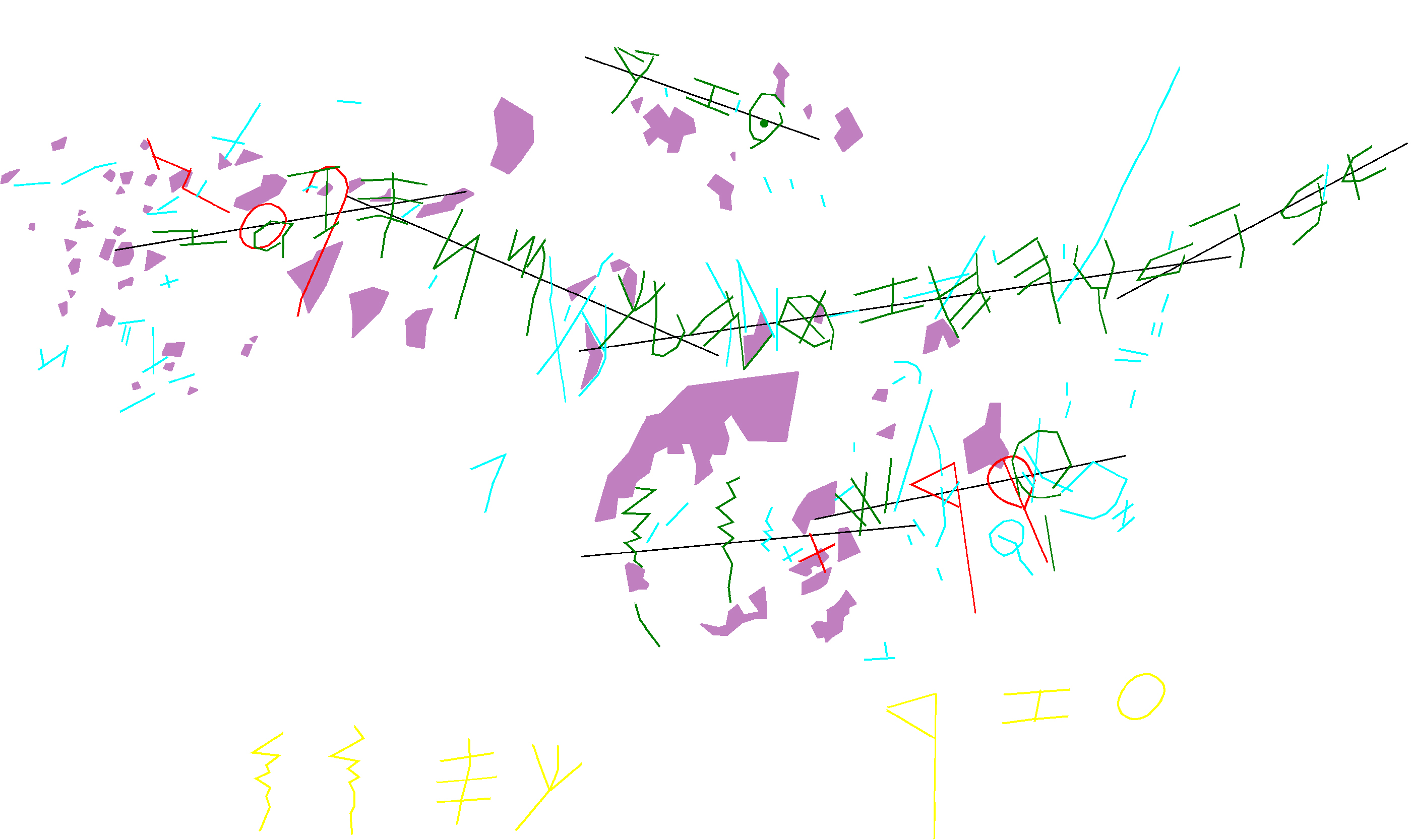
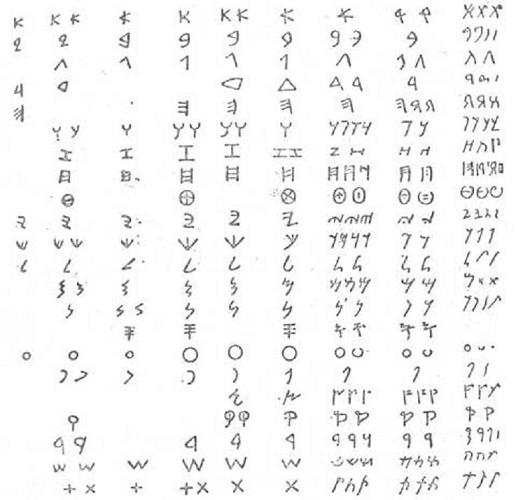
and some other abecedary, this time its order is more canonical, though it's just a copy, it seems to make somewhat more sense, but could be also fake, of course, time will show:
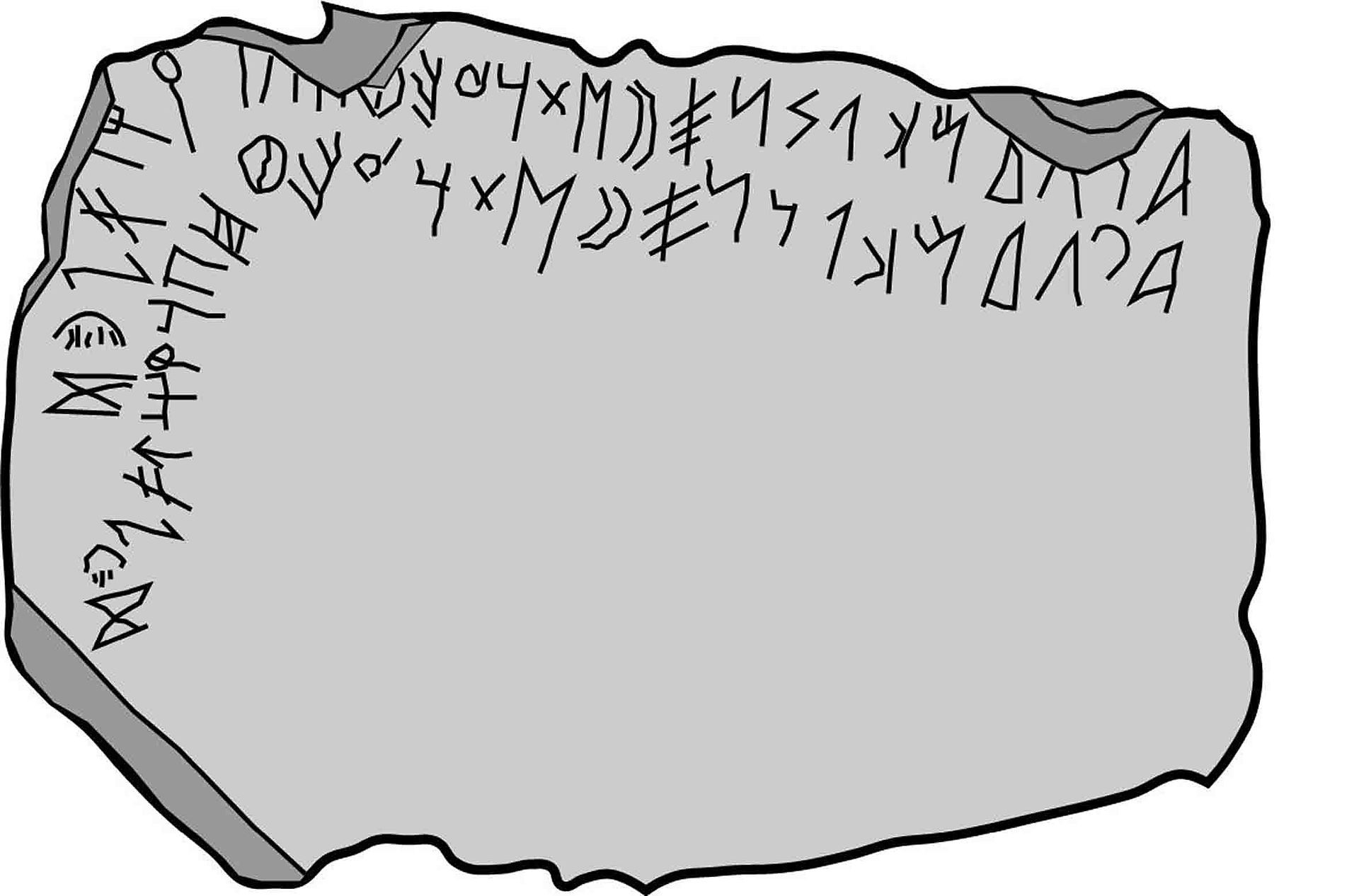
(upd: they say it's an example of the oldest paleohispanic abecedary, not syllabic they used before it, but the actual alphabet found in the region)
and ther rest of random stuff I found today:
now this piece is also weird, but it's normally weird: the t-like shape after q is their r: r
But what puzzles me is why o capital V? and what are the signs before and after minuscule?
Some other runic account:
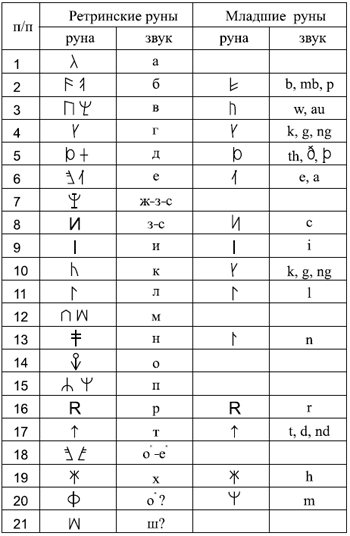
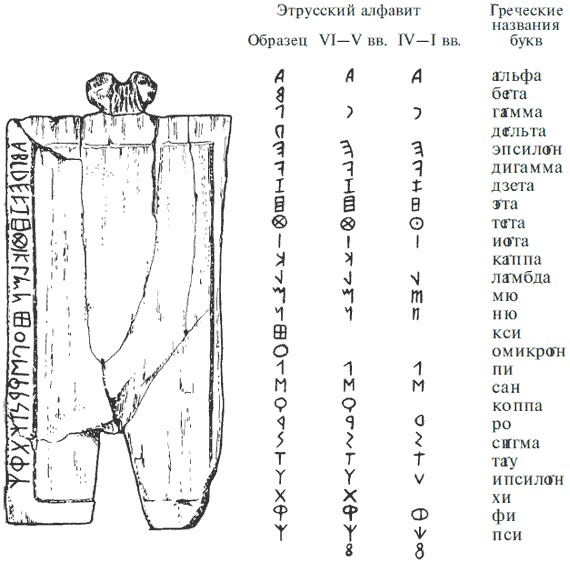
What is strange about these charts are the way they have not more, but less letters, as runes allegedly had, as russian actually got it just a century ago. And I could tolerate everything (lack of X makes Ф go right after the vowel as it should, so I would claim it was evolving the other way around) but why no O? it doesn't make much sense in the context of this work, and so I demand science to look into this subject some more.
Some iberian chart:
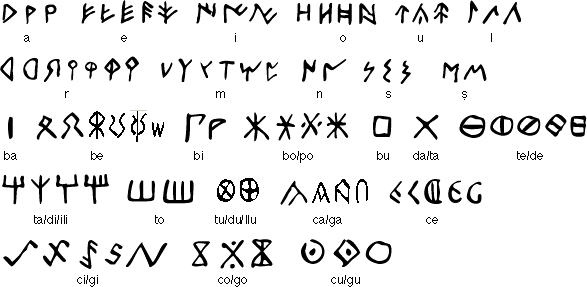
D reflects A there and Р reflect D as R reflects D in k-symmetry
their E reflects our E, and some forms of it even reflect the guess of the other night that ᚾᚠᚵᚼ could be defg, just because that ᚠᚴ reminds EF and now I see that ᚼ could be ж and thus g, and I think my guess that night began with ᚾ for a d somehow, but I cannot be sure of that, just a raw guess.
their I reflects phoenician forms, I think. Yeah, look at that tel-zayit thing few images above it.
their O & U are weird
and another one:
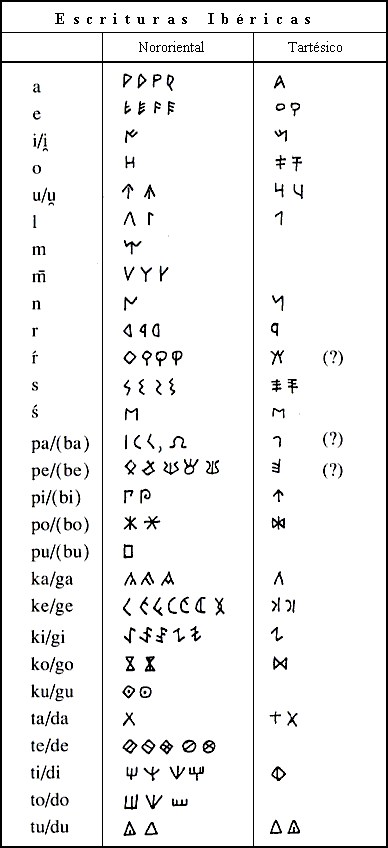
It's a lot to take it, it can reflect (it does) some signs in some other writing systems: t as crosses, M as s or sh or whatever of that sort, K for ki, 𐤂 for ga, some п~p for pi, but in some other tradition it's something like ᛏ (I would place ther an iberic sign or checked for some oother runes, if I had some internet)
The way R reflects A, L reflects Г, U reflects Пi, du reflects Δ, it's a lot to take in.
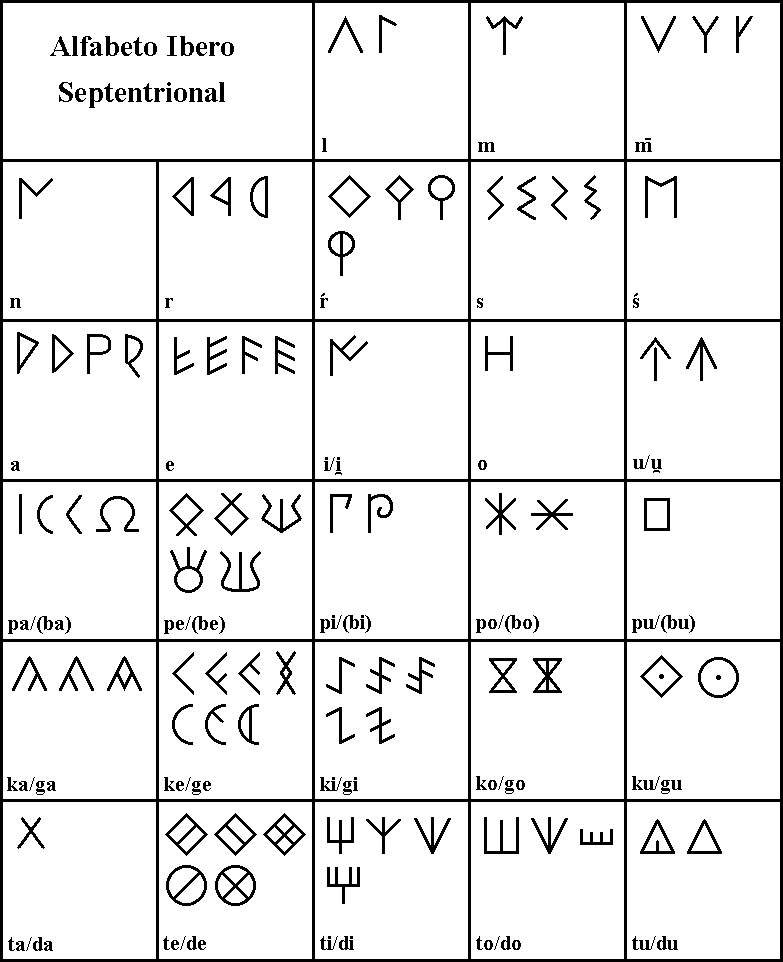
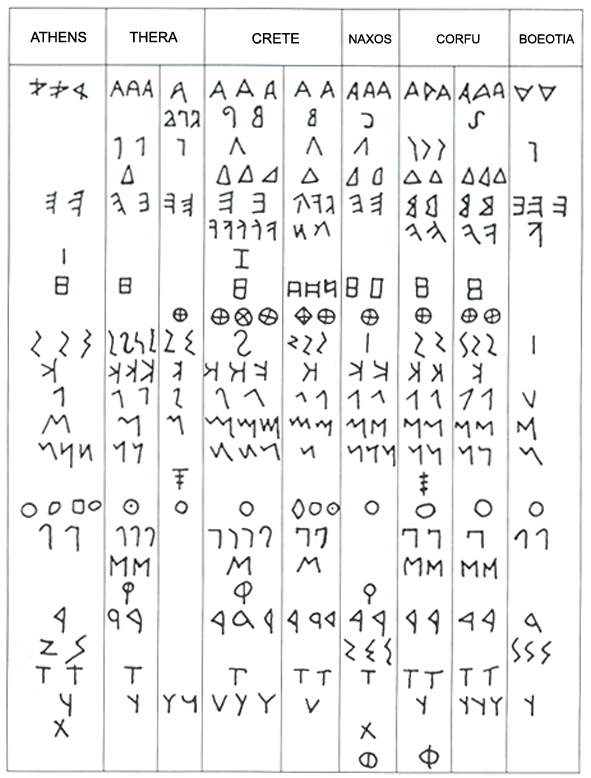
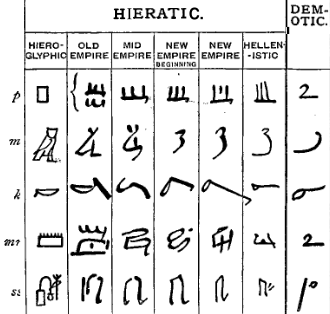
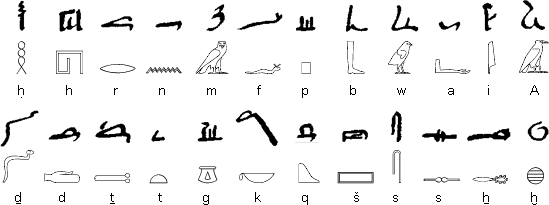
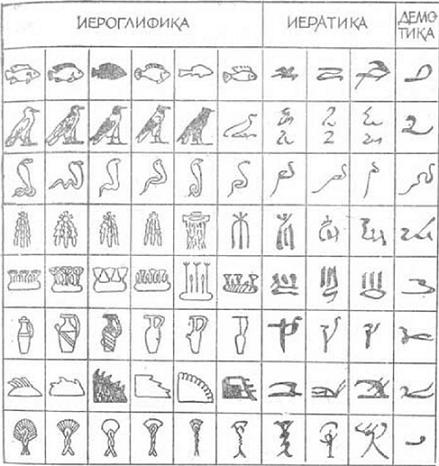
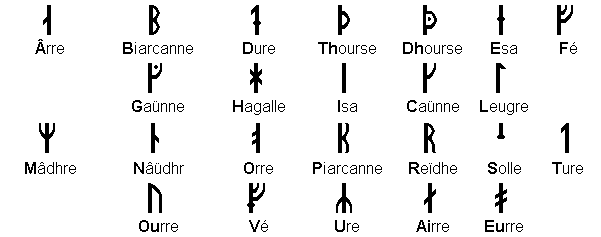

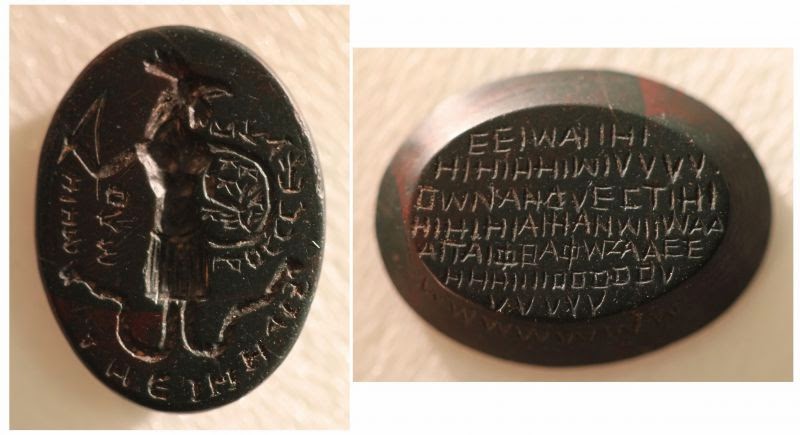
These talismans may refer to my guess that vows were all about vowels.

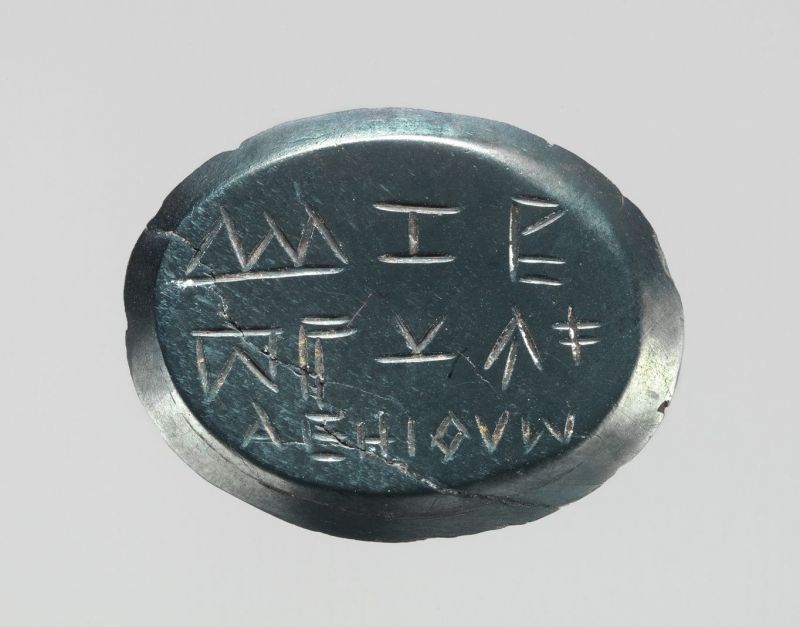
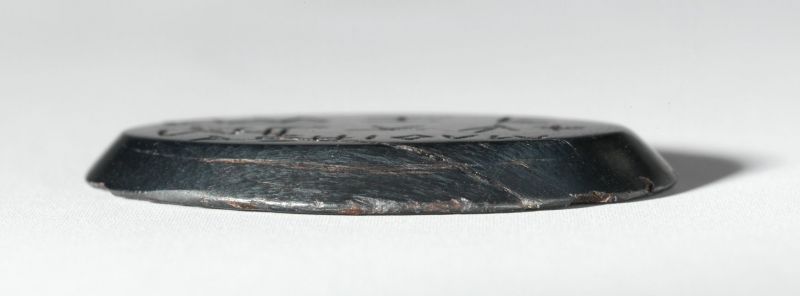
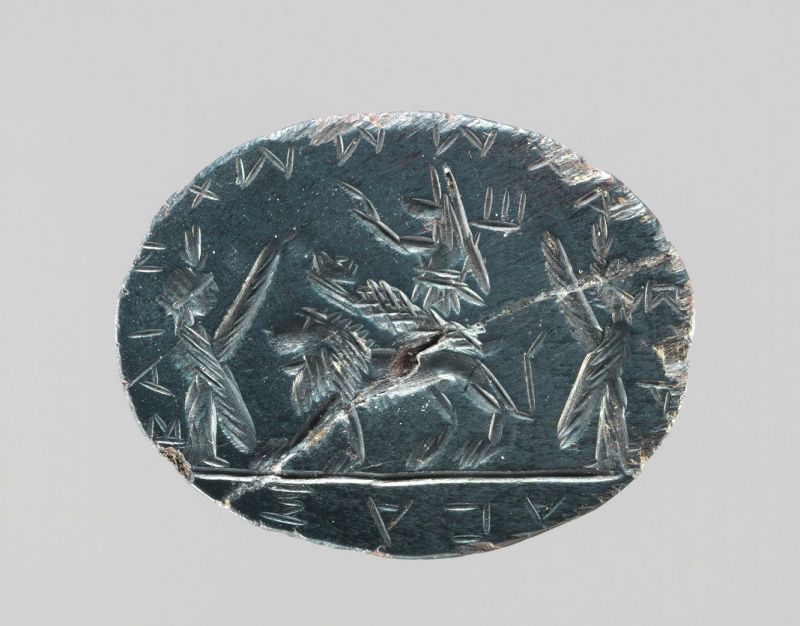


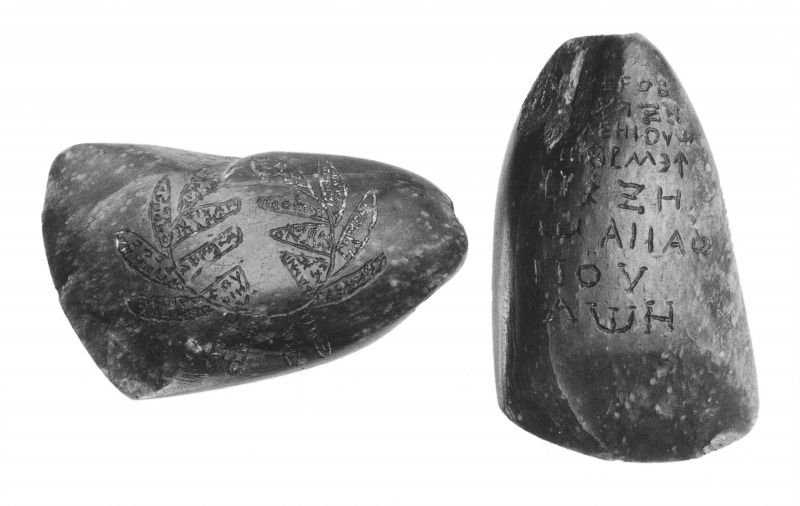
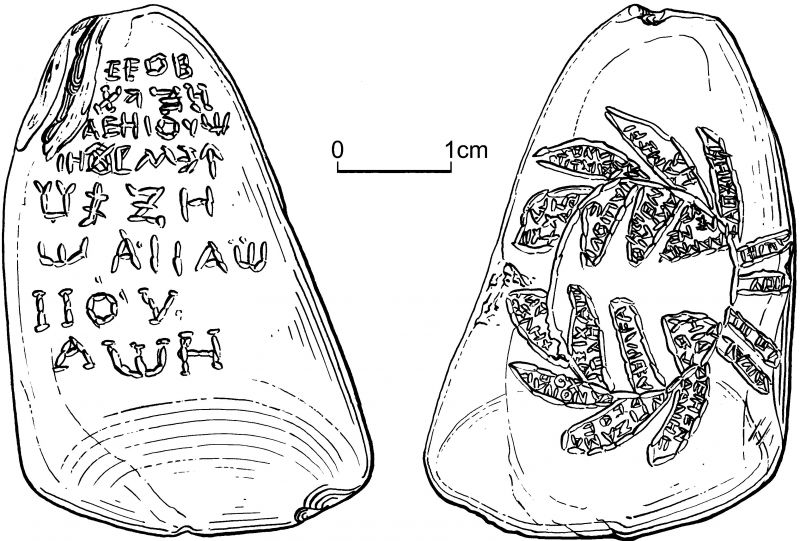
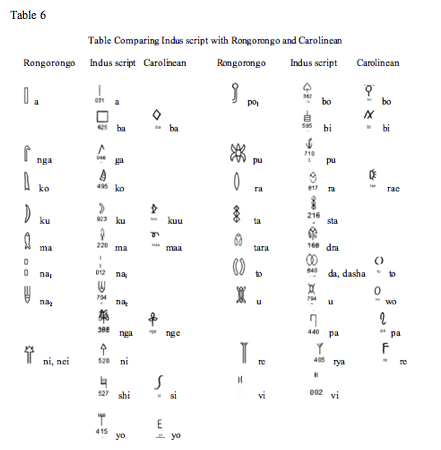
who knows, who knows
Moldavian_cyrillic_alphabet_(1909)
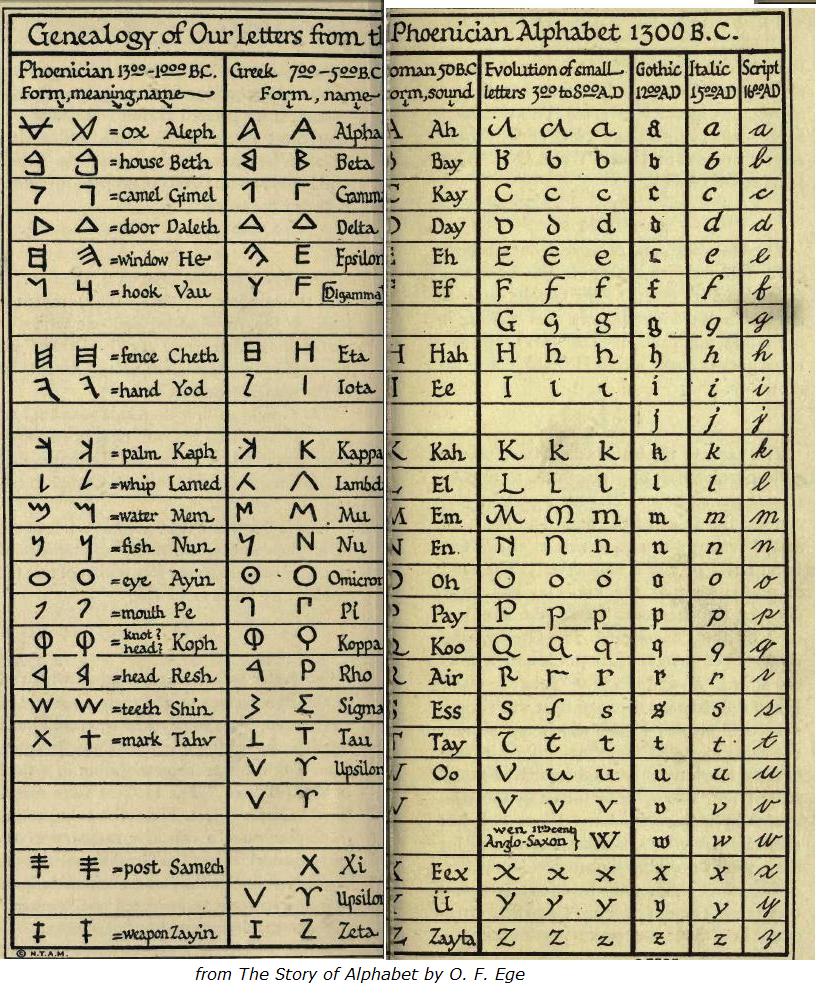

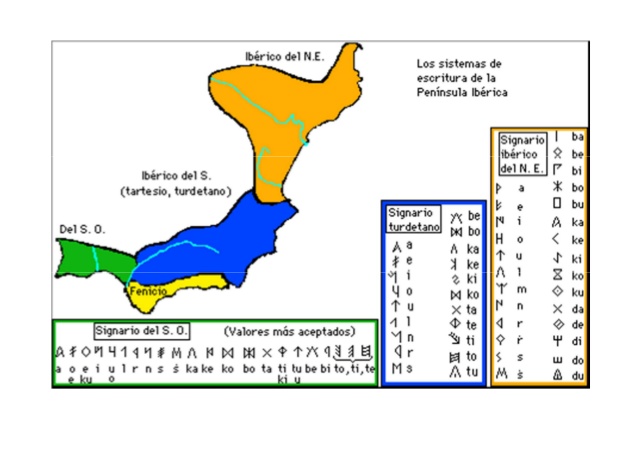
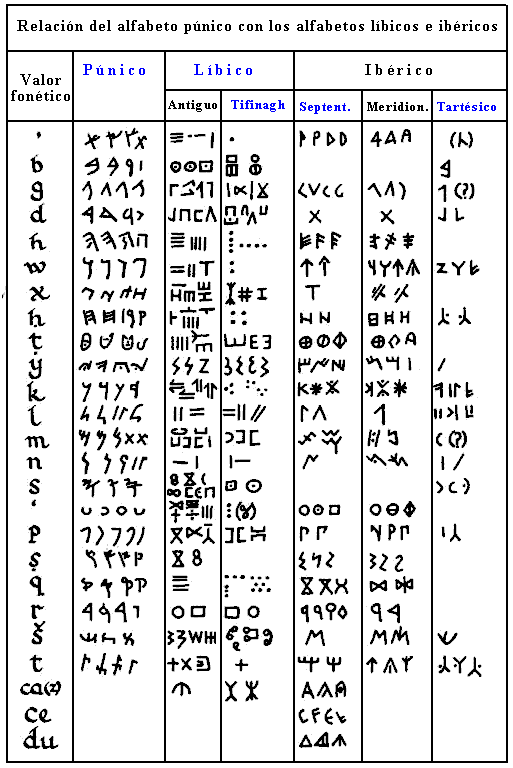

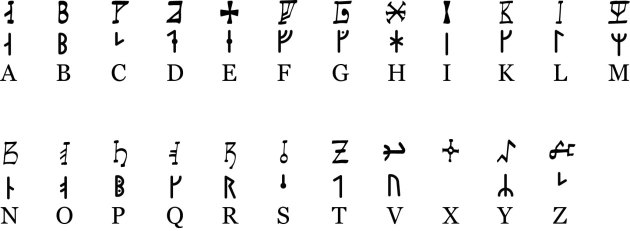
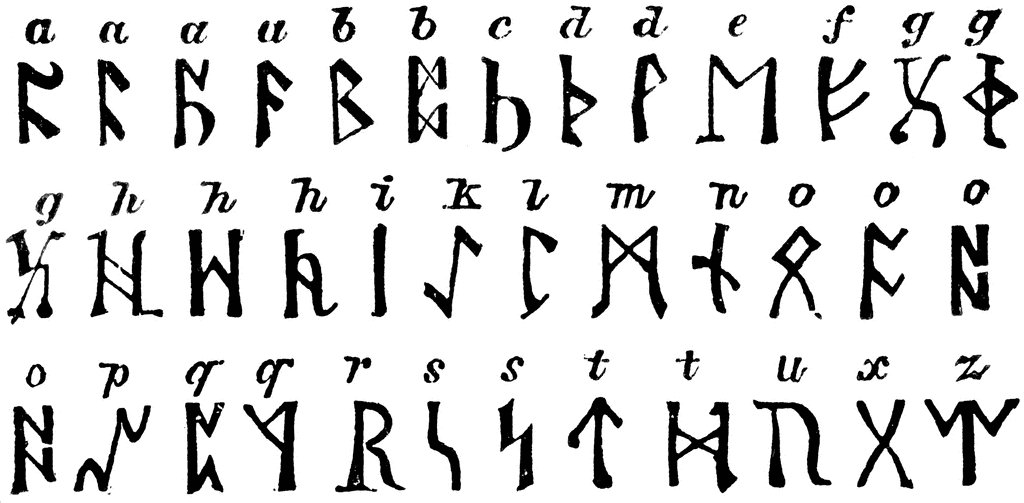
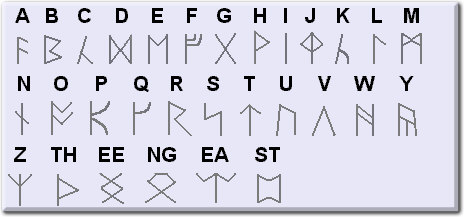
.jpg)
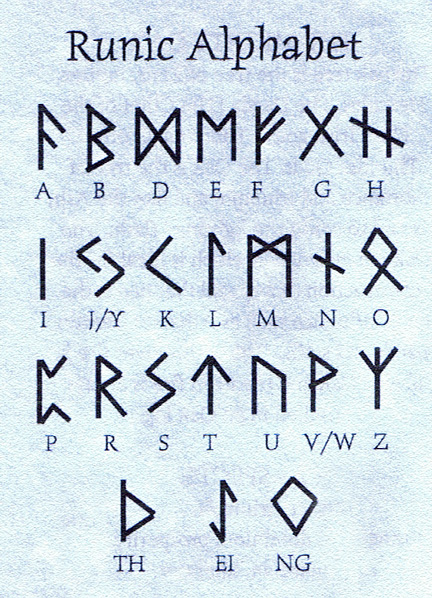
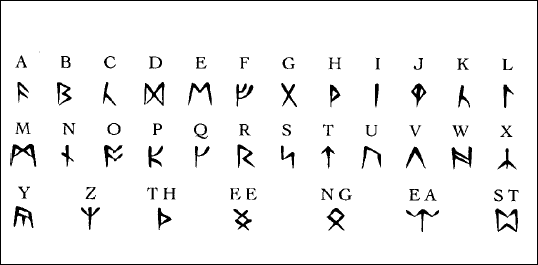
and the whites are similar, yet somehow diffirent, both tell w is what I'd call h and h is what I'd call h.
and the blue one would agree with me on its w yet it's here mostly for its ei.
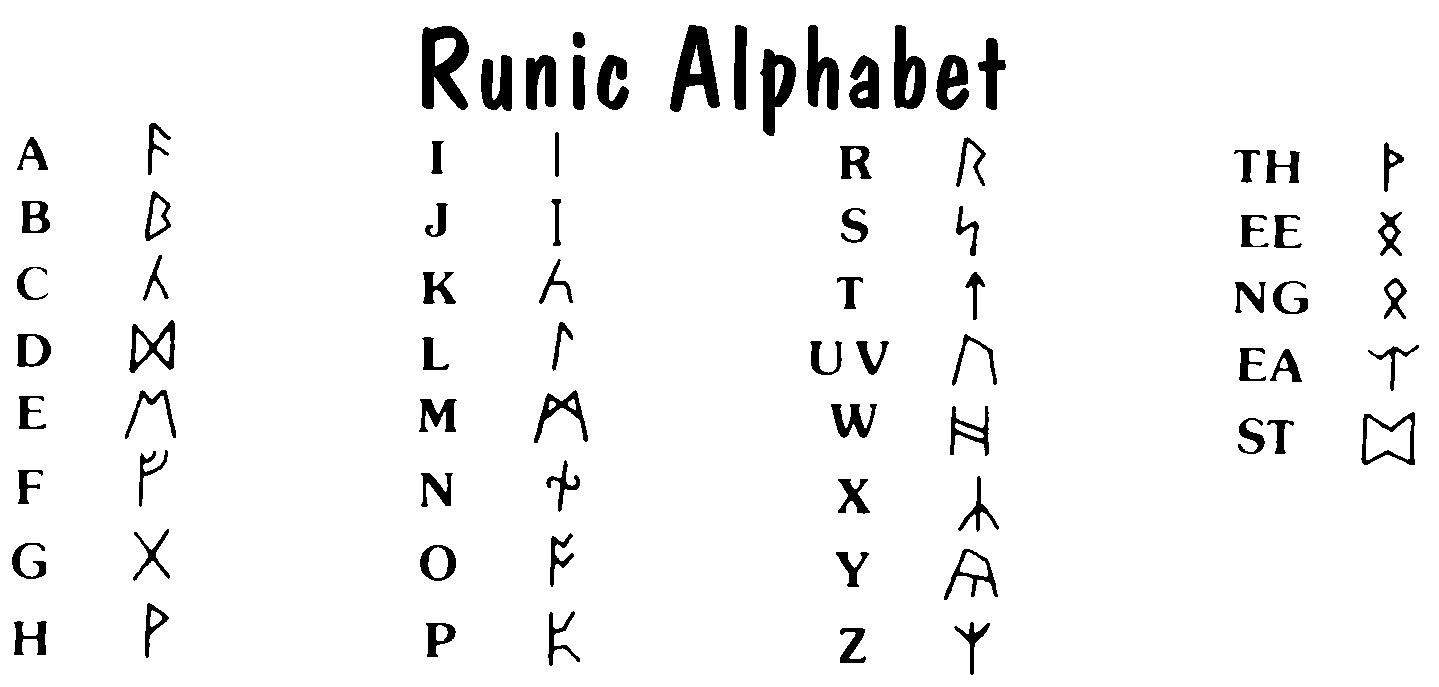
here's a runic chart that agrees with me on W & H, but of course we both can be wrong:
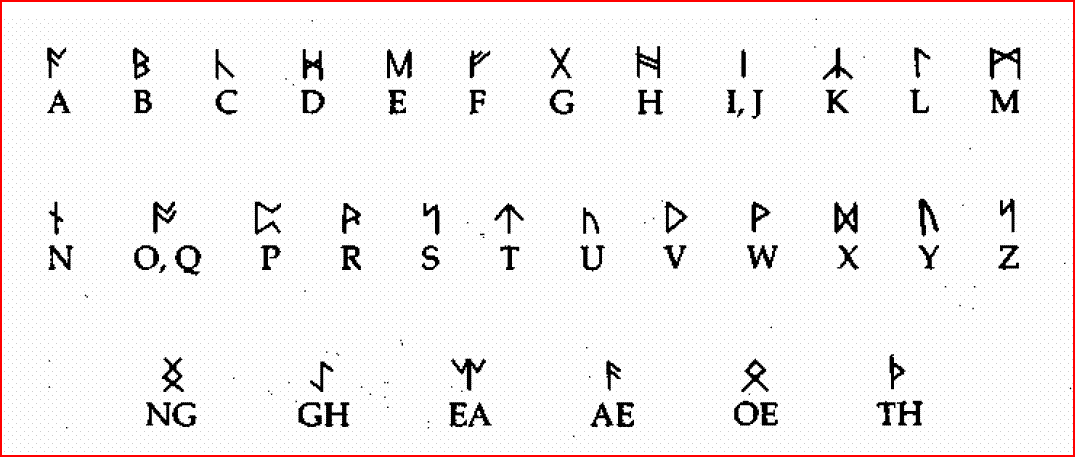
and some other researcher's comparison:
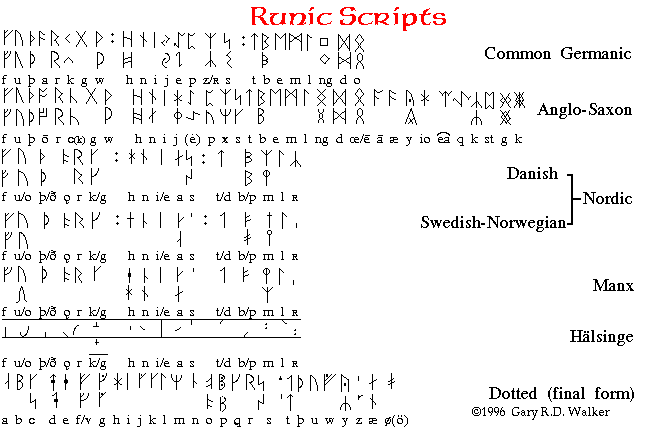
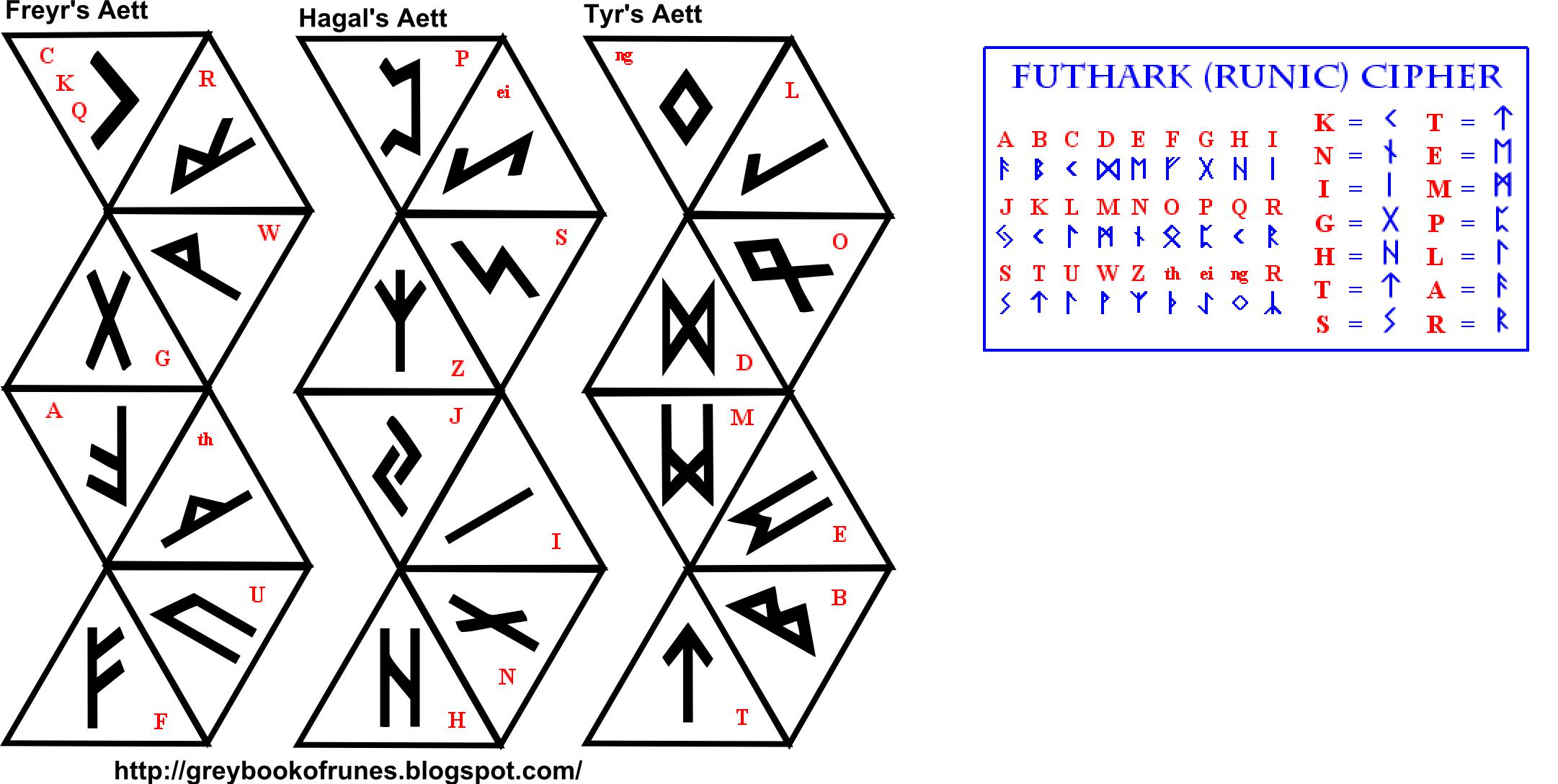
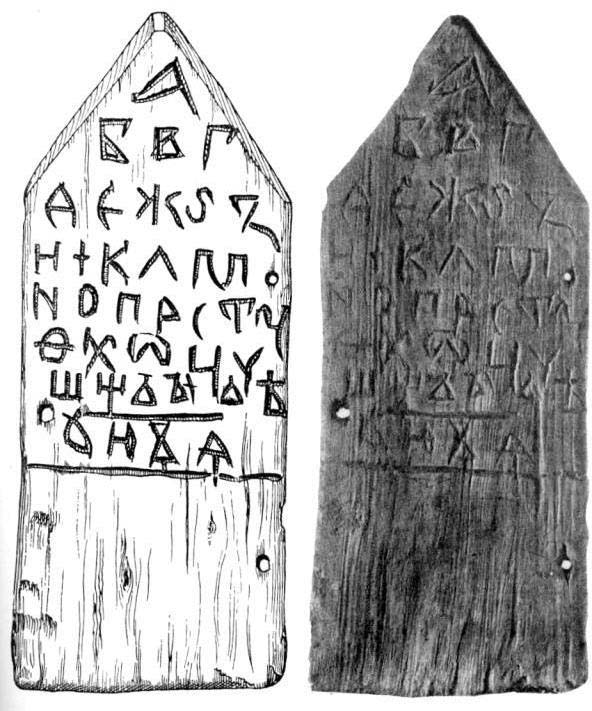
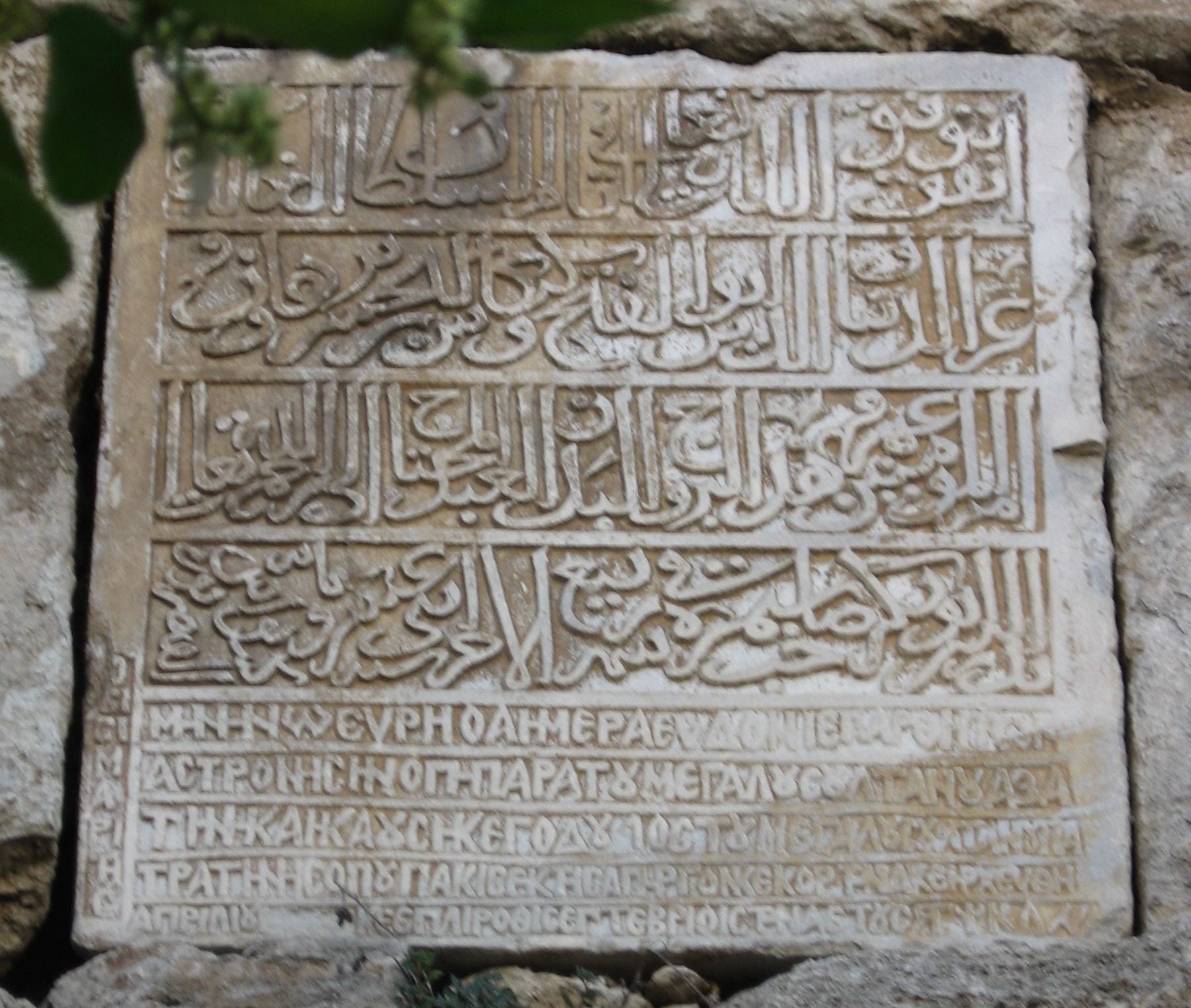
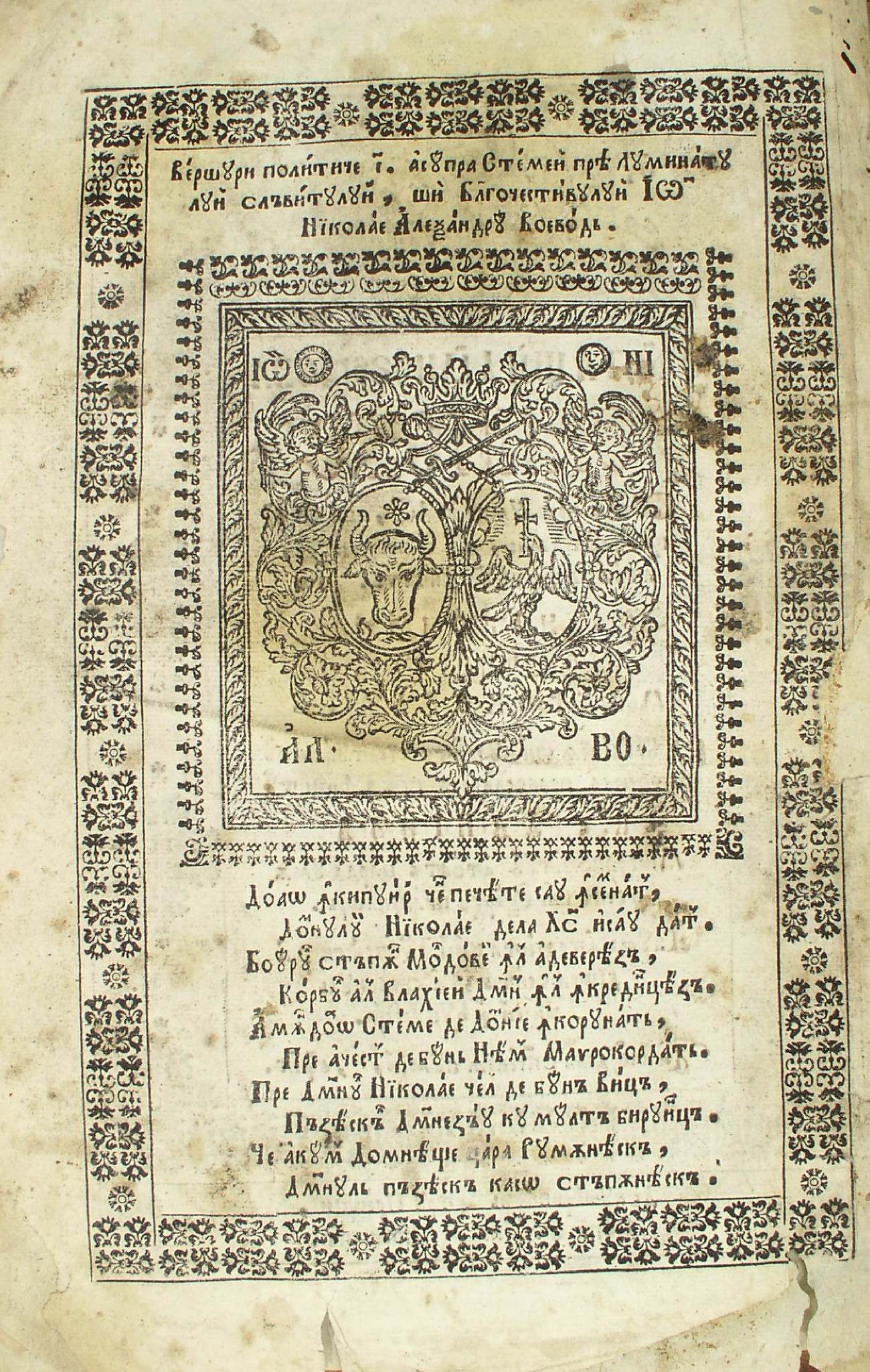
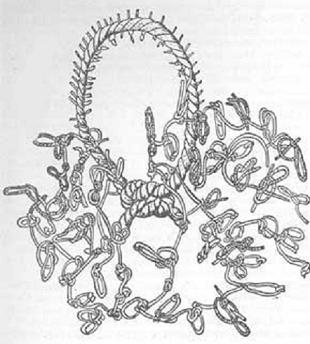
lucks funky, forgotten for a reason it is scary, further is in detail, but now I wonder whay I wrote looks like lucks. lucky are those who have looks, but often it's more complicated.
Some writing I use, how would I know if this one was bless or curse? curse would be burnt mor likely, but when you don't know what is written, you tend to use e see curses where are there none. Amphetamine was a curse per se: it made me less able to stop myself from saying whatever's on my mind even when I would be silent when I though about the usefulness of the phrase (those phrases I pity saying are usually hu harmful: how I уронил пирог, как ещё что-то там ляпнул, что дружу редко подолку. но это хорошо что сказал: заставило меня думать о причинах и нашёл оную в том что учёные исследуют, проверяют, и проверяют границы чужого терпения тоже. I though of recommending the people I don't talk to anymore to contact eachother to befriend as growers, they're both cool guys, but I told them to fuck off because I am autist, I'm out.
and here's some more academic point of view on glagolitic script, that it's sum fucked-up greek or something (more academic than one drawing lines from it to prichernomorskie writings and further to some even more ancient mediterranian sillabary (cypriot or linear b I don't rememeber now)
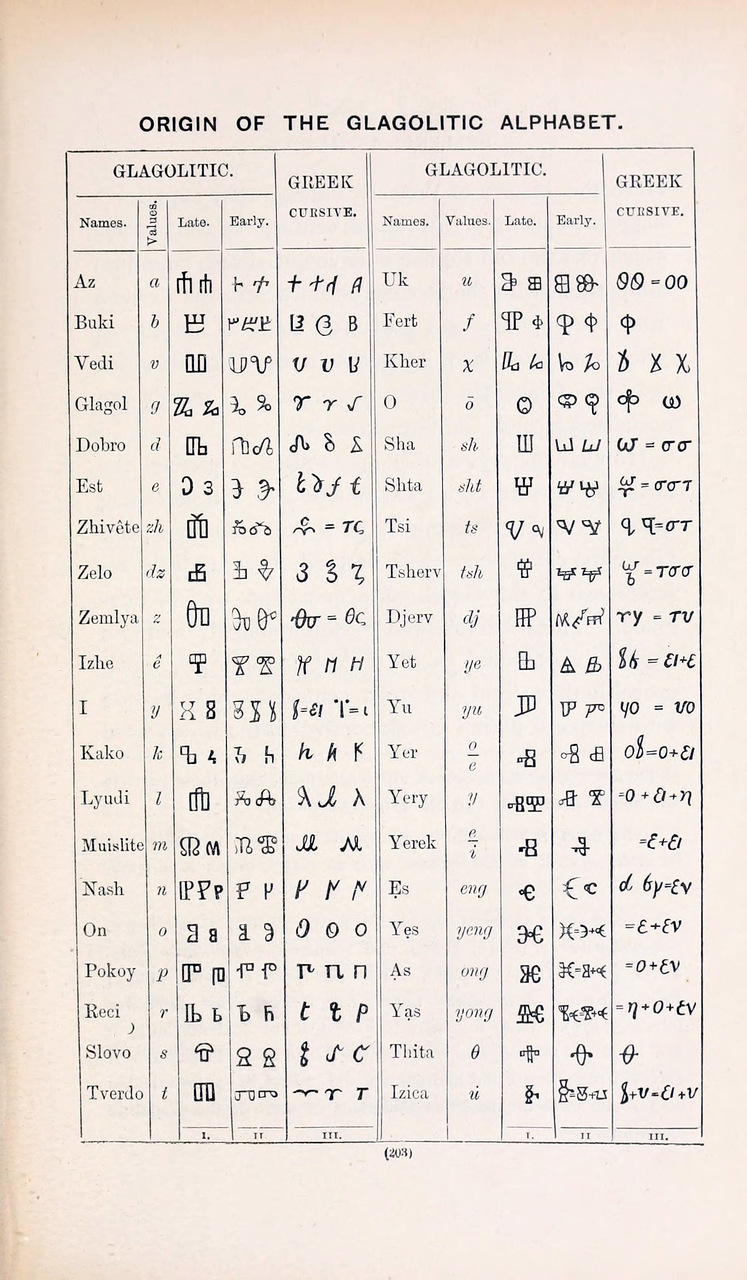
many images in this mess are from this page:
http://ulliana-art.livejournal.com/41454.html?mode=reply (I also mmirrorred it)
and the picture above reminds me that v is an open form of b, and I saw it everywhere: f is open p, t could also be open b and it always puzzled me, and now I see that b t could be mirroring like that: a maria, plena. and a sir, thin as both hunter and пфхарь would be. ф instead of a is atypo, but fun.
big woman, small, as малыш -ыш is s-? just like to is -ть, Ш ьгые аштв еруыу фддю ы we must find them all, these pre-suf-fices are alone may explain all the alphabets. And it's symbolic that I recognized s after I recognized t. Let's recognize R. do-er is the first candidate I could think of, but it's suffix, and in those two englizsh forms were prefices. redo thus is the thing we should look at. but in russian that re turns into пере [pere] notice how it mentions both readings of зp. p/ p. re- could be translated into russian as опять [opjatt] tt is palatalized t, the way burgess wrote it. wr is re- I just felt so, re-ote? audie? wrote read re in read is more likely to be re the re. I will return to this question in this volume, but after I upload all the images from the folder,
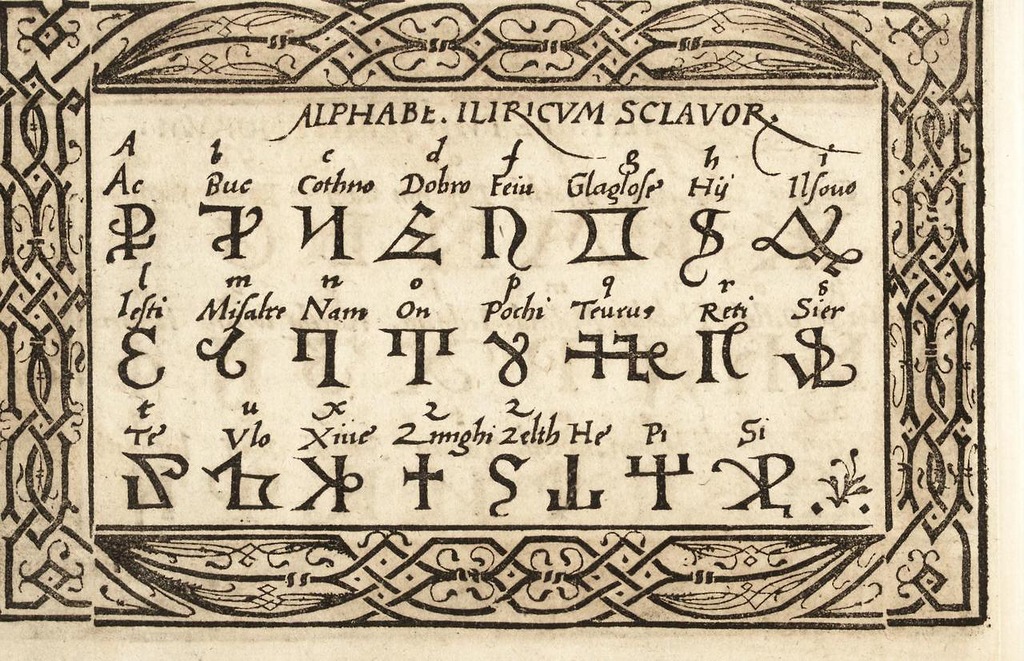
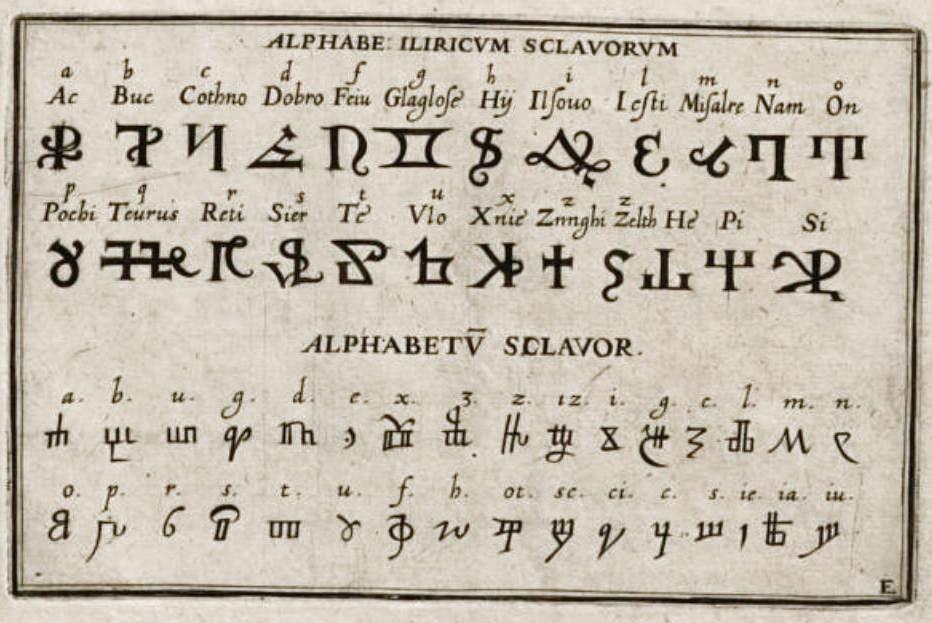
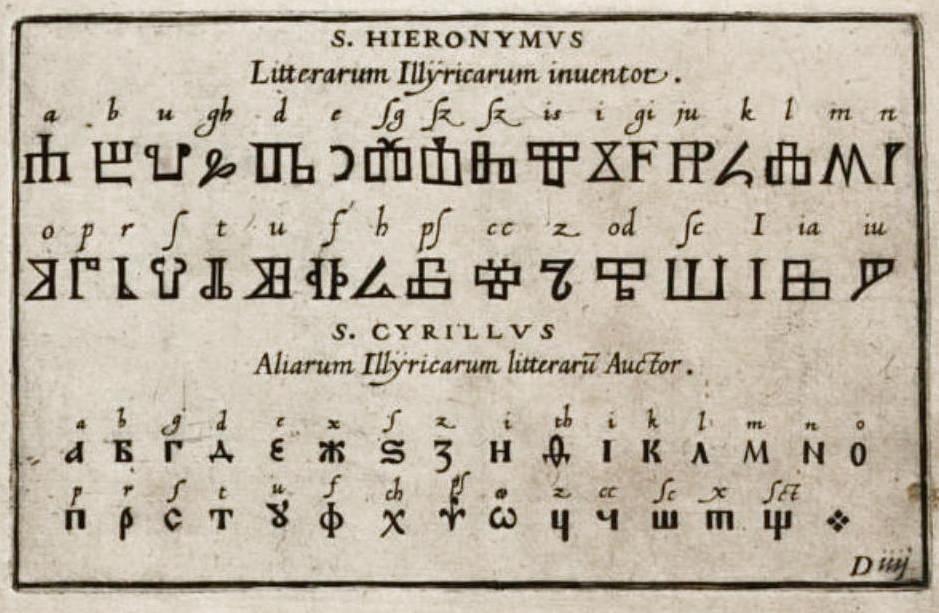
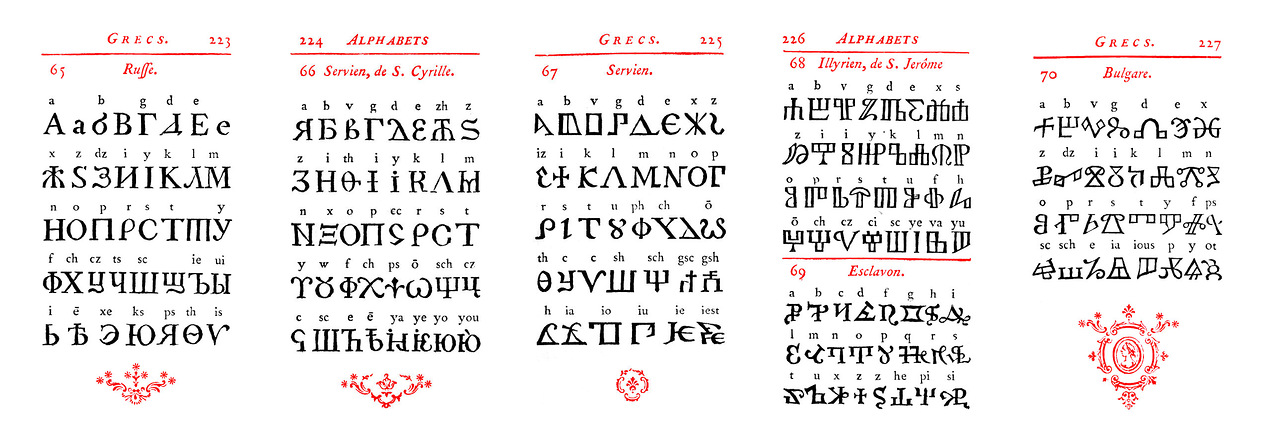
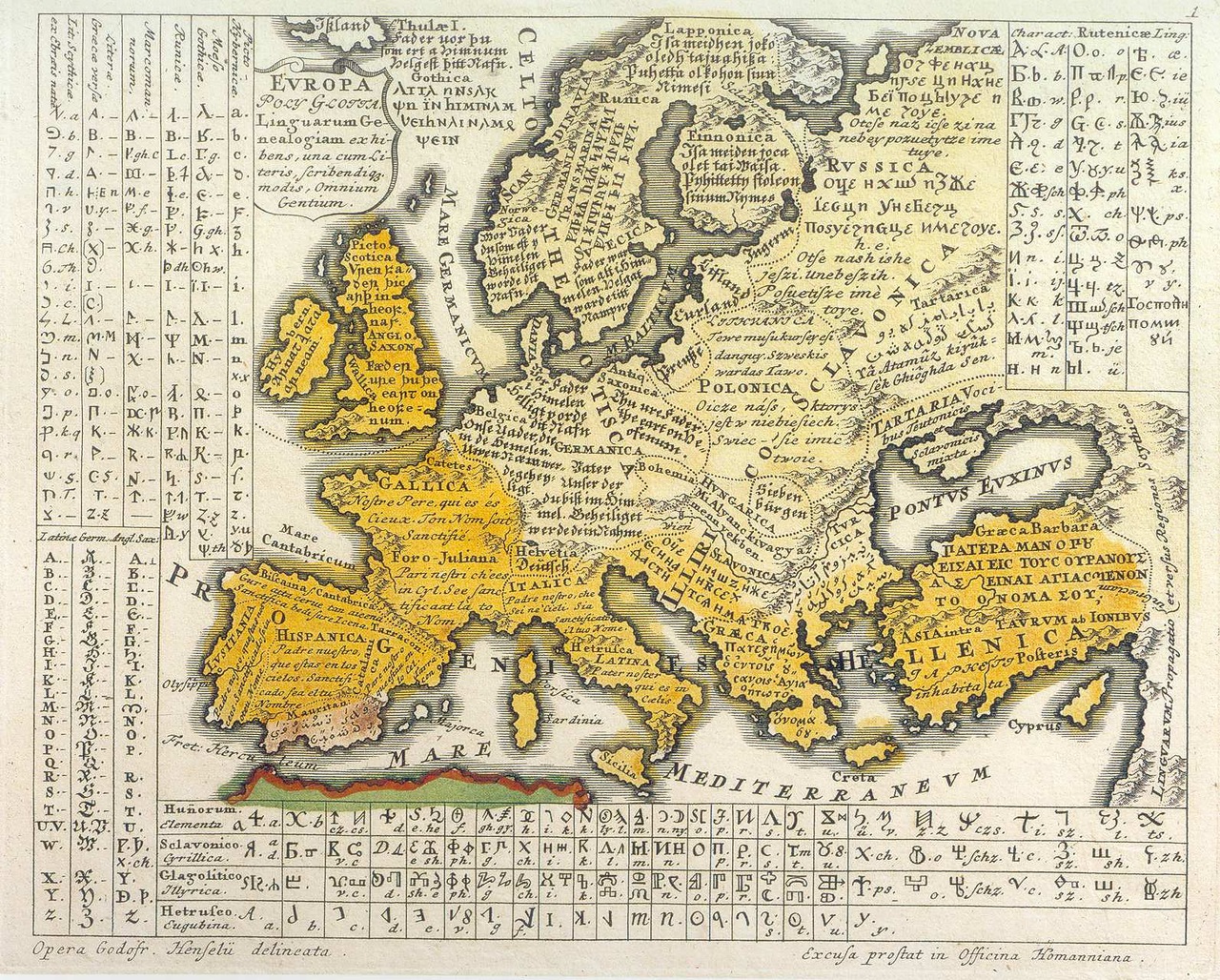
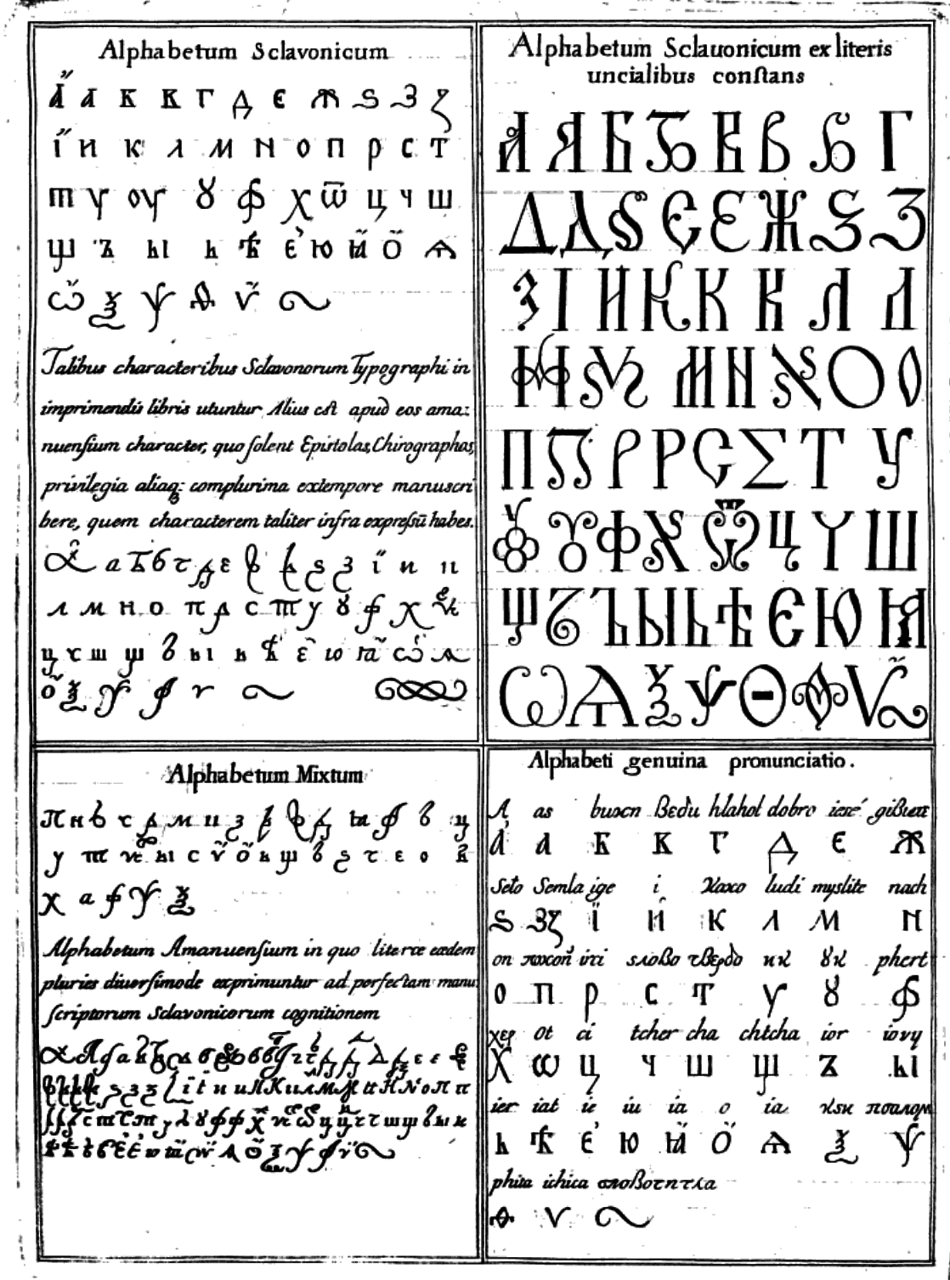
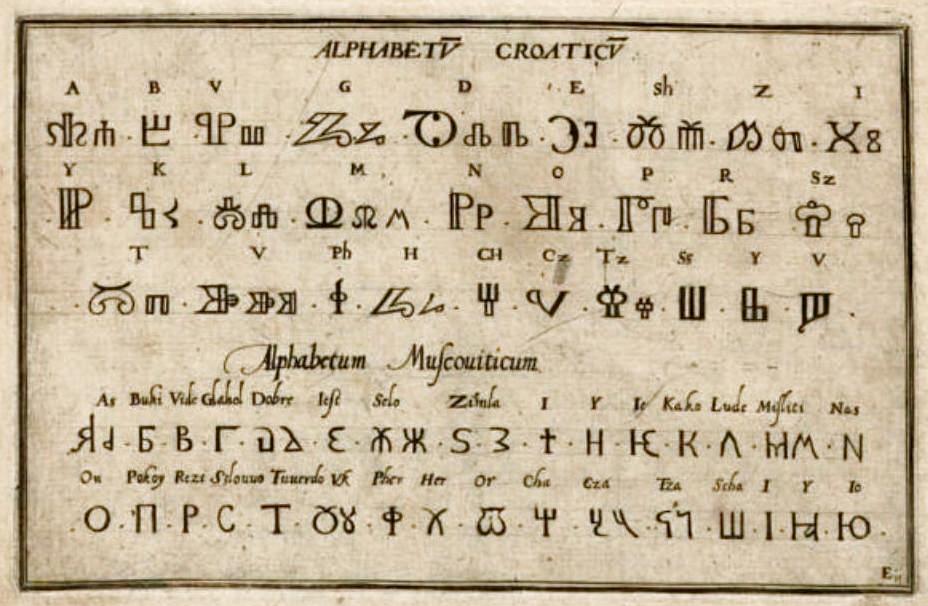
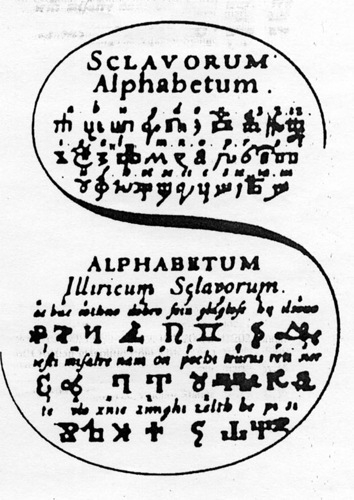
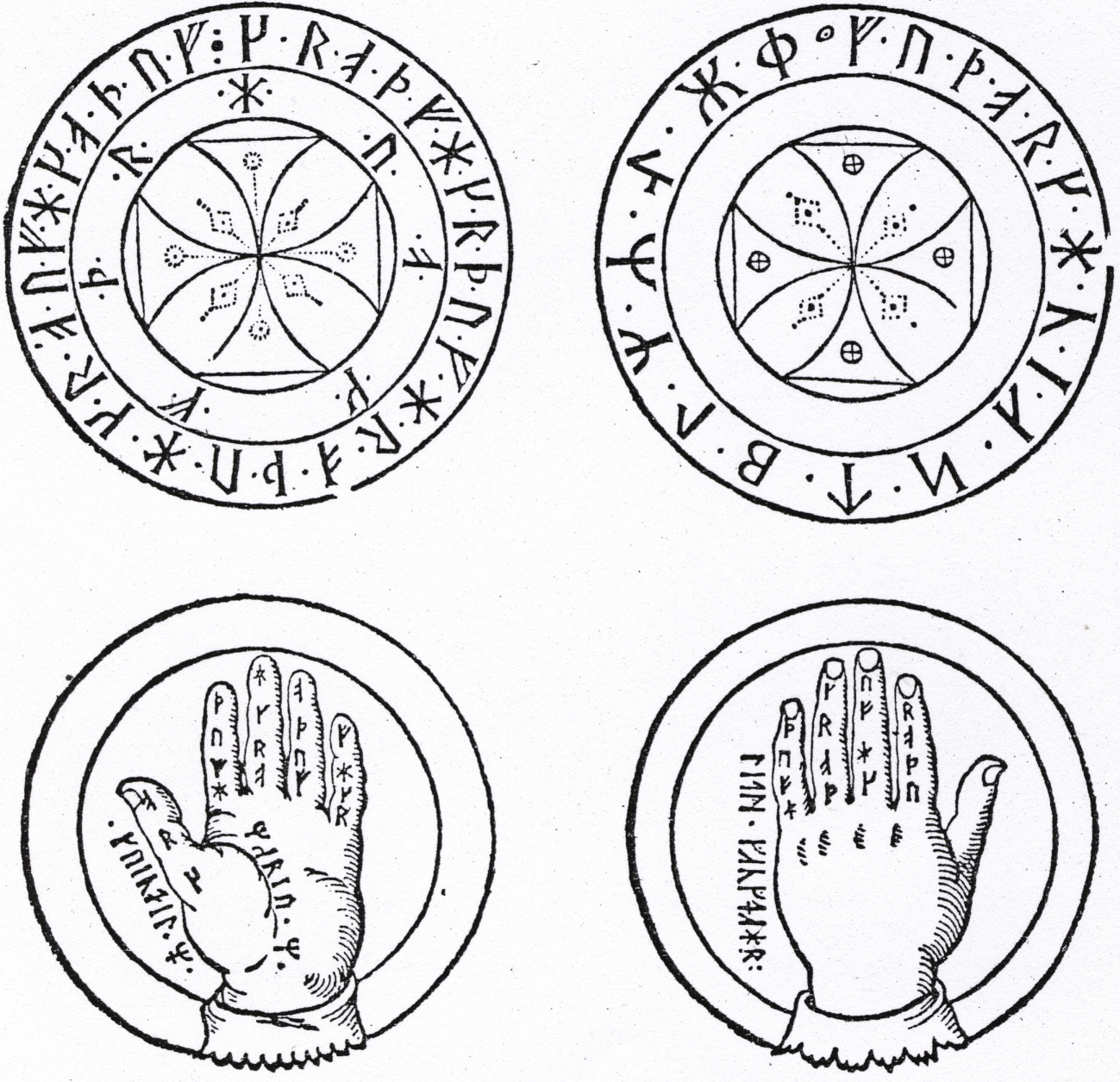
And what a final image I fished from that vault!
The order doesn't seem to be whether alphabetic or futhark, and it's not an abecedary, it's some writing, some spell: letters repeat.
I thought of abecedaries, because I saw ebecedaries on fingers like this, and not only in gvido hand. Is it some magic practice preserved by a hugo? Plates above these hands are alphabetic: futhark on the right one and on the left one has several variants of futhark: going from right to left for some reason. Probably to follow the 231 gates whatever is the better name for this cabalic star. And about stars: the central part of the left plate is futharkh in a star. In a 7-note star. Those on the outside are probably musical notations, and thus gvido was not the first one who planned and schemed to.. christians probably plan and scheme to take all the credit, gvido took the credit from some heathan science, but solely for political reasons, he is a hero for preserving that thing, he could subs subjugate to those who seek to prohibit all the music, he could be burnt as a witch if those lunatics took over. But they do make sense: as a child said: music is too loud: and I understand, you can hear it from all the noise, it's rhythmic, it can play in your head for itself, it wanders the chambers of my head so loud it is.
Ad now I can see, that all over those fingers futhork repeats, and only runes outside the fingers are commentary and are yet to be read. And I theorized that futhark is actually abc(d)efg(h) futhar could be the pentatonic abc ef.
That right top plate is not just some futhark, but the 19 golden runes with the additional 3 to what they usually call younger futhark
g looks like some f Ф θ
to -ть
s- -ыш
re- опять?
опять опыт опт (is оптовщик частый покупатель? не совсем, но похоже похожи = по роже? похож подражает походит подходит поражает по роже похожи, а так два разных человека, в этом смысле)
que is чво? в т г? what are these is p v? p is f is v. is Г Б Т the гпт and are these three forms of the same? and does it explain г [в] anomalies?
I don't think I recognized r properly, because so we can allo many. so maybe I should, r- is the only morpheme that prefices with r in it. ir- is i-? yep. anyway, I don't even know if s- -ыш is not a fluke.
super упорыш?
smart мартыш!
slow ловышь?
soup упыш?
sleep липыш? залипаю. глаза слипаются лип корень, s- приставка в английском.
say эишь? are there verbs like this or does it work with verbs at all, or only t?
or is hey in the centre of say for real?
sleep is quite a verb, лепишь спишь? ле is also c? неожиданно, то le is the, and the and these are сии.
stop тупишь! тупишь = стопишь
speak покажь! peak as in picture.
seek ищешь! and ищи, thus ysh is a form of i?
super упори (I hope silly kids don't watch us now, I strongly don't recommend to pierce skin with anything) smart марти, slow лови, soup упи? его же пьют! п is пить. а писать это дать пить растениям. полей, a не пей: le = se againg. are both ʃ?
посри то же самое, но твёрдым? мы не знали разницы меж пей и пои когда эти слова появились? пои очень странное по смыслу буквосочетание, потому что похожи на помои, что говорит, что не исключено, что нищие и такое могли пить: мыла же не было, а еда с тарелок в помойной воде остаётся. жуть. я отказался публиковать taboo, так оно пришло на страницы этого журнала? с лингвистическим разбором этой дикости? в такой форме у неё есть иной смысл кроме простой безумной шалости.
high again.
will is spell and it leads us directly to feel.
w is sp, long?sp
is spell ill sp? or is l just a suffix?подисправление. подъисправление. еров всех в 1917 отменили. 2022 is still withing that orbit, but now 2021 just began, все съёжились, чтоб не
духи газы (если агриппа в оккультной философии не гонит, то магия это физика, математика и теология, но теологию он туда мог воткнуть ради одобрения церкови. обожение дозволено же.
обожение ублажение.
will is feel is great. spells are all about the feelings. what about fails? fails ain't feels?
ain't недо? не то? aye not? да нет des no, desu nai. if dewa arimasen is correct, so is desu nai.
feel well
well is the opposite of ill.
well and ill are we and i.
spell = well? волшебные колодцы. а отравители колодцев уничтожили эти чудеса? колодцы волшебные, которые люди случайно нашли были закопаны обратно? или они пили нефть и прочие природные воды всех составов. или про нефть конечно бред, но она тоже относилась к водам (жидкостям) у древних магов, магадемиков. мегадемон-ков
МагадеМиков интересная фамилия
Миха Магаде (магатэ, (м)академика)
это гонево, перекурил, делай перерывы.
ю йотированное о
ю йотированное у
я йотированное а (иногда а выглядит как я, see therussian alphabet few images ago.
э и ё и ю не те чем кажутся:
We should stop using paper. We should stop wasting forests for wood. And chopsticks are to be made of silver.
chop is щепа in russian.
wood is probably more distant word.
wand, палка, w as p as f, n is л (and ain't it п [p] altogethre? d as k? all linguals are c? as I read in a notebook today. read, I scanned notebooks, on photos, in the snow, arts farts.
ппс? ппс аге ш1тн палкас, два пса и собака идеальный комплект для бригады ппс.
полис попис полиция палица палка so don't get surprised, but wand as ппс, surprise, wnd nd is narodnaya druzhina. с in ппс is служба. служба дружба дружина служина, р л. д с. с is staveless d: бред брешит, red roughe rouge rose is rogue turning red? trying not to allow me to read his mind? people are stupid now, they were retarded before us, because culture makes intellect? that's lysenkoism, how would maugli use his genetic intellect? how much of it is right software and without it it declines by many stupid acts, like in chronic traumatic encephalopatia.
But then there's a better way to prevent deforestation: producing all the products we demand in some more technologic ways.
But in case of bacterial production some bacterial matter is potentially undercooked and thus biohazard, unless the полуфабрикат берётся из пены, порождаемой бактерией, сидящей на дне бассейна и никогда не поднимающейся на поверхность. But what will we have to feed that bacteria? recycled paper. Isn't bacterial production extremely slow in comparison?
s- -y
small mally
smart marty
(I spoke of it before, whant it to завести мотор моей фантазии с толкача)
slow lowey (low speed? y is speed? s is speed? speed and скорость both begin with s. shustrostt, shustry fast haste f is dashed s. h is ſ or ʃ
fast is быстр b is of h in japanese (b is closed h, not t) y is open g then. y is [γ] [ה] then, y is ч? nah...
ʒ is another open g. is c original open d? is l? inverted can be open d, or N can be just as d reflects b.
snow nowy? new year? nowish? (no good cognate here)
sex exy edgy? exish? exit? (no good cognate here either)
but I must smoesome weed first.hello, new day)
so oish? oey? none. let's try some at least 5-letter words:
swash washy? размытость, смазаннотсь? makes sense again!
sand ends? 4-letter word, not good enough.
Satan Aton's? some old god? makes perfect sense, if this theory works out. Let's keep on researching it.
Surfers technically it's 4-telltter stem: urfy urfysh? nah..
Special Service. pechl's? печаль is sadness in russian. ervisysh
Nah, I think it's an apophenic part. Or whether S can be both prefix and a part of the root. As in So, what would I expect from such a tiny one. But for small standing for ьфдн vfksq v малый (й = щш?
= looked like ≠ иусфгыу because a coursor standed at it. I also found that # is used as ≠ sometimes in programming.
We need to meet. need and meet could be cognates. so could be to and thou Y ᛏ againg
If again is againg. That could be "not going."
okay it lags more and more, see ya in vol7798
they say " you get more of what you incentivize" so why do I support typos? because I believe they're my subconsciousnes trying to tell me something.
It's enough that I slow down my thought to write it down. Let's not waste time and we'll see the subconscious part after we connet by neurolink of some sort.
Mind is globe we see from the inside of which. So I saw whaen I was 16 or so. So makes sense because of the additional layer of skin on the outside, the dura mater? the bura matter. but I was thinking neither of skin, nor of dura mater, bua but of сукуикфд cerebral cortex. (it seems it will take some time for me to stop this greying of typos. I will just go on without even bothering to erase it. Just repeating agin if the шрифт is misckicked.)
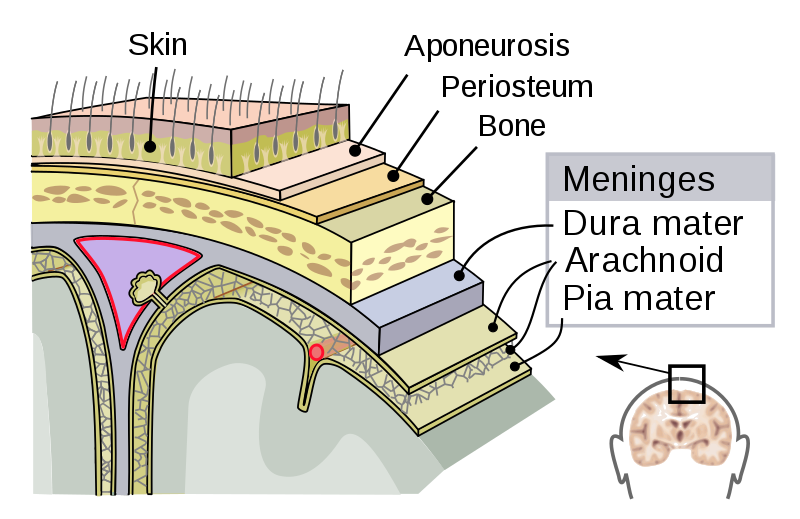
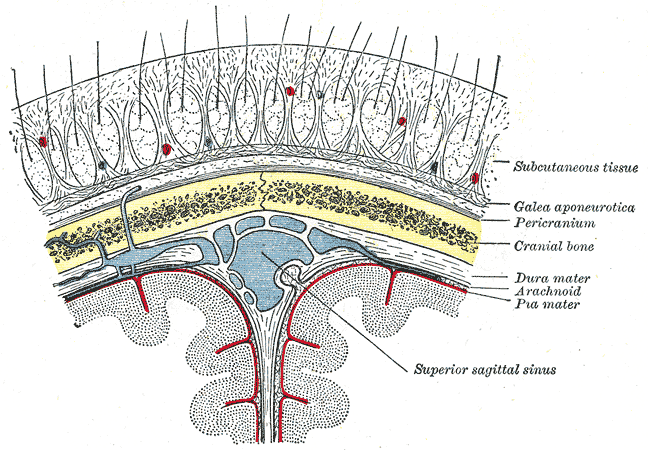
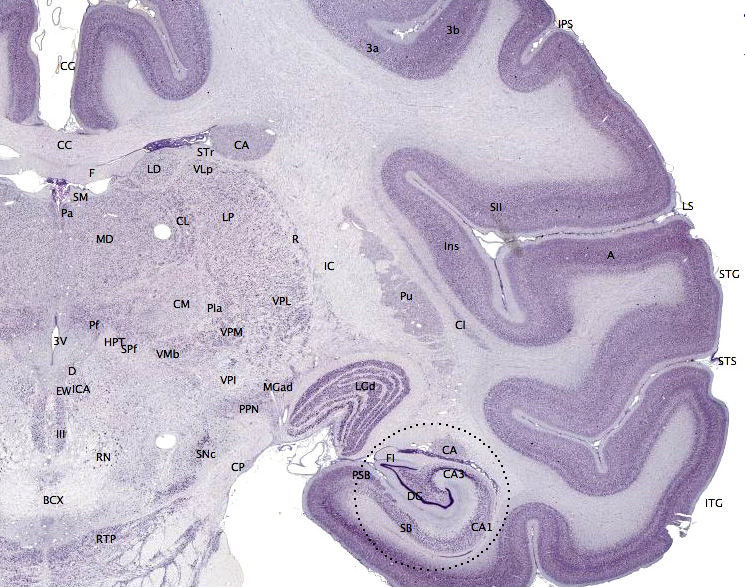
But i saw that surface not that curvy, but just a projectory sphere as if of planetarium or a videoscreen)
but I could see only those surfaces turned to me, I didn't saw the whole picture and that is the subconsciousness? Will it unfold when we remove skull? or will it be unreachable to the centre? Experiments will show if it will raise or lower the intelligence of the sub-species. of the mice and apes.
vol.908988
